 23.10.2020THE FALL OF THE WESTERN MODEL
23.10.2020THE FALL OF THE WESTERN MODEL
Thierry Meyssan
The Western model, based on capitalism and democracy, no longer manages to defend the general interest or guarantee popular sovereignty. By accumulating these two failures, it brings together the two ingredients of a generalized revolution.
 09.10.2020WILL ARTSAKH (KARABAGH) BE THE TOMB OF ERDOĞAN ?
09.10.2020WILL ARTSAKH (KARABAGH) BE THE TOMB OF ERDOĞAN ?
Thierry Meyssan
The Nagorno-Karabakh conflict certainly had its origins in the dissolution of the USSR, but it was revived by the will of the Turkish president. It is unlikely that he took this initiative without first referring it to Washington. This is also what President Saddam Hussein did before invading Kuwait, falling by ambition into the trap set for him and causing his downfall.
 04.09.2020ELITE QUALITY REPORT 2020
04.09.2020ELITE QUALITY REPORT 2020
This report is the result of a collective research and writing effort by its editors and authors. Substantial discrete contributions are recognized in the corresponding sections of the report. The report was edited by Tomas Casas and Guido Cozzi, and authored by Tomas Casas, Guido Cozzi, Céline Diebold, Diana van der Watt and Camille Zeller.
 28.08.2020GLOBAL FINANCIAL ARCHITECTURE AND THE COVID CRISIS
28.08.2020GLOBAL FINANCIAL ARCHITECTURE AND THE COVID CRISIS
Evgeny Vinokurov
After every major economic crisis, the global financial architecture changes markedly. The COVID-19 crisis will not be an exception. The current expert discussions are largely focused on a possible shift towards de-globalisation processes, the strengthening of regionalism and the role of nation-states. Recognising the factors behind these fears, Evgeny Vinokurov...
 16.07.2020THE TURKISH CRIMINAL RECORD
16.07.2020THE TURKISH CRIMINAL RECORD
George Menesian
In March 2020, Turkish President Recep Tayyip Erdogan compared the Greek police forces protecting the Greek borders with the Nazis of the concentration camps during World War II. These preposterous comments are part of the Turkish Goebbels - like propaganda regarding the situation at the Greco-Turkish land borders of Evros.
 13.02.2020HYBRID CHALLENGES TO INTEGRATION PROCESSES 2
13.02.2020HYBRID CHALLENGES TO INTEGRATION PROCESSES 2
Gagik Harutyunyan
During the monopolar world order, when the political and economic developments were largely subordinated to the United States and the “Western community”...
 13.02.2020HYBRID CHALLENGES TO INTEGRATION PROCESSES 1
13.02.2020HYBRID CHALLENGES TO INTEGRATION PROCESSES 1
Gagik Harutyunyan
The Latin word integratio may have two meanings: integrum — whole, complete, and integratio — restoring, renewal, and both concepts are positive and in harmony with each other.
 12.11.2019BREXIT, THE EU AND DEMOCRACY
12.11.2019BREXIT, THE EU AND DEMOCRACY
by Thierry Meyssan
For Thierry Meyssan, Boris Johnson’s policy is in perfect continuity with British history. If we refer to the writings of the British Prime Minister and not to her campaign remarks, she is much more guided by the danger felt at the birth of a continental supranational state than by a desire for economic independence.
 27.12.2018THE UNITED STATES REFUSE TO FIGHT FOR THE TRANSNATIONAL FINANCIERS
27.12.2018THE UNITED STATES REFUSE TO FIGHT FOR THE TRANSNATIONAL FINANCIERS
by Thierry Meyssan
The US withdrawal from Syria and Afghanistan, as well as the resignation of General Mattis, attest to the upheaval that is shaking the current world order. The United States are no longer the leaders, either on the economic or the military stage. They refuse to keep fighting for the sole interests of the transnational financiers. The alliances that they used to lead will begin to unravel, but without their erstwhile allies admitting the powerful ascension of Russia and China.
 19.12.2018TURKISH PRECONDITIONS SHOULD BE COUNTERED BY ARMENIAN PRECONDITIONS
19.12.2018TURKISH PRECONDITIONS SHOULD BE COUNTERED BY ARMENIAN PRECONDITIONS
By Harut Sassounian
Armenia’s Acting Prime Minister Nikol Pashinyan announced last week that his government is ready to establish diplomatic relations with Turkey, however, without any preconditions. This announcement came as a surprise to most Armenians who were hoping that Pashinyan will not repeat the mistake of former President Serzh Sargsyan who advocated for 10 years the ratification of the Armenia-Turkey Protocols which were intended to establish diplomatic relations between the two countries and open their mutual border.
 17.12.2018WHO DOES EMMANUEL MACRON OWE?
17.12.2018WHO DOES EMMANUEL MACRON OWE?
by Thierry Meyssan
President Macron is often presented as a Rothschild Boy. This is true, but secondary. Thierry Meyssan demonstrates that he owes his electoral campaign mostly to Henry Kravis, the boss of one of the world’s largest financial companies, and to NATO – a considerable debt which weighs heavily today on the solution to the Yellow Vests crisis. Emmanuel Macron did not feel destined for a career in politics. As a young man, he hoped to become a philosopher, then a senior civil servant, then a business banker. To help him on his way, he frequented Uncle Sam’s fairy godmothers - the French-American Foundation and the German Marshall Fund of the United States.
 14.12.2018INTERNET LOCALIZATION AS A MINIMAL DEFENSE AGAINST INTERNET WEAPONIZATION
14.12.2018INTERNET LOCALIZATION AS A MINIMAL DEFENSE AGAINST INTERNET WEAPONIZATION
By Dr. George Kostopoulos
In the recent years, a new resource has become available to the world that has greatly enhanced communications, having equally enhanced the productivity of practically all sectors. This resource covers the world like the sun and the moon, having become an infrastructure for the creation and implementation of previously impossible accomplishments. This resource is the Internet – a centrally managed network of networks – that is a valuable asset beyond quantitative valuation.
 13.12.20182019 ANNUAL FORECAST
13.12.20182019 ANNUAL FORECAST
The Great Power Competition Intensifies. The United States will escalate its strategic offensive against China with tariffs, sanctions, regulatory buffers around emerging technologies, stronger backing for Taiwan and a more assertive posture in the South China Sea. At the same time, failing arms control pacts will accelerate an arms race among the United States, Russia and China. The edgier geopolitical climate will create strategic opportunities for more vulnerable borderland powers, such as Poland and Taiwan, but will also create massive headaches for middle powers trying to find neutral ground, such as Turkey, India and Vietnam.
 12.12.2018U.S. AMBASSADOR TO ARMENIA SHOULD CALL THE ARMENIAN GENOCIDE, A GENOCIDE
12.12.2018U.S. AMBASSADOR TO ARMENIA SHOULD CALL THE ARMENIAN GENOCIDE, A GENOCIDE
By Harut Sassounian
Everyone knows that Ambassadors have to follow the foreign policy guidelines of their governments and cannot make their own decisions. Yet it is strange that successive U.S. Ambassadors are not allowed to call the Armenian Genocide, a genocide. Just imagine the uproar if a US Ambassador stationed in Israel would refuse to use the term Jewish Holocaust!
 10.12.2018ARMENIAN EVANGELICAL EMMANUEL RENOVATED CHURCH’S REDEDICATION SERVICE
10.12.2018ARMENIAN EVANGELICAL EMMANUEL RENOVATED CHURCH’S REDEDICATION SERVICE
“How lovely is your dwelling place, O Lord Almighty! My soul yearns, even faints, for the courts of the Lord; my heart and my flesh cry out for the living God” Psalm 84:1-2. At the end of the First World War the so-called civilized world treated what was left of the Ottoman Empire, Turkey, as the winner, despite the terrible genocide that it had carried out against the Armenian people mostly living in Cilicia, but now a part of that country. Finally, after having survived the death-camps many of the Armenians ended up in Aleppo where they created a new ‘Armenia’.
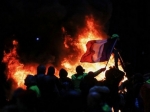 06.12.2018HOW THE WEST EATS ITS CHILDREN
06.12.2018HOW THE WEST EATS ITS CHILDREN
by Thierry Meyssan
For Thierry Meyssan, by taking to the streets, the French have become the first Western population to take personal risks to oppose financial globalisation. Although they do not realise it, and still imagine that their problems are exclusively national, their enemy is the same force that crushed the region of the African Great Lakes and a part of the Greater Middle East. In order to understand the project which inextricably unites these apparently disparate events, we have to take a step back.
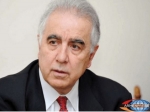 05.12.2018SEN. MENENDEZ DELAYS SENATE CONFIRMATION OF US AMBASSADOR TO AZERBAIJAN
05.12.2018SEN. MENENDEZ DELAYS SENATE CONFIRMATION OF US AMBASSADOR TO AZERBAIJAN
By Harut Sassounian
Pres. Donald Trump nominated on Sept. 4, 2018 career Foreign Service Officer Earle Litzenberger to serve as US Ambassador to Azerbaijan replacing Amb. Robert Cekuta who left Baku nine months ago. A month before the Senate Foreign Relations Committee’s October 4, 2018 hearing on Litzenberger’s confirmation, the Armenian National Committee of America (ANCA) issued a press release urging the Armenian American community, friends of Armenia, and human rights activists to call on their Senators to scrutinize Litzenberger’s nomination.
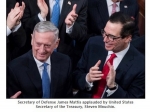 04.12.2018WHEN YOU WANT TO SANCTION STATES, YOU CALL THEM «TERRORISTS»
04.12.2018WHEN YOU WANT TO SANCTION STATES, YOU CALL THEM «TERRORISTS»
by Thierry Meyssan
The new unilateral sanctions by the United States against Iran, Russia and Syria add to the previous actions concerning the same three targets. They now form the most unforgiving embargo in History. The way in which they have been organised is illegal according to the definition of the Charter of the United Nations – these are weapons of war, designed for killing.
 29.11.2018CHINA EXPANDS RESEARCH FUNDING, LURING U.S. SCIENTISTS AND STUDENTS
29.11.2018CHINA EXPANDS RESEARCH FUNDING, LURING U.S. SCIENTISTS AND STUDENTS
Joe Palca
In 2003, Jay Siegel was up for a new challenge. Siegel was a tenured professor of chemistry at the University of California, San Diego, but he took a job at the University of Zurich.
"When I first moved, people said, 'Oh, you're crazy to leave San Diego; it's a paradise. Why would you go to Europe? Blah, blah blah,' "recalls Siegel. "And after 10 years people were saying, 'Oh, man, that was the smartest thing you ever did. Zurich is wonderful.' "
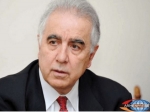 28.11.2018SHOULD ARMENIA GRANT CITIZENSHIP TO FOREIGN INVESTORS?
28.11.2018SHOULD ARMENIA GRANT CITIZENSHIP TO FOREIGN INVESTORS?
By Harut Sassounian
The Acting Prime Minister of Armenia Nikol Pashinyan has made attracting overseas investors the priority of his new government. So far, it is too early to determine if foreign investors are interested in doing business in Armenia. The common explanation for the lack of new investors is that they are waiting for the results of Parliamentary elections scheduled for December 9, 2018. It is expected that the Acting Prime Minister’s political party will win the majority of the Parliamentary seats. Government officials believe that this will encourage foreigners to start investing in Armenia.
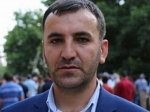 22.11.2018KURDISH MEMBER OF TURKISH PARLIAMENT DELIVERS A HARSH SPEECH & ENDS UP IN JAIL
22.11.2018KURDISH MEMBER OF TURKISH PARLIAMENT DELIVERS A HARSH SPEECH & ENDS UP IN JAIL
By Harut Sassounian
Ferhat Encu, a Kurdish member of the Turkish Parliament from the Sirnak province of Turkey, delivered a while back extremely critical remarks about Turks and Turkey on the floor of the Parliament in Ankara. I just discovered the video of his bold speech on YouTube. Encu, a member of the Kurdish HDP Party, is well known for his steadfast opposition to the Turkish government for its perpetual violence against Kurds and violation of Kurdish human rights. In 2011, the Turkish Air Force bombed a group of Kurdish civilians killing 34 of them, including several members of Encu’s family!
 14.11.2018GENETICALLY ENGINEERED VIRUSES MAY BECOME THE NEXT GENERATION OF WARFARE
14.11.2018GENETICALLY ENGINEERED VIRUSES MAY BECOME THE NEXT GENERATION OF WARFARE
Tomasz Pierscionek
Many technologies have dual use potential and can be applied to either civilian or defense projects, depending on the intent of those in charge. German rocket technology led to the creation of V2 ballistic missiles in WW2 and later enabled the US to launch space exploration missions in the latter half of the 20th century. The technology also helped the US develop its own ballistic missile program.
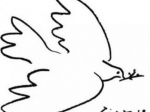 08.11.2018SYRIA: PEACE IMPLIES INTERNATIONAL CONDEMNATION OF THE IDEOLOGY OF THE MUSLIM BROTHERHOOD
08.11.2018SYRIA: PEACE IMPLIES INTERNATIONAL CONDEMNATION OF THE IDEOLOGY OF THE MUSLIM BROTHERHOOD
by Thierry Meyssan
Although several peace projects are currently circulating in the chanceries, Thierry Meyssan points out their inadequacy for this sort of war. According to him, those who begin with an amputated analysis of the conflict, yet still believe they are doing the right thing, will not only fail to resolve the problem, but will pave the way for a new war. It is imperative to treat the ideological question as a priority.
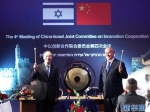 01.11.2018THE SILK ROAD AND ISRAËL
01.11.2018THE SILK ROAD AND ISRAËL
by Thierry Meyssan
Beijing continues unceasingly to develop its « Silk Road » project. China’s vice-President, Wang Qishan, has undertaken a tour of the Near East which took him to Israël for four days. According to the agreements which have already been signed, within two years China will control the major part of Israël’s agro-food industry, its high technology and its international exchanges. A free trade agreement should follow, and the geopolitics of the whole region will be turned upside down.
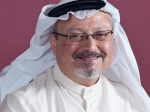 31.10.2018SAUDI JOURNALIST’S MURDER EXPLOITED FOR SELFISH INTERESTS BY WORLD POWERS
31.10.2018SAUDI JOURNALIST’S MURDER EXPLOITED FOR SELFISH INTERESTS BY WORLD POWERS
By Harut Sassounian
The heinous murder of prominent Saudi journalist Jamal Khashoggi has been exploited by leaders of several countries for their selfish political and economic gains, ignoring the vile nature of the crime. The main participants in this ugly game are Saudi Arabia, Turkey and the United States. On October 2, 2018, Jamal Khashoggi, a Saudi citizen, visited Saudi Arabia’s Consulate in Istanbul, Turkey, to finalize his divorce documents so he could marry his Turkish fiancée, Hatice Cengiz. Khashoggi never left the Consulate. He was murdered and reportedly dismembered by a special team of Saudi investigators who were sent to Istanbul the day before, and after the killing immediately returned to Saudi Arabia on two separate private jets.
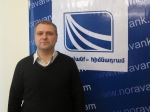 29.10.2018ARMENIA CAN BECOME A PLATFORM FOR DIALOGUE, NOT CONTRADICTIONS: KAREN VERANYAN
29.10.2018ARMENIA CAN BECOME A PLATFORM FOR DIALOGUE, NOT CONTRADICTIONS: KAREN VERANYAN
- In the recent period, the situation in the Middle East and the South Caucasus has heated to the limit: the situation in Syria, the US sanctions against Iran and the revitalization of this country in the region, the frequent visits of US officials to Russia, Azerbaijan and Armenia, statements by US presidential adviser John Bolton on state security issues, in which, to put it mildly, there was a call, if not forcing Armenia, to refuse Russian weapons in exchange for American ones and join the sanctions against Iran. In your opinion, does this entire mean that in the near future we may witness global redistribution of zones of influence among the largest superpowers? Are there any concerns that under US pressure, Armenia will try to radically change its foreign policy towards the West?
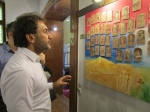 25.10.2018PARTNERSHIP VISIT TO THE REFORMED CHURCH OF HUNGARY
25.10.2018PARTNERSHIP VISIT TO THE REFORMED CHURCH OF HUNGARY
Upon the invitation of the Reformed Church of Hungary, Rev. Haroutune Selimian, President of the Protestant Community in Syria, and Rev. Joseph Kassab, General Secretary of the National Evangelical Synod in Syria and Lebanon, visited Hungary from 8-12 October 2018. The main purpose of the visit was to deepen the partnership and cooperation between the Reformed and Protestant churches in Syria and Hungary.
 24.10.2018ANOTHER MAJOR ERDOGAN CORRUPTION SCANDAL; THIS TIME ON US SOIL
24.10.2018ANOTHER MAJOR ERDOGAN CORRUPTION SCANDAL; THIS TIME ON US SOIL
By Harut Sassounian
Not a week passes without the disclosure of another major scandal in Azerbaijan or Turkey. The latest such scandal was exposed by the Stockholm Center for Freedom in an article written by exiled Turkish writer Abdullah Bozkurt, titled: “Utah case exposes more dirt on Turkey’s Erdogan.”
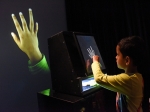 18.10.2018MANIFESTATION OF COMPUTER SYNDROME DURING PSYCHOLOGICAL AND SPEECH DEVELOPMENTAL DELAY
18.10.2018MANIFESTATION OF COMPUTER SYNDROME DURING PSYCHOLOGICAL AND SPEECH DEVELOPMENTAL DELAY
Siranush Antonyan
Personal development is largely determined by the economic, social and technical changes and developments of that period. Particularly, at the end of the 20th century, technical innovations, computers and the Internet, as well as many positive changes, have made life easier and have sown various unwanted phenomena: today, man in the world is considered as a tecnical-based creature and is in the center of technical changes and developments. It is important to emphasize the founder of the historical-cultural theory L. S. Vigotsky's idea that personality is a consequence of mastering historical and cultural values and the social environment is the main source of personal development.
 17.10.2018BRITAIN INVESTIGATES AZERI BANKER’S WIFE FOR MULTI-MILLION DOLLAR SHOPPING SPREE
17.10.2018BRITAIN INVESTIGATES AZERI BANKER’S WIFE FOR MULTI-MILLION DOLLAR SHOPPING SPREE
By Harut Sassounian
Another Azerbaijan-related major corruption scandal is brewing in Europe. The country’s crooked officials have swindled billions of petrodollars for their personal benefit while the majority of the Azeri people live in abject poverty. The latest example is on the front pages of most British newspapers. Mrs. Zamira Hajiyeva, 55, the wife of an Azerbaijani banker, has spent over $21 million by shopping at the Harrods luxury department store in London between 2006 and 2016.
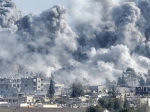 16.10.2018INTERNATIONAL RELATIONS: THE CALM BEFORE THE STORM?
16.10.2018INTERNATIONAL RELATIONS: THE CALM BEFORE THE STORM?
by Thierry Meyssan
All international problems are currently suspended, awaiting the results of the US mid-term elections. The partisans of the old international order are gambling on a change of majority in Congress and a rapid destitution of President Trump. If the man in the White House holds fast, the protagonists of the war against Syria will have to admit defeat and move on to other battle fields. On the other hand, if Donald Trump should lose the elections, the war on Syria will immediately be revived by the United Kingdom.
 09.10.2018UNO : BIRTH OF THE POST-WESTERN WORLD
09.10.2018UNO : BIRTH OF THE POST-WESTERN WORLD
by Thierry Meyssan
The administration of the UNO had been hoping for a clash between the pro- and anti-Trump factions during the General Assembly. What actually happened was very different. While several States, including France, denounced the methods of the resident of the White House, Russia undertook an analysis of the Western alliance. According to Moscow, most of our current problems are due to the desire of the old colonial powers to conserve their domination of the rest of the world - at whatever the cost. In order to overtake them, a formidable coalition has been born.
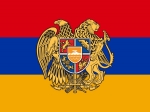 03.10.2018ARMENIA NEEDS BOTH CHARITY & INVESTMENTS, NOT ONLY INVESTMENTS!
03.10.2018ARMENIA NEEDS BOTH CHARITY & INVESTMENTS, NOT ONLY INVESTMENTS!
By Harut Sassounian
Throughout the years, since Armenia’s independence in 1991, I have had the unique opportunity of spending hundreds of hours with the country’s three previous Presidents, discussing privately with them Armenia’s many problems. I offered them my professional assessments and frequently my criticisms of the way they were running the country. Although the Presidents were not pleased that I was pointing out their shortcomings and mistakes, they understood that my intent was not to disparage them, but to help them improve the living conditions of the population.
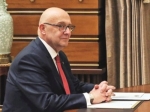 26.09.2018PROMINENT PRO-ERDOGAN ISTANBUL ARMENIAN ENGAGES IN PRO-TURKISH PROPAGANDA
26.09.2018PROMINENT PRO-ERDOGAN ISTANBUL ARMENIAN ENGAGES IN PRO-TURKISH PROPAGANDA
By Harut Sassounian
Despite the many violations of Armenian cultural and religious rights in Turkey, there are some Armenians in Istanbul who praise the Turkish regime and particularly its fascist President Recep Tayyip Erdogan. These few pro-Erdogan Armenians, who enjoy special privileges and access to high-ranking Turkish officials, represent themselves as protectors of the local Armenian community’s interests. But in reality, they have selfish motives. They either have personal business interests with corrupt Turkish leaders or seek to maintain their undeserved positions in Armenian community institutions. One such individual is Bedros Sirinoglu, Chairman of the Board of Sourp Prgich Armenian Hospital in Istanbul.
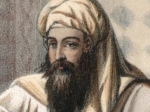 14.09.2018PROPHET MUHAMMAD’S RARELY-KNOWN DECREE TO THE ARMENIAN PATRIARCH OF JERUSALEM
14.09.2018PROPHET MUHAMMAD’S RARELY-KNOWN DECREE TO THE ARMENIAN PATRIARCH OF JERUSALEM
By Harut Sassounian
For many years, I have heard that there had been written communication between the Prophet Muhammad and the Armenian Patriarchate of Jerusalem, but I had not seen any of the documents to that effect. Two months ago, I read a fascinating article published in the Armenian newspaper Aztag in Beirut, Lebanon, by Dr. Garbis Harboyan of Montreal, Canada, who had uncovered the details of the communication between Prophet Muhammad and the then Armenian Patriarch of Jerusalem and their successors.
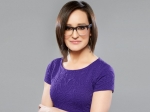 11.09.2018FOX-TV’S DEVASTATING ATTACK ON TURKEY AND PRES. ERDOGAN
11.09.2018FOX-TV’S DEVASTATING ATTACK ON TURKEY AND PRES. ERDOGAN
By Harut Sassounian
As the conflict between Turkey and United States is heating up, Turkish President Recep Tayyip Erdogan is too stupid to realize that by continuing to hold American Pastor Andrew Brunson on trumped-up charges, he is undermining Turkey’s economy and its membership in NATO. Any other intelligent Turkish leader would have released Pastor Brunson a long time ago and maintained military and trade relations with the United States.
 07.09.2018A BIG CHOICE FOR BIG TECH
07.09.2018A BIG CHOICE FOR BIG TECH
By Viktor Mayer-Schönberger and Thomas Ramge
Over the last two decades, a few technology giants have come to dominate digital markets. Google performs about nine out of every ten Internet searches worldwide. Facebook, the world’s leading social media platform, has well over two billion users. Together, the two companies have seized well over half of the online advertising market. Apple, originally a computer manufacturer, now runs the world’s largest mobile app store in terms of revenue, with about 80 percent of the market, and the second-largest music streaming business, approaching a third of the market.
 06.09.2018CONGRESS MUST INVESTIGATE U.S. LOANS TO SECRETIVE AZERI SILK WAY AIRLINES
06.09.2018CONGRESS MUST INVESTIGATE U.S. LOANS TO SECRETIVE AZERI SILK WAY AIRLINES
By Harut Sassounian
Last year, I wrote an article reporting that the Silk Way Airlines of Azerbaijan made 350 secret flights to transport hundreds of tons of weapons from Bulgaria to ISIS terrorists in Syria and other Middle Eastern countries between 2014 and 2017.
 05.09.2018TELECOMMUNICATION INTEREST OF THE NATION IN TERMS OF SITE BLOCKING
05.09.2018TELECOMMUNICATION INTEREST OF THE NATION IN TERMS OF SITE BLOCKING
Abdul Kahraman-zadeh
To my thinking, the priority policy of Azerbaijani telecommunications is the updating of existing systems in line with national interests, and the chief thing therein is the immunity and safety of communication and Internet services.
 17.08.2018SEIZE THE TRANSNATIONAL CORPORATIONS TO REBUILD SYRIA?
17.08.2018SEIZE THE TRANSNATIONAL CORPORATIONS TO REBUILD SYRIA?
by Thierry Meyssan
President Trump won the election on his promise to overthrow financial capitalism and restore productive capitalism. From this standpoint, he considers that war damages owed to Syria should not be paid by the United States, but by transnational corporations. Is this revolution in international relations desirable or even possible?
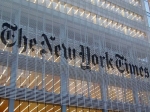 16.08.2018COUNTERING ERDOGAN’S PROPAGANDA IN THE NEW YORK TIMES
16.08.2018COUNTERING ERDOGAN’S PROPAGANDA IN THE NEW YORK TIMES
By Harut Sassounian
For many years, the Turkish government has hired numerous American companies in Washington, D.C., to lobby and carry out public relations on its behalf. Hiring such companies is very expensive and most of the time, it is a waste of money, as they produce more paperwork than actual results. But once in a while, they can draft and help publish opinion articles (op-eds) in American newspapers on behalf of Turkish officials and arrange their visits and meetings in the United States.
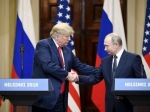 14.08.2018HOW PUT AN END TO THE WAR AGAINST SYRIA
14.08.2018HOW PUT AN END TO THE WAR AGAINST SYRIA
by Thierry Meyssan
The Western Press continues to support the elite transnational financiers and to scorn the actions of President Trump. This attitude makes it difficult to understand the progress made towards peace in Syria. Thierry Meyssan looks at the agreements reached during the last five months and the rapid progress on the ground.
 09.08.2018TURKEY PRESSURES NON-MUSLIM LEADERS INTO CLAIMING THAT THEY ARE NOT PRESSURED!
09.08.2018TURKEY PRESSURES NON-MUSLIM LEADERS INTO CLAIMING THAT THEY ARE NOT PRESSURED!
By Harut Sassounian
In a recent article, I wrote about the U.S. State Department’s annual report on International Religious Freedom which stated that “all religious groups that are not Sunni Muslim suffer discrimination and persecution in Turkey…. Religious minorities said they continued to experience difficulties obtaining exemptions from mandatory [Islamic] religion classes in public schools, operating or opening houses of worship, and in addressing land and property disputes. The government restricted minority religious groups’ efforts to train their clergy….”
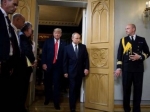 03.08.2018THE TWILIGHT OF THE WAR
03.08.2018THE TWILIGHT OF THE WAR
by Thierry Meyssan
If we consider the war in Syria not as a singular event, but as the culmination of a world war which has persisted for a quarter of a century, we have to ask ourselves about the consequences of the imminent end of hostilities. Its completion marks the defeat of an ideology, that is to say globalisation and financial capitalism. The people who have not understood this, particularly in Western Europe, are defining their own exclusion from the rest of the world. World wars do not only end with a winner and a loser. Their termination defines the contours of a new world. The First World War ended with the defeat of the German, Russian, Austro-Hungarian and Ottoman Empires. The cessation of hostilities was marked by the elaboration of an international organisation, the League of Nations (LN), tasked with abolishing secret diplomacy and settling any conflicts between the member-states by arbitration.
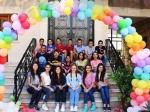 02.08.2018A FRUITFUL AND VITAL LIFE IN ALEPPO JULY 2018
02.08.2018A FRUITFUL AND VITAL LIFE IN ALEPPO JULY 2018
Rev. Haroutune Selimian
When war-affected populations in Syria entered the post-conflict phase, we have observed difficulties in regulating strong emotional responses to stressors. As the leadership of the Armenian Protestant Churches in Syria, we have decided to offer proffesional help to the war-affected children and families to build their skills and to manage their emotions and navigate challenging situations. Such interventions, with a focus on emotion regulation, personal development, interpersonal relationships, executive functions, problem solving, and priority setting will help improve their day-today functioning and connect to life opportunities especially around education and employment.
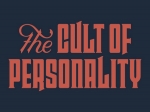 01.08.2018THE CULT OF PERSONALITY IN AZERBAIJAN: IDOLIZING FORMER PRESIDENT HEYDAR ALIYEV
01.08.2018THE CULT OF PERSONALITY IN AZERBAIJAN: IDOLIZING FORMER PRESIDENT HEYDAR ALIYEV
By Harut Sassounian
The worship of former President of Azerbaijan Heydar Aliyev is so exaggerated that an American blogger Andreas Moser on his visit to Baku and Ganja encountered the “great leader’s” monuments and buildings everywhere he went. Moser wrote in his blog a satirical report, excerpts of which are reproduced below for our readers’ great amusement!
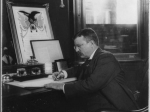 30.07.2018PRESIDENT THEODORE ROOSEVELT AND THE ARMENIANS
30.07.2018PRESIDENT THEODORE ROOSEVELT AND THE ARMENIANS
By Haykaram Nahapetyan
WASHINGTON – During his recent trip to Washington, in connection with the Armenian Folklife Festival in the American capital, President Armen Sarkissian of Armenia visited Roosevelt Island. He honored the legacy of the 26th president of the United States, Theodore Roosevelt (1901-1909), and his support to the Armenian people during the tragic days of our history.
 25.07.2018AZERBAIJAN ORGANIZES ITS OWN DIASPORA TO COMPETE WITH THE ARMENIAN DIASPORA
25.07.2018AZERBAIJAN ORGANIZES ITS OWN DIASPORA TO COMPETE WITH THE ARMENIAN DIASPORA
By Harut Sassounian
For many decades, the Turkish government has had an inflated image of the Armenian Diaspora, describing it as a giant worldwide force. In recent years, Azerbaijan has been infected with the same fear of the global Armenian Diaspora. Pres. Ilham Aliyev has described the ‘Armenian lobby’ as the greatest enemy of Azerbaijan. Consequently, the Azeri leaders have started pouring massive resources into the formation of their own diaspora in various countries as a counterpart to the “powerful Armenian lobby.”
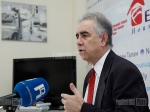 18.07.2018AMERICAN TEACHER EXPELLED FROM TURKEY WINS LAWSUIT IN EUROPEAN COURT
18.07.2018AMERICAN TEACHER EXPELLED FROM TURKEY WINS LAWSUIT IN EUROPEAN COURT
By Harut Sassounian
In an article published by the Gatestone Institute on April 8, 2018, Turkish journalist Uzay Bulut mentioned that Norma Jeanne Cox, a lecturer at Istanbul University, and subsequently at the Middle East Technical University in Gaziantep, Turkey, had spoken to “her students and colleagues about the 1915 Armenian genocide, the forced assimilation of Kurds, and protested against the film The Last Temptation of Christ. For these ‘crimes,’ she was arrested, fired from her job and ultimately deported. The [Turkish] Ministry of the Interior claimed that Cox had been expelled and banned from re-entering Turkey due to ‘her separatist activities, which were incompatible with national security.’
 13.07.2018WHAT DOES THE BATTLE OF DERAA SYMBOLISE?
13.07.2018WHAT DOES THE BATTLE OF DERAA SYMBOLISE?
by Thierry Meyssan
Thierry Meyssan does not accept the story of the beginning of hostilities in Syria as presented by the Western and Gulf Press over the last seven years. He is therefore returning to these events to examine them in the light of certain elements which have become known since then. As in all science, political science moves closer to the truth by questioning its previous conclusions and integrating new observations into its reasoning.
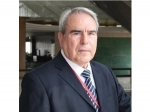 12.07.2018TIME FOR A FEDERATION: BY DR. GEORGE KOSTOPOULOS
12.07.2018TIME FOR A FEDERATION: BY DR. GEORGE KOSTOPOULOS
It is apparent that the world is undergoing serious invisible transformations that are slowly but effectively are being implemented in front of our eyes. One is the creation of the so called European Union where numerous, presumably, sovereign states were subdued into becoming provinces of a master state ruled by anonymous forces. It is urgent that a Federation be created of countries/nations of same culture, namely of Christian Orthodoxy. The purpose of such Federation is not necessarily for economic or for political benefits, but to secure their geographical and cultural integrity that is being undermined by the anonymous forces that rule the West in a master/slave fashion.
 09.07.2018WHAT DONALD TRUMP IS PREPARING
09.07.2018WHAT DONALD TRUMP IS PREPARING
by Thierry Meyssan
After having observed Donald Trump’s historical references (the constitutional compromise of 1789, the examples of Andrew Jackson and Richard Nixon) and the way in which his partisans perceive his politics, Thierry Meyssan here analyses his anti-imperialist actions. The US President is not interested in taking a step back, but on the contrary, abandoning the interests of the transnational ruling class in order to develop the US national economy. In 1916, during the First World War, Lenin analysed the reasons which led to the confrontation between the empires of his time. He wrote - Imperialism, the Highest Stage of Capitalism.
 04.07.2018STATE DEPARTMENT EXPOSES AZERBAIJAN’S FALSE IMAGE OF ‘RELIGIOUS TOLERANCE’
04.07.2018STATE DEPARTMENT EXPOSES AZERBAIJAN’S FALSE IMAGE OF ‘RELIGIOUS TOLERANCE’
By Harut Sassounian
The government of Azerbaijan spends a large fortune each year to convince the world that Azeris are tolerant people who respect the human rights of all minorities living in the country. However, no matter how many fake ecumenical services Azerbaijan’s lobbyists in Europe and the United States organize by bribing Christian and Jewish leaders, the truth about Azeri intolerance is impossible to cover up.
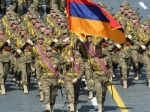 28.06.2018NAKHCHIVAN AGAIN SITE OF BROADER AND MORE DANGEROUS GEOPOLITICAL COMPETITION
28.06.2018NAKHCHIVAN AGAIN SITE OF BROADER AND MORE DANGEROUS GEOPOLITICAL COMPETITION
Paul Goble
Ankara’s announcement last week (June 6) that it will begin building a railroad up to the Turkish border with Nakhchivan later this year, combined with news of Baku’s redeployment of military forces along the Armenian border of that non-contiguous portion of Azerbaijan are sparking fears in Yerevan and Moscow.
 27.06.2018US STATE DEPARTMENT SLAMS TURKEY IN ITS ANNUAL RELIGIOUS FREEDOM REPORT
27.06.2018US STATE DEPARTMENT SLAMS TURKEY IN ITS ANNUAL RELIGIOUS FREEDOM REPORT
By Harut Sassounian
The US State Department just issued its 2017 report on International Religious Freedom in about 200 countries, including Turkey, Azerbaijan, and Armenia. This week, we will focus our attention on the section on Turkey. In general, all religious groups that are not Sunni Muslim suffer from discrimination and persecution in Turkey. Alevis, who constitute over a quarter of Turkey’s population of 81 million, are viewed by the state as “Heterodox Muslims” whose houses of worship are not recognized. Anti-Semitic articles vilifying Jews are frequently published in Turkish newspaper. Pres. Erdogan constantly provokes the public by his Anti-Israel rhetoric.
 25.06.2018GERMANY AND SYRIA
25.06.2018GERMANY AND SYRIA
by Thierry Meyssan
Relations between Germany and Syria, which used to be excellent under Emperor Wilhelm II, are today abysmal. This is because since the Cold War, Berlin has become the backyard for the Muslim Brotherhood in their attempt to overthrow the Syrian Arab Republic. Since 2012, the Minister for Foreign Affairs and the federal think-tank SWP have been working directly on behalf of the US deep state for the destruction of the country.
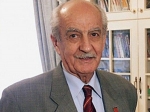 20.06.2018ANOTHER ANTI-ARMENIAN WRITER EXPOSED FOR MAKING BASELESS ALLEGATIONS
20.06.2018ANOTHER ANTI-ARMENIAN WRITER EXPOSED FOR MAKING BASELESS ALLEGATIONS
By Harut Sassounian
It seems that not a week passes without coming across another mysterious writer who undertakes to contribute a puff piece about Azerbaijan and to undermine the reputation of Armenia and Armenians around the world. The latest such writer is Peter Tase who posted an article titled, “Russia’s Foreign Agents in America: Trump Connection of Armenian Lobbyists,” on June 11, 2018 on the Eurasia Review website.
 13.06.2018UNFORTUNATE COINCIDENCE: TURKISH-AMERICAN ATTACKS BOURDAIN ON THE EVE OF HIS SUICIDE
13.06.2018UNFORTUNATE COINCIDENCE: TURKISH-AMERICAN ATTACKS BOURDAIN ON THE EVE OF HIS SUICIDE
By Harut Sassounian
A friend forwarded to me the copy of a lengthy email that was sent by Ibrahim Kurtulus, a Turkish-American from New York City, to hundreds of CNN employees harshly criticizing Anthony Bourdain, Chris Cuomo and others for acknowledging the Armenian Genocide. The subject of Kurtulus’s email is titled: “When CNN's Chris Cuomo and 'Especially' Anthony Bourdain Legitimize RACISM.”
 08.06.2018THE UNTOLD SECRET OF THE SMART INFRASTRUCTURE LAYER: BRIDGING THE SDG INVESTMENT GAP
08.06.2018THE UNTOLD SECRET OF THE SMART INFRASTRUCTURE LAYER: BRIDGING THE SDG INVESTMENT GAP
By Andrey Filippov
Regardless of the level of economic development of a country, infrastructure has always been a cornerstone of prosperity: it is infrastructure that moves people and goods, powers production facilities, and offers space for housing and commerce. Today, when more than half of the world’s population lives in cities, safe and efficient infrastructure is more and more crucial for maintaining economic sustainability and achieving economic growth.
 07.06.2018AZERI-AMERICAN ADIL BAGUIROV RECEIVES $250,000 TO LOBBY FOR AZERBAIJAN
07.06.2018AZERI-AMERICAN ADIL BAGUIROV RECEIVES $250,000 TO LOBBY FOR AZERBAIJAN
By Harut Sassounian
In my last week’s article on secret funding for Azerbaijan’s lobbying in the United States, I referred to the payment made to “an influential oil and gas consultant with close ties to President Aliyev who presents himself as an immigration success story and lives in Dayton Ohio -- even as he also lobbies the US government on his homeland’s behalf.”
 06.06.2018LIBYA ACCORDING TO THE UN AND THE HARSH REALITY
06.06.2018LIBYA ACCORDING TO THE UN AND THE HARSH REALITY
by Thierry Meyssan
Despite the good will of some of the participants, the Paris conference for Libya did not have the desired effects. For Thierry Meyssan, this can be explained by the double language of NATO and the United Nations, who are pretending to want to stabilise the country while their actions in fact continue the Cebrowski plan for the destruction of state structures. The spectacle in Paris was steeped in a profound ignorance of the particularities of Libyan society.
 30.05.2018AZERBAIJAN’S SECRET ‘LAUNDROMAT’ SCHEME PAYS $1.5 MILLION TO US LOBBYING FIRM
30.05.2018AZERBAIJAN’S SECRET ‘LAUNDROMAT’ SCHEME PAYS $1.5 MILLION TO US LOBBYING FIRM
By Harut Sassounian
The website of Organized Crime and Corruption Reporting Project (OCCRP) revealed last week the possibly illegal lobbying in the United States funded by Azerbaijani sources. Investigative journalist Jonny Wrate reported on May 23, 2018 that “some of the money that passed through the Azerbaijani Laundromat, a secret money laundering scheme and slush fund that saw $2.9 billion flow out of the country between 2012 and 2014, ended up in the hands of a purportedly private Azerbaijani organization that hired a Virginia firm to lobby the US government for more than a decade.”
 24.05.2018IS PEACE AROUND ISRAËL POSSIBLE ?
24.05.2018IS PEACE AROUND ISRAËL POSSIBLE ?
by Thierry Meyssan
Although the global medias treat the events in the Greater Middle East as unconnected incidents, Thierry Meyssan interprets them as successive moves on the same chess-board. He sees the conflicts around Israël as an organic whole and questions whether President Trump has the capacity to arrive at regional peace.
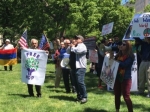 16.05.2018AMERICAN LAWYERS SUE TURKEY FOR HUNDREDS OF MILLIONS OF DOLLARS
16.05.2018AMERICAN LAWYERS SUE TURKEY FOR HUNDREDS OF MILLIONS OF DOLLARS
By Harut Sassounian
On May 16, 2017, during Turkish Pres. Recep Tayyip Erdogan’s visit with Pres. Doanld Trump in the White House, Erdogan’s bodyguards, unprovoked viciously attacked Kurdish and Armenian protesters who had gathered outside the residence of Turkey’s Ambassador in Washington, DC. Nine demonstrators were seriously injured!
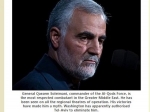 15.05.2018HAVE IRAN AND ISRAËL DECLARED A NEW WAR?
15.05.2018HAVE IRAN AND ISRAËL DECLARED A NEW WAR?
by Thierry Meyssan
In response to the United States backing out of the nuclear agreement, the Revolutionary Guard have attacked Israël from their Syrian bases. Are we headed towards a new regional war, or is this an operation intended for the interior use of Iran?
 10.05.2018RUSSIA IS OPPOSED TO A WAR BETWEEN IRAN AND ISRAËL
10.05.2018RUSSIA IS OPPOSED TO A WAR BETWEEN IRAN AND ISRAËL
by Thierry Meyssan
Although for the most part, observers are taking sides in the Russo-US conflict and hoping for the victory of their camp, Moscow is attempting to calm the atmosphere in the Middle East. It is therefore opposed to an attack on Israël by Iran, just as it was opposed to an Israëli operation against Iran in 2008.
 04.05.2018CZECH REPUBLIC SELLS WEAPONS TO AZERBAIJAN ILLEGALLY VIA ISRAEL
04.05.2018CZECH REPUBLIC SELLS WEAPONS TO AZERBAIJAN ILLEGALLY VIA ISRAEL
By Harut Sassounian
While the Azerbaijani army was showcasing its weapons on a promotional video during exercises on Sept. 18-22, 2017, observers noticed Czech-made military hardware, including DANA howitzer artillery pieces (11-mile range) and Rm-70 rocket launchers (12-mile range).
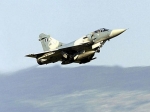 16.04.2018A 'SECRET WAR' BETWEEN TURKEY AND GREECE JUST TURNED DEADLY AFTER A LONG HISTORY OF DOGFIGHTS OVER THE AEGEAN SEA
16.04.2018A 'SECRET WAR' BETWEEN TURKEY AND GREECE JUST TURNED DEADLY AFTER A LONG HISTORY OF DOGFIGHTS OVER THE AEGEAN SEA
For decades, a secret air war has been waged over the skies of southeastern Europe between two NATO allies: Greece and Turkey. Greek officials announced on Thursday that a Hellenic Air Force Mirage 2000-5 fighter jet crashed in the Aegean Sea, near the island of Skyros. The pilot, identified by the HAF as 33-year-old Capt. Giorgos Baltadoros, was returning from an aerial policing mission where he intercepted two Turkish Air Force F-16s.
 12.04.2018THE END OF INTERNATIONAL LAW?
12.04.2018THE END OF INTERNATIONAL LAW?
by Thierry Meyssan
The war against the Greater Middle East should end with the withdrawal of US troops within the next six months. And yet nothing proves that peace will settle in each of the countries that were invaded. Today we are witnessing what seems to be a tentative to get rid of international law. Will this consolidate a division of the world into two parts, or will it open to a generalised conflict?
 11.04.2018THERESA MAY’S FOREIGN POLICY
11.04.2018THERESA MAY’S FOREIGN POLICY
by Thierry Meyssan
Thierry Meyssan pursues his study of national foreign policies. After having analysed the policy of France, he now turns to that of the United Kingdom. While the former is considered to be the « private domain » of the President of the Republic, and as such, escapes the democratic debate, the latter, even more so, is elaborated by an elite gathered around the monarch, outside of any form of popular control. Thus the elected Prime Minister can do no more than implement the choice of the hereditary Crown. Faced with the failure of the US project for a unipolar world, London is attempting to restore its erstwhile imperial power.
 10.04.2018WHY TURKEY ACCEPTED JORDAN’S DEMAND TO REVISE THEIR FREE TRADE AGREEMENT?
10.04.2018WHY TURKEY ACCEPTED JORDAN’S DEMAND TO REVISE THEIR FREE TRADE AGREEMENT?
By Harut Sassounian
Before the recent turmoil in relations between Turkey and several countries in the Middle East, Europe and the United States, Syria and Jordan had signed a Free Trade Agreement and visa-free travel with Turkey hoping to benefit from its growing economy.
 29.03.2018ARE YOU READY? THIS IS ALL THE DATA FACEBOOK AND GOOGLE HAVE ON YOU
29.03.2018ARE YOU READY? THIS IS ALL THE DATA FACEBOOK AND GOOGLE HAVE ON YOU
Dylan Curran
The harvesting of our personal details goes far beyond what many of us could imagine. So I braced myself and had a look. Want to freak yourself out? I’m going to show just how much of your information the likes of Facebook and Google store about you without you even realising it. Google knows where you’ve been.
 29.03.2018GETTING READY TO FIGHT THE NEXT (CYBER) WAR
29.03.2018GETTING READY TO FIGHT THE NEXT (CYBER) WAR
The Western world turned a corner in February when the United States indicted 13 Russians for attempting to interfere in the 2016 election. And along with Great Britain, the United States exposed Russia as the culprit behind NotPetya, a costly cyberattack on the Ukraine that was deliberately disguised as ransomware. The Russian modus operandi of hiding state-sponsored maliciousness behind a veneer of plausible deniability did not dissuade either Special Counsel Robert Mueller or the British government from naming and shaming key individuals.
 28.03.2018HOW AZERBAIJAN DISTORTS UN SECURITY COUNCIL RESOLUTIONS
28.03.2018HOW AZERBAIJAN DISTORTS UN SECURITY COUNCIL RESOLUTIONS
By Harut Sassounian
Last week, I described Azerbaijan’s distortions of two of the four UN Security Council Resolutions adopted in 1993. I will now present the remaining two Resolutions:
Excerpts from UN Security Council Resolution 874, adopted October 14, 1993:
“Calls upon the parties concerned to make effective and permanent the cease-fire established as a result of the direct contacts undertaken with the assistance of the Government of the Russian Federation in support of the CSCE Minsk Group.”
 23.03.2018FOUR DAYS TO DECLARE A COLD WAR
23.03.2018FOUR DAYS TO DECLARE A COLD WAR
by Thierry Meyssan
The week that has just ended was exceptionally rich in events. But no media were able to report it, because they had all deliberately masked certain of their number in order to protect the story that was being woven by their government. London had attempted to provoke a major conflict, but lost to Russia, President Trump and Syria.
 22.03.2018HOW AZERBAIJAN DISTORTS UN SECURITY COUNCIL RESOLUTIONS
22.03.2018HOW AZERBAIJAN DISTORTS UN SECURITY COUNCIL RESOLUTIONS
By Harut Sassounian
The Armenian National Committee of America, San Fernando Valley West chapter, held an all-day conference on March 17 on the occasion of the 30th anniversary of the Artsakh (Karabagh) liberation struggle. The conference was held at the Ferrahian Armenian High School in Encino, California. The speakers were: historian Garo Moumdjian, Ph.D, California Courier publisher Harut Sassounian, ANCA National Board Member Steven Dadaian, Esq., A.R.F. Western US Central Committee Member Levon Kirakosian, Esq., and A.R.F. Western US Central Committee Member Vache Thomassian, Esq.
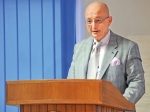 13.03.2018‘CHINA AND RUSSIA ARE QUASI ALLIES … ON STRATEGIC AFFAIRS RUSSIA AND INDIA HAVE SERIOUS CONVERSATIONS ONLY AT TOP LEVEL’
13.03.2018‘CHINA AND RUSSIA ARE QUASI ALLIES … ON STRATEGIC AFFAIRS RUSSIA AND INDIA HAVE SERIOUS CONVERSATIONS ONLY AT TOP LEVEL’
Sergei Karaganov, economic and foreign policy adviser to Russian President Vladimir Putin spoke to Indrani Bagchi about his country’s changed relationship with China and its endeavour to balance its interest in a changing world:
 01.03.2018AGGRESSION DISGUISED AS CIVIL WARS
01.03.2018AGGRESSION DISGUISED AS CIVIL WARS
by Thierry Meyssan
If we accept to take a step back, we notice that the different conflicts which have bloodied the Greater Middle East for the last sixteen years, from Afghanistan to Libya, have not been a succession of civil wars, but the application of regional strategies. Thierry Meyssan reminds us of the objectives and the tactics of these wars since the « Arab Springs » and observes the preparation of those to come.
 16.02.2018THE ILLUSION OF THE ERADICATION OF DAESH
16.02.2018THE ILLUSION OF THE ERADICATION OF DAESH
by Thierry Meyssan
The fall of the Caliphate and the scattering of the jihadists of Daesh open a new phase for recycling these troops. Perceived, according to each case, either as fanatical combatants or common psychopaths hiding behind an ideology, they are being courted by the States and multinationals who once employed them indirectly. Thierry Meyssan illustrates the setting for their second chance and issues a warning in face of the complacency shown by the Western powers concerning Daesh’s ideology – which in fact is the ideology of the Muslim Brotherhood.
 14.02.2018ANCA & US ARMENIANS SHOULD SUE THE DAILY CALLER AND FORBES MAGAZINE
14.02.2018ANCA & US ARMENIANS SHOULD SUE THE DAILY CALLER AND FORBES MAGAZINE
By Harut Sassounian
In recent years, scores of ‘hired pens’ have written derogatory commentaries about Armenia and Armenian-Americans. Many of these anti-Armenians commentators are paid by the governments of Azerbaijan or Turkey.
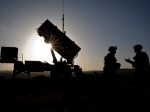 09.02.2018TURKISH INVASION PITS NEOCONS AGAINST TRADITIONAL IMPERIALISTS
09.02.2018TURKISH INVASION PITS NEOCONS AGAINST TRADITIONAL IMPERIALISTS
by Mike Whitney
US foreign policy in the Middle East is not merely adrift, it is in a state of severe crisis. Even as Turkish tanks and warplanes continue to pound US allies in northwestern Syria (The Kurds), powerbrokers in the White House and the Pentagon are unable to settle on a way forward. The frantic attempts to placate their NATO ally, Turkey, while trying to assuage the fears of their mostly Kurdish proxy-army (Syrian Democratic Forces) has further underscored the dismal absence of a coherent policy that would not only address the rapidly-changing battlespace but also deal with the prospect that a critical regional ally (Turkey) might seek strategic objectives that are directly at odds with those of Washington.
 08.02.2018CONSENSUS BETWEEN THE SYRIANS AT SOTCHI
08.02.2018CONSENSUS BETWEEN THE SYRIANS AT SOTCHI
by Thierry Meyssan
While the Congress for a Syrian National Dialogue has not solved the conflict, it has swept away the minor groups who were pretending to represent the Syrian People for the benefit of the Western powers. It has also cleared the way for a consensus, adopted by the representatives of almost all Syrians, and decided the creation of a Constituent Commission. The basis for peace has been established, but without the Western powers.
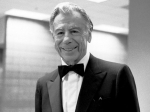 02.02.2018NEW BIOGRAPHY PORTRAYS KIRK KERKORIAN AS ‘THE GREATEST DEAL MAKER’
02.02.2018NEW BIOGRAPHY PORTRAYS KIRK KERKORIAN AS ‘THE GREATEST DEAL MAKER’
By Harut Sassounian
William Rempel, a veteran investigative reporter, just wrote a comprehensive biography of industrialist and philanthropist Kirk Kerkorian published by Harper Collins. The book is titled, “The Gambler: How Penniless dropout Kirk Kerkorian became the greatest deal maker in capitalist history.”
 01.02.2018THE TRUTH ABOUT «FAKE NEWS»
01.02.2018THE TRUTH ABOUT «FAKE NEWS»
by Thierry Meyssan
While NATO was busy setting up a vast network with which to accuse Russia of perpetuating propaganda from the Soviet era, Washington was suddenly swamped by a wave of hysteria. In an attempt to discredit the new US President, the dominant media accuse him of talking rubbish - in response, the President accuses them of propagating fake news. This cacophony is amplified by the swift development of the social media, which had once been intended for use as weapons of the State Department against nationalist regimes, but which today are popular forums used to combat abuse by all kinds of elites – with Washington at the top of the list.
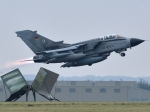 29.01.2018GERMANY’S DANGEROUS NUCLEAR SLEEPWALKING
29.01.2018GERMANY’S DANGEROUS NUCLEAR SLEEPWALKING
Germany’s complicated relationship with nuclear weapons could turn into a big risk for European security. The next German government will have to tackle several controversial security issues, from arms exports to meeting NATO’s target of spending 2 percent of GDP on defense. But the one item that is particularly difficult for Berlin—and that it is ill-prepared to deal with—is nuclear weapons.
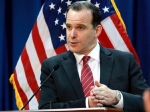 26.01.2018US SECRETS, LIES AND CONFUSION IN THE NORTH OF SYRIA
26.01.2018US SECRETS, LIES AND CONFUSION IN THE NORTH OF SYRIA
by Thierry Meyssan
The announcements and denials of the Trump administration concerning military developments in the North of Syria reveal a heavy secret. Paradoxically, Turkey has come to the assistance of the United States to correct « the error » of their superior officers.
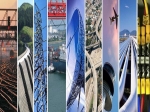 25.01.2018CRITICAL INFRASTRUCTURES AND IDEOLOGY
25.01.2018CRITICAL INFRASTRUCTURES AND IDEOLOGY
Gagik Harutyunyan
Security issues in information warfare have become relevant in parallel to development of strategies for such warfare. Already in 1996 the US President’s Commission on Critical Infrastructure Protection was established to deal with information sector critical infrastructures protection. The results of two years of the commission’s work allowed to uncover information security vulnerabilities and served a basis to develop relevant policies in the area.
 24.01.2018HUMAN RIGHTS WATCH REPORTS ON VIOLATIONS IN ARMENIA, AZERBAIJAN AND TURKEY
24.01.2018HUMAN RIGHTS WATCH REPORTS ON VIOLATIONS IN ARMENIA, AZERBAIJAN AND TURKEY
By Harut Sassounian
Human Rights Watch, a respectable and prominent non-governmental organization, issued last week its annual report that documented human rights violations during 2017 in more than 90 countries, including Armenia, Azerbaijan and Turkey.
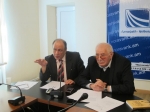 23.01.2018SCIENTIFIC AND TECHNOLOGICAL LANDSCAPE OF THE MULTIPOLAR WORLD
23.01.2018SCIENTIFIC AND TECHNOLOGICAL LANDSCAPE OF THE MULTIPOLAR WORLD
Gagik Harutyunyan, Ara Marjanyan
To interpret the complex processes occurring in the global multipolar world, analysts often make references to the statements and decisions made by leaders of superpowers, and attempt to uncover the obvious or not so obvious intentions of global actors, with consideration of their civilizational peculiarities. Currently, there is a certain focus on information issues, although it seems the original meaning of this term is often forgotten (in Latin: informare – to shape, teach, think, imagine) and much attention is paid to activities of hackers, bloggers, as well as the “likes” and “fakes” in social media.
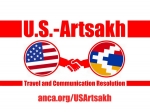 22.01.2018PALLONE BREAKING DOWN BARRIERS TO EXPANDED U.S.-ARTSAKH TIES
22.01.2018PALLONE BREAKING DOWN BARRIERS TO EXPANDED U.S.-ARTSAKH TIES
Congressional Armenian Caucus founding Co-Chair Frank Pallone (D-NJ) today called on his Congressional colleagues to break down artificial barriers to unrestricted travel and open communication between the United States and Artsakh (Nagorno Karabakh), with the introduction of the U.S.-Artsakh Travel and Communication Resolution, reported the Armenian National Committee of America (ANCA).
 17.01.2018RIGHTEOUS TURKISH PROFESSOR CONDEMNS TURKEY’S DENIAL OF THE ARMENIAN GENOCIDE
17.01.2018RIGHTEOUS TURKISH PROFESSOR CONDEMNS TURKEY’S DENIAL OF THE ARMENIAN GENOCIDE
By Harut Sassounian
On Dec. 30, 2017, Cengiz Aktar, a prominent Turkish political scientist, journalist and writer, published a candid and compassionate article about the Armenian Genocide. Aktar’s article titled, “Confronting past violence with more violence,” is posted on Ahvalnews.com, an independent overseas website, beyond the reach of the Turkish government’s oppressive regime.
 16.01.2018AZERBAIJAN’S ACHILLES’ HEEL AFFLICTION
16.01.2018AZERBAIJAN’S ACHILLES’ HEEL AFFLICTION
By Z. S. Andrew Demirdjian
Of the three formerly known Transcaucasian Republics of Azerbaijan, Georgia, and Armenia, Azerbaijan has the largest area, population, and revenues while Armenia has the smallest. Even though Azerbaijan has the largest population than Georgia and Armenia, it is also fragmented by a myriad of minorities, some of which aspire after independence to exercise their rights as being indigenous to Azerbaijan. See the following map, showing only some of the major minorities in Azerbaijan.
 15.01.2018TEAM DEVELOPMENT AS BUILDING BLOCK OF QUALITY CULTURE IN HIGHER EDUCATION SYSTEM
15.01.2018TEAM DEVELOPMENT AS BUILDING BLOCK OF QUALITY CULTURE IN HIGHER EDUCATION SYSTEM
Robert Khachatryan, Kristina Alaverdyan
Social capital formation and human capital formation with certain attributes could significantly contribute to the successful transition from hierarchic to learning organizations. This is specifically observable in the knowledge societies and economies. The gradual shift toward strategic based, proactive behavioral patterns and operations could be facilitated by the existence of multiple and multifaceted components (e.g. teams) that interact with each other and have an adaptive logic that is based on compound feedback system, making them responsive to change. The adaptation is influenced by a group or organization that has appropriate mechanisms and structures for knowledge management (Aktharsha and Anisa, 2011).
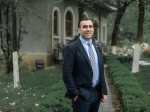 12.01.2018RETHINKING RUSSIA’S RETURN TO GLOBAL POLICY
12.01.2018RETHINKING RUSSIA’S RETURN TO GLOBAL POLICY
Mher Sahakyan
In the first decade of 21st century Russia managed to get out of the economic crisis, restore its military strength, and took the course to become a sovereign political pole. To understand the entire scope of Russia’s reaction to difficult foreign challenges and to analyze its probable steps, it is important to investigate its foreign policy strategy.
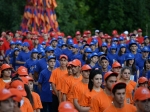 11.01.2018DIAGNOSIS OF THE INDEPENDENCE GENERATION: ISSUES OF SOCIAL EXCLUSION OF ARMENIAN YOUTH
11.01.2018DIAGNOSIS OF THE INDEPENDENCE GENERATION: ISSUES OF SOCIAL EXCLUSION OF ARMENIAN YOUTH
Aram Vartikyan, Shushan Ghahriyan
The end of the 20th century was distinguished by exceptional changes in the reality of the Armenian society, by the degeneration of value basis and directors of continuous reproduction and existence of the society, by the mutilation of corresponding social relations, meanings and symbolisms that seemed to be stabilized over years, as well as by the mutilation of basis and processes of the institutional reproduction of the society.
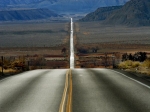 10.01.2018PERCEPTION OF CHINA’S “ONE BELT, ONE ROAD” IN RUSSIA: “UNITED EURASIA” DREAM OR “IRON CIRCLE” OF CONTAINMENT?
10.01.2018PERCEPTION OF CHINA’S “ONE BELT, ONE ROAD” IN RUSSIA: “UNITED EURASIA” DREAM OR “IRON CIRCLE” OF CONTAINMENT?
Larisa Smirnova
Since President Xi Jinping’s accession to power and following his unprecedented, for a Chinese leader, personal friendship with Vladimir Putin of Russia, it has become almost commonplace in the media discourse to closely associate “Russia and China” and to position this “couple” in opposition to the socalled “West” and/or “the United States and their allies.” Arguably, this association largely contributed to the public communication success that the Chinese project of “One Belt One Road” enjoyed globally in the initial months after its’ unveiling on March 28, 2015.
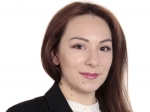 09.01.2018CYBERSPACE – A MANMADE DOMAIN FOR WARS
09.01.2018CYBERSPACE – A MANMADE DOMAIN FOR WARS
Anahit Parzyan
Internet can be considered as one of the greatest achievements of humanity of the last century, which connected the entire world. It created a new space for connections, information and communications, as well as cooperation. Thus, it created also a new platform for conflicts that involved not only individuals but also states. The invention of the twentieth century, the Internet, has become another sphere for international relations, and a new space for defensive and offensive policies for regulating and balancing those affairs.
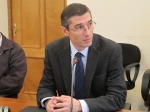 08.01.2018DIMENSIONS OF STRUCTURAL POWER: RUSSIA AND THE POST-SOVIET AREA
08.01.2018DIMENSIONS OF STRUCTURAL POWER: RUSSIA AND THE POST-SOVIET AREA
Vahagn Aglyan
A phenomenon of power in politics and policy-making is one the oldest and traditional topics of academic inquiry and a key domain in theorizing about International Relations (IR). Scholars have elaborated on variety of types, forms and dimensions of power in IR and policy-making in general, yet some types of power have gained prominence quite recently as international politics and international relationships have been evolving within the new globalized setting(s). Specifically, the post-Cold War period has ushered out new and complex period with the system of international relations being “scaled down” to the regional level from its former bipolar framework.
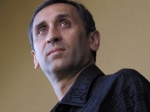 28.12.2017DONALD TRUMP’S NATIONAL SECURITY STRATEGY
28.12.2017DONALD TRUMP’S NATIONAL SECURITY STRATEGY
by Thierry Meyssan
Breaking with the habits of his predecessors, Donald Trump’s National Security Strategy abandons the management of world affairs and lays out the path to the economic and social recovery of the United States. This project, which is perfectly coherent, represents a brutal change that his cabinet will now have to impose on the whole of his administration.
 29.11.2017ERDOGAN KEEPS ALIENATING EVERYONE, INCLUDING DISTINGUISHED FOREIGN SCHOLARS
29.11.2017ERDOGAN KEEPS ALIENATING EVERYONE, INCLUDING DISTINGUISHED FOREIGN SCHOLARS
By Harut Sassounian
Turkish President Erdogan is a ‘blessing’ to all those who are opposed to Turkish autocratic rule and massive violations of human rights. Not a day passes without the Turkish government behaving brutally against scholars, human rights activists, non-governmental organizations, journalists, and political opponents. Erdogan has done more harm to Turkey’s image around the world than anyone else since the Ottoman Turks’ implementation of the 1915 Armenian Genocide.
 16.11.2017RONN TOROSSIAN HIRED TO DO PR FOR TURKEY; IS HE REALLY AN ARMENIAN?
16.11.2017RONN TOROSSIAN HIRED TO DO PR FOR TURKEY; IS HE REALLY AN ARMENIAN?
By Harut Sassounian
The website Medium.com posted two articles by Louise Neu revealing that Ronn Torossian had signed a contract to represent Turkey as its PR agent! Torossian is President of the 5W Public Relations firm based in New York City.
 14.11.2017CHINA AND THE US: RATIONAL PLANNING AND ‘LUMPEN’ CAPITALISM
14.11.2017CHINA AND THE US: RATIONAL PLANNING AND ‘LUMPEN’ CAPITALISM
James Petras
(Lumpen Capitalism refers to an economic system in which the financial and military sector exploits the state treasury and productive economy for the 1% of the population.) US journalists and commentators, politicians and Sinologists spend considerable time and space speculating on the personality of China’s President Xi Jinping and his appointments to the leading bodies of the Chinese government, as if these were the most important aspects of the entire 19th National Congress of the Communist Party of China (October 18-24, 2017) .
 13.11.2017PALACE COUP IN RIYADH
13.11.2017PALACE COUP IN RIYADH
by Thierry Meyssan
While the war against Daesh is drawing to a close in Iraq and Syria, and the war against the pseudo-Kurdistan seems to have been avoided, several States of the Greater Middle East are regaining the initiative. Profiting from the fluidity of the moment, the Crown Prince of Saudi Arabia has brutally eliminated the members of the royal family who may be in a position to contest his Power. So not only has the regional balance of power been modified by war, but one of the region’s main actors has just changed its objectives.
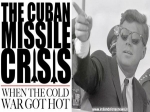 01.11.2017WAS THE CUBAN MISSILE CRISIS THE MOST DANGEROUS EPISODE OF THE COLD WAR AND, IF SO, WHAT MADE IT SO DANGEROUS?
01.11.2017WAS THE CUBAN MISSILE CRISIS THE MOST DANGEROUS EPISODE OF THE COLD WAR AND, IF SO, WHAT MADE IT SO DANGEROUS?
By Karen Saradzhyan and Simon Saradzhyan
Academics and politicians have often described the Cuban Missile Crisis (CMC) of 1962 as the moment when the human race came closest to a nuclear war. This article will seek to answer two questions related to that crisis, the 55th anniversary of which is observed this October. The first question is as follows: What particular developments in the course of the U.S.-Soviet confrontation of October 1962 increased chances of the so-called nuclear exchange between the two superpowers?
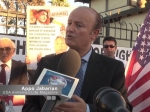 31.10.2017VISITING CORRUPT HUNGARIAN GOV. MINISTER ‘GREETED’ BY U.S. PROTESTERS DEMANDING RE-ARREST AND RE-IMPRISONMENT OF CONVICTED AZERI AXE-MURDERER RAMIL SAFAROV
31.10.2017VISITING CORRUPT HUNGARIAN GOV. MINISTER ‘GREETED’ BY U.S. PROTESTERS DEMANDING RE-ARREST AND RE-IMPRISONMENT OF CONVICTED AZERI AXE-MURDERER RAMIL SAFAROV
BY APPO JABARIAN
On Sunday Oct. 22 Minister Lajos Kósa, a member of the corrupt Hungarian Prime Minister Victor Orban’s government, was ‘greeted’ with a protest rally staged by a group of Americans in Los Angeles. The protesters included Hungarian-Americans, Armenian-Americans and others.
 26.10.2017SHOULD US POLICY AGAINST IRAN BE TAKEN SERIOUSLY?
26.10.2017SHOULD US POLICY AGAINST IRAN BE TAKEN SERIOUSLY?
by Thierry Meyssan
The State Department and President Trump have been spitting out curses against Hezbollah and Iran – this could lead us to fear a break in the 5+1 agreement. But for Thierry Meyssan, while the worst may still happen, it is far more probable that, once again, Washington is staging a phony quarrel in order to better manipulate its Israëli and Saudi allies.
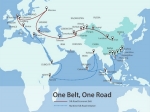 25.10.2017XI’S ROAD MAP TO THE CHINESE DREAM
25.10.2017XI’S ROAD MAP TO THE CHINESE DREAM
By Pepe Escobar
Now that President Xi Jinping has been duly elevated to the Chinese Communist Party pantheon in the rarified company of Mao Zedong Thought and Deng Xiaoping Theory, the world will have plenty of time to digest the meaning of “Xi Jinping Thought on Socialism with Chinese Characteristics for a New Era.”
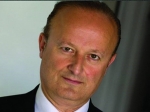 23.10.2017AZERI AXE-MURDERER RAMIL SAFAROV’S ENABLER CORRUPT HUNGARIAN GOVERNMENT MEMBER TO VISIT LOS ANGELES THIS SUNDAY
23.10.2017AZERI AXE-MURDERER RAMIL SAFAROV’S ENABLER CORRUPT HUNGARIAN GOVERNMENT MEMBER TO VISIT LOS ANGELES THIS SUNDAY
Today USA Armenian Life Magazine was alerted by a colleague and a friend of Armenians about the imminent visit to Los Angeles by a member of the corrupt Hungarian government that has collaborated with the criminal regime in Baku, Azerbaijan in freeing Azeri Axe-Murderer Ramil Safarov under the cover of extradition.
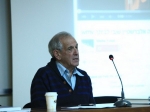 19.10.2017PROFESSOR YAIR AURON CRITIQUES ISRAEL’S ARMS SALES TO COUNTRIES COMMITTING GENOCIDE
19.10.2017PROFESSOR YAIR AURON CRITIQUES ISRAEL’S ARMS SALES TO COUNTRIES COMMITTING GENOCIDE
By Yair Auron
The State of Israel is sending weapons to a country that’s carrying out ethnic cleansing. Once one couldn’t even imagine such a thing, but then it turned out that during the 1990s the Rabin-Peres-Meretz government was selling weapons to the genocidal governments of Rwanda and Serbia.
 05.10.2017HOW TURKEY DESTROYED OR DISPOSED ITS HISTORICAL ARCHIVES AND DOCUMENTS
05.10.2017HOW TURKEY DESTROYED OR DISPOSED ITS HISTORICAL ARCHIVES AND DOCUMENTS
By Harut Sassounian
For several decades, the Turkish government and its propagandists have been announcing that the state documents, particularly the Ottoman archives, are fully open and available to any researcher from around the world. What Turkish officials and their supporters do not say is that many documents of the Ottoman archives have been removed, destroyed, sold or disposed of. In addition, some of the most sensitive archives are still closed to outsiders.
 04.10.2017POLITICAL ISLAM AGAINST CHINA
04.10.2017POLITICAL ISLAM AGAINST CHINA
by Thierry Meyssan
You are probably aware that you are incompletely informed about what is brewing in Myanmar, and you probably haven’t heard about the military coalition that is preparing to attack that country. And yet, as Thierry Meyssan reveals here, these current events have been in preparation by Riyadh and Washington since 2013. Don’t take sides before you read this article and digest the information.
 28.09.2017ALIYEV LIES BEFORE THE WHOLE WORLD AT UNITED NATIONS SPEECH IN NEW YORK
28.09.2017ALIYEV LIES BEFORE THE WHOLE WORLD AT UNITED NATIONS SPEECH IN NEW YORK
By Harut Sassounian
There were plenty of Azeri commentators and officials who criticized Pres. Sargsyan’s speech at the U.N. General Assembly last week, but I did not come across any Armenian commentators or government leaders who attacked Pres. Aliyev’s ugly speech at the U.N. on Sept. 20. The Azeri President’s lengthy remarks were full of lies and distortions: let’s try to set the record straight on some of them.
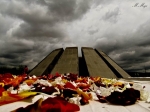 20.09.2017AMERICANA EXECUTIVES AND ANCA MEET TO RESOLVE A CONTENTIOUS RELATIONSHIP
20.09.2017AMERICANA EXECUTIVES AND ANCA MEET TO RESOLVE A CONTENTIOUS RELATIONSHIP
By Harut Sassounian
Representatives of the Armenian National Committee of America and senior executives of Americana shopping mall in Glendale met on September 5 and agreed to put their future relationship on a better footing. This was the first meeting in more than a dozen years between the two groups, precipitated by the refusal of Americana to provide paid advertising space on its billboard for “Architects of Denial,” an Armenian Genocide documentary. The producers of the documentary were told by Americana that the subject was “too political.” This was a puzzling and irritating response since Americana had seen neither the documentary nor the text of the display ad that was being rejected simply because it was about the Armenian Genocide.
 13.09.2017TURKS DENY ALL EVIDENCE OF GENOCIDE; AZERIS DENY ANY EVIDENCE OF CORRUPTION
13.09.2017TURKS DENY ALL EVIDENCE OF GENOCIDE; AZERIS DENY ANY EVIDENCE OF CORRUPTION
By Harut Sassounian
For over a century, no matter what evidence is presented to the Turkish government about their guilt as perpetrators of the Armenian Genocide, they always claim it is fake and deny the facts. Similarly, despite all evidence presented to Azeri leaders about their misuse of billions of dollars for bribery and corrupt practices, they always deny the facts and blame Armenians, other countries and certain individuals who are supposed to be against them!
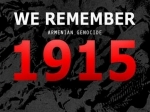 07.09.2017NEW DOCUMENTARY LINKS 1915 GENOCIDE TO RECENT AZERI MASSACRES OF ARMENIANS
07.09.2017NEW DOCUMENTARY LINKS 1915 GENOCIDE TO RECENT AZERI MASSACRES OF ARMENIANS
By Harut Sassounian
A new Armenian Genocide documentary will be screened in many theaters across the United States and also available “on demand” as of October 7, 2017. Unlike other documentaries on the topic, this one is different and more relevant to today’s non-Armenian viewers. The documentary titled, “Architects of Denial,” and sub-titled “Genocide denied is genocide continued,” links the mass killings of Armenians by the Ottoman Empire in 1915 to contemporary massacres of Armenians by Azeris, ethnic kins of Turks, in various cities of Azerbaijan, and threaten to kill Armenians living in the enclave of Nagorno-Karabagh (Artsakh).
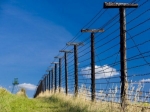 06.09.2017A NEW COLD WAR OR CAN WE MOVE FROM ‘LOSE-LOSE’ TO ‘WIN-WIN’?
06.09.2017A NEW COLD WAR OR CAN WE MOVE FROM ‘LOSE-LOSE’ TO ‘WIN-WIN’?
By Vladimir Yakunin
Talk of a ‘new Cold War’ once seemed alarmist, but today it is fast becoming rooted in a new reality, a new mentality of great power confrontation that is eerily reminiscent of a previous era. A recent editorial in the Washington Post arguing that Russia and US are “on the road to a new Cold War” has been one of the loudest to sound the alarm. A new package of US sanctions targeting Russian business interests in Europe was followed by a series of diplomatic spats, including the expulsion of American diplomats from Russia and the closure of the Russian consulate in San Francisco, and this tit-for-tat exchange looks set to continue. Unless concrete action is taken to change the trajectory of relations, the two nuclear superpowers appear stuck in a ‘death spiral’.
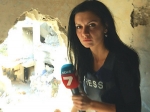 31.08.2017AZERBAIJAN FORCES BULGARIA TO FIRE REPORTER WHO EXPOSED ARMS SHIPMENTS TO TERRORISTS
31.08.2017AZERBAIJAN FORCES BULGARIA TO FIRE REPORTER WHO EXPOSED ARMS SHIPMENTS TO TERRORISTS
By Harut Sassounian
Last month, I wrote about Bulgarian journalist Dilyana Gaytandzhieva’s revelations that Azerbaijan’s state-run Silk Way Airlines had shipped under diplomatic cover 350 planeloads of heavy weapons and ammunition to terrorist groups in Syria and many other countries in the last three years. On Aug. 24, Dilyana tweeted: “I just got fired for telling the truth about weapons supplies for terrorists in Syria on diplomatic flights."
 30.08.2017EUROPE IS COMMITTING DEMOGRAPHIC SUICIDE
30.08.2017EUROPE IS COMMITTING DEMOGRAPHIC SUICIDE
by Tyler Durden
The Archbishop of Strasbourg Luc Ravel, nominated by Pope Francis in February, just declared that "Muslim believers know very well that their fertility is such today, that they call it... the Great Replacement. They tell you in a very calm, very positive way: One day all this, all this will be ours..." Hungarian Prime Minister Viktor Orbán just warned against a "Muslimized Europe". According to him, "the question of the upcoming decades is whether Europe will continue to belong to Europeans".
 29.08.2017HOW AZERBAIJAN’S PAID AGENTS MANIPULATE THE AMERICAN MEDIA
29.08.2017HOW AZERBAIJAN’S PAID AGENTS MANIPULATE THE AMERICAN MEDIA
By Harut Sassounian
For several years, dozens of articles have appeared in U.S., Israeli, and European newspapers, lavishly praising Azerbaijan and severely criticizing Armenia. Most of these articles are written by non-Azeris who are handsomely compensated by the Azeri government. One man, Casey Michel, had the courage to expose this scam in a lengthy article titled, “Azerbaijan’s American Media Manipulation.” He had done extensive research, linking several of these pro-Azeri authors to Azerbaijan’s well-financed lobbying activities.
 20.07.2017BILLIONS OF DOLLARS’ WORTH OF ARMS AGAINST SYRIA (THE SECRET RÔLE – UNTIL NOW – OF AZERBAÏDJAN)
20.07.2017BILLIONS OF DOLLARS’ WORTH OF ARMS AGAINST SYRIA (THE SECRET RÔLE – UNTIL NOW – OF AZERBAÏDJAN)
by Thierry Meyssan
Over the last seven years, several billion dollars’ worth of armament has been illegally introduced into Syria – a fact which in itself is enough to disprove the myth according to which this war is a democratic revolution. Numerous documents attest to the fact that the traffic was organised by General David Petraeus, first of all in public, via the CIA, of which he was the director, then privately, via the financial company KKR with the aid of certain senior civil servants. Thus the conflict, which was initially an imperialist operation by the United States and the United Kingdom, became a private capitalist operation, while in Washington, the authority of the White House was challenged by the deep state. New elements now show the secret rôle of Azerbaïdjan in the evolution of the war.
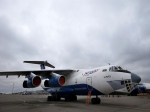 20.07.2017ALIYEV FAMILY'S FINANCIAL ROLE IN SHIPPING WEAPONS TO TERRORISTS
20.07.2017ALIYEV FAMILY'S FINANCIAL ROLE IN SHIPPING WEAPONS TO TERRORISTS
By Harut Sassounian
Last week I wrote about the sensational revelations by Bulgarian investigative journalist Dilyana Gaytandzhieva in Trud newspaper, who reported on leaked documents that Azerbaijan’s state-run Silk Way Airlines has shipped under diplomatic cover 350 planeloads of heavy weapons and ammunition to terrorist groups around the world during the last three years.
 12.07.2017US & EUROPE SHOULD INVESTIGATE AZERI SHIPMENTS OF WEAPONS TO TERRORISTS
12.07.2017US & EUROPE SHOULD INVESTIGATE AZERI SHIPMENTS OF WEAPONS TO TERRORISTS
By Harut Sassounian
A stunning investigation by Bulgarian reporter Dilyana Gaytandzhieva revealed that Azerbaijan’s state-run Silk Way Airlines has shipped under diplomatic cover 350 planeloads of heavy weapons and ammunition to terrorist groups around the world in the last three years! Azerbaijan asked the Foreign Ministries of various countries to issue a diplomatic exemption for these flights, allowing civilian planes to carry weapons which would normally be prohibited by the International Air Transport Association.
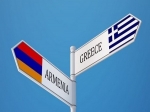 06.07.2017ISSUES OF ARMENIAN-GREEK COOPERATION IN DIASPORA
06.07.2017ISSUES OF ARMENIAN-GREEK COOPERATION IN DIASPORA
Vahram Hovyan
Ethnic lobbying gradually gains a larger role in the modern world. In implementation of foreign policies, national governments often rely on their ethnic communities abroad, particularly in superpower states. Allied nations cooperate not only at government levels, but also the diaspora level.
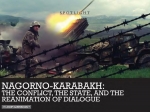 03.07.2017NAGORNO-KARABAKH: THE CONFLICT, THE STATE, AND THE REANIMATION OF DIALOGUE
03.07.2017NAGORNO-KARABAKH: THE CONFLICT, THE STATE, AND THE REANIMATION OF DIALOGUE
By Akop Gabrielyan
Since last-year’s exceptionally intensive escalation of the conflict at the border between the non-recognized state of Nagorno-Karabakh (theNKR) and Azerbaijan in April 2016 - which is also largely referred to in media as a "4-day war’ - the Armenian and Azerbaijani sides have held a scries of meetings at various levels, including with the involvement of the Organization for Security and Co-operation in Europe (OSCE Minsk Group), Ministries of Foreign Affairs, as well as in trilateral and multilateral settings.
 28.06.2017AZERBAIJAN EMPLOYS FOUR LOBBYING AND PR FIRMS
28.06.2017AZERBAIJAN EMPLOYS FOUR LOBBYING AND PR FIRMS
By Harut Sassounian
After identifying the lobbying and PR firms hired by the government of Turkey, we now report on four similar firms hired by Azerbaijan. By observing Azerbaijan's devious approach to foreign relations, I have noticed the following pattern: 1) Whatever actions Armenian-Americans take for their causes, Azerbaijan seeks to emulate and counter them in the United States through its hired companies. Pres. Aliyev in a 2013 speech stated that Azerbaijan’s “main enemy is the Armenian lobby.” He also stated: “the Armenian lobby day and night is trying to slander Azerbaijan, to undermine its authority.
 27.06.2017ADJUSTEMENTS IN THE MIDDLE EAST
27.06.2017ADJUSTEMENTS IN THE MIDDLE EAST
by Thierry Meyssan
As the Middle Eastern States split between the partisans and adversaries of clericalism, Washington, Moscow and Beijing are negotiating a new deal. Thierry Meyssan evaluates the impact of this earthquake on the Palestinian, Iraqi-Syrian and Yemeni conflicts.
 21.06.2017TURKEY SPENDS $2.6 MILLION TO HIRE TWO NEW LOBBYING AND PR FIRMS
21.06.2017TURKEY SPENDS $2.6 MILLION TO HIRE TWO NEW LOBBYING AND PR FIRMS
By Harut Sassounian
Last week, I wrote about a dozen public relations and lobbying companies the Turkish government had already hired. In recent weeks, the Republic of Turkey added two new such firms: Ballard Partners and Burson-Marsteller. Turkish officials don’t seem to realize that having more than a dozen lobbying firms not only is a waste of money due to unnecessary duplication, it is also a waste of the valuable time of several Turkish Embassy officials in Washington, D.C., spending a lot of their time on a daily basis to give detailed instructions to these lobbying firms, read their reports, comment on them, meet with them, forward their reports to the Foreign Ministry with lengthy explanations, and take corrective action based on Ankara's reaction.
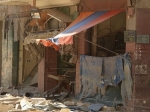 20.06.2017THE DILEMMA OF SYRIAN ARMENIANS. BETWEEN REFUGEES AND REPATRIATES
20.06.2017THE DILEMMA OF SYRIAN ARMENIANS. BETWEEN REFUGEES AND REPATRIATES
Ani Davtyan
The eruption of the Syrian crisis in 2011 resulted in the outflow of refugees from Syria to different parts of the world. The biggest humanitarian crisis of the 21st century did not bypass Armenia, as up to 20,000 Syrian citizens found refuge in Armenia. However, the case of Syrian refugees fleeing to Armenia is sui generis as on the one hand, the country primarily accepted Syrian nationals who were of Armenian origin. On the other hand, it was the decision of this specific number of Syrian Armenians to resettle in their ancestral homeland rather than in any other country, which makes the phenomenon similar to repatriation.
 16.06.2017VALUE CRISIS IN THE ARMENIAN SOCIETY
16.06.2017VALUE CRISIS IN THE ARMENIAN SOCIETY
Mher Terteryan
Nowadays, various experts and public figures discuss the problem of values in Armenia. I believe that these discussions are extremely important as values are the basis for the development of any nation and state. Since I was given an opportunity to serve the interests of my people as an advisor to Prime Minister Karen Karapetyan, I tried to understand and analyze the values that determine lives of our citizens. Undoubtedly, Armenia is home for different people with various political views and ideas. Nevertheless, in my opinion, opposing themselves to the state and authorities is something that unites the majority of our citizens. I will not deny that there are political and economic problems in our country. It would also be pointless to ignore the fact that some mistakes are made.
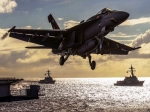 15.06.2017A NEW GEOPOLITICAL AND GEO-ECONOMIC LANDSCAPE
15.06.2017A NEW GEOPOLITICAL AND GEO-ECONOMIC LANDSCAPE
Scott B. MacDonald
A new geopolitical and geo-economic landscape is being formed. It encompasses China’s new Silk Roads, the lengthening usage of the Arctic sea route between Asia and Europe, and the development of spaceports. At the same time, there is a reassessment of global supply chains, longstanding trade agreements and military alliances. Central to the new landscape is the shift of the United States away from the idea of the transatlantic alliance system and a commitment to a liberal world order.
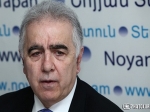 14.06.2017TURKEY HIRES MORE US LOBBYING FIRMS AS ITS REPUTATION IS FURTHER TARNISHED
14.06.2017TURKEY HIRES MORE US LOBBYING FIRMS AS ITS REPUTATION IS FURTHER TARNISHED
By Harut Sassounian
As Turkey becomes the target of worldwide condemnation for its human rights violations, the Turkish government decides to spend a fortune on lobbying and public relations firms to try to cleanse its tarnished reputation. On the heels of the April 16 flawed referendum which Erdogan barely won to give himself a wide-ranging dictatorial powers, and his bodyguards’ brutal attack in front of the Turkish Embassy in Washington D.C., on innocent protesters has been universally criticized by the executive and legislative branches of the US government, including a resolution adopted by the U.S. House of Representatives 397-0!
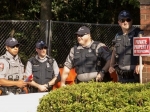 12.06.2017CONFRONTATION…
12.06.2017CONFRONTATION…
by Thierry Meyssan
While President Trump seems to have sorted out his problems of interior authority - more or less - the conflict has now moved on to concern NATO. Washington is currently speaking against the manipulation of terrorism, while London has no intention of giving up such a useful tool for the extension of its influence. The Bilderberg Group, initially organised as a sounding board for the Alliance, has just been the stage for a difficult debate between the partisans and the adversaries of imperialism in the Middle East.
 09.06.2017CHANGING IDENTITIES – CHANGING COMMUNITIES
09.06.2017CHANGING IDENTITIES – CHANGING COMMUNITIES
The Armenian population which settled in the Carpathian Basin in the Middle Ages mainly consisted of merchant families. Later, in the 17th century, the region saw another significant influx of Armenians, and thereafter a handful of relatively large Armenian communities flourished. This led to issues regarding the management of these groups vis-à-vis the social, cultural and political milieu in which they found themselves. As is the case with any diaspora community, these Armenians conjured myths and historical narratives to reinforce and maintain their unique identity as opposed to the various ethnic groups living in the region.
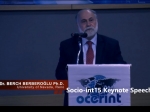 08.06.2017GLOBAL EDUCATION IN AN AGE OF TRANSITION: THE IMPACT OF GLOBALIZATION ON EDUCATION IN THE SOCIAL SCIENCES AND HUMANITIES
08.06.2017GLOBAL EDUCATION IN AN AGE OF TRANSITION: THE IMPACT OF GLOBALIZATION ON EDUCATION IN THE SOCIAL SCIENCES AND HUMANITIES
Dr. Berch Berberoglu
Foundation Professor of Sociology and Director of Graduate Studies in Sociology at the University of Nevada, Reno
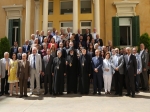 07.06.2017INTERNATIONAL CONFERENCE ON “ARMENIANS OF IRAQ” AT HAIGAZIAN UNIVERSITY, MAY 29-31, 2017
07.06.2017INTERNATIONAL CONFERENCE ON “ARMENIANS OF IRAQ” AT HAIGAZIAN UNIVERSITY, MAY 29-31, 2017
Organized by the Armenian Diaspora Research Center at Haigazian University, and supported by the Armenian Communities Department of the Calouste Gulbenkian Foundation, the conference on “Armenians of Iraq” took place over the course of three days. On Monday, May 29, the official opening took place in the presence of the prelates of Lebanon and Iraq, community leaders from Iraq and Lebanon, the ambassador of Armenia in Lebanon, Armenian intellectuals, historians, and academicians. The ceremony began with the opening words of Dr. Antranig Dakessian, Director of the ADRC, followed by a presentation by Dr. Razmig Panossian, head of the Armenian Communities Department of Calouste Gulbenkian Foundation. Haigazian University’s President Rev. Dr. Paul Haidostian’s words were followed by the opening reflections of the Prelate of Armenians in Iraq, Arch. Avak Asadourian.
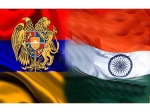 24.05.2017ARMENIA AND INDIA BUILD STRATEGIC RELATIONSHIP
24.05.2017ARMENIA AND INDIA BUILD STRATEGIC RELATIONSHIP
By: Eduard Abrahamyan
With Azerbaijan and Pakistan currently pursuing a strategic partnership (see EDM, September 28, 2016; December 15, 2016), Armenia and India have decided to step up their cooperation across several dimensions. Indeed, the past six months were marked by a visible reinvigoration of Armenian-Indian bilateral ties, which culminated with a visit to Yerevan, on April 24, of a high-level Indian delegation led by Vice President M. Hamid Ansari (Gov.am, April 24). The Indian vice president held meetings with Armenia’s Foreign Minister Eduard Nalbandyan, Prime Minister Karen Karapetyan and President Serzh Sargsyan. The meetings resulted in the signing of three important agreements.
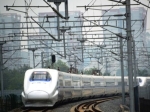 23.05.2017EU-RUSSIA SUPERSTATE?
23.05.2017EU-RUSSIA SUPERSTATE?
by Mike Whitney
“Russia is an inalienable and organic part of Greater Europe and European civilization. Our citizens think of themselves as Europeans…That’s why Russia proposes moving towards the creation of a common economic space from the Atlantic to the Pacific Ocean, a community referred to by Russian experts as ‘the Union of Europe’ which will strengthen Russia’s potential in its economic pivot toward the ‘new Asia.’”
 22.05.2017TOWARDS A «LATINO SPRING»?
22.05.2017TOWARDS A «LATINO SPRING»?
by Thierry Meyssan
Anxiety is growing in Latin America – the United States and the United Kingdom are preparing a « Spring » for them on the model of the « Arab Springs ». Of course, this time, it will not be a case of spreading war and dividing the populations along religious lines – Latino citizens are practically all Christians – but by using elements of their local identities. The objective will, however, be the same – not to replace the governments with other governments, but to destroy the States in order to eradicate any possibility of resistance to imperialism.
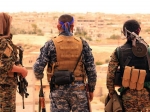 18.05.2017U.S. TO ARM KURDS IN SYRIA, DESPITE TURKISH OPPOSITION
18.05.2017U.S. TO ARM KURDS IN SYRIA, DESPITE TURKISH OPPOSITION
by The Kurdish Project
In an effort to retake ISIS’ last major stronghold, President Trump has approved arming Kurdish forces in Syria despite opposition from Turkey. The U.S. will supply the Kurdish elements of the American-backed Syrian Democratic Forces “as necessary,” Pentagon spokeswoman Dana White said in a statement Tuesday. Turkey views those Kurdish fighters in Syria as terrorists, or as allied with terrorists, because of their connection to the Kurdish PKK militant group, which wants to carve out its own independent state within Turkey. The U.S., however, views the Kurdish forces in Syria as some of the country’s best fighters and necessary to the upcoming offensive to retake Raqqa, the northeast Syrian city that ISIS considers its capital.
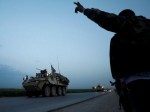 17.05.2017TRUMP TO ARM SYRIAN KURDS, EVEN AS TURKEY STRONGLY OBJECTS
17.05.2017TRUMP TO ARM SYRIAN KURDS, EVEN AS TURKEY STRONGLY OBJECTS
By MICHAEL R. GORDON and ERIC SCHMITT
President Trump has approved a plan to arm Syrian Kurds so they can participate in the battle to retake Raqqa from the Islamic State, a strategy that has drawn deep opposition from Turkey, a NATO ally. American military commanders have long argued that arming the Y.P.G., a Kurdish militia fighting alongside Syrian Arab forces against the Islamic State, is the fastest way to seize Raqqa, the capital of the militants’ self-proclaimed caliphate. And Mr. Trump, who made fighting Islamist militants a priority during his campaign, again showed the high regard he has for Pentagon generals by endorsing their advice when faced with a policy dilemma.
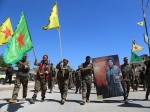 16.05.2017DONALD TRUMP'S DECISION TO ARM KURDISH FIGHTERS COULD HAVE PROFOUND IMPACT ON THE SYRIA CRISIS
16.05.2017DONALD TRUMP'S DECISION TO ARM KURDISH FIGHTERS COULD HAVE PROFOUND IMPACT ON THE SYRIA CRISIS
Patrick Cockburn
Syrian Kurds will now help defeat Isis in its de facto capital of Raqqa, but the move risks alienating the US's key Nato ally Turkey
President Trump’s decision to provide weapons to the Syrian Kurds, who are fighting Isis, potentially marks a crucial change in the political geography of the Middle East. In effect, the US is choosing to support its Kurdish ally in Syria, in defiance of Turkey, whose aim is to prevent the establishment of a quasi-independent Kurdish state there.
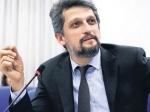 15.05.2017PAYLAN: TO THE PRESIDENCY OF THE GRAND NATIONAL ASSEMBLY OF TURKEY
15.05.2017PAYLAN: TO THE PRESIDENCY OF THE GRAND NATIONAL ASSEMBLY OF TURKEY
Armenian member of Turkish Parliament Garo Paylan recently presented a research proposal to the Presidency of the Grand National Assembly of Turkey, to examine the results of Turkey’s Temporary De- portation Law enacted on May 27, 1915. Below is Paylan’s official letter to the Presidency of the Grand National As- sembly, which also includes the legal grounds and rationale behind the proposal.
 11.05.2017THE WORLD’S MOST VALUABLE RESOURCE IS NO LONGER OIL, BUT DATA
11.05.2017THE WORLD’S MOST VALUABLE RESOURCE IS NO LONGER OIL, BUT DATA
The data economy demands a new approach to antitrust rules
A NEW commodity spawns a lucrative, fast-growing industry, prompting antitrust regulators to step in to restrain those who control its flow. A century ago, the resource in question was oil. Now similar concerns are being raised by the giants that deal in data, the oil of the digital era. These titans—Alphabet (Google’s parent company), Amazon, Apple, Facebook and Microsoft—look unstoppable. They are the five most valuable listed firms in the world. Their profits are surging: they collectively racked up over $25bn in net profit in the first quarter of 2017. Amazon captures half of all dollars spent online in America. Google and Facebook accounted for almost all the revenue growth in digital advertising in America last year.
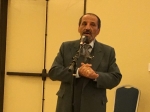 05.05.2017A LOOK AT JERUSALEM’S ARMENIAN HISTORY AT TCA PROGRAM
05.05.2017A LOOK AT JERUSALEM’S ARMENIAN HISTORY AT TCA PROGRAM
By Kevork Keushkerian
Tekeyan Cultural Association’s Glendale-Pasadena Chapter organized a lecture about “Today’s Armenian Community in Jerusalem.” It took place on Sunday, March 26, at Tekeyan’s Beshgeturian center. Asdghig Khanjian, a committee member, delivered the welcoming remarks and then introduced the lecturer, Dr. Minas Kojayan. The latter had spent the last two and a half years teaching Armenian language and history at the St. James Brotherhood Seminary and the Holy Translators School at the Armenian Convent in Jerusalem.
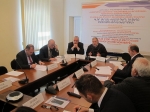 04.05.2017THE EAEU CAN BECOME THE CORE FOR CONTINENTAL ECONOMIC INTEGRATION
04.05.2017THE EAEU CAN BECOME THE CORE FOR CONTINENTAL ECONOMIC INTEGRATION
On April 28, in the "Noravank" Scientific and Educational Foundation, a round-table discussion was organized under the topic ''The Place and Role of the EAEU in the Multi-Vector World". During the event the activities of integration institutions in the Eurasian space, the prospect of their development and extension as well as the benefits from Armenia’s participation in them were discussed.
 03.05.2017AZERBAIJAN ACCUSED OF GIVING MILLIONS IN BRIBES TO COUNCIL OF EUROPE
03.05.2017AZERBAIJAN ACCUSED OF GIVING MILLIONS IN BRIBES TO COUNCIL OF EUROPE
By Harut Sassounian
For years, the government of Azerbaijan has been showering politicians and dignitaries from around the world with expensive gifts, such as silk carpets, gold, silver, caviar, cash, and all-expense paid trips in exchange for their votes in favor of Azerbaijan and against Armenia and Artsakh (Karabagh). This illicit practice is so prevalent that Europeans describe it as "caviar diplomacy.”
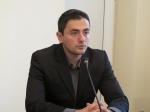 26.04.2017THE LAST DECADE OF GERMANY’S RUSSIA POLICY: CHANGE THROUGH THE PRISM OF OFFICIAL DOCUMENTS AND SPEECHES (2005-2016)
26.04.2017THE LAST DECADE OF GERMANY’S RUSSIA POLICY: CHANGE THROUGH THE PRISM OF OFFICIAL DOCUMENTS AND SPEECHES (2005-2016)
The paper was presented at the 75th Annual Midwest Political Science Association Conference, Chicago 2017, Panel Session: Text as Data in Foreign Policy: Op Code and Content Analysis
David Sarkisyan
The “neglected phenomenon” (Holsti, 2016) of change and restructuring in foreign policy has greatly increased in relevance against the background of recent years’ swift redirections in policy courses of a number of countries.
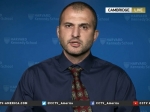 25.04.2017HOW U.S. AND RUSSIA CAN STUMBLE INTO WAR IN SYRIA
25.04.2017HOW U.S. AND RUSSIA CAN STUMBLE INTO WAR IN SYRIA
By Simon Saradzhyan
When U.S. Secretary of State Rex Tillerson arrived in Moscow earlier this month, he didn’t expect a particularly warm welcome and that was a for a reason. Tillerson’s visit came less than a week after Donald Trump ordered a missile attack on Syria’s Shayrat airfield on April 6 to punish Bashar al-Assad, whom Russia supports, for allegedly ordering use of chemical weapons against civilians.
 12.04.2017TRUMP’S ATTACK ON SYRIA: WRONG FOR SO MANY REASONS
12.04.2017TRUMP’S ATTACK ON SYRIA: WRONG FOR SO MANY REASONS
By Harut Sassounian
Many Americans and people around the world followed with great concern the off-the-cuff and zany ideas Donald Trump voiced during the presidential campaign and more ominously after becoming President.It is one thing to disagree with him on a domestic policy issue like banning Muslim tourists or healthcare or building a wall, it is quite another when he issues threats to foreign countries such as Iran and North Korea, and even worse when he orders a missile attack on Syria!
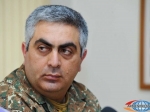 06.04.2017THE AMERICAN ANTI-MISSILE DEFENSE “OFFENSIVE”
06.04.2017THE AMERICAN ANTI-MISSILE DEFENSE “OFFENSIVE”
By: Artsrun Hovanissyan
SUMMARY: On 23 March 1983, President Ronald Reagan proposed a radical new nuclear doctrine of strategic defense officially known as Strategic Defense Initiative (SDI) dubbed as The Star Wars by the media., and thereby, abandoning the strategic offense doctrine, the Mutual Assured Destruction (MAD) which had been the governing cornerstone of US/Soviet tacit understanding. In 1984 the US Department of Defense set up the Strategic Defense Initiative Organization (SDIO) to oversee the SDI that was subsequently renamed in 1993 and 2002 respectively to Ballistic Missile Defense Organization and Missile Defense Agency (MDA).
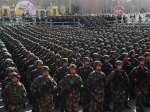 04.04.2017COULD GREAT WALL OF IRON BECOME NEW SILK ROADBLOCK?
04.04.2017COULD GREAT WALL OF IRON BECOME NEW SILK ROADBLOCK?
When the hype surrounding the Trump-Xi summit turns into a Mar-a-Lago fact on the ground next month, both presidents are bound to agree fully on at least one issue: “radical Islamic terror” – as per Trump terminology. Donald Trump has relied on a controversial Muslim “no-ban” ban that – in theory – would restrict the inflow of potential radical Islamists to US territory; his Chinese counterpart, Xi Jinping, meeting Xinjiang lawmakers on the sidelines of the annual session of the National People’s Congress in Beijing, has launched a “Great Wall of Iron” to protect China’s Far West.
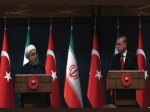 03.04.2017TENSION RISING BETWEEN REGIONAL RIVALS TURKEY AND IRAN
03.04.2017TENSION RISING BETWEEN REGIONAL RIVALS TURKEY AND IRAN
Tensions are on the rise between Turkey and Iran. A growing war of words between the countries’ diplomats has brought to the surface simmering competition for influence in the region. “Iran is an important neighbor to us. We have always been in dialogue with Iran. But it does not mean we will ignore Iran’s efforts in penetrating the region,” said Turkish presidential spokesman Ibrahim Kalin in the latest thinly veiled threat between the countries during his weekly news conference.
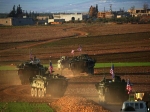 22.03.2017BATTLE FOR MANBIJ SHOWS SYRIA’S CIVIL WAR IS ALMOST OVER – AND IT LOOKS LIKE BASHAR ASSAD HAS WON
22.03.2017BATTLE FOR MANBIJ SHOWS SYRIA’S CIVIL WAR IS ALMOST OVER – AND IT LOOKS LIKE BASHAR ASSAD HAS WON
Isis is under military pressure on every side and it seems to be more than it can stand.
Winners and losers are emerging in what may be the final phase of the Syrian civil war as anti-Isis forces prepare for an attack aimed at capturing Raqqa, the de facto Isis capital in Syria. Kurdish-led Syrian fighters say they have seized part of the road south of Raqqa, cutting Isis off from its other territory further east.
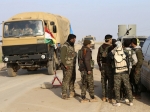 21.03.2017REGARDING THE STILL PENDING KURDISH QUESTION
21.03.2017REGARDING THE STILL PENDING KURDISH QUESTION
Viktor Mikhin
President of the Iraqi Kurdistan Region, Masoud Barzani, has recently stated that even without the approval of Baghdad, the autonomy shall eventually have to hold a referendum on independence. According to him, the people of Iraqi Kurdistan have a “natural right” to hold a referendum on independence. In this regard, it should be pointed out that, despite the persuasions of the West, Iraqi Kurdistan has in recent years repeatedly stated its intention to hold a plebiscite on independence.
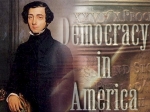 17.03.2017THE CONTROVERSY OVER THE “TOCQUEVILLIAN DEMOCRACY”: CONSIDERATIONS ON THE “THIRD” VOLUME OF DEMOCRACY IN AMERICA
17.03.2017THE CONTROVERSY OVER THE “TOCQUEVILLIAN DEMOCRACY”: CONSIDERATIONS ON THE “THIRD” VOLUME OF DEMOCRACY IN AMERICA
Sargis Shirkhanyan
Alexis de Tocqueville is one of those thinkers whose theoretical legacy has been considered as certainly relevant to and truly pivotal for the development of a number of scientific disciplines. A prominent 19th century publicist Sainte-Beuve in one of his famous essays prophesied that Tocqueville would be an inexhaustible subject of reflection for the generations to come and today we may affirm that the time has proved him right.
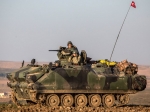 16.03.2017TURKEY RISKS ISOLATION AS IT APPROACHES MANJIB
16.03.2017TURKEY RISKS ISOLATION AS IT APPROACHES MANJIB
Salman Rafi Sheikh
Despite the success of the combined forces of Russia, Syria and Iran in Syria against Daesh and other terror networks, the war in Syria is intensifying. This intensification, however, is not due to the continued existence and strength of the proxy militias but a result of the way external actors, especially the US and Turkey, are trying to shape the Syrian territory into “zones”. While both of these countries are pursuing a “safe zone” strategy, they differ in their ulterior objectives greatly—something that is now turning into a confrontation.
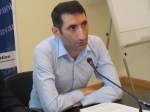 15.03.2017ANTI-ARMENIAN ACTIVITIES OF THE UNIVERSITY “ARMENOLOGICAL” DEPARTMENTS AND ANALITYCAL CENTRES IN TURKEY
15.03.2017ANTI-ARMENIAN ACTIVITIES OF THE UNIVERSITY “ARMENOLOGICAL” DEPARTMENTS AND ANALITYCAL CENTRES IN TURKEY
Arestakes Simavoryan
In foreign countries Armenian Studies in general have a number of important functions for Armeniancy, but in some cases they are distorted and made to serve anti-Armenian and anti-Armenological purposes. Today there are such “Armenological” centers abroad activities of which are different from others and have an adverse context. They can be described as anti-Armenological or pseudo-Armenological centers since they are engaged in anti-Armenian, anti-scientific and anti-propaganda activities. Such institutions have been founded and operate in Turkey, Azerbaijan, and with their initiation and sponsorship, also in some other countries.
 14.03.2017CLASH OF CIVILIZATIONS OR CLASH OF INTERESTS? REDEFINING THE CLASH AND REDEFINING THE CIVILIZATION
14.03.2017CLASH OF CIVILIZATIONS OR CLASH OF INTERESTS? REDEFINING THE CLASH AND REDEFINING THE CIVILIZATION
Anahit Parzyan
In the current world order, where nation states are no longer the only major players of the International Relations, but the emerged, developed super and supra-powers, there is a need to evaluate and define the scope of interests and possible clashes as results of those interests. Samuel Huntington in his article “The Clash of Civilizations?” describes the World a place where in future states will clash based on differences in Civilizations. According to him, differences of the civilizations will stand as the main reason for the clash.
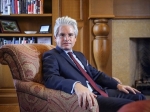 13.03.2017THE CLINTON SYSTEM TO DISCREDIT DONALD TRUMP
13.03.2017THE CLINTON SYSTEM TO DISCREDIT DONALD TRUMP
by Thierry Meyssan
This article is a warning - in November 2016, a vast system of agitation and propaganda was set up in order to destroy the reputation and the authority of President Donald Trump as soon as he arrived in the White House. It is the first time that such a campaign has been scientifically organised against a President of the United States, and with such resources. Yes, we are indeed entering a post-Truth age, but the distribution of rôles is not what you may think it is.
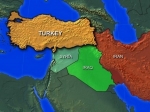 10.03.2017MIDDLE EAST KNOT: SILHOUETTES OF NEW STATES
10.03.2017MIDDLE EAST KNOT: SILHOUETTES OF NEW STATES
Today, this subject is considered to be “unseemly” or, at least, “not appropriate.” But the fact is that there already are “zones of responsibility” in the Syrian-Iraqi crisis region. Aleppo and Palmira are the Russian-Alawite zone, al-Bab and the north of the province of Aleppo province are the Turkish-opposition zone and Mosul is the U.S.-Shia zone – quite enough for one to doubt that Syria and Iraq will retain their territorial integrity even if ISIL is routed.
 09.03.2017MUTUAL ASSURED DETERRENCE
09.03.2017MUTUAL ASSURED DETERRENCE
Sergei Karaganov
The degradation of governance within the international system is a hot topic nowadays – and for good reason. The underpinnings of the rules-based world order are crumbling, and basic norms of international behavior and decency are in decay. By almost any definition, we seem to be living in a dangerous – even prewar – type of world.
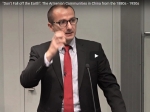 07.03.2017“DON’T FALL OFF THE EARTH”: THE ARMENIAN COMMUNITIES IN CHINA FROM THE 1880S – 1950S
07.03.2017“DON’T FALL OFF THE EARTH”: THE ARMENIAN COMMUNITIES IN CHINA FROM THE 1880S – 1950S
From the 1880s to the 1950s, the Chinese cities of Harbin and Shanghai were host to communities of Armenians. The backgrounds of these Chinese-Armenians, their socio-economic developments, the links to their identity, and the sudden disbanding of their communities as a result of the communist takeover of China, have to date been relatively understudied. The Programme of Armenian Studies was therefore delighted to host Dr Khatchig Mouradian in London, to speak on this topic at a lecture chaired by Leon Aslanov of the Programme of Armenian Studies.
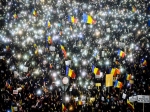 03.03.2017AFTER TRUMP WIN, ANTI-SOROS FORCES ARE EMBOLDENED IN EASTERN EUROPE
03.03.2017AFTER TRUMP WIN, ANTI-SOROS FORCES ARE EMBOLDENED IN EASTERN EUROPE
By RICK LYMAN
BUDAPEST — Emboldened by encouraging signals from the Trump administration, populist leaders across Central and Eastern Europe are mounting simultaneous crackdowns on nongovernmental organizations, once protected by Washington, that promote open government, aid refugees and often serve as checks on authoritarian governments.
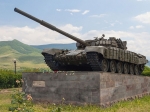 02.03.2017PRISONER OF THE CAUCASUS
02.03.2017PRISONER OF THE CAUCASUS
Alexander Clapp
TUCKED IN the borderland between Europe and Asia sits a nation-state recognized by seven American states, New South Wales, the Basque parliament, Abkhazia, Ossetia and Transnistria, but by no country—its chief financier and defender, Armenia, included. Six hours’ drive southeast of Yerevan, you reach it through a series of dry ochre canyons that give way to rolling green steppe. At the immense skyline of the Lesser Caucasus, you cross a passport control governing no official border and a time-zone change that goes unacknowledged.
 28.02.2017MODERN MIGRATIONS: NEW TERRITORIES, NEW BORDERS
28.02.2017MODERN MIGRATIONS: NEW TERRITORIES, NEW BORDERS
Aram Vartikyan
Movement from one settlement to another has followed the humankind throughout the whole history. Among the conceptions that address formation, development and fall of civilizations there are specific ones that choose migration as a descriptive element. Probably, there is no single historical period, civilization, state that has not dealt with migration. In this respect, the 20th century is notable, with migration flows taking place since its very beginning period.
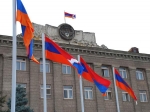 27.02.2017RENEWED CONFLICT OVER NAGORNO-KARABAKH
27.02.2017RENEWED CONFLICT OVER NAGORNO-KARABAKH
Contingency Planning Memorandum No. 30
The likelihood that Armenians and Azerbaijanis will clash over Nagorno-Karabakh in the next twelve months is high. The situation remains tense following fierce fighting in April 2016 that marked the worst bloodshed since the 1994 cease-fire that established the current territorial division
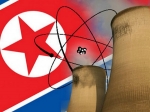 23.02.2017THE DPRK’S NUCLEAR ISSUE: VIEWS FROM BEIJING, PYONGYANG AND SEOUL
23.02.2017THE DPRK’S NUCLEAR ISSUE: VIEWS FROM BEIJING, PYONGYANG AND SEOUL
Mher Sahakyan
China’s government, as headed by President Xi Jinping, has deepened China-DPRK (Democratic People’s Republic of Korea or North Korea) economic relations. The main aim of China’s leadership in domestic Chinese affairs is to improve the economic situation in China’s entire regions. One of the new ideologies of China is the Chinese Dream, (中国梦, Zhongguo meng), which aims to create better living conditions for all Chinese citizens. From the perspective of Beijing, it is necessary to develop economic ties between China’s northeastern regions and the DPRK for the development of those regions.
 21.02.2017USING THE PRESS AND THE JUDICIAL SYSTEM AGAINST TRUMP & FILLON
21.02.2017USING THE PRESS AND THE JUDICIAL SYSTEM AGAINST TRUMP & FILLON
by Thierry Meyssan
How not to be struck by the resemblance between the campaigns aimed at shooting down Donald Trump and François Fillon? How can we fail to observe that these two men, with their very different personalities and ideologies, threaten the same interests? At the same time, very large press campaigns are developing in the Western world against both US President Donald Trump and, to a lesser extent, against French presidential candidate François Fillon. The former is accused of being an irresponsible white supremacist; the second is accused of having committed what is described as a moral fault not sanctioned by law.
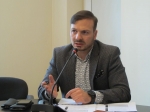 20.02.2017PRAXIS OF INCREASING PUBLIC TRUST TOWARD BUREAUCRACIES: IN SEARCH OF COMPETITIVE PRACTICES OF STAKEHOLDER ENGAGEMENT IN HIGHER EDUCATION INSTITUTIONS OF ARMENIA
20.02.2017PRAXIS OF INCREASING PUBLIC TRUST TOWARD BUREAUCRACIES: IN SEARCH OF COMPETITIVE PRACTICES OF STAKEHOLDER ENGAGEMENT IN HIGHER EDUCATION INSTITUTIONS OF ARMENIA
Robert Khachatryan
The 21st century may very well become known as the century of globalization. The surge and process of globalization, the “spirit of the time” for democracy (Diamond 2008b), the escalating importance of ideologies and the pursuit to construct, safeguard and sustain democracy, and a sense of group identities (including national identity, cultural identity, political identity, educational identity, among the most significant ones) elucidate much of what is going on in the world nowadays. Furthermore, a changed understanding of the relations between the state and society demands extensive streamlining in the practices of democracy and bureaucracy in the 21st century.
 15.02.2017REMEMBERING RONALD REAGAN
15.02.2017REMEMBERING RONALD REAGAN
Areg Galstyan
America celebrates the 106th birthday of Ronald Reagan — one of the greatest politicians in the history of mankind. He became a symbol of the republican conservatism and American exceptionalism. It is not surprising that many contemporary politicians try to be like him, because Reagan is synonymous with courage, strength and determination. After analyzing his way of life, we can find the answer to the question: «Why did the 40th President of the United States leave a deep trace in the US and world political history?». In 1937, he began his career in Hollywood, where the Warner Bros. company offered him a one-year contract with an option to extend it up to seven years.
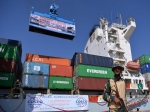 13.02.2017GAME-CHANGERS AHEAD ON THE (LONG) MARITIME SILK ROAD
13.02.2017GAME-CHANGERS AHEAD ON THE (LONG) MARITIME SILK ROAD
By Pepe Escobar
Despite the Pentagon's predictably shrill notes, both China and India are only interested in making deals to expand and protect their supply chains.
From the Bab al-Mandab to the strait of Malacca, from the strait of Hormuz to the strait of Lombok, all the way to the key logistical hub of Diego Garcia 2,500 miles southeast of Hormuz, the question pops up: How will the unpredictable new normal in Washington – which is not exactly China-friendly – affect the wider Indian Ocean?
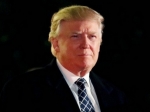 09.02.2017ANTI-DONALD TRUMP: WAR PROPAGANDA
09.02.2017ANTI-DONALD TRUMP: WAR PROPAGANDA
by Thierry Meyssan
Our previous articles concerning President Trump have caused some fierce reactions from our readers. Some of them have been wondering about the naïvety apparently displayed by Thierry Meyssan despite the warnings issued by the international Press and the accumulation of negative signals. Here is his response, well-reasoned as always.
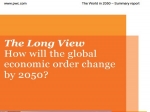 08.02.2017THE LONG VIEW / HOW WILL THE GLOBAL ECONOMIC ORDER CHANGE BY 2050?
08.02.2017THE LONG VIEW / HOW WILL THE GLOBAL ECONOMIC ORDER CHANGE BY 2050?
In this report, we present our latest long-term economic growth projections, providing an update to our 2015 results. We project GDP to 2050 for 32 of the largest economies in the world, which together currently account for around 85% of global GDP. We hope this analysis will be of interest to policymakers around the world, businesses making long-term investments, academics, students and economic commentators. These long-term growth projections will also feed into other PwC projects and reports.
 06.02.2017TOWARD A NEW EQUILIBRIUM IN U.S.-RUSSIAN RELATIONS
06.02.2017TOWARD A NEW EQUILIBRIUM IN U.S.-RUSSIAN RELATIONS
Thomas E. Graham
President Trump will face no more urgent foreign-policy task than developing a Russia policy. His warm words for Russian president Vladimir Putin and his questioning of long-standing bipartisan U.S. policy have alarmed key foreign-policy constituencies at home and allies and partners abroad, while raising hopes in the Kremlin of a new beginning more favorable to Russia. Other statements, however, such as supporting increased funding for the modernization of nuclear-weapons infrastructure and decrying the Iran nuclear deal, suggest a harder approach.
 01.02.2017TRUMP – ENOUGH OF 9/11!
01.02.2017TRUMP – ENOUGH OF 9/11!
by Thierry Meyssan
Donald Trump refused to don the Presidential uniform of his predecessors, and dedicated his speech of investiture to mocking the System and announcing a change of paradigm. He has built his Security team around two themes – the eradication of Daesh and the opposition to 11 September – two characteristics which are aimed at putting an end to the process of globalisation.
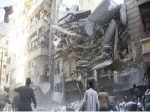 30.01.2017THE TRAGEDIES OF SYRIA SIGNAL THE END OF THE ARAB REVOLUTIONS
30.01.2017THE TRAGEDIES OF SYRIA SIGNAL THE END OF THE ARAB REVOLUTIONS
Russia is established in the Middle East and Assad is back in control in Syria. Whatever happened to the Arab Spring? Just as the catastrophic Anglo-American invasion of Iraq brought an end to epic Western military adventures in the Middle East, so the tragedy of Syria ensures that there will be no more Arab revolutions.
 26.01.2017RISKS AND OPPORTUNITIES FOR 2017
26.01.2017RISKS AND OPPORTUNITIES FOR 2017
Just a few days into 2017 and we can already say with a great degree of confidence that 2017 will be a historical year. Furthermore, I submit that 2017 will be the “Year of Trump” because one of roughly three things will happen: either Trump will fully deliver on his threats and promises, or Trump deliver on some, but far from all, his threats and promises or, finally, Trump will be neutralized by the Neocon-run Congress, media, intelligence community. He might even be impeached or murdered. Of course, there is an infinity of sub-possibilities here, but for the purpose of this discussion I will call the first option “Trump heavy”, the second one “Trump light” and the third one “Trump down”.
 23.01.2017WHY TRUMP SHOULD RECOGNIZE THE ARMENIAN GENOCIDE
23.01.2017WHY TRUMP SHOULD RECOGNIZE THE ARMENIAN GENOCIDE
By Areg Galstyan
This past week, a report on how Donald Trump's administration should build a political dialogue with Turkey was published at the website of the Washington Institute for Near East Policy. The authors of this work are James F. Jeffrey, the former U.S. ambassador to Turkey during the presidency of George W. Bush (2008-2010), and Soner Cagaptay, the director of the Turkish Research Program at The Washington Institute. Recommendations of the authors cover a wide range of geopolitical issues that the United States and Turkey should solve by joining their efforts.
 19.01.2017POLICY CONVERGENCE ISSUES WITHIN HIERARCHICAL INTERNATIONAL SYSTEMS: ON SOME ASPECTS OF THE RUSSIAN-ARMENIAN DEFENSE AND SECURITY PARTNERSHIP
19.01.2017POLICY CONVERGENCE ISSUES WITHIN HIERARCHICAL INTERNATIONAL SYSTEMS: ON SOME ASPECTS OF THE RUSSIAN-ARMENIAN DEFENSE AND SECURITY PARTNERSHIP
Vahagn Aglyan
Phenomenon of hegemony in international relations continues to evolve both conceptually and empirically, reflecting the dynamic features and aspects of the 21st century’s transformations. As a type of rule and a certain form of relations, hegemony at the global, as well as regional levels presupposes existence of several structural “preconditions” to acquire a relatively sustainable character. Historically, hegemony rested on premise of existence of subordinate relationships between the preponderant power and subordinate state(s) whereby the hegemonic power structures the regional/ international context to conform its longer term interests and preferences.
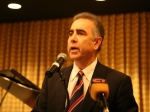 18.01.2017IMPROVED RUSSIAN US RELATIONS MAY BE HELPFUL TO ARMENIA
18.01.2017IMPROVED RUSSIAN US RELATIONS MAY BE HELPFUL TO ARMENIA
By Harut Sassounian
Last November, Americans elected the unlikeliest presidential candidate, Donald J. Trump. He is not your typical politician. As a successful and prominent businessman, he is used to making off- the- cuff remarks and not subscribing to any particular direction. Given the controversial nature of the Trump Presidency, domestic and international relations may drastically change. President Trump has already revised his position on some major campaign promises: expelling illegal aliens, building a wall between Mexico and the United States, and not allowing immigrants from Islamic countries to visit the United States. President Trump has also altered his position regarding serious, international issues. President Trump may not be sure himself what positions he would take on a variety of foreign policy issues.
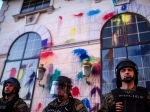 16.01.2017“COLOR REVOLUTIONS”
16.01.2017“COLOR REVOLUTIONS”
Gagik Harutyunyan
In information space it is common to use the term “color revolutions” in reference to pre-mediated array of protests in various countries resulting in overthrow of the government. Actions with information/psychological impact and their resultant effects are widely used in such processes. Among the “color revolutions” the following are classical examples:
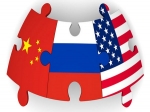 11.01.2017HOW TO ADDRESS STRATEGIC INSECURITY IN A TURBULENT AGE
11.01.2017HOW TO ADDRESS STRATEGIC INSECURITY IN A TURBULENT AGE
Zbigniew Brzezinski
Since the end of the last major world war some 70 years ago, international peace has been preserved by the threat of the nuclear bomb. Because of its unique and unilateral ability to devastate the world, the bomb fundamentally changed the realities of international politics. However, its impact on global stability began to fade as more countries developed similarly destructive capabilities.
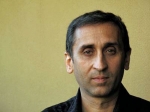 27.12.2016THE EAST ALEPPO SYNDROME
27.12.2016THE EAST ALEPPO SYNDROME
by Thierry Meyssan
While the major powers who were supervising the jihadists in East Aleppo pretend to take interest in the fate of the inhabitants of the city - so as to exfiltrate their own soldiers - no-one seems to understand the drama that these Syrians have endured. Contrary to Western declarations, they have not suffered from the bombing so much as they have from the occupation of foreign jihadists and the reign of their «sharia». Some citizens suffer from a serious psychotic problem, the East Aleppo Syndrome.
 26.12.2016INFORMATION WARFARE OF THE NEW FORMATION
26.12.2016INFORMATION WARFARE OF THE NEW FORMATION
Gagik Harutyunyan, Sergey Grinyaev, Hrachya Arzumanyan
The dynamism of modern developments prompts geopolitical actors to develop new military-political concepts and technologies of their application as soon as possible. However, innovations in this area in no way imply abandoning old concepts, as the former enrich the latter and facilitate shaping a complex and effective new overall strategy. This pattern is especially evident in concepts of information warfare (IW), and therefore, the analysis of evolution of approaches to IW appears quite topical. Without referring to Martin Libicki’s canonical definitions of first-generation IW, a pivot point to be taken in this analysis is going to be the perspective of RAND Corporation experts that consider IW a self-contained activity, regardless of whether there are ongoing military actions or not. Effectiveness and efficiency of new formation IW under this logic are often significantly higher than those of the traditional wars in past.
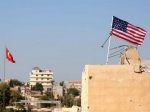 20.12.2016BEYOND THE MYTH OF PARTNERSHIP: RETHINKING U.S. POLICY TOWARD TURKEY
20.12.2016BEYOND THE MYTH OF PARTNERSHIP: RETHINKING U.S. POLICY TOWARD TURKEY
Amid continued threats to U.S. national security and interests emanating from the Middle East, the promise of partnership and cooperation with Turkey will remain—as it has for the past two administrations—an alluring option for American policymakers. It is incredibly unlikely, however, that the U.S.-Turkish relationship can yield any strategic benefit at this point. The incoming administration, rather than remain bound by an increasingly infeasible commitment to a U.S.-Turkish partnership, should recognize the reality and profundity of the challenges confronting Turkey, recalibrate relations to increase U.S. leverage, and focus its energy on the ongoing erosion of Turkish democracy.
 16.12.2016THE SIPRI TOP 100 ARMS-PRODUCING AND MILITARY SERVICES COMPANIES, 2015
16.12.2016THE SIPRI TOP 100 ARMS-PRODUCING AND MILITARY SERVICES COMPANIES, 2015
This SIPRI Fact Sheet lists the top 100 arms-producing and military services companies in 2015 and describes the international arms sales trends that unfolded during the year. Although there was a slight decrease in arms sales revenues when compared to the previous year, profits in 2015 were still 37 per cent higher than in 2002, when SIPRI began recording such data.
 14.12.2016PRO-AZERI AND PRO-TURKISH WRITERS DENIGRATE ARMENIA AND DIASPORA
14.12.2016PRO-AZERI AND PRO-TURKISH WRITERS DENIGRATE ARMENIA AND DIASPORA
By Harut Sassounian
Turkish and Azeri circles were displeased with my latest column where I had analyzed Vice President-elect Mike Pence’s phone call to Armenia’s President Serzh Sargsyan. Azerbaijan’s Trend news agency published a ridiculous article by Elmira Tariverdiyeva, titled: “Yerevan’s failed phone call or why Trump did not respond.” She is the head of Trend’s Russian-language news service.
 05.12.2016FRANCE AND TURKEY AGAINST THE KURDS
05.12.2016FRANCE AND TURKEY AGAINST THE KURDS
by Thierry Meyssan
The Western medias are unable to explain the wars which are shattering the «complicated Orient» because they refuse to see them in the regional context. Rather than discussing whether the events in Syria are a revolution, a civil war or an aggression, or whether or not the repression in Turkey is justified, Thierry Meyssan proposes another reading of the facts by presenting the example of the Kurds.
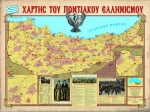 02.12.2016CRYPTO-CHRISTIAN GREEKS OF PONTUS- BETWEEN ISLAM AND CHRISTIANITY
02.12.2016CRYPTO-CHRISTIAN GREEKS OF PONTUS- BETWEEN ISLAM AND CHRISTIANITY
Zeynep Türkyılmaz
While the situation of Hemshin people, Muslim Armenians in the Black Sea region is becoming increasingly well known, the question of the Greeks in Turkey remains largely taboo or unrecognized. Called Roums in Turkey, Ottoman Greeks in Greece, these heirs of the Byzantine Empire were expelled in 1923 following a vast operation of exchange of population with Greece which ended the war between the two countries.
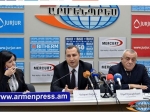 22.11.2016LOSSES OF ARMENIAN COMMUNITIES IN MIDDLE EAST ARE GREAT, HARD TO RECOVER
22.11.2016LOSSES OF ARMENIAN COMMUNITIES IN MIDDLE EAST ARE GREAT, HARD TO RECOVER
The existence/survival issue of Armenian communities is very acute during the last decades in the Middle East, senior expert of the center of Armenian studies of Noravank scientific-educational foundation Vahram Hovyan told a press conference in ARMENPRESS.
 21.11.2016CAN TRUMP SUCCEED?
21.11.2016CAN TRUMP SUCCEED?
by Thierry Meyssan
While the Atlantist Press persists in projecting onto Donald Trump the artificial debates that Hillary Clinton imposed during the campaign, and while the calls to assassinate the elected President multiply, Trump is preparing to change the paradigm, and overthrow the Puritan ideology that has dominated his country for two centuries. But can he succeed?
 16.11.2016ARMENIANS SHOULD REACH OUT TO TRUMP THROUGH REPUBLICAN FRIENDS IN CONGRESS
16.11.2016ARMENIANS SHOULD REACH OUT TO TRUMP THROUGH REPUBLICAN FRIENDS IN CONGRESS
By Harut Sassounian
An unprecedented U.S. presidential campaign came to an end with the unexpected victory of Donald Trump! Since the November 8 elections, there has been endless speculation by self-styled Armenian analysts about the President-elect’s business ties with Azerbaijan and Turkey, wrongly concluding that he would side with Armenia’s enemies! Since Trump has made no comments on Armenian issues, no one can really know what his position is likely to be….
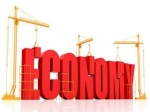 11.11.2016TURKISH ECONOMY IN THE HOLE OF THE CRISIS: INVESTORS FLEEING
11.11.2016TURKISH ECONOMY IN THE HOLE OF THE CRISIS: INVESTORS FLEEING
Turkey is facing one of the most alarming periods of its modern history. Even though the local regime has survived the July coup attempt, has made it up with global powers and has even gained an “own niche” in the Syrian conflict, it is unable to solve its economic problems as many foreign investors are being scared off by President Recep Tayyip Erdogan’s plans to switch from the parliamentary to presidential rule and thereby to gain undivided authority.
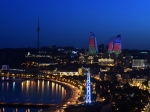 09.11.2016AZERBAIJAN AT TWENTY-FIVE: A NEW ERA OF CHANGE AND TURBULENCE
09.11.2016AZERBAIJAN AT TWENTY-FIVE: A NEW ERA OF CHANGE AND TURBULENCE
Azerbaijan is entering a new historical phase. The oil boom—which boosted the economy, consolidated the country’s statehood, and gave it a new international profile—has ended. The country’s leaders have more limited financial resources to offer a society that is not as politically quiescent as it was a decade ago and where new forms of opposition, such as political Islam, are slowly emerging. For the authorities, their chief dilemma is whether they can carry out economic liberalization to revive the economy without resorting to political liberalization, which they fear will undermine their power.
 08.11.2016NON-STATE COMBATANTS IN CONFLICTS OF A NEW GENERATION. LESSONS LEARNED AND OPPORTUNITIES FOR RUSSIA
08.11.2016NON-STATE COMBATANTS IN CONFLICTS OF A NEW GENERATION. LESSONS LEARNED AND OPPORTUNITIES FOR RUSSIA
Vladimir Neelov
The end of the Cold war and the disappearance from the political map of the world the Soviet Union has not led to the "end of history" and the end of major confrontations with the use of military force, as it was predicted by many Western idealistic thinkers, led by Francis-girl fighting. Decades since the collapse of the USSR was accompanied by wars and armed conflicts of varying intensity, the annual number of which is somewhat decreased in comparison with 1991, but in recent years has been a steady growth trend.
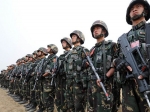 07.11.2016HOLD ON, DAMASCUS, CHINESE CAVALRY IS COMING
07.11.2016HOLD ON, DAMASCUS, CHINESE CAVALRY IS COMING
Martin Berger
A recent chain of events in the Middle East has resulted in China becoming actively engaged in the settlement of the Syrian conflict. The primarily reason behind this development is the ever increasing activity of Uighur terrorists from the East Turkestan Islamic Movement (ETIM), which, according to a report presented by The Long War Journal, has been fighting government forces in Syria along with ISIS. Moreover, it’s been reported that ETIM militants are involved in the ongoing battle for Aleppo. This group is well known across the globe for its close ties with al-Qaeda and its continuous calls for separatism within the Xinjiang Uygur Autonomous Region (XUAR) of China.
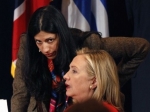 03.11.2016E-MAILS - HILLARY CLINTON AND THE MUSLIM BROTHERHOOD
03.11.2016E-MAILS - HILLARY CLINTON AND THE MUSLIM BROTHERHOOD
by Thierry Meyssan
The FBI investigation into Hillary Clinton’s private e-mails is not directed at a case of negligence in the face of security regulations, but at a conspiracy attempting to eliminate any trace of her correspondence which should have been archived on the servers of the Federal State. It could include exchanges about illegal financing or corruption, and others concerning the links between the Clintons, the Muslim Brotherhood and the jihadists.
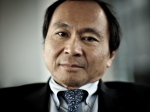 01.11.2016AMERICAN POLITICAL DECAY OR RENEWAL?
01.11.2016AMERICAN POLITICAL DECAY OR RENEWAL?
The Meaning of the 2016 Election
By Francis Fukuyama
Two years ago, I argued in these pages that America was suffering from political decay. The country’s constitutional system of checks and balances, combined with partisan polarization and the rise of well-financed interest groups, had combined to yield what I labeled “vetocracy,” a situation in which it was easier to stop government from doing things than it was to use government to promote the common good. Recurrent budgetary crises, stagnating bureaucracy, and a lack of policy innovation were the hall¬marks of a political system in disarray.
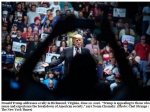 27.10.2016NOAM CHOMSKY ON THE BREAKDOWN OF AMERICAN SOCIETY AND A WORLD IN TRANSITION
27.10.2016NOAM CHOMSKY ON THE BREAKDOWN OF AMERICAN SOCIETY AND A WORLD IN TRANSITION
The US is facing uncertain times. While it remains the only global superpower, it is no longer able to influence events and outcomes to its liking, at least not for the most part. Frustration and worry about the risk of upcoming disasters seem to far outweigh US voters' hopes for a more rational and just world order. Meanwhile, Noam Chomsky argues, the rise and popularity of Donald Trump is occurring due to the fact that US society is breaking down.
 26.10.2016WIKILEAKS REVEALS HILLARY CLINTON’S EMAIL EXCHANGES ON ARMENIAN ISSUES
26.10.2016WIKILEAKS REVEALS HILLARY CLINTON’S EMAIL EXCHANGES ON ARMENIAN ISSUES
By Harut Sassounian
The whole world is following with great interest the flood of internal emails released by WikiLeaks: over 400,000 emails of the Turkish ruling party (AKP), 2.8 million U.S. diplomatic emails, over 30,000 emails sent or received by Hillary Clinton while she was Secretary of State, and 27,000 emails and attachments hacked from the Democratic National Committee.
 25.10.2016THE COST OF DOWNGRADING
25.10.2016THE COST OF DOWNGRADING
by Thierry Meyssan
Washington is attempting to hold to its positions without having to start a Third World War, but it looks like an impossible task. Moscow is offering the United States a safe exit in Syria and Yemen. But if they should choose this option, they would be obliged to abandon some of their allies.
 19.10.2016ONCE AGAIN, THE FRENCH LEGISLATURE BANS DENIAL OF THE ARMENIAN GENOCIDE
19.10.2016ONCE AGAIN, THE FRENCH LEGISLATURE BANS DENIAL OF THE ARMENIAN GENOCIDE
By Harut Sassounian
Both Houses of the French Legislature have once again adopted a law that penalizes the denial of genocides recognized by French or international courts, or the denial, minimization or extreme trivialization of other genocides or Crimes Against Humanity, if accompanied by incitement to violence or hatred. The French Senate approved the new law by a vote of 156 to 146 on October 14, following the Parliament’s approval by a vote of 305-157 on July 6. The law will go into effect after Pres. François Hollande signs it, which he is committed to do.
 11.10.2016MORE BENEFICIAL TO SUPPORT MEMBERS OF CONGRESS THAN VOTE FOR PRESIDENT
11.10.2016MORE BENEFICIAL TO SUPPORT MEMBERS OF CONGRESS THAN VOTE FOR PRESIDENT
By Harut Sassounian
There is widespread dissatisfaction and mistrust among the American public toward the two main presidential candidates: Hillary Clinton and Donald Trump. Armenian-Americans likewise are negatively disposed toward these candidates. More specifically, on Armenian issues Mrs. Clinton has shown that she cannot be trusted, while Donald Trump’s position is unknown.
 28.09.2016CAMPAIGN CONTRIBUTION…OR LEGAL BRIBERY?
28.09.2016CAMPAIGN CONTRIBUTION…OR LEGAL BRIBERY?
By Harut Sassounian
This column is mostly intended for readers outside the United States who may not be familiar with U.S. campaign contribution laws. Interestingly, even Americans are often confused about the complex regulations regarding limits of political contributions that are different in local, state and federal elections.
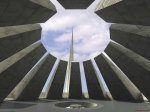 15.09.2016PAN-TURANISM, NOT ISLAM, MOTIVATED THE ARMENIAN GENOCIDE
15.09.2016PAN-TURANISM, NOT ISLAM, MOTIVATED THE ARMENIAN GENOCIDE
By Harut Sassounian
A recently published book “Remembering for the Future: Armenia, Auschwitz, and Beyond,” edited by Michael Berenbaum, Richard Libowitz, and Marcia Sachs Littell, is a collection of scholarly papers delivered at a conference held at the American Jewish University in Los Angeles, March 8-11, 2014.
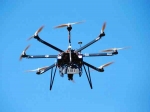 13.09.2016SITUATIONAL AWARENESS IN UNMANNED AERIAL VEHICLE (UAV) INFRASTRUCTURES
13.09.2016SITUATIONAL AWARENESS IN UNMANNED AERIAL VEHICLE (UAV) INFRASTRUCTURES
David Davidian
Collaboration and sharing of data across the command structure continues to be a crucial factor in UAV systems. What was once a simple command console is now challenged by the number of simultaneous, in-theater UAVs, and the enormous increase in telemetrics, especially high quality video and Synthetic Aperture RADAR (SAR) data that must be assimilated and shared for maximizing and optimizing the infrastructure's effectiveness.
 08.09.2016TURKEY CONSPIRED WITH ISIS IN ITS DECEPTIVE INVASION OF SYRIA
08.09.2016TURKEY CONSPIRED WITH ISIS IN ITS DECEPTIVE INVASION OF SYRIA
By Harut Sassounian
Syria has been the hub of shifting international military and political intrigues since the start of the ‘civil war’ in 2011. The diverse conflicting sides include: Hezbollah, Iran, Islamic State (ISIS), Israel, Jordan, Kurdish fighters, Lebanon, Qatar, Russia, Saudi Arabia, assorted terrorists from around the world, Syria, Syrian opposition groups, Turkey, the United States, and other NATO states.
 05.09.2016CHINA AND SYRIA
05.09.2016CHINA AND SYRIA
by Thierry Meyssan
Although we don’t know the details of what was agreed between the Chinese and Syrian armies, the existence of an agreement between them has modified both the battle-field and the balance of international relations. Last year, the Anglo-Saxon secret services broadcast a number of hair-brained interpretations of this same subject – today, Thierry Meyssan gives a precise analysis of the important points.
 02.09.2016KURDS FEEL WRATH DURING EXTENDED TURKISH PURGE
02.09.2016KURDS FEEL WRATH DURING EXTENDED TURKISH PURGE
In the shadow of a countrywide purge and campaign of arrests following last month’s failed coup d’etat, Turkey has escalated its operations in restive Kurdish districts. Around the country, in bus stations, on billboards and in the media, ads have been pulled down and replaced with images of the Turkish flag and slogans pledging allegiance to the nation. On August 7th, a huge rally in Istanbul saw the leaders of three major political parties – once opponents – share a stage to declare the importance of protecting the state.
 01.09.2016ANALYSIS: TURKEY’S POTENTIALLY MOMENTOUS SHIFT ON ASSAD
01.09.2016ANALYSIS: TURKEY’S POTENTIALLY MOMENTOUS SHIFT ON ASSAD
CAIRO – For five years fighting has raged in Syria, a globally resonant nightmare kept going in part by the insistence of Bashar Assad’s opponents that he must go even despite their battlefield failures to force him from power. Now an inflection point may be at hand, with powerful opposition backer Turkey suggesting Assad, despite his brutality in the war, could play a role in an unspecified transition period.
 27.07.2016WHICH VP CANDIDATE HAS A BETTER RECORD ON ARMENIAN GENOCIDE RECOGNITION?
27.07.2016WHICH VP CANDIDATE HAS A BETTER RECORD ON ARMENIAN GENOCIDE RECOGNITION?
By Harut Sassounian
Now that Hillary Clinton and Donald Trump have selected their vice presidential candidates, Armenian Democrats are claiming that Sen. Tim Kaine has the better record on recognition of the Armenian Genocide, while Republican Armenians are insisting that Gov. Mike Pence is the clear-cut favorite on this issue. The more important question is: does it really matter?
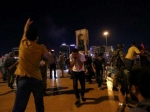 20.07.2016TURKISH COUP D’ÉTAT STILL IN PROGRESS: CONFLICT KEEPS TURKEY IN TURMOIL
20.07.2016TURKISH COUP D’ÉTAT STILL IN PROGRESS: CONFLICT KEEPS TURKEY IN TURMOIL
By Harut Sassounian
Most Armenians became ecstatic last Friday upon hearing that a military coup was in progress to topple Turkey’s President Erdogan. Even I was caught up in a momentary euphoria, until I recalled that while Erdogan is a fascist leader, the Turkish military is far worse! During the past four military coups d’état in Turkey -- 1960, 1971, 1980 and 1997 -- when generals shot their way to power, wholesale jailing, torture, and killings ensued.
 06.07.2016EARLY WARNING SIGNS OF TURKEY’S TROUBLES WITH TRUMP
06.07.2016EARLY WARNING SIGNS OF TURKEY’S TROUBLES WITH TRUMP
By Harut Sassounian
The Republican and Democratic Parties will be holding their conventions later this month to select Donald Trump and Hillary Clinton respectively as their presidential nominees. For loyal party members, the choice is very clear: vote for your party’s candidate. Yet, millions of other voters have a more difficult task in making up their minds. Unhappy with both major parties, some are contemplating to vote for an independent candidate, while others are considering to sit out the election altogether.
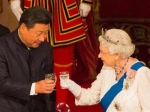 04.07.2016THE BREXIT RESHUFFLES WORLD GEOPOLITICS
04.07.2016THE BREXIT RESHUFFLES WORLD GEOPOLITICS
by Thierry Meyssan
While the world Press is searching for ways to re-start the reconstruction of Europe, still without Russia and now without the United Kingdom, Thierry Meyssan considers that nothing can now prevent the collapse of the system. However, he points out, what is at stake is not the European Union itself, but the institutions which enable the domination of the world by the United States, and the integrity of the United States themselves.
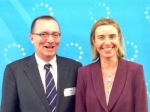 07.06.2016THE UNO, THE EU ABOUT DAESH
07.06.2016THE UNO, THE EU ABOUT DAESH
by Thierry Meyssan
Intergovernmental organisations are supposed to unite the efforts of member-states in order to achieve results that they could not manage alone. We might therefore conclude that the UNO and the EU are coordinating the fight against Daesh. Instead of which, these two organisations are hindering the forces on the ground and masking state support for international terrorism.
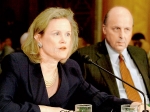 02.06.2016ANOTHER SEASONED U.S. DIPLOMAT HOUNDED OUT OF OFFICE
02.06.2016ANOTHER SEASONED U.S. DIPLOMAT HOUNDED OUT OF OFFICE
By Harut Sassounian
The headline of the May 17 opinion column by David Ignatius in The Washington Post -- “When diplomats get punished for doing their jobs” -- triggered unhappy recollections of the forced resignation of John Evans, U.S. Ambassador to Armenia, for daring to speak about the Armenian Genocide, as described in his recently published book, “Truth Held Hostage: America and the Armenian Genocide -- What then? What now?”
 31.05.2016THE TECHNIQUES OF MODERN MILITARY PROPAGANDA
31.05.2016THE TECHNIQUES OF MODERN MILITARY PROPAGANDA
by Thierry Meyssan
Propaganda is as old as human society. However, it developed considerably during the age of mass society, and now follows strict rules. Thierry Meyssan looks at the history and the principles of the science of lying.
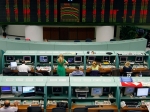 30.05.2016AFTER POLITICAL SHAKE-UP, IS TURKEY HEADING FOR ECONOMIC CRISIS?
30.05.2016AFTER POLITICAL SHAKE-UP, IS TURKEY HEADING FOR ECONOMIC CRISIS?
By Kerim Karakaya
As Turkish markets shook after the May 5 announcement of Ahmet Davutoglu's resignation as prime minister, President Recep Tayyip Erdogan came out with his typical defiant tone when he said, "There are those who pray for an economic crisis. Those who dream of adding to their wealth [in an economic crisis] won't be able to do so."
 25.05.2016ERDOGAN VS. GULEN IN TEXAS COURTS: BATTLE OF TWO TURKISH POWERHOUSES
25.05.2016ERDOGAN VS. GULEN IN TEXAS COURTS: BATTLE OF TWO TURKISH POWERHOUSES
By Harut Sassounian
A decade ago, two Turkish Islamist leaders -- Recep Erdogan (now President) and prominent Sunni cleric Fethullah Gulen -- were the best of friends. Their common enemy was the Turkish military. But as Erdogan solidified his dictatorial rule by castrating the generals, he turned against his old ally, Gulen, to monopolize his grip on power. Erdogan purged and jailed hundreds of Gulen followers: journalists, judges, police, and state officials.
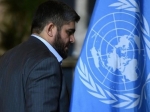 11.05.2016CHRONICLE OF TERRORISM
11.05.2016CHRONICLE OF TERRORISM
The Western Press does not have anything to say about terrorism in Syria. These acts are perpetrated by groups of foreign combatants, supported by a few Syrian collaborators, and armed and funded by Germany, Saudi Arabia, Bulgaria, the United States, France, Israël, Qatar, the United Kingdom and Turkey. Here is a list of the terrorist attacks of which Syrian civilians have been victims since the start of the year.
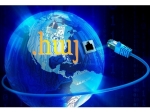 10.05.2016INTERNET IN ARMENIA AND NEIGHBORING COUNTRIES
10.05.2016INTERNET IN ARMENIA AND NEIGHBORING COUNTRIES
Areg Gharabegian
Many developing countries have achieved steady growth in internet usage in recent years by successfully expanding coverage services and lowering access price. As the world forges ahead into the digital economy through the pervasive diffusion of smart-phones, the internet, and broadband, it is imperative that the developing countries work on removing barriers for development of an open as well as competitive internet system.
 05.05.2016TURKISH DENIALIST HELPS PUBLICIZE TRUTH ABOUT THE ARMENIAN GENOCIDE
05.05.2016TURKISH DENIALIST HELPS PUBLICIZE TRUTH ABOUT THE ARMENIAN GENOCIDE
By Harut Sassounian
Ergun Kirlikovali, a resident of Orange County, California, and former president of the Assembly of Turkish American Associations, has carried out a life-long Don Quixotic battle against recognition of the Armenian Genocide. Unfortunately for him, the more he denies the Genocide, the more he helps publicize it.
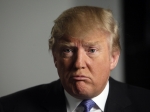 03.05.2016DONALD J. TRUMP FOREIGN POLICY SPEECH
03.05.2016DONALD J. TRUMP FOREIGN POLICY SPEECH
Thank you for the opportunity to speak to you, and thank you to the Center for the National Interest for honoring me with this invitation. I would like to talk today about how to develop a new foreign policy direction for our country – one that replaces randomness with purpose, ideology with strategy, and chaos with peace.
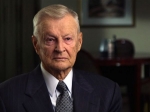 21.04.2016TOWARD A GLOBAL REALIGNMENT
21.04.2016TOWARD A GLOBAL REALIGNMENT
Zbigniew Brzezinski
As its era of global dominance ends, the United States needs to take the lead in realigning the global power architecture.
Five basic verities regarding the emerging redistribution of global political power and the violent political awakening in the Middle East are signaling the coming of a new global realignment.
 14.04.2016WILL PRESIDENT ERDOĞAN SUCCEED IN DEPRIVING 5 MILLION TURKS OF THEIR NATIONALITY?
14.04.2016WILL PRESIDENT ERDOĞAN SUCCEED IN DEPRIVING 5 MILLION TURKS OF THEIR NATIONALITY?
by Thierry Meyssan
As they evolve. President Erdoğan’s declarations stray more and more from universal values. While in the West, people are beginning to emit feeble criticisms of the so-called "authoritarian drift" of Ankara, Thierry Meyssan continues his narration of the establishment of a dictatorship based on the supremacy of Turkish ethnicity and "Islamic values".
 12.04.2016DRONES – HOW THEY WORK AND THEIR FUTURE
12.04.2016DRONES – HOW THEY WORK AND THEIR FUTURE
By Wilhelm Cashen, Chairman of Tesla Foundation Group
And Naira Hovakimyan, Ph.D., Professor, University of Illinois Urbana/Champaign
The presentation will give a historical overview of flight control technology from its inception till its maturation. Parallel developments in aerial robotics will be reviewed from the perspective of aerospace industry standards, prioritizing safety, resilience and reliability of operations.
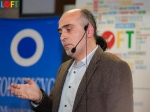 08.04.2016MEDIA CONFRONTATION BETWEEN ARMENIAN AND AZERBAIJANI FORCES
08.04.2016MEDIA CONFRONTATION BETWEEN ARMENIAN AND AZERBAIJANI FORCES
Samvel Martirosyan
From the very first day of its occurrence, the confrontation in Karabakh included an information component. Both sides resorted to different methods of propaganda. At first it had been done spontaneously, at the instincts’ level. Later, after the war, in the Internet development period, all that turned into development of partisan groups of cyber-activists, waging noble wars within the boundlessness of forums.
 07.04.2016ARMENIANS SHOULD DO EVERYTHING POSSIBLE TO ENSURE THIS IS THE LAST AZERI ATTACK
07.04.2016ARMENIANS SHOULD DO EVERYTHING POSSIBLE TO ENSURE THIS IS THE LAST AZERI ATTACK
By Harut Sassounian
This was not a surprise attack! For many years, Azerbaijan’s President Ilham Aliyev has had the nasty habit of launching military attacks on the Republics of Armenia and Artsakh whenever international peace talks or Summit Meetings were being held. Even a casual observer of this long-running conflict could have guessed that Azerbaijan would launch yet another attack during last weekend’s Nuclear Security Summit hosted by Pres. Obama and attended by 50 heads of state, including Presidents of Armenia, Azerbaijan and Turkey.
 06.04.2016SAMVEL MARTIROSYAN: WHY AZERBAIJANI MEDIA STAYED SILENT
06.04.2016SAMVEL MARTIROSYAN: WHY AZERBAIJANI MEDIA STAYED SILENT
2 april 2016
Today Armenia woke up to news of armed conflict on the full length of the Armenian- Azerbaijani Contact Line but the Azerbaijani media atypically remained silent for much of the morning. Media specialist Samvel Martirosyan explains why and warns against fake sources of information.
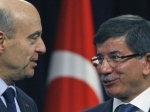 04.04.2016THE MOTIVE FOR THE ATTACKS IN PARIS AND BRUSSELS
04.04.2016THE MOTIVE FOR THE ATTACKS IN PARIS AND BRUSSELS
by Thierry Meyssan
We don’t yet know who ordered the attacks in Paris and Brussels. Several potential leads have been mentioned, but only the hypothesis of an operation decided by Turkey has any serious backing. Thierry Meyssan describes the secret conflict which, for the last five years, has haunted the relations between the Europan Union, France and Turkey.
 31.03.2016KURDS FEDERALISM HERALDS NEW CARVE UP OF THE MIDDLE EAST
31.03.2016KURDS FEDERALISM HERALDS NEW CARVE UP OF THE MIDDLE EAST
When the great powers divided the Middle East in the aftermath of the First World War, there was little consideration for the sectarian, ethnographic and tribal make-up of the new nation-states they were creating. Previously part of the Ottoman Empire, the region’s diverse people had existed relatively harmoniously for centuries.
 30.03.2016A TALE OF TWO CITIES IN ALEPPO: RUBBLE ON ONE SIDE, PACKED RESTAURANTS ON THE OTHER
30.03.2016A TALE OF TWO CITIES IN ALEPPO: RUBBLE ON ONE SIDE, PACKED RESTAURANTS ON THE OTHER
ALEPPO, Syria — Five years of conflict have torn Syria apart. And nowhere is that more stark than in its most populous city, Aleppo, where front lines carve through neighborhoods and slice it in two. It is a city of sharply contrasting halves, and one side clearly appears to have the upper hand.
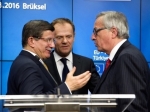 29.03.2016FACING TURKEY, EUROPE CHOOSES SUICIDE
29.03.2016FACING TURKEY, EUROPE CHOOSES SUICIDE
by Thierry Meyssan
By signing an agreement with Turkey to slow the influx of refugees – which happens to be illegal in international law – the leaders of the European Union have taken a step further in their pact with the devil. A large part of the 3 billion Euros annually allotted to Ankara will serve to finance support for the jihadists, and as a result will increase the number of migrants who are fleeing the war. Above all, by repealing the visa regulations with Turkey in the next few months, the Europeans are establishing free circulation between the Al-Qaïda camps in Turkey and Brussels.
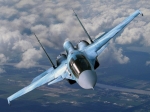 25.03.2016NATO/US NEED TO BE DOUBLY WARY OF SAUDIS AND TURKS ADVENTURISM IN SYRIA
25.03.2016NATO/US NEED TO BE DOUBLY WARY OF SAUDIS AND TURKS ADVENTURISM IN SYRIA
Conventional wisdom in the United States holds that Saudi Arabia and Turkey are right to enter the chaos defining Syria’s civil war. After all, this is their region of the world, not ours. Yet the fallout could have dangerous implications for NATO, of which the United States is the dominant member.
 22.03.2016TIMES OF TROUBLE: THE ARMENIAN COMMUNITIES OF LEBANON AND SYRIA BETWEEN OLD AND NEW CHALLENGES
22.03.2016TIMES OF TROUBLE: THE ARMENIAN COMMUNITIES OF LEBANON AND SYRIA BETWEEN OLD AND NEW CHALLENGES
The crises that we have been witnessing in the Middle East for the past few years, especially in Syria, have made the discussion of Armenian communities in this region highly pertinent, and this was the topic of tonight’s lecture given by Dr Nicola Migliorino, who earned his PhD from the Institute of Arab and Islamic Studies, University of Exeter. His research has focused on Lebanon, Syria, and questions concerning ethno-cultural diversity in the contemporary Arab world.
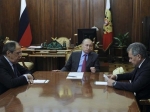 21.03.2016RUSSIA AND VICTORY
21.03.2016RUSSIA AND VICTORY
by Thierry Meyssan
The announcement of the partial withdrawal of the Russian Army from Syria has spawned a great number of commentaries which illustrate the preconceived bias of their authors rather than reality. Thierry Meyssan points out that the facts demonstrate not only that the differences between Moscow and Damascus have been resolved, but that Russia – which managed to topple the Western powers into the anti-terrorist camp – intends to allow Syrians to liberate their territory by themselves.
 09.03.2016THE NUCLEAR NEAR EAST!
09.03.2016THE NUCLEAR NEAR EAST!
by Thierry Meyssan
While the West was applying pressure on Iran to abandon its civilian nuclear programme, the Saudis were buying the atomic bomb from Israel or Pakistan. From now on, to everyone’s surprise, the Near East has become a nuclear zone, dominated by Israel and Saudi Arabia.
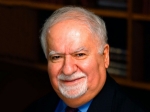 25.02.2016REAL-WORLD ALCHEMY: TURNING KNOWLEDGE INTO PUBLIC POLICY
25.02.2016REAL-WORLD ALCHEMY: TURNING KNOWLEDGE INTO PUBLIC POLICY
By Vartan Gregorian
It may seem paradoxical that in the current era of global connectivity and instant communication, our society shows signs of being starved for knowledge. I would argue that this is exactly the situation in which we find ourselves. While the modern world is overwhelmed with data and information it is “underwhelmed” with real understanding and clear vision about how to address the challenges that confront us. Television’s talking heads speak to us in a barrage of sound bites and the Internet presents us with billions of lines of text, millions of videos, images, and more “content” than any one human being—or ten, or a thousand, for that matter—could ever attempt to process.
 17.02.2016TIGHT US PRESIDENTIAL RACE
17.02.2016TIGHT US PRESIDENTIAL RACE
By Harut Sassounian
Now that the two major political parties have begun holding Primaries to select their nominees for this fall’s Presidential elections, Armenian-Americans are weighing the merits of the eight remaining candidates.
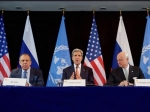 16.02.2016THE USA AND RUSSIA BECOME ALLIES IN SYRIA
16.02.2016THE USA AND RUSSIA BECOME ALLIES IN SYRIA
by Thierry Meyssan
The meeting of the International Syria Support Group seems to have marked the takeover of the Syrian situation by the White House, to the detriment of the «neo-conservatives» and the «liberal hawks». The final declaration imposes supervision of the UNO by the US and Russia, which removes Jeffrey Feltman from his prerogatives. It imposes free circulation of humanitarian aid and the end of hostilities.
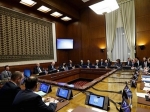 05.02.2016TOWARDS PEACE IN SYRIA WITHOUT ARMED OPPOSITION
05.02.2016TOWARDS PEACE IN SYRIA WITHOUT ARMED OPPOSITION
by Thierry Meyssan
The Geneva 3 negotiations for peace in Syria have just begun, after the pro-Saudi opposition finally submitted to the demands of the US State Department and agreed to participate. However, observes Thierry Meyssan, while Washington and Moscow were hoping for a rapid peace agreement in December, and adopted Resolution 2254, the United States are now convinced that the leaders chosen by Riyadh are incapable of exercising power.
 26.01.2016FREEDOM OF EXPRESSION AND ITS LIMITATIONS: CERTAIN THEORETICAL AND PRACTICAL ASPECTS
26.01.2016FREEDOM OF EXPRESSION AND ITS LIMITATIONS: CERTAIN THEORETICAL AND PRACTICAL ASPECTS
Aram Aramyan
No known society anywhere has ever adopted a standard of entirely absolute free speech. According to nearly all free speech scholars, freedom of speech has been understood to have limits. Even in today’s liberal democracies there is no idea of unconditional free speech. Almost all freedom of speech scholars and philosophers, except very few in the United States, emphasize that freedom of speech is not absolute, neither in theory, nor in practice.
 25.01.2016THE WHITE HOUSE SHOULD ANSWER 10 KEY QUESTIONS ON ARTSAKH
25.01.2016THE WHITE HOUSE SHOULD ANSWER 10 KEY QUESTIONS ON ARTSAKH
By Harut Sassounian
For many years, the Armenian-American community has been dissatisfied with United States policy on Artsakh (Nagorno Karabagh). Under the guise of neutrality, OSCE Minsk Group Co-Chair James Warlick and his predecessors have put the blame on both sides of the conflict each time that Azerbaijan has opened fire on Armenia and Artsakh. Such an unfair approach has encouraged Pres. Aliyev to escalate his attacks.
 22.01.2016ARMENIAN, GREEK, AND JEWISH PRINTED AND ONLINE MEDIA IN TURKEY
22.01.2016ARMENIAN, GREEK, AND JEWISH PRINTED AND ONLINE MEDIA IN TURKEY
Gevorg Petrosyan
For decades the Armenian, Greek, and Jewish media in Turkey continued to publish periodicals. They currently face problems due to the lack of funds and difficulty to sell printed media in the Internet ere. Decreasing number of Armenian, Greek, and Jewish communities and those who can read in their mother tongue is another problem.
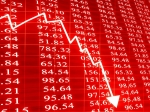 20.01.2016ECONOMIC CRISIS AND KONDRATIEV THEORY
20.01.2016ECONOMIC CRISIS AND KONDRATIEV THEORY
Ishkhan Sokhakyan
From the point of view of economists, the crisis in the global market economy (namely that type of economy) is a quite objective and even predictable phenomenon. This is due to economic cycles, including economic crises. What is the reason for this?
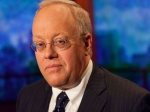 18.01.2016THE GREAT FORGETTING
18.01.2016THE GREAT FORGETTING
By Chris Hedges
America’s refusal to fund and sustain its intellectual and cultural heritage means it has lost touch with its past, obliterated its understanding of the present, crushed its capacity to transform itself through self-reflection and self-criticism, and descended into a deadening provincialism. Ignorance and illiteracy come with a cost. The obsequious worship of technology, hedonism and power comes with a cost. The primacy of emotion and spectacle over wisdom and rational thought comes with a cost. And we are paying the bill.
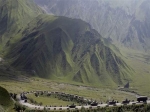 15.01.2016CHANGING SYSTEM OF THE GLOBAL SECURITY AND THE NEW GEOPOLITICAL CONFIGURATION OF THE SOUTH CAUCASUS [ARMENIAN PERSPECTIVE]
15.01.2016CHANGING SYSTEM OF THE GLOBAL SECURITY AND THE NEW GEOPOLITICAL CONFIGURATION OF THE SOUTH CAUCASUS [ARMENIAN PERSPECTIVE]
Alexander Arutyunyan
Today one may observe the establishment and development of a profoundly new environment of the world policy system and its transformations at the regional levels. There are many epicenters of the world systemic changes, which are on a persistent international agenda. However, there is another strategic area, which despite its state of hiatus, is a potential trigger of geopolitical risks and instability. Many experts agree that together with the other conflict zones the South Caucasus region should not be overlooked as one of the main risky and challenging geopolitical areas for the international order and stability in a short term outlook.
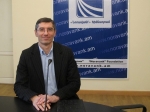 14.01.2016SOME STRUCTURAL PECULIARITIES OF THE HIERARCHICAL INTERNATIONAL SYSTEMS
14.01.2016SOME STRUCTURAL PECULIARITIES OF THE HIERARCHICAL INTERNATIONAL SYSTEMS
Vahagn Aglyan
The thesis of anarchy remains demanded both in terms of the leading postulates in international relations (IR) theories and as a “guiding” approach in foreign policy implementation process. Its main principle for the real politics is that anarchy reigns in the international system. This does not necessarily imply an absolute or relative chaos in the system of international affairs, but rather, is based on a postulate of absence of any structured institution that would ensure international order.
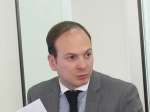 13.01.2016INTERNATIONALIZATION AS INCENTIVE FOR COMPETITIVENESS OF HIGHER EDUCATION IN ARMENIA
13.01.2016INTERNATIONALIZATION AS INCENTIVE FOR COMPETITIVENESS OF HIGHER EDUCATION IN ARMENIA
Robert Khachatryan
The 21st century may very well become known as the century of the “global world” (McFarland, Senen and Childress 1993) in the chronological continuum to the late-20th century that was preeminently the century of the “democratic triumph” (Diamond 2008). The surge and process of globalization, the “spirit of the time” for democracy (Diamond 2008), the growing importance of pronounced ideologies and the pursuit to construct, safeguard and sustain democracy, and a sense of identity underlie much of what is currently happening in the world nowadays.
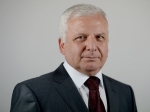 12.01.2016ON THE DEVELOPMENTS OF YOUTH MOVEMENTS IN ARMENIA
12.01.2016ON THE DEVELOPMENTS OF YOUTH MOVEMENTS IN ARMENIA
Samvel Manukyan
In May 2015 the public movement “No to Robbery!” emerged in Yerevan in relation to the electricity tariff rate hikes. The movement demanded to annul the resolution by Public Services Regulatory Commission on increasing electricity tariffs in Armenia. Leaders and participants of the movement declared that their demands are purely economic and not political. As evidence to that, the members of movement who had blocked Baghramian Avenue in Yerevan since June 22, 2015, would expel various provocateurs of unknown origin and adventurers who make living by politics.
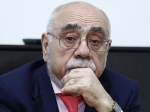 11.01.2016THE CHALLENGES OF SMALL STATES OF THE SOUTH CAUCASUS IN THE POST-COLD-WAR PERIOD
11.01.2016THE CHALLENGES OF SMALL STATES OF THE SOUTH CAUCASUS IN THE POST-COLD-WAR PERIOD
Arman Navasardian
For millennia the Caucasus was a place where active trade and cultural ties were developed, diplomatic agreements were reached and military alliances were forged and dissolved. The Caucasus used to be a crucial part of the Great Silk Road, through which Europe was connected to Central and Western Asia. The trade route passing through South Caucasus, including Armenia was known since the times of Homer and Golden Fleece.
 08.01.2016MILITARY TO MILITARY
08.01.2016MILITARY TO MILITARY
Seymour M. Hersh on US intelligence sharing in the Syrian war
Barack Obama’s repeated insistence that Bashar al-Assad must leave office – and that there are ‘moderate’ rebel groups in Syria capable of defeating him – has in recent years provoked quiet dissent, and even overt opposition, among some of the most senior officers on the Pentagon’s Joint Staff.
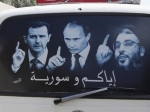 17.12.2015MILITARY OPERATIONS IN PREPARATION IN AND AROUND SYRIA
17.12.2015MILITARY OPERATIONS IN PREPARATION IN AND AROUND SYRIA
by Thierry Meyssan
The Western Press doesn’t have much to say about the military operations in Syria, except to affirm, without the slightest proof, that the Coalition is successfully bombing Daesh jihadists while the Russians continue to kill innocent civilians. It is in fact difficult to form a reasonable idea of the current situation, particularly since each side is readying its weapons in preparation for a wider conflict. Thierry Meyssan describes what is going on.
 15.12.2015ANTI-ARMENIAN ACTIVITIES OF THE UNIVERSITY “ARMENOLOGICAL” DEPARTMENTS AND ANALITYCAL CENTRES IN TURKEY
15.12.2015ANTI-ARMENIAN ACTIVITIES OF THE UNIVERSITY “ARMENOLOGICAL” DEPARTMENTS AND ANALITYCAL CENTRES IN TURKEY
By: Simavoryan A. S.
In foreign countries Armenology in general has a number of important functions for Armeniancy, but in some cases it is distorted and made to serve anti-Armenian and anti-Armenological purposes. Today there are such “Armenological” centers abroad whose activity is different from others and has an adverse context. They can be described as anti-Armenological or pseudo-Armenological centers since they are engaged in anti-Armenian, anti-scientific and anti-propaganda activities.
 10.12.2015ARMENIANS IN THE MIDST OF CIVIL WARS: LEBANON AND SYRIA COMPARED
10.12.2015ARMENIANS IN THE MIDST OF CIVIL WARS: LEBANON AND SYRIA COMPARED
Ara Sanjian
Since March 2011, Syria has been the arena of a vicious civil war, in which numerous world and regional powers have also become deeply involved. The long-term existence of the deep-rooted Armenian communities in various parts of Syria has also come under question because of this protracted conflict. An unmistakable feeling of deep unease and anxiety is evident among most Armenians worldwide as fighting persists and no peaceful settlement appears to be in sight.
 09.12.2015COLUMBIA UNIVERSITY RESEARCHERS CONFIRM TURKEY’S LINKS TO ISIS
09.12.2015COLUMBIA UNIVERSITY RESEARCHERS CONFIRM TURKEY’S LINKS TO ISIS
BY HARUT SASSOUNIAN
A team of Columbia University researchers from the United States, Europe, and Turkey confirmed last week that the Turkish government has provided to ISIS: military cooperation, weapons, logistical support, financial assistance, and medical services. This detailed investigation was headed by David L. Phillips, Director of the Program on Peace-building and Rights at Columbia University’s Institute for the Study of Human Rights. He had served as Senior Advisor and Foreign Affairs Expert for the U.S. Department of State.
 07.12.2015THE MADNESS OF KING ERDOGAN
07.12.2015THE MADNESS OF KING ERDOGAN
Gordon Duff
America and Israel, in playing up to Erdogan, perhaps even underestimating his grasp but more likely overlooking his long history of mental instability, have turned Turkey into a de facto nuclear power.
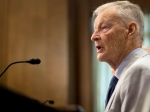 30.11.2015ONCE A HAWK, BRZEZINSKI SEES HOPE FOR U.S.- RUSSIA RELATIONS
30.11.2015ONCE A HAWK, BRZEZINSKI SEES HOPE FOR U.S.- RUSSIA RELATIONS
A Cold War hardliner explains why this time is very different.
By Michael Hirsh / November 27, 2015
As Jimmy Carter’s national security advisor in the mid-to-late 1970s, Zbigniew Brzezinski had a reputation as a Cold War hawk, engaging in a famous feud with the more dovish Secretary of State Cyrus Vance, who later resigned in protest.
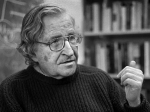 24.11.2015TURKEY CONTINUES TO MUZZLE DEMOCRACY’S WATCHDOGS
24.11.2015TURKEY CONTINUES TO MUZZLE DEMOCRACY’S WATCHDOGS
By Noam Chomsky and Christophe Deloire
Journalists are the “watchdogs” of democracy, according to the European Court of Human Rights. Anyone who wants to control a country without being troubled by criticism tries to muzzle reporters, and unfortunately, Turkish President Recep Tayyip Erdogan is a past master at stifling the cries of freedom. As journalists from around the world converge on Antalya to cover this weekend’s Group of 20 summit, many of their Turkish colleagues are being denied accreditation.
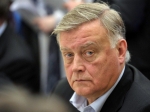 19.11.2015THE ROLE OF INTERCIVILIZATIONAL DIALOGUE IN SECURING SUCCESSFUL INTERNATIONAL COOPERATION
19.11.2015THE ROLE OF INTERCIVILIZATIONAL DIALOGUE IN SECURING SUCCESSFUL INTERNATIONAL COOPERATION
A Paper by Vladimir Yakunin, Founding President of the World Public Forum "Dialogue of Civilizations", delivered at the Beijing Forum on November 6, 2015
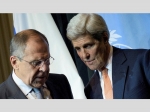 09.11.2015TOWARDS A REVERSAL OF THE SITUATION IN THE NEAR EAST
09.11.2015TOWARDS A REVERSAL OF THE SITUATION IN THE NEAR EAST
by Thierry Meyssan
The days of the « Arab Spring » are almost over. As of now, the White House and the Kremlin are redesigning the contours of the « Greater Middle East ». However, their agreement, which was concluded before the Russian military intervention in Syria, could still be modified by the changes in the balance of power. There is no proof that Moscow will accept the stabilisation of Syria or ignore the partition of Turkey and Saudi Arabia which are soon to begin.
 06.11.2015EURASIAN ECONOMIC UNION AND ARMENIA
06.11.2015EURASIAN ECONOMIC UNION AND ARMENIA
Areg Gharabegian
The Eurasian Economic Union (EEU) is an economic union of states which was established on May 2014 by the leaders of Belarus, Kazakhstan, and Russia, and came into effect on January 1, 2015. Armenia joined on January 2, 2015 and Kyrgyzstan joined on August 6, 2015.
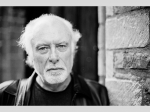 05.11.2015GLOBAL COLONIALITY AND THE WORLD DISORDER. REVISITING BANDUNG, 1955
05.11.2015GLOBAL COLONIALITY AND THE WORLD DISORDER. REVISITING BANDUNG, 1955
Remarks by Walter Mignolo, Director, Center for Global Studies and the Humanities, Duke University, prepared for the 13th Rhodes Forum
 04.11.2015FUTURE OF INTERNATIONAL DEVELOPMENT INSTITUTIONS – CAN THEIR FAILURES BE EVEN BIGGER?
04.11.2015FUTURE OF INTERNATIONAL DEVELOPMENT INSTITUTIONS – CAN THEIR FAILURES BE EVEN BIGGER?
A Paper by Václav Klaus, President of the Czech Republic (2003–2013), delivered at the 13th Rhodes Forum, October 11, 2015
 03.11.2015VLADIMIR YAKUNIN TO THE 13TH RHODES FORUM
03.11.2015VLADIMIR YAKUNIN TO THE 13TH RHODES FORUM
A Speech by Vladimir Yakunin, Founding President, WPF “Dialogue of Civilizations”, at the Opening Plenary Meeting of the 13th Rhodes Forum, October 9, 2015
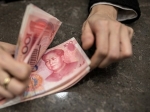 02.11.2015CHINA’S NEW PAYMENTS SYSTEM POINTS WAY TO DE-DOLLARISED WORLD
02.11.2015CHINA’S NEW PAYMENTS SYSTEM POINTS WAY TO DE-DOLLARISED WORLD
The mainland recently launched the China International Payments System (“CIPS”), enlisting an initial group of 19 domestic and international banks. As a cross-border yuan payments system it represents a major step in Beijing’s ambition to increase the distribution and improve the efficiency and international popularity of its currency. But, it is more than a payment transaction regime.
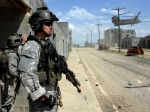 30.10.2015RAND CO ON US AND CHINA’S MILITARY POWER
30.10.2015RAND CO ON US AND CHINA’S MILITARY POWER
Vladimir Terehov
Evaluation of the balance of military capabilities of the two leading global players (the US and China) has long been in the focus of global “think tanks.” At the beginning of October this year, RAND Co. published a report titled, the U.S.-China Military Scorecard: Forces, Geography and the Evolving Balance of Power 1996-2017.
 29.10.2015RUSSIAN EXPERT PROPOSES FORMULA TO EASE FRONTLINE TENSION
29.10.2015RUSSIAN EXPERT PROPOSES FORMULA TO EASE FRONTLINE TENSION
In an interview with Tert.am, Vladimir Yevseyev, Head of the Caucasus Department at the Moscow-based CIS Institute, expressed his strong concerns over Azerbaijan’s recent heavy armed raids against Armenian civilians in the border region Tavush, calling for mutual efforts to push back armaments from the frontline. The expert said he thinks that Russian Foreign Minister Sergey Lavrov’s recent trip to Azerbaijan and his talks with President Ilham Aliyev was part of such efforts.
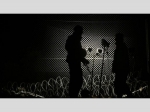 23.10.2015THE DISINTEGRATION OF EUROPE
23.10.2015THE DISINTEGRATION OF EUROPE
Philippe Legrain
If a clear signal was needed that the European Union is falling apart at an alarming rate, Hungary’s construction of razor-wire fences along the border with its fellow EU member Croatia is it. The crisis in the eurozone has, of course, fragmented financial flows, caused economies to diverge, eroded political support for EU institutions, and set Europeans against one another.
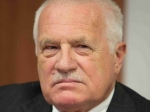 20.10.2015FUTURE OF INTERNATIONAL DEVELOPMENT INSTITUTIONS – CAN THEIR FAILURES BE EVEN BIGGER?
20.10.2015FUTURE OF INTERNATIONAL DEVELOPMENT INSTITUTIONS – CAN THEIR FAILURES BE EVEN BIGGER?
by Václav Klaus
Many thanks for the invitation, which gave me the first opportunity to visit this beautiful island. Last time, I was in Greece at the end of June, at a conference in Athens, discussing the untenable Greek debt crisis which had developed as a consequence of this country´s voluntary entry (and continuing membership) in the European monetary union. This arrangement became an unbearable constraint, if not a straitjacket for it.
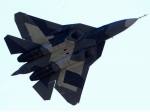 19.10.2015PUTIN’S “ENDGAME” IN SYRIA
19.10.2015PUTIN’S “ENDGAME” IN SYRIA
by MIKE WHITNEY
Russia doesn’t want to fight a war with Turkey, so Russian generals devised a simple, but effective plan to discourage Turkey from taking any action that could lead to a clash between the two nations.
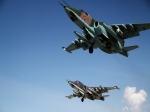 16.10.2015DOES THE CREATION OF A BROAD COALITION IN SYRIA STAND A CHANCE?
16.10.2015DOES THE CREATION OF A BROAD COALITION IN SYRIA STAND A CHANCE?
Vladimir Yevseyev
The antiterrorist coalition it created in the autumn of 2014 to fight ISIS proved ineffective because it confined itself to air strikes against highly mobile and well-trained militants. It is increasingly clear that the US has no Syria strategy of its own. The antiterrorist coalition it created in the autumn of 2014 to fight ISIS proved ineffective because it confined itself to air strikes against highly mobile and well-trained militants.
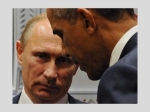 09.10.2015MOSCOW AND WASHINGTON WORK TOGETHER TO RESTRUCTURE INTERNATIONAL RELATIONS
09.10.2015MOSCOW AND WASHINGTON WORK TOGETHER TO RESTRUCTURE INTERNATIONAL RELATIONS
by Thierry Meyssan
While the Atlantist media seem to be falling sick, infected by a sudden attack of the anti-Russian fever, Thierry Meyssan interprets Moscow’s military action in Syria as the first step towards a complete revision of international relations. In his opinion, the important question is not so much whether Russia will save the Syrian Arab Republic from the jihadists, but whether Russia’s army could partially replace the US army in the region in order to guarantee security.
 07.10.2015THINK TANKS IN ARMENIA: WHO NEEDS THEIR THINKING?
07.10.2015THINK TANKS IN ARMENIA: WHO NEEDS THEIR THINKING?
By Yevgenya Jenny Paturyan
Think tanks are considered to be an important part of civil society: providers and keepers of expertise on important social, economic, environmental, political and other issues. Organizations like Chatham House and Carnegie Endowment for International Peace come to mind. In addition to ‘pure’ think tanks, there is a plethora of organizations that combine research with advocacy and action, Transparency International being a prominent example.
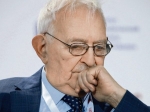 05.10.2015RESURGENCE OF THE WORLD LEFT?
05.10.2015RESURGENCE OF THE WORLD LEFT?
Immanuel Wallerstein
The sweeping triumph on September 24 of Jeremy Corbyn to be the leader of Great Britain’s Labour Party was stunning and totally unexpected. He entered the race with barely enough support to be put on the ballot. He ran on an uncompromisingly left platform. And then, standing against three more conventional candidates, he won 59.5% of the vote in an election that had an unusually high turnout of 76 percent.
 01.10.2015DEVELOPMENT AND CREDIT FOR BUILDING A NEW GLOBAL ORDER
01.10.2015DEVELOPMENT AND CREDIT FOR BUILDING A NEW GLOBAL ORDER
By Paolo Raimondi
This article recapitulates and summarises recent agreements and ongoing projects intended to build a new international monetary, financial and economic order to replace the moribund Bretton Woods System. At the heart of this transition, the five BRICS member-countries have set up a network of new banks, funds and financial facilities to support massive new infrastructural and industrial projects and revive international development with innovative technology and philosophies for integrated, sustainable growth.
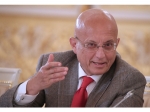 29.09.2015A EURASIAN SOLUTION FOR EUROPE’S CRISES
29.09.2015A EURASIAN SOLUTION FOR EUROPE’S CRISES
Sergei Karaganov
More than 18 months after former President Viktor Yanukovych was driven from power (and into exile), the crisis in Ukraine is at a stalemate. Crimea has been reabsorbed by Russia (in what many consider an annexation); much of eastern Ukraine is held by pro-Russia rebels; and relations between the West and Russia are more tense than at any time since the early days of the Cold War.
 28.09.2015THE LOGIC AND RISKS BEHIND RUSSIA'S STATELET SPONSORSHIP
28.09.2015THE LOGIC AND RISKS BEHIND RUSSIA'S STATELET SPONSORSHIP
Mother Russia can be quite generous when it comes to her collection of statelets. In the early 1990s, when a broken Russia had no choice but to suck in her borders, a severely distracted Kremlin still found the time and money to promote and sponsor the fledgling breakaway territories of South Ossetia and Abkhazia in Georgia and Transdniestria in Moldova.
25.09.2015AN INTERVIEW WITH THE PRESIDENT OF THE ARMENIAN COMMUNITY OF CHINA, MR. HENRI ARSLANIAN
1. Please tell us a bit about the community and its main goals.
The Armenian Community of China has three main pillars: to unite and bring together individuals of Armenian heritage living in China, to share with the world at large the remarkable history of Armenians in China and to be the natural bridge between Armenia and China.
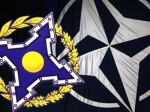 24.09.2015THE CSTO ARRIVES IN IRAQ AND SYRIA
24.09.2015THE CSTO ARRIVES IN IRAQ AND SYRIA
by Thierry Meyssan
The intervention of the CSTO (Collective Security Treaty Organisation) against terrorism in Iraq and Syria may be the beginning of a world order based on the cooperation and defence of civilian populations, or, on the contrary, a period of East-West confrontation in which the West openly supports terrorism.
 22.09.2015THE GROWTH OF EXTREMISM AND THE FACTOR OF “INTELLECTUAL PARITY”
22.09.2015THE GROWTH OF EXTREMISM AND THE FACTOR OF “INTELLECTUAL PARITY”
Gagik Harutyunyan
The global security today depends to a large extent on the developments in Middle East in the context of the Islamic State’s (IS) actions. However, the IS is just the tip of the iceberg; the Middle Eastern processes are closely related to what happens in Central and Southeast Asia and continental “yellow, hot Africa.” In addition, escalation due to actions of extremist groups occurs not only in these regions. In terms of a number of indicators the same logic applies to the events in Ukraine.
 11.09.2015FORGET UKRAINE. IT’S BUSINESS AS USUAL BETWEEN EUROPE AND RUSSIA
11.09.2015FORGET UKRAINE. IT’S BUSINESS AS USUAL BETWEEN EUROPE AND RUSSIA
BY JUDY DEMPSEY
It was just like the old days before the European Union imposed sanctions on Russia in 2014. At the Eastern Economic Forum in Vladivostokc Gazprom clinched three major deals with some of Europe’s biggest energy companies.
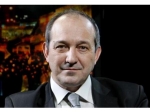 10.09.2015RUSSIAN OFFICER TO ST: SYRIAN ARMY'S VICTORIES PAVE THE GROUND FOR POLITICAL SOLUTION
10.09.2015RUSSIAN OFFICER TO ST: SYRIAN ARMY'S VICTORIES PAVE THE GROUND FOR POLITICAL SOLUTION
Russian officer has underscored that Syrian army's victories pave the ground for political solution, indicating that the enemies of Syria cannot unite against it. Head of the Caucasian Division of the Institute of Commonwealth countries, Director of the Public Policy Research center, Dr. Vladimir V. Evseev told the Syriatimes e-newspaper that If Syrian army loses territories, compromise is impossible.
 07.09.2015TRANSPORTATION MODES IN ARMENIA
07.09.2015TRANSPORTATION MODES IN ARMENIA
By Areg Gharabegian
Being a landlocked country, Armenia has an economy that depends on transport and crossborder access. Armenia has a few railway lines and an extensive road network. While rate of car ownership has been growing steadily in recent years, it is still relatively low. Public transport plays a critical role, especially in cities. The transportation network capacity is adequate for accommodating estimated demand up to 2020, but the infrastructure has deteriorated due to lack of funds.
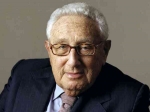 04.09.2015THE INTERVIEW: HENRY KISSINGER
04.09.2015THE INTERVIEW: HENRY KISSINGER
The National Interest’s editor, Jacob Heilbrunn, spoke with Henry Kissinger in early July in New York.
Jacob Heilbrunn: Why is realism today an embattled approach to foreign affairs, or perhaps not as significant as it was when you had figures such as Hans Morgenthau, George F.Kennan, Dean Acheson, then yourself in the 1970s—what has changed?
 03.09.2015GLOBAL COMPETITIVENESS AND ARMENIA
03.09.2015GLOBAL COMPETITIVENESS AND ARMENIA
By Areg Gharabegian
A comprehensive Global Competitiveness study has been conducted by World Economic Forum utilizing various indicators to rank 144 countries in different areas. This report is a short summary of the findings of that comprehensive study with emphasis on Armenia and its neighboring countries. The study was done at a time when the global economy seems to be finally leaving behind the worst and longest- lasting financial and economic crisis of the past 80 years.
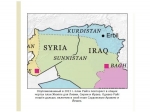 01.09.2015AN INSANE AMBITION WHICH IS TURNING INTO A CIVIL WAR
01.09.2015AN INSANE AMBITION WHICH IS TURNING INTO A CIVIL WAR
Clinton, Juppé, Erdoğan, Daesh and the PKK
by Thierry Meyssan
The resumption of the repression of Kurds in Turkey is nothing more than a consequence of the impossible task of implementing the Juppé-Wright plan of 2011. While it was easy to deploy Daesh in the Syrian desert and the provinces of Niniveh and d’al-Anbar (Iraq), which are mostly Sunnite, it proved to be impossible to take control of the Kurdish populations of Syria. In order to realise his dream of a Kurdistan outside of Turkey, Recep Tayyip Erdoğan has no other choice but civil war.
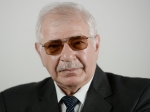 31.08.2015THE GROWTH OF EXTREMISM AND THE FACTOR OF “INTELLECTUAL PARITY”
31.08.2015THE GROWTH OF EXTREMISM AND THE FACTOR OF “INTELLECTUAL PARITY”
A Paper by Gagik Harutyunyan, Executive Director, Noravank Scientific Educational Foundation, submitted for the Rhodes Forum Scientific Marathon - 2015
The global security today depends to a large extent on the developments in Middle East in the context of the Islamic State’s (IS) actions. However, the IS is just the tip of the iceberg; the Middle Eastern processes are closely related to what happens in Central and Southeast Asia and continental “yellow, hot Africa.”
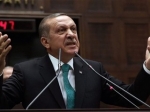 31.08.2015TURKEY IN DANGER
31.08.2015TURKEY IN DANGER
by Thierry Meyssan
While the Western Press salutes the authorisation given by Turkey to the United States, allowing the US to use its military bases in order to fight Daesh, Thierry Meyssan looks at the nation’s internal tensions. In his view, maintaining Mr. Erdoğan in power, as well as the lack of a new majority during the next general elections, will rapidly lead to civil war.
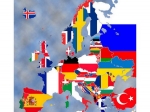 30.07.2015CRISES AND DISCORD UNDERMINING EUROPEAN PROJECT
30.07.2015CRISES AND DISCORD UNDERMINING EUROPEAN PROJECT
by Nat Parry
The near collapse of the Greek economy and the harsh austerity package forced on Athens by the European Union has led to increasing commentary in recent weeks on what the developments might mean for the “European project” – the one-time seemingly inevitable drive on the European continent for an “ever closer union” based on principles of economic, social and territorial cohesion and solidarity among EU member states.
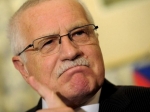 21.07.2015VÁCLAV KLAUS: I THINK THAT MANY PEOPLE, ESPECIALLY IN EUROPE STILL LIVE IN A NIRVANA OF SELF-SATISFACTION
21.07.2015VÁCLAV KLAUS: I THINK THAT MANY PEOPLE, ESPECIALLY IN EUROPE STILL LIVE IN A NIRVANA OF SELF-SATISFACTION
An Interview with Václav Klaus, former President of the Czech Republic, for Global Gold, February 2015
“The European integration process which started as an attempt to build a friendly and cooperating community of nations has been transformed to a totally different construct, to the European Union.
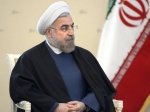 20.07.2015DIFFICULT TALKS ON IRAN’S NUCLEAR ISSUE
20.07.2015DIFFICULT TALKS ON IRAN’S NUCLEAR ISSUE
Vladimir Evseev
Nuclear talks in Vienna have been extended amid disagreements over the lifting of an arms embargo on Iran, but western diplomats remained hopeful that an agreement could be reached relatively soon.
 16.07.2015PROPAGANDA, AGITATION, MANIPULATION AND PERSUASION
16.07.2015PROPAGANDA, AGITATION, MANIPULATION AND PERSUASION
Anna Zhamakochyan
The notion of propaganda (Latin propagare, meaning to spread or to propagate) has originated in ecclesial context, in relation to preaching and missionary activities. The first known usage of this term is dated 1718, which was related to the Congregation for the Propagation of the Faith (Congregatio de propaganda fide) established in early 1620s to control missionary activities in foreign countries.
 14.07.2015NAGORNO-KARABAKH: BETWEEN A ROCK AND A HARD PLACE
14.07.2015NAGORNO-KARABAKH: BETWEEN A ROCK AND A HARD PLACE
Haykaram Nahapetyan
On the July 4, OSCE representation in Baku ceased to exist. What does the Azeri government's sustained assault on liberties mean for the Nagorno-Karabakh conflict?
 10.07.2015SOCIAL MEDIA IN ARMENIA (2015 data)
10.07.2015SOCIAL MEDIA IN ARMENIA (2015 data)
Samvel Martirosyan
Social networking continues to develop in Armenia. The numbers of social media users grow, and their influence on public life and flows of information increases, too. On the other hand, it appears Armenia is approaching a saturation point.
 08.07.2015DIASPORA’S CONTRIBUTION IN DEVELOPMENT OF THE SCIENCE SYSTEM IN ARMENIA
08.07.2015DIASPORA’S CONTRIBUTION IN DEVELOPMENT OF THE SCIENCE SYSTEM IN ARMENIA
Vahram Hovyan
Science is one of the important areas of Homeland-Diaspora ties. This critical infrastructure is aimed at securing the development of countries. Without development, any country is doomed to stagnation and “colonization” by more powerful states.
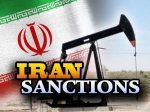 06.07.2015IRAN: AN ATTEMPT TO BYPASS THE SANCTIONS
06.07.2015IRAN: AN ATTEMPT TO BYPASS THE SANCTIONS
Sergey Sargsyan
In negotiations around Iran’s nuclear program that last over 10 years now, even preliminary concluded agreements made it possible to somewhat ease the sanctions against the country imposed by the USA, EU and UN. However, there is no mention about lifting those altogether. Even the partial relief is under a big question.
 02.07.2015EUROPE’S ATTACK ON GREEK DEMOCRACY
02.07.2015EUROPE’S ATTACK ON GREEK DEMOCRACY
Joseph E. Stiglitz
NEW YORK – The rising crescendo of bickering and acrimony within Europe might seem to outsiders to be the inevitable result of the bitter endgame playing out between Greece and its creditors. In fact, European leaders are finally beginning to reveal the true nature of the ongoing debt dispute, and the answer is not pleasant: it is about power and democracy much more than money and economics.
 30.06.2015CHINA’S “SILK ROAD” ENRICHES ITS INFLUENCE ON SOUTH AMERICA
30.06.2015CHINA’S “SILK ROAD” ENRICHES ITS INFLUENCE ON SOUTH AMERICA
by Ariel Noyola Rodríguez
During his tour through Brazil and Peru, China’s Prime Minister Li Keqiang committed to the construction of the “Silk Road” of South America; a continental train that would connect the Atlantic to the Pacific. Within its objectives, this mega-project will seek to impulse the industrialization and with that, to promote economic development in the region.
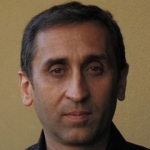 26.06.2015NEARING THE END OF THE ERDOĞAN SYSTEM
26.06.2015NEARING THE END OF THE ERDOĞAN SYSTEM
by Thierry Meyssan
In December 2014, Thierry Meyssan announced the fall of Recep Tayyip Erdoğan, while almost all other international commentators still persisted in believing that he would win the legislative elections. Mr. Meyssan returns here to examine the career of the Turkish President.
 18.06.2015STRATEGIC RESEARCH CENTERS IN TURKEY
18.06.2015STRATEGIC RESEARCH CENTERS IN TURKEY
Arestakes Simavoryan
Systemic development of strategic research centers (SRC) in Turkey started in 1960s. Among the Middle Eastern countries Turkey probably has the oldest think tanks along with Israel. Among the various research areas and directions they also study the development traits, typology, strategic priorities and other aspects of the Armenian think tanks.
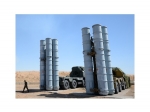 16.06.2015S-300 AIR DEFENSE SYSTEMS: POTENTIAL CONSEQUENCES OF BARTERING WITH IRAN
16.06.2015S-300 AIR DEFENSE SYSTEMS: POTENTIAL CONSEQUENCES OF BARTERING WITH IRAN
Vladimir Evseev
On April 13, 2015 President Vladimir Putin signed an executive order lifting the ban on transit through Russian territory and also the transfer to the Islamic Republic of Iran of air defense missile systems S-300. This makes it possible to implement the contract, signed in 2006−2007, on supplying Iran with five S-300 PMU-1 air defense systems.
 15.06.2015LARGE CAPITAL OF DIASPORA AND DEVELOPMENT ISSUES OF ARMENIA: HISTORY AND MODERN TIMES
15.06.2015LARGE CAPITAL OF DIASPORA AND DEVELOPMENT ISSUES OF ARMENIA: HISTORY AND MODERN TIMES
Vahram Hovyan
For the nations that have diaspora, the economy plays a unique role in the area homeland-diaspora relations. The economic capital of diaspora is viewed as a crucial resource for development of such countries. The point is, however, that other than economic interests, the national feelings and natural human desire to help strengthen one’s homeland often play an important role in the issues related to foreign investment in a given country.
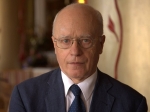 09.06.2015WORLD ORDER AND NATIONAL INTEREST
09.06.2015WORLD ORDER AND NATIONAL INTEREST
A Keynote Speech by Hans Köchler, President of the International Progress Organization, delivered at the 15th International Scientific Likhachev Conference “Contemporary Global Challenges and National Interests”, May 14, 2015.
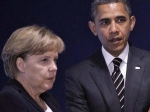 04.06.2015GERMANY FALLS OUT OF LOVE WITH AMERICA
04.06.2015GERMANY FALLS OUT OF LOVE WITH AMERICA
By JOHN VINOCUR
Anti-Americanism offers cheap German nationalism with a good conscience. Angela Merkel should resist.
Anti-Americanism has become a fungible aspect of German politics. Blaming-the-Amis is now established as hard currency in matters of security, trade and in setting the tone of public discussion—either directly and gratingly, or managed more evasively but with real recognition of this harsh disaffection’s potential as a voter-getter.
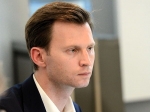 01.06.2015THE DOUBLE DEATH OF EUROPE
01.06.2015THE DOUBLE DEATH OF EUROPE
By Adrian Pabst
The continual crisis in the Eurozone and in Ukraine poses the most serious danger to Europe since the darkest days of the Cold War. Economic devastation in the south and war in the east cast a long shadow over the European Union and the wider Europe. Arguably the post-1945 promise of peace and prosperity no longer holds. The 28 EU member-states are home to high standards of living for many and the biggest single market with over 550 million consumers, but the 2008 crash exposed the sheer precariousness of the much-vaunted European social models and ways of life.
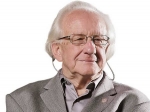 27.05.2015THE YEAR 2015: FIRST THIRD REPORT
27.05.2015THE YEAR 2015: FIRST THIRD REPORT
By Johan Galtung
The 19 January editorial “The Year 2015-What Are We in For?” identified four unfolding, dramatic processes: the West will continue fighting unsuccessfully and violently to keep their world grip; Eurasia will expand and consolidate successfully and nonviolently; Islam will expand and consolidate partly violently; Latin America and Africa will expand and consolidate, spearheaded by Brazil, South Africa, BRICS.
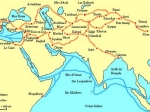 25.05.2015THE FALL OF PALMYRA UPSETS GEOPOLITICAL BALANCE IN THE LEVANT
25.05.2015THE FALL OF PALMYRA UPSETS GEOPOLITICAL BALANCE IN THE LEVANT
by Thierry Meyssan
The situation has considerably worsened in the Levant since the Islamic Emirate cut the ancient « Silk Road », the route which links Iran to the Mediterranean. There remain only two possible options : either via Deir ez-Zor and Aleppo, or else via Palmyra and Damascus. The first route has been disabled since the beginning of 2013, the second has just been cut. The fall of Palmyra will therefore have considerable consequences for the balance of the whole region.
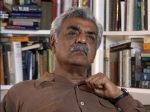 21.05.2015THE NEW WORLD DISORDER
21.05.2015THE NEW WORLD DISORDER
By Tariq Ali
Three decades ago, with the end of the Cold War and the dismantling of the South American dictatorships, many hoped that the much talked about ‘peace dividend’ promised by Bush senior and Thatcher would actually materialise. No such luck. Instead, we have experienced continuous wars, upheavals, intolerance and fundamentalisms of every sort – religious, ethnic and imperial. The exposure of the Western world’s surveillance networks has heightened the feeling that democratic institutions aren’t functioning as they should, that, like it or not, we are living in the twilight period of democracy itself.
 18.05.2015 PECULIARITIES OF MANIPULATION TECHNIQUES IN POLITICAL TEXTS
18.05.2015 PECULIARITIES OF MANIPULATION TECHNIQUES IN POLITICAL TEXTS
Nvard Melkonyan
The language used for political communication, as integral part of the political culture of the given society, has its peculiarities. There is a common understanding that political language can be viewed as a natural code of the political culture, which allows accessing almost all of its areas and layers. In addition, the language works to some extent as a tool to provide for and maintain the necessary information level of the society.
 15.05.2015TELECOMMUNICATIONS INDUSTRY OF ARMENIA IN 2014
15.05.2015TELECOMMUNICATIONS INDUSTRY OF ARMENIA IN 2014
Samvel Martirosyan
Telecommunications industry of Armenia continues its dynamic growth. Mobile communications develop vibrantly.The number of mobile service subscribers in Armenia reached 3,424,236 in the fourth quarter of 2014, growing by 75,437 subscribers in a half-year period.
 07.05.2015ARMENIAN STUDIES IN THE SYSTEM OF NATIONAL SECURITY
07.05.2015ARMENIAN STUDIES IN THE SYSTEM OF NATIONAL SECURITY
Gagik A. Harutyunyan
Armenian Studies constitute a certain area of academic research. Branches of Armenian Studies - history, literature, architecture, etc., are manifestations of our civilizational identity, which in turn had brought new content to our system of values (and continue doing so) that are the basic components of the national security system. Thus, Armenian Studies are essentially a national civilizational and state-building discipline.
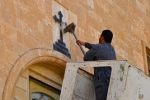 04.05.2015DESTROYING CHRISTIAN CULTURAL HERITAGE SITES: DON'T ONLY CONDEMN ISIS, BUT ALSO THESE GLOBALLY RECOGNIZED GOV'T
04.05.2015DESTROYING CHRISTIAN CULTURAL HERITAGE SITES: DON'T ONLY CONDEMN ISIS, BUT ALSO THESE GLOBALLY RECOGNIZED GOV'T
By Haykaram Nahapetyan
A recent video on the destruction of ancient monuments by Islamic State in the Middle East has shocked the international community. The ISIS has sought to justify destruction of Assyrian ancient monuments in Northern Iraq by Islamic norms. The International community's reaction was predictable: the United Nations' cultural agency labeled those actions as a war crime, calling the world to "respond to this criminal chaos that destroy culture" and "put an end to this catastrophe".
 29.04.2015INSIGHTS INTO TURKISH DOMESTIC AND INTERNATIONAL POLITICS
29.04.2015INSIGHTS INTO TURKISH DOMESTIC AND INTERNATIONAL POLITICS
By John VanPool
Key Points:
- Prime Minister Erdogan claims Iran is attempting to divide and conquer the Middle East, but tempers his criticisms following a visit to Tehran...
 27.04.2015POTENTIAL MODELS OF INTERNET GOVERNANCE AND ARMENIA’S APPROACHES
27.04.2015POTENTIAL MODELS OF INTERNET GOVERNANCE AND ARMENIA’S APPROACHES
Samvel Martirosyan
The matters of internet governance are among the most complicated problems today, as quite often there are no ready solutions to them. There are several internet governance models today. One of them is complete state monopoly over internet, whereby the government ignores the opinions of other stakeholders in the society. This approach is currently gaining foothold in many countries: China adheres to this approach.
 22.04.2015COULD CHRISTIANITY BE DRIVEN FROM MIDDLE EAST?
22.04.2015COULD CHRISTIANITY BE DRIVEN FROM MIDDLE EAST?
By Jane Corbin
Can Christianity survive, in the face of persecution and conflict, in the region of its birth? The BBC's Jane Corbin travelled across the Middle East - through Iraq and Syria - to investigate the plight of Christians, as hundreds of thousands flee Islamic militancy in the region.
 15.04.2015CAN WE MOVE TOWARDS A MULTIPOLAR WORLD DESPITE HEGEMONY IN THE MEDIA?
15.04.2015CAN WE MOVE TOWARDS A MULTIPOLAR WORLD DESPITE HEGEMONY IN THE MEDIA?
by Roberto Quaglia
States struggling against imperialism are probably not sufficiently aware of the importance of having non-aligned media. Yet, obviously, Russia Today, Press TV, Telesur and Al Mayadeen are better at defending freedom than other weapons. For these are indeed weapons we are talking about.
 13.04.2015HOW AMERICA BECAME AN OLIGARCHY
13.04.2015HOW AMERICA BECAME AN OLIGARCHY
By Ellen Brown
According to a new study from Princeton University, American democracy no longer exists. Using data from over 1,800 policy initiatives from 1981 to 2002, researchers Martin Gilens and Benjamin Page concluded that rich, well-connected individuals on the political scene now steer the direction of the country, regardless of – or even against – the will of the majority of voters. America’s political system has transformed from a democracy into an oligarchy, where power is wielded by wealthy elites.
 09.04.2015THE ARMENIAN PORTENT AND PARADIGM: TOWARD RE-CONCEPTUALIZING THE ARMENIAN TRAGEDY
09.04.2015THE ARMENIAN PORTENT AND PARADIGM: TOWARD RE-CONCEPTUALIZING THE ARMENIAN TRAGEDY
Marek Jan Chodakiewicz
The Armenian Tragedy is a sin crying to the Heavens for vengeance. Not only a horrible crime was committed, but there has been no contrition to speak of. This answers one question: What happened? But the matter is not closed. Christian understanding of the horror is not enough for scholarly and legal reasons.
 07.04.2015GERMAN INTRANSIGENCE RAISES SPECTRE FOR ‘GREXIT’
07.04.2015GERMAN INTRANSIGENCE RAISES SPECTRE FOR ‘GREXIT’
Nile Bowie
Greece’s newly elected government, led by the leftist Syriza coalition that swept into power in January on an anti-austerity platform, finds itself in a highly unenviable position. Athens is burdened by colossal debt, imminent liquidity problems and a looming banking collapse. What is at stake for Greece now is its very ability to survive economically within the euro-zone.
 01.04.2015AMERICAN INFORMATION WEAPON USED AGAINST EUROPEAN POLITICIANS
01.04.2015AMERICAN INFORMATION WEAPON USED AGAINST EUROPEAN POLITICIANS
by Georgy Voskresensky
Anonymous first appeared in 2003 on Internet image boards as a group of hackers espousing the freedom of speech and operating as an «anarchist global digital brain». It is an instrument or a weapon designed to be used in information warfare. It has an advantage - in many cases it is extremely hard to define who exactly used it.
 31.03.2015IT INDEPENDENCE IS NATIONAL SECURITY
31.03.2015IT INDEPENDENCE IS NATIONAL SECURITY
Author: Ulson Gunnar
The NSA’s “Equation Group” is apparently behind the infection with malware of hard drive firmware on computers used by nations considered “enemies” by the United State. The installation of the malware is believed to have required access to trade secrets of IT manufacturers as well as physical access to the soon-to-be infected computers. Popular Science in their article “The World’s Most Sophisticated Malware Ever Infects Hard Drive Firmware“ suggests that the NSA intercepted computers in transit through global logistical chains.
31.03.2015EUROPE ALSO PIVOTS – TO CHINA
By M. K. Bhadrakumar
The decision by Britain to seek admission to the Asian Infrastructure Investment Bank [AIIB] as a founding member apparently took Washington by surprise. The State Department spokesperson admitted that there was “virtually no consultation with the US” and that it was “a sovereign decision made by the United Kingdom.”
 23.03.2015WASHINGTON’S WAR ON RUSSIA
23.03.2015WASHINGTON’S WAR ON RUSSIA
by Mike Whitney
“In order to survive and preserve its leading role on the international stage, the US desperately needs to plunge Eurasia into chaos, (and) to cut economic ties between Europe and Asia-Pacific Region … Russia is the only (country) within this potential zone of instability that is capable of resistance. It is the only state that is ready to confront the Americans. Undermining Russia’s political will for resistance… is a vitally important task for America.”
 16.03.2015DOES RUSSIA POSE A NAVAL THREAT FOR THE WEST IN MEDITERRANEAN?
16.03.2015DOES RUSSIA POSE A NAVAL THREAT FOR THE WEST IN MEDITERRANEAN?
By Pavel Koshkin
Even though the Kremlin is taking steps to increase its naval influence in the Mediterranean, the West doesn’t see this stance as a threat or a return to a Cold War-style arms race.
 09.03.2015AMERICA'S 'WEAPONIZED' DIPLOMACY IN UKRAINE
09.03.2015AMERICA'S 'WEAPONIZED' DIPLOMACY IN UKRAINE
James Carden
Thirty years ago, the historian and diplomat George F. Kennan published a seminal essay in Foreign Affairs titled “Morality and Foreign Policy” in which he decried the stubborn tendency of the stewards of American foreign policy to treat every problem of geopolitics that arises in the course of human events as soluble, and what’s more, soluble by the American government.
 05.03.2015THE FUTURE OF THE MIDDLE EAST
05.03.2015THE FUTURE OF THE MIDDLE EAST
by Thierry Meyssan
For several months, Barack Obama has been trying to change US policy in the Middle East in order to eliminate the Islamic Emirate with the help of Syria. But he cannot do this, partly because he has been saying for years that President Assad must go, and secondly because his regional allies support the Islamic Emirate against Syria.
 02.03.2015CENTERS FOR ARMENIAN STUDIES IN THE POST-SOVIET COUNTRIES
02.03.2015CENTERS FOR ARMENIAN STUDIES IN THE POST-SOVIET COUNTRIES
Vahram Hovyan
In the ex-USSR, centers for Armenian Studies exist mainly in three countries: Russia, Ukraine and Georgia. In all these three countries Armenian Studies have traditionally been a well-developed scientific discipline. Interest toward Armenian Studies in these countries has been triggered by a combination of several factors, including:
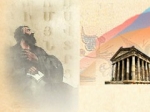 24.02.2015CENTERS FOR ARMENIAN STUDIES IN EUROPE
24.02.2015CENTERS FOR ARMENIAN STUDIES IN EUROPE
Arestakes Simavoryan
Armenian Studies have deep roots and traditions in Europe. In various historical periods reputable centers for Armenian Studies existed at various academic and religious institutions in European countries. As many authors note, development of Armenian Studies coincided with the European Age of Enlightenment and periods thereafter, with Mekhitarist Congregation playing a unique role in it.
 20.02.2015BROKEN HEARTS CLUB: 6 ALLIES AMERICA NEEDS TO DIVORCE
20.02.2015BROKEN HEARTS CLUB: 6 ALLIES AMERICA NEEDS TO DIVORCE
The United States has spent decades collecting allies like many people accumulate Facebook “Friends.
”It’s hard to get out of a bad relationship. The good times may be over and the once vibrant connection may be dead, but people just can’t admit that it’s time to say goodbye.
 19.02.2015PROSPECTS OF COLLABORATION BETWEEN ARMENIA AND CENTERS FOR ARMENIAN STUDIES IN AMERICA
19.02.2015PROSPECTS OF COLLABORATION BETWEEN ARMENIA AND CENTERS FOR ARMENIAN STUDIES IN AMERICA
Tigran Ghanalanyan
There are about forty centers for Armenian Studies in both Americas: the USA, Argentina, Brazil and Canada. Many of these centers established in late 20th and early 21st centuries are active in scientific research and education.
 10.02.2015THE MESSAGE OF SYRIZA’S VICTORY
10.02.2015THE MESSAGE OF SYRIZA’S VICTORY
By Mark Weisbrot, CounterPunch, February 3, 2015
Everyone seems to agree that Syriza’s big victory in Greece is a milestone for Europe, which has been plagued by mass unemployment and a failure to really recover from the financial crisis and world recession of 2008-09. But what kind of a milestone will it be? We can get some ideas from focusing on a few key issues, especially economic policy, which remain surrounded by much confusion in the public debate.
 09.02.2015IRAN AND SOUTH CAUCASUS: THE IMPLICATIONS OF “FREEZING”
09.02.2015IRAN AND SOUTH CAUCASUS: THE IMPLICATIONS OF “FREEZING”
Sevak Sarukhanyan
Although Iran and the six powers were unable to reach an agreement on the nuclear issue in 2014, the negotiations will continue in 2015 and there is a theoretical chance that if not full, then at least some partial settlement will be reached in the relations between Tehran and Washington. The article presents the potential corollaries that such arrangement may bring for South Caucasus.
 05.02.2015WAR BY MEDIA AND THE TRIUMPH OF PROPAGANDA
05.02.2015WAR BY MEDIA AND THE TRIUMPH OF PROPAGANDA
By John Pilger
Why has so much journalism succumbed to propaganda? Why are censorship and distortion standard practice? Why is the BBC so often a mouthpiece of rapacious power? Why do the New York Times and the Washington Post deceive their readers?
 03.02.2015THE COLLAPSE OF EUROPE?
03.02.2015THE COLLAPSE OF EUROPE?
The European Union May Be on the Verge of Regime Collapse
By John Feffer
Not long after the Berlin Wall fell a quarter of a century ago, the Soviet Union collapsed, the United States squandered its peace dividend in an attempt to maintain global dominance, and Europe quietly became more prosperous, more integrated, and more of a player in international affairs.
 02.02.2015PEACE INSTEAD OF NATO
02.02.2015PEACE INSTEAD OF NATO
By Oskar Lafontaine
For the vast majority of the population of the former Federal Republic, NATO has been the guarantor of peace and freedom for a long time. Anti-communism, fuelled by the fear of the Soviet Union operated by the world revolution, the Berlin Blockade and the construction of the Berlin Wall left little room to think about alternatives to NATO.
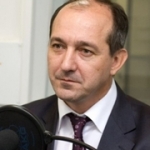 29.01.2015FAILURE TO SAVE INF TREATY WOULD JEOPARDIZE EUROPEAN SECURITY
29.01.2015FAILURE TO SAVE INF TREATY WOULD JEOPARDIZE EUROPEAN SECURITY
Vladimir Evseev
Termination of the Intermediate-Range Nuclear Forces Treaty could lead to an arms race in Europe and a rise in Cold War rhetoric.
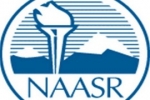 26.01.2015THE MAIN DIRECTIONS OF ACTIVITIES OF THE CENTERS FOR ARMENIAN STUDIES IN THE USA
26.01.2015THE MAIN DIRECTIONS OF ACTIVITIES OF THE CENTERS FOR ARMENIAN STUDIES IN THE USA
Tigran Ghanalanyan
Till mid-20th century Armenian Studies in America were developed by individuals and there were no organizations in this area. However, certain things had been done that prepared ground for future establishment of centers for Armenian Studies.
 22.01.2015PROBLEMS OF THE CENTERS FOR ARMENIAN STUDIES AND THE WAYS OF THEIR SOLUTION
22.01.2015PROBLEMS OF THE CENTERS FOR ARMENIAN STUDIES AND THE WAYS OF THEIR SOLUTION
Arestakes Simavoryan, Vahram Hovyan
Today the centers for Armenian Studies abroad face very serious problems and challenges, which not only hamper their normal activities, but pose threats to their very existence. These problems include lack of finance, specialists, research and educational materials and uncoordinated activities.
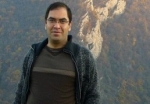 19.01.2015HOW OLD IS THE AZERBAIJANI NATION: ONCE AGAIN ABOUT THE IDENTITY OF ABSHERON MUSLIMS
19.01.2015HOW OLD IS THE AZERBAIJANI NATION: ONCE AGAIN ABOUT THE IDENTITY OF ABSHERON MUSLIMS
Haykaram Nahapetyan
Modern Azerbaijan, akin to “caviar diplomacy” also develops “caviar science” not only in Azerbaijan, but also by ordering “research” in foreign countries that present the current territory of Azerbaijan, as well as Artsakh, Zangezur and Yerevan as millennia-old Azeri homeland. Baku post factum declares the Christian monuments on these territories or other Armenian settlements as Caucasian Albanian. Even if those were Albanian, Azerbaijan has no priority over Armenia to claim heritage of the historically Christian territories of Caucasian Albania.
 15.01.2015THE COVERAGE OF ARMENIA’S INTEGRATION PROCESSES IN DIASPORA MEDIA IN JANUARY-OCTOBER 2014
15.01.2015THE COVERAGE OF ARMENIA’S INTEGRATION PROCESSES IN DIASPORA MEDIA IN JANUARY-OCTOBER 2014
Diana Galstyan, Lilit Hakobyan
With an objective to uncover the discourse trends of Diaspora’s media on Republic of Armenia’s (RoA) integration policies, a qualitative analysis of thematic articles published in January-October, 2014 in 18 Diaspora mass media was conducted.
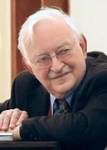 12.01.2015NATO: DANGER TO WORLD PEACE
12.01.2015NATO: DANGER TO WORLD PEACE
By Immanuel Wallerstein
The official mythology is that between 1945 (or 1946) and 1989 (or 1991), the United States and the Soviet Union (USSR) confronted each other continuously – politically, militarily, and above all ideologically. This was called the “cold war.” If it was a war, the word to underline is “cold” since the two powers never engaged in any direct military action against each other throughout the entire period.
 29.12.2014ABOUT THE SELF-ORGANIZATION PROBLEMS OF DIASPORA
29.12.2014ABOUT THE SELF-ORGANIZATION PROBLEMS OF DIASPORA
Vahram Hovyan
In self-organizing the Diaspora the organizational entities are of vital importance, as they act as a live organism through which Diaspora carries out its activities. In this respect, it appears important to form a pan-national organization as an institution for self-organizing the entire Diaspora, which would be unlike the community structures that are institutions for self-organization of specific communities in Diaspora.
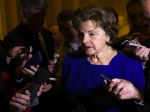 26.12.2014THE CONGRESSIONAL REPORT ON TORTURE CONFIRMS THAT AL QAEDA WAS NOT INVOLVED IN THE ATTACKS OF SEPTEMBER 11
26.12.2014THE CONGRESSIONAL REPORT ON TORTURE CONFIRMS THAT AL QAEDA WAS NOT INVOLVED IN THE ATTACKS OF SEPTEMBER 11
by Thierry Meyssan
Publicly released excerpts of the report of the Senate Committee on the CIA’s secret torture program reveal a vast criminal organization. Thierry Meyssan has read for you the 525 pages of this document. He found evidence of what he has been saying for years.
 25.12.2014DISCUSSION OF ARMENIA’S GEOPOLITICAL STANDPOINTS IN DIASPORA
25.12.2014DISCUSSION OF ARMENIA’S GEOPOLITICAL STANDPOINTS IN DIASPORA
Anna Zhamakochyan
In the recent years the Republic of Armenia (RoA) has been involved in geopolitical integration processes. Since 2010 the RoA was involved in the negotiation process for Deep and Comprehensive Free Trade Agreement with the EU, while in 2013 the RoA president announced about Armenia’s readiness to join the Customs Union of Russia, Kazakhstan and Belarus (and in future also the Eurasian Union).
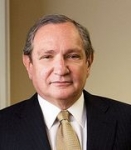 22.12.2014VIEWING RUSSIA FROM THE INSIDE
22.12.2014VIEWING RUSSIA FROM THE INSIDE
By George Friedman
Last week I flew into Moscow, arriving at 4:30 p.m. on Dec. 8. It gets dark in Moscow around that time, and the sun doesn't rise until about 10 a.m. at this time of the year — the so-called Black Days versus White Nights. For anyone used to life closer to the equator, this is unsettling. It is the first sign that you are not only in a foreign country, which I am used to, but also in a foreign environment.
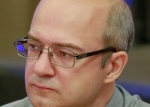 18.12.2014APEC SUMMIT SHOWED THAT THE AGE OF ASIA HAS ARRIVED
18.12.2014APEC SUMMIT SHOWED THAT THE AGE OF ASIA HAS ARRIVED
Sergey Grinyaev, General Director of independent NGO Centre of Strategic Estimations and Forecasts commented on the APEC summit held in the Chinese capital during an interview with Pravda.Ru reporter.
 15.12.2014EEU AND ARMENIA
15.12.2014EEU AND ARMENIA
(Possible Scenarios and Mythologems)
Gagik Harutyunyan
The Republic of Armenia (RoA) membership in the Eurasian Economic Union (EEU) is a large-scale strategic process that relates to almost all areas of our society’s daily activities. Hence, it has to be stated that any claims that EEU is purely an economic union are groundless and the events in Ukraine make this evident. In the context of the Eurasian integration process we shall attempt to briefly present some considerations that are related to the military, political and information security areas of the Third Republic of Armenia.
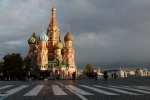 11.12.2014FROM DA TO NYET: HOW U.S. DIPLOMACY HELPED TRANSFORM RUSSIA FROM POTENTIAL ALLY INTO STRATEGIC ADVERSARY
11.12.2014FROM DA TO NYET: HOW U.S. DIPLOMACY HELPED TRANSFORM RUSSIA FROM POTENTIAL ALLY INTO STRATEGIC ADVERSARY
Raymond Smith
The intense diplomatic activity that accompanies the end of a major international war has two broad objectives: first, for the winners, maximizing their gains and, for the losers, minimizing their losses; second, creating a new and more stable international system so that a renewal of the carnage the participants have just endured is less likely. The Thirty Years’ War, the War of the Spanish Succession, the French Revolutionary and Napoleonic Wars and World Wars I and II all either followed or produced a breakdown of the old system.
 08.12.2014CENSORSHIP ALERT: THE ALTERNATIVE MEDIA GETTING HARASSED BY THE NSA
08.12.2014CENSORSHIP ALERT: THE ALTERNATIVE MEDIA GETTING HARASSED BY THE NSA
Author: Christof Lehmann
Google’s Safe Browsing List that blocks websites and flags them as containing malware is increasingly used as mechanism for the censoring of independent media and the falsification of history. It is an alarming development that, left unchallenged, puts the survival of any independent newspaper, blog, TV or radio station at risk.
 01.12.2014WHY UKRAINE MUST BARGAIN FOR PEACE WITH RUSSIA
01.12.2014WHY UKRAINE MUST BARGAIN FOR PEACE WITH RUSSIA
By Samuel Charap
The "let's make a deal" moment has arrived for Kiev and Moscow. But by pushing a hard-line agenda against Putin, the United States and Europe are only making things worse for Ukraine.
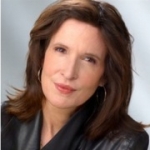 27.11.2014RETHINKING THE COST OF WESTERN INTERVENTION IN UKRAINE
27.11.2014RETHINKING THE COST OF WESTERN INTERVENTION IN UKRAINE
By Katrina vanden Heuvel
Samantha Power, the U.S. ambassador to the United Nations, recently cautioned Americans against intervention fatigue: “I think there is too much of ‘Oh, look, this is what intervention has wrought’ . . . one has to be careful about overdrawing lessons.” Say what?
 20.11.2014SENSITIVITY THRESHOLDS OF COUNTRIES WITH TRANSITIONAL ECONOMIES: THE CASE OF ARMENIA
20.11.2014SENSITIVITY THRESHOLDS OF COUNTRIES WITH TRANSITIONAL ECONOMIES: THE CASE OF ARMENIA
Ashot A. Tavadyan
The analysis of sensitivity thresholds of economy enables to identify the critical characteristics of key economic processes of transition from quantity to a new economic quality. The complex investigation of sensitivity thresholds of economy conduces to the identification of their interrelations. Since uncertainty intervals are present in economy, it is possible to present only the interval forecast of sensitivity thresholds.
17.11.2014CHRISTIANITY IN THE MIDDLE EAST
The Christian presence in the Middle East has created, throughout centuries, a unique phenomenon which grew on the margins of non-Christian States and among them. It is worth mentioning that the Christian presence was neither incidental nor recent, for its roots date back to the time before Islam had appeared as a religion which later became a vastly expanded State.
13.11.2014HISTORICAL TRUTH AGAINST TURKISH AND AZERBAIJANI FALSIFICATIONS IN INFORMATION WARFARE
Eduard L. Danielyan
More than five millennia-old ethno-spiritual, political and cultural roots of the Armenian statehood in the Armenian Highland are attested to by the archaeological and architectural monuments, petroglyphs, cuneiform, ancient and medieval written and other historic sources. Historical truth is the backbone and informational defensive shield of the national security of Armenia.
 10.11.2014CRIMEA IS JUST ONE EPISODE IN RUSSIA’S LONG GAME IN POST-SOVIET EURASIA
10.11.2014CRIMEA IS JUST ONE EPISODE IN RUSSIA’S LONG GAME IN POST-SOVIET EURASIA
Simon Saradzhyan
Anyone with good knowledge of post-Soviet neighborhood and time to think things through should have guessed that Russia would have acted to prevent the interim government of Ukraine from decisively anchoring their country to the West.
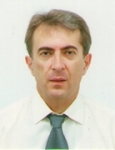 06.11.2014CORRUPTION VS. CHRISTIAN ETHICS
06.11.2014CORRUPTION VS. CHRISTIAN ETHICS
Tigran Babasyan
This article is an integral part of a larger inquiry on the subject drawing on the related fields of knowledge without which it is impossible to identify the ongoing problematics and unknot its intertwined intricacy. However, it tends to dwell more on the two basic issues underlying the subject matter.
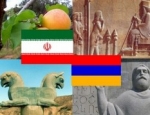 03.11.2014THE ARMENIAN STUDIES IN MODERN IRAN
03.11.2014THE ARMENIAN STUDIES IN MODERN IRAN
Vahram Hovyan
Currently there are three centers of Armenian Studies in Iran, two of which are located in Tehran and one in Isfahan. All three centers are university departments. One of such centers in Tehran is the Chair of Armenian Studies at the University of Tehran, and the other one is the Department of Armenian Language and Literature at the Islamic Azad University of Tehran. The third center is the Isfahan University’s Armenian Studies Department.
 30.10.2014 PROPOSALS REGARDING CYBERSECURITY OF ARMENIA
30.10.2014 PROPOSALS REGARDING CYBERSECURITY OF ARMENIA
Samvel Martirosyan
Day to day Armenia becomes more vulnerable to cyber-attacks. Until recently various cyber-attacks were viewed simply as curious media-events, while today, when dozens of websites come under hacker attacks, some cases of deeper impacts are seen. For example, a number DDoS attacks in 2013-2014 (perpetrators of which remain unknown to date) resulted in an overall internet disruption in Armenia.
30.10.2014FOR ANKARA, IS MASSACRE A POLICY OPTION?
by Thierry Meyssan
Is the new alliance between Turkey and France concerned only with economic issues, to wit entry into the European Union, or is it purely political? In this case, must Paris provide cover for Ankara whatever the policy? Does this support go as far as genocide?
27.10.2014THE TROJAN WAR AND THE “PORCELAIN OF PRAGUE”: A COMPARATIVE ANALYSIS BETWEEN THE CONFLICTS OF CYPRUS, NAGORNO-KARABAKH AND KOSOVO
Yiannos Charalambides
It is obvious and has been proved throughout the history of humanity that the international system has been suffering from the historical, social, political and economic phenomenon of conflicts and wars. This is why the reasons of triggering a war are always pursued in order to work out a formula to prevent conflicts and wars.
 20.10.2014GLOBAL SYSTEMIC CRISIS – 2015: THE WORLD IS DEFECTING TO THE EAST
20.10.2014GLOBAL SYSTEMIC CRISIS – 2015: THE WORLD IS DEFECTING TO THE EAST
Two important facts emerge from the past four weeks’ news. First, China is becoming the world’s largest economic power, officially overtaking the US, based on GDP measured in purchasing power terms (IMF figures) of $17.61 trillion (compared to $17.4 trillion for the US). If the official media hasn’t raised the slightest eyebrow to this information, our team believes that it’s an historic event: the US is no longer the world’s largest economic power and, inevitably, that changes everything!
 16.10.2014NON-INTERVENTIONISM – THE FORGOTTEN DOCTRINE
16.10.2014NON-INTERVENTIONISM – THE FORGOTTEN DOCTRINE
A Paper by John Laughland, Director of Studies, Institute of Democracy and Cooperation (Paris), delivered at the 12th Rhodes Forum on September 26, 2014
I would like to draw attention to a specific characteristic of Western-backed regime change as it has been practised in recent years and decades. In nearly all cases, regime change has been accompanied by criminal prosecution of the old regime.
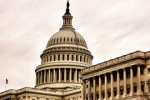 13.10.2014CAN CHINA AND RUSSIA SQUEEZE WASHINGTON OUT OF EURASIA?
13.10.2014CAN CHINA AND RUSSIA SQUEEZE WASHINGTON OUT OF EURASIA?
By Pepe Escobar, TomDispatch
A specter haunts the fast-aging “New American Century”: the possibility of a future Beijing-Moscow-Berlin strategic trade and commercial alliance. Let’s call it the BMB. Its likelihood is being seriously discussed at the highest levels in Beijing and Moscow, and viewed with interest in Berlin, New Delhi, and Tehran. But don’t mention it inside Washington’s Beltway or at NATO headquarters in Brussels.
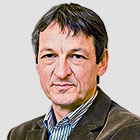 13.10.2014NEOLIBERALISM HAS BROUGHT OUT THE WORST IN US
13.10.2014NEOLIBERALISM HAS BROUGHT OUT THE WORST IN US
by Paul Verhaeghe
We tend to perceive our identities as stable and largely separate from outside forces. But over decades of research and therapeutic practice, I have become convinced that economic change is having a profound effect not only on our values but also on our personalities. Thirty years of neoliberalism, free-market forces and privatisation have taken their toll, as relentless pressure to achieve has become normative.
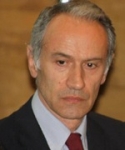 10.10.2014IDENTITARIAN REDUCTIONISM AND GEOPOLITICAL ANALYSIS
10.10.2014IDENTITARIAN REDUCTIONISM AND GEOPOLITICAL ANALYSIS
By Tiberio Graziani
Since the revolution led by Khomeini and the involvement of the mujahideen movement in the coeval soviet-afghan war, the study of the relation between religion and geopolitical analysis has led to a renovated interest among researchers and analysts. The two episodes, in fact, in addition to being an important geopolitical event, in some ways a forerunner of incipient disintegration of the bipolar system, has reinstated the religious element in the international dynamics as an essential factor useful for understanding the global scenarios.
 06.10.2014HUMAN RIGHTS ABUSES IN AZERBAIJAN TOO BLATANT TO COVER UP
06.10.2014HUMAN RIGHTS ABUSES IN AZERBAIJAN TOO BLATANT TO COVER UP
Commenting on the West’s reaction to the human rights situation in Azerbaijan, the political analyst Gagik Harutyunyan said he believes that the international community is thus seeking a kind of information pressure against the country.
 02.10.2014NEW DEVELOPMENTS AROUND THE ISSUE OF CHURCH PROPERTY RETURN IN TURKEY
02.10.2014NEW DEVELOPMENTS AROUND THE ISSUE OF CHURCH PROPERTY RETURN IN TURKEY
Vahram Hovyan
The problem of preserving and returning church properties in Turkey seized from Christian minorities is time to time brought into the political agenda. Recently the US House of Representatives Foreign Affairs Committee adopted the bill H.R. 4347, a.k.a. Turkey Christian Churches Accountability Act (on June 26, 2014 ordered to be reported unanimous consent), which once again made this issue a discussion subject in public/political and information dimensions.
29.09.2014INSIGHTS INTO TURKISH DOMESTIC AND INTERNATIONAL POLITICS DURING AUG. 16TH - SEPT. 15TH 2014
By John VanPool
Key Points:
- New Prime Minister Ahmet Davuglotu announces his cabinet with few surprises, save the re-appointment of economic policy heads Ali Babacan and Mehmet Simsek. The cabinet will continue to carry out its predecessor’s policies, though Turkey’s de facto leader remains President Recep Tayyip Erdogan.
 26.09.2014GLOBAL CONTEXT
26.09.2014GLOBAL CONTEXT
“The World War I turned out a momentous event for us, as Genocide took place and we lost Western Armenia. The current processes in aggregate are reminiscent of the WWI”, says Gagik HARUTYUNYAN, Director of Noravank Foundation.
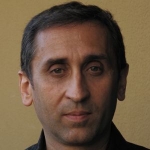 24.09.2014WHO MAKES UP THE "ISLAMIC EMIRATE"?
24.09.2014WHO MAKES UP THE "ISLAMIC EMIRATE"?
by Thierry Meyssan
While Western public opinion is fed information about the constitution of a purported international coalition to fight against the "Islamic Emirate", the latter changes shape discreetly. Its principal officers are no longer Arab, but Georgian and Chinese. For Thierry Meyssan, this mutation shows that NATO ultimately intends to use the "Islamic Emirate" in Russia and in China. Therefore, both countries must act now against the jihadists before they return to sow chaos in their countries of origin.
 18.09.2014THE ARMENIAN ISSUES IN THE AGENDA OF THE THIRD WORLD TURKIC FORUM
18.09.2014THE ARMENIAN ISSUES IN THE AGENDA OF THE THIRD WORLD TURKIC FORUM
Arestakes Simavoryan
In accordance with its foreign policy strategy, Turkey undertakes measures to unify Turkic countries around its axis, aimed at forming a common agenda not only in the political arena, but also in the areas of culture, education and tourism. The scientific/analytical centers (‘think-tanks’) are involved in these undertakings as well.
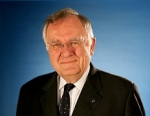 08.09.2014THE SPIRITUAL HERITAGE AS A SOURCE OF WISDOM IN THE AGE OF GLOBALISATION
08.09.2014THE SPIRITUAL HERITAGE AS A SOURCE OF WISDOM IN THE AGE OF GLOBALISATION
A Keynote Speech by Dr.Walter Schwimmer, Former Secretary General of the Council of Europe (1999-2004), Co-Chairman, World Public Forum “Dialogue of Civilizations”, presented at the 12th Annual GCGI International Conference and the 2nd Joint GCGI and SES Forum “The Value of Values: Spiritual Wisdom in Everyday Life”, 31 August-4 September, 2014, Waterperry House, Oxford
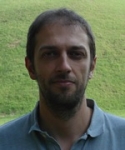 04.09.2014THE SOCIAL COSTS OF THE EU-RUSSIA SPLIT
04.09.2014THE SOCIAL COSTS OF THE EU-RUSSIA SPLIT
By Raffaele Marchetti
There is a big discussion about the high costs that EU Member States and Russia are going to pay as the result of the current waves of sanctions and countermeasures related to the Ukrainian crisis. Currently, the EU exports to Russia € 140 billion, conversely Russia exports to the EU around €180 billion.
 01.09.2014THE BATTLE AGAINST BARBARISM
01.09.2014THE BATTLE AGAINST BARBARISM
By Adrian Pabst
For the past few weeks, the world has watched on in horror as ISIS has intensified its barbarian campaign, killing thousands in unspeakably brutal ways and expelling many more. Eyewitness reports tell a gruesome story of summary executions, beheadings and crucifixions – Christians being nailed alive to crosses and left there to be bleed to death. The severed heads and mutilated bodies have been paraded outside conquered villages.
 31.07.2014EUROPE AWAKE!
31.07.2014EUROPE AWAKE!
Fred Dallmayr
In this year, 2014, we commemorate the 100th anniversary of the beginning of World War I, that ferocious war in which “Old Europe” - the Europe of the “Belle Epoque”, the Europe of traditional monarchies and dynasties - was destroyed. For the peoples of Europe it was an immense bloodletting, epitomized by trench warfare and the battle of Verdun. The war also laid the foundation for subsequent catastrophes.
 29.07.2014INSIGHTS INTO TURKISH DOMESTIC AND INTERNATIONAL POLITICS BETWEEN 16 MAY – 16 JULY 2014
29.07.2014INSIGHTS INTO TURKISH DOMESTIC AND INTERNATIONAL POLITICS BETWEEN 16 MAY – 16 JULY 2014
By John VanPool
Iraq implodes as the Islamic State (IS, formerly known as the Islamic State of Iraq and the Levant or alternatively the Islamic State of Iraq and Syria) allies with Iraqi Sunnis to overtake large swaths of the country’s northwest, including the city of Mosul. Turkish hostages are taken in the city, and the Kurdish Regional Government of Iraq halts IS’s march towards oil-rich Kirkuk.
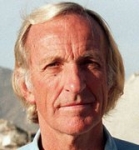 21.07.2014THE WORLD WE'VE CONSTRUCTED IS FAR BEYOND GEORGE ORWELL'S WORST NIGHTMARE
21.07.2014THE WORLD WE'VE CONSTRUCTED IS FAR BEYOND GEORGE ORWELL'S WORST NIGHTMARE
By John Pilger
The other night, I saw George Orwell’s 1984 performed on the London stage. Although crying out for a contemporary interpretation, Orwell’s warning about the future was presented as a period piece: remote, unthreatening, almost reassuring. It was as if Edward Snowden had revealed nothing, Big Brother was not now a digital eavesdropper and Orwell himself had never said, “To be corrupted by totalitarianism, one does not have to live in a totalitarian country.”
 14.07.2014CAN SANCTIONS STOP PUTIN?
14.07.2014CAN SANCTIONS STOP PUTIN?
By: Clifford G. Gaddy and Barry W. Ickes
As the Ukraine crisis continues, further rounds of sanctions on Russia are being discussed. But the question that still hasn’t been answered is, do sanctions work? For some, the question seems unnecessary. Clearly, sanctions work. Capital is flowing out of Russia, the ruble is losing value, Russian companies have less access to foreign credits, and the country’s GDP is falling.
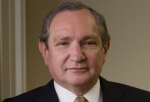 07.07.2014THE SUNNI RAMADAN OFFENSIVE AND THE LESSONS OF TET
07.07.2014THE SUNNI RAMADAN OFFENSIVE AND THE LESSONS OF TET
By George Friedman
In February 1968, the North Vietnamese Army and the Viet Cong launched a general offensive in Vietnam during Tet, the Vietnamese New Year. From mid-1966 onward, the North Vietnamese had found themselves under increasing pressure from American and South Vietnamese forces. They were far from defeated, but they were weakening and the likelihood of their military victory was receding.
 04.07.2014WHAT MAKES US DIPLOMATS TALK OF CAUCASUS CRISIS-2014?
04.07.2014WHAT MAKES US DIPLOMATS TALK OF CAUCASUS CRISIS-2014?
Ekaterina Kudashkina
US experts and diplomats have been warning of a new security crisis that could break out in the South Caucasus in autumn of 2014. How good is the forecast and is there any evidence the region is really headed for a new war? Or is it rather a threat aimed at disrupting these countries’ ties with Russia? We are discussing the issue with Razi Nurullayev, Azerbaijani political analyst and the head of “Region” International Analytical Centre, and Sevak Sarukhanyan, deputy head of the Noravank think tank in Yerevan.
 30.06.2014FRENCH EXPERT: RECOGNITION OF NAGORNO-KARABAKH REPUBLIC IS THE ONLY SOLUTION THAT CAN ENSURE STABILITY IN REGION
30.06.2014FRENCH EXPERT: RECOGNITION OF NAGORNO-KARABAKH REPUBLIC IS THE ONLY SOLUTION THAT CAN ENSURE STABILITY IN REGION
Panorama.am presents an interview with Adrien Gévaudan, expert in geopolitics and geo-economics, founder of analytical website IntStrat, who has recently published an article titled “Geopolitics of the Greater Caucasus and Nagorno-Karabakh” (also published in French).
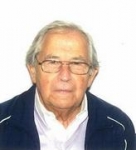 26.06.2014DIVIDE AND RULE – AND NO END?
26.06.2014DIVIDE AND RULE – AND NO END?
By Fred Dallmayr, Co-Chairman, WPF “Dialogue of Civilizations”
There is an old German proverb saying that “two parties may fight at the third party’s delight.” The delight may sometimes be accidental, as when someone by happenstance stumbles upon two fighting parties. More frequently, however, the delight is deliberately produced or the result of a deliberate strategy.
 26.06.2014KATARYNA WOLCZUK: ARMENIA SHOULD BE NEGOTIATING TREATY OF EURASIAN UNION, NOT ONLY THAT OF CUSTOMS UNION
26.06.2014KATARYNA WOLCZUK: ARMENIA SHOULD BE NEGOTIATING TREATY OF EURASIAN UNION, NOT ONLY THAT OF CUSTOMS UNION
Panorama.am presents an interview with Dr. Kataryna Wolczuk, Senior Lecturer in East European Politics at the Centre for Russian and East European Studies, University of Birmingham, UK and the co-editor of the book Eurasian Economic Integration: Law, Policy and Politics (2013).
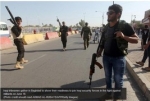 23.06.2014JORDAN COULD BE THE ISLAMIC STATE IN IRAQ AND THE LEVANT'S NEXT TARGET
23.06.2014JORDAN COULD BE THE ISLAMIC STATE IN IRAQ AND THE LEVANT'S NEXT TARGET
The Islamic State in Iraq and the Levant, buoyed by its recent successes in Iraq, wants to expand its regional reach. Reports that Iraq has withdrawn forces from western towns close to its 180-kilometer (110-mile) border with Jordan have left Amman feeling vulnerable, and the Hashemite kingdom, certainly a target of interest for the jihadist movement, has deployed additional security personnel along the border.
 19.06.2014THE ARMENIAN IDENTITY IN FRANCE IN THE GRIP OF MEMORIALIZATION
19.06.2014THE ARMENIAN IDENTITY IN FRANCE IN THE GRIP OF MEMORIALIZATION
Tigran Yegavian
A year now from celebrating the centenary of the 1915 Genocide, the large Armenian Diaspora of France has made a priority of the « memorial duty » and the fight against revisionism at the expense of reflecting on their very future and lasting presence.
 16.06.2014A CALL TO SAVE ALEPPO FROM DESTRUCTION
16.06.2014A CALL TO SAVE ALEPPO FROM DESTRUCTION
Rev. Haroutune Selimian
The situation in Aleppo has taken a turn for the worse since the beginning of June. Dozens of mortar bombs have damaged or completely destroyed buildings in the predominantly Armenian neighborhoods of Nor Kyugh and Suleimanieh, as the opposition intensified its offensive in areas of Aleppo held by regime forces.
 16.06.201465 ARMENIAN FAMILIES FORCED OUT OF MOSUL AMID EXTREMIST TAKEOVER
16.06.201465 ARMENIAN FAMILIES FORCED OUT OF MOSUL AMID EXTREMIST TAKEOVER
Sources at the Armenian Prelacy in Iraq have said that 65 Armenian families and a priest in Mosul were forced out of the city after Islamist militants raided the city and took control of Iraq’s second largest city, reported the Aztag Daily newspaper.
 09.06.2014HOW WEALTHY ELITES ARE HIJACKING DEMOCRACY ALL OVER THE WORLD
09.06.2014HOW WEALTHY ELITES ARE HIJACKING DEMOCRACY ALL OVER THE WORLD
By Sonali Kolhatkar
Amid the upheavals in Thailand, Ukraine and Egypt, wealthy elites have used popular movements and elections to ratify decisions in their favor.
 05.06.2014EXPLORING THE ROLE OF ECONOMIC INITIATIVES AS PEACE BUILDING TOOLS IN THE NAGORNO-KARABAKH CONTEXT
05.06.2014EXPLORING THE ROLE OF ECONOMIC INITIATIVES AS PEACE BUILDING TOOLS IN THE NAGORNO-KARABAKH CONTEXT
As part of its work, EGF recently published a study entitled “A Pragmatic Review of Nagorno-Karabakh Conflict Resolution: Could Economic Incentives Help Break the Deadlock?”. While this research was well received by stakeholders monitoring developments on Nagorno-Karabakh, the study concluded that economic incentives, on their own, could not substitute for a political settlement to the conflict itself.
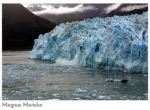 02.06.2014ON THE EDGE: TOTAL DESTRUCTION
02.06.2014ON THE EDGE: TOTAL DESTRUCTION
By: Noam Chomsky
When I hear the phrase “on the edge,” the irresistible image is the proverbial lemmings marching resolutely to the cliff. For the first time in history, humans are now poised to destroy the prospects for decent existence, and much of life.
 26.05.2014NEW TRANSPORT PROJECTS IN THE REGION
26.05.2014NEW TRANSPORT PROJECTS IN THE REGION
Sevak Sarukhanyan
Recently there has been a surge in work on international transport projects. This concerns also the South Caucasus and Caspian region, where several projects are close to completion. Unfortunately, these projects may to a certain extent negatively affect the regional interests of the Republic of Armenia.
 19.05.2014KESSAB EVENTS: AN OUTLOOK FROM YEREVAN
19.05.2014KESSAB EVENTS: AN OUTLOOK FROM YEREVAN
Vahram Hovyan
On March 21, 2014 a sudden breakthrough of militants from Turkey and capture of the Armenian-populated Kessab near the Turkish-Syrian border once again attracted the attention of the Armenian media and experts’ community on the Syria crisis and within this context, on the security problems of Armenians living in Syria.
 15.05.2014IN UKRAINE, THE US IS DRAGGING US TOWARDS WAR WITH RUSSIA
15.05.2014IN UKRAINE, THE US IS DRAGGING US TOWARDS WAR WITH RUSSIA
John Pilger
Why do we tolerate the threat of another world war in our name? Why do we allow lies that justify this risk? The scale of our indoctrination, wrote Harold Pinter, is a "brilliant, even witty, highly successful act of hypnosis", as if the truth "never happened even while it was happening".
 12.05.2014DDOS ATTACKS ON ARMENIA CAUSE CONCERNS
12.05.2014DDOS ATTACKS ON ARMENIA CAUSE CONCERNS
Samvel Martirosyan
The DdoS hacking attacks cause increasing concerns for the global network security. Recently Armenia has also been frequently targeted by such attacks.
07.05.2014ANOTHER NYT ‘SORT OF’ RETRACTION ON UKRAINE
By Robert Parry
Exclusive: The mainstream U.S. media likes to talk about Ukraine as an “information war,” meaning that the Russians are making stuff up. But the false narratives are actually being hatched more on the U.S. side, as a new New York Times story acknowledges, writes Robert Parry.
 06.05.2014ON SOME PECULIARITIES OF THE “COLD WAR 2”
06.05.2014ON SOME PECULIARITIES OF THE “COLD WAR 2”
Gagik Harutyunyan
After the downfall of the USSR only the laziest commentators did not say something along the lines that the cold war is over and soon an era of peace and prosperity will follow. Given the economic and social collapse in all post-Soviet countries, if such era ever happened, then only very few have experienced it.
 30.04.2014ROSNEFT: A NEW BUSINESS PROJECT IN ARMENIA
30.04.2014ROSNEFT: A NEW BUSINESS PROJECT IN ARMENIA
Mikhail Aghajanyan
A new large business project brews in Russian-Armenian relations. Rosneft corporation is just one step away from entering the Armenian market. The agenda of negotiations between business entities of the strategic partner-countries in South Caucasus includes two main issues.
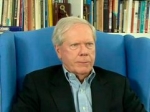 17.04.2014WASHINGTON DRIVES THE WORLD TO WAR — PAUL CRAIG ROBERTS
17.04.2014WASHINGTON DRIVES THE WORLD TO WAR — PAUL CRAIG ROBERTS
The CIA director was sent to Kiev to launch a military suppression of the Russian separatists in the eastern and southern portions of Ukraine, former Russian territories for the most part that were foolishly attached to the Ukraine in the early years of Soviet rule.
 14.04.2014FUROR OVER CLAIMS OF TURKISH HAND IN SYRIAN CHEMICAL ATTACK
14.04.2014FUROR OVER CLAIMS OF TURKISH HAND IN SYRIAN CHEMICAL ATTACK
By Carl Schreck
An acclaimed American journalist has come under fire over his report suggesting Turkey was behind an August 21 chemical weapons attack in Syria that brought the United States to the brink of military action against Damascus.
 10.04.2014US WAR PLAN FOR EUROPE AND RUSSIA
10.04.2014US WAR PLAN FOR EUROPE AND RUSSIA
Finian Cunningham
The US is prepared to plunge Europe into a war with Russia in order for Washington to preserve its hegemony over the transatlantic axis.
 07.04.2014CONTEMPORARY PROBLEMS OF CENTERS FOR ARMENIAN STUDIES ABROAD
07.04.2014CONTEMPORARY PROBLEMS OF CENTERS FOR ARMENIAN STUDIES ABROAD
Vahram Hovyan
Centers for Armenian Studies are structures that conduct scientific research and/or higher education activities related to Armenian language, history, culture, politics, as well as generally to Armenia and Armeniancy. There are approximately 70-80 such institutions outside Armenia.
 03.04.2014MOSCOW URGES UN SECURITY COUNCIL TO DISCUSS SITUATION IN ARMENIAN POPULATED KESSAB
03.04.2014MOSCOW URGES UN SECURITY COUNCIL TO DISCUSS SITUATION IN ARMENIAN POPULATED KESSAB
Russian Ministry of Foreign Affairs urges the UN Security Council to discuss the situation in Armenian populated Kessab and give it a principled evaluation. Press department of the Ministry made a statement about this on April 1, 2014, as REGNUM Information Agency reports.
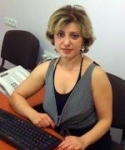 31.03.2014“THE ISLAND OF CRIMEA” THE OTHER WAY AROUND
31.03.2014“THE ISLAND OF CRIMEA” THE OTHER WAY AROUND
Zara Gevorkyan
Obviously, the question of Crimea caused some active and heated debates in the Armenian society, and it could have not been otherwise. The value-bearing and political concept of self-determination has guided the logic of our historical development in the last quarter century.
 21.03.2014ARMENIA AFTER THE VILNIUS SUMMIT: IT IS JUST THE BEGINNING OF THE STRUGGLE FOR “HEARTS AND MINDS”
21.03.2014ARMENIA AFTER THE VILNIUS SUMMIT: IT IS JUST THE BEGINNING OF THE STRUGGLE FOR “HEARTS AND MINDS”
Sergei Sargsyan
As the February events in the Republic of Moldova (Gagauzia referendum) and Ukraine (ouster of Yanukovych) showed, signing or refusing to sign an EU Association Agreement by itself does not completely take off the table the issue of the direction for foreign political and economic integration for the EU Eastern Partnership countries.
 18.03.2014GAS TRANSIT PIPELINE IRAN-ARMENIA: A CHANGE OF DISCOURSE
18.03.2014GAS TRANSIT PIPELINE IRAN-ARMENIA: A CHANGE OF DISCOURSE
Sevak Sarukhanyan
The political crisis in Ukraine prompted stormy debates in the political analyst circles of Armenia regarding the causes of the crises and resultant potential changes in the world. Unfortunately there is little meaningful analysis for Armenia in terms of the ramifications of a new standoff round between Russia and the West, although such ramifications could be quite palpable.
 17.03.2014UKRAINE: THE PRICE OF INTERNAL DIVISION
17.03.2014UKRAINE: THE PRICE OF INTERNAL DIVISION
By Jack Matlock
With all of the reports coming out of Ukraine, Moscow, Washington, and European capitals, the mutual accusations, the knee-jerk speculation, and—not least—the hysterical language of some observers, bordering on the apocalyptic, it is difficult to keep in mind the long-term implications of what is happening.
 13.03.2014OPINION: IGNORE WESTERN HYPOCRISY, PUTIN WILL DO WHAT HE WANTS
13.03.2014OPINION: IGNORE WESTERN HYPOCRISY, PUTIN WILL DO WHAT HE WANTS
Simon Tisdall
All the self-righteous huffing and puffing in Washington over Ukraine jars on European and especially Russian ears after the multiple U.S.-led invasions and interventions in other people's countries of recent years.
 11.03.2014OPINION OF THE NORAVANK FOUNDATION DIRECTOR GAGIK HARUTYUNYAN: NO RETURN TO THE PRIOR STATUS OF CRIMEA
11.03.2014OPINION OF THE NORAVANK FOUNDATION DIRECTOR GAGIK HARUTYUNYAN: NO RETURN TO THE PRIOR STATUS OF CRIMEA
Mr. Harutyunyan, the whole world’s attention today is focused on the events in Ukraine. What do you think about these developments?
Indeed, there are multi-level complicated processes going on in Ukraine. One of the levels is the societal factor.
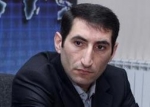 06.03.2014THE ARMENIAN SCIENTIFIC AND ANALYTICAL COMMUNITY IN THE USA
06.03.2014THE ARMENIAN SCIENTIFIC AND ANALYTICAL COMMUNITY IN THE USA
Arestakes Simavoryan
Currently the USA is the world leader by the number of “think-tanks”, “intellectual output” and other similar aspects. These structures are unique in terms of their activities and they significantly differ from academic institutions.
 03.03.2014HACKER ACTIVITY BETWEEN ARMENIA AND AZERBAIJAN
03.03.2014HACKER ACTIVITY BETWEEN ARMENIA AND AZERBAIJAN
Samvel Martirosyan
In January 2014 a number of hacker attacks on Armenian and Azerbaijani websites took place. On one hand, it was a part of the series of attacks traditionally launched every January, and on the other hand it was different in terms of some qualitative and quantitative changes.
 25.02.2014THE CORRIDOR FOR EXIT OF PEACEFUL POPULATION FROM KHOJALY
25.02.2014THE CORRIDOR FOR EXIT OF PEACEFUL POPULATION FROM KHOJALY
I.G. Gukasov
Intentional creation of a corridor for exit of peaceful population from Khojaly pursued several objectives. First, showing humanism towards peaceful population and preventing casualties among them would have won their sympathies and demonstrate that we do not fight with peaceful civilians, but rather, with an armed adversary, firing by which forced the Armenians to defend themselves.
 20.02.2014THE LIMITS OF TURKEY'S INTEREST RATE HIKE
20.02.2014THE LIMITS OF TURKEY'S INTEREST RATE HIKE
With a dramatic hike in Turkey's overnight lending rate from 7.75 to 12.5 percent announced on Jan. 28, Turkish Central Bank Gov. Erdem Basci followed through on his earlier promise to use interest rates as a weapon to defend Turkey's currency, the lira.
17.02.2014ARMENIAN POLICY OF REMEMBRANCE IN THE EPOCH OF GLOBALISM
Mihran Dabag
Karl Marx had once noted: “Interest has no memory, for it thinks only of itself” [1]. Whoever does not remember about oneself, thus effectively forgetting historical prerequisites of own actions, may pursue one’s own interest ruthlessly and without any regard to the consequences.
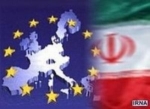 17.02.2014EUROPE'S ROLE IN RESOLVING THE IRANIAN PROBLEM
17.02.2014EUROPE'S ROLE IN RESOLVING THE IRANIAN PROBLEM
Vladimir Yevseyev
Since 2003, the Iranian nuclear issue constantly attracts the attention of the international community. In fact, it is the most serious challenge to the global regime based on fulfilling the requirements of the Treaty on the Non-Proliferation of Nuclear Weapons (NPT).
11.02.2014US MEDIA, POLITICIANS MOBILIZE AGAINST SOCHI OLYMPICS
By Andrea Peters
The Sochi Olympics opened on Friday amid a propaganda onslaught from the US media. Taking its cues from the Obama administration and allied powers in Europe, the American press has sought to sabotage the event and turn it into a humiliation for the regime of President Vladimir Putin.
 06.02.2014AN OUTLOOK FOR IRANIAN GAS IN ARMENIA
06.02.2014AN OUTLOOK FOR IRANIAN GAS IN ARMENIA
Sevak Sarukhanyan
In December 2013, after the Armenian-Russian gas agreement was signed, there have been some intense discussions on importing gas from Iran to Armenia. The main discussion topics are the price of the Iranian gas and the nature of the Armenian-Russian gas agreement, which allegedly might prevent Armenia from increasing volumes of the imported gas from Iran.
 06.02.2014IRAN SECURITY IN THE SOUTH CAUCASUS
06.02.2014IRAN SECURITY IN THE SOUTH CAUCASUS
Vladimir Yevseyev
Currently, the security situation in the South Caucasus is determined by three main factors: the deep Syrian crisis, which can still lead to war the U.S. and its allies against Bashar al-Assad, Iran's nuclear problem and long-term consequences of the war in August 2008 with Georgia.
 30.01.2014THINK TANKS AND SEPTIC TANKS
30.01.2014THINK TANKS AND SEPTIC TANKS
We are living in the “Golden Age” of think tanks. There are about 6,000 of these research institutions (3,000 in the U.S) in the world. Politics, military, social policy, economy, technology, culture… they all have scores of think tanks dedicated to them.
 23.01.2014OUR PERCEPTION OF THE NATIONAL AND UNIVERSAL
23.01.2014OUR PERCEPTION OF THE NATIONAL AND UNIVERSAL
Mushegh Lalayan
The diversity and differentiation in nature existed from the outset. There is no abstract humankind per se, as it consists of nations and each person with his/her ethnicity is part of the overall humankind. Each nation is unique and inimitable by its spiritual mindset.
23.01.2014OPINION: TUNISIA'S LEADERS HAVE FAILED THE DIGNITY REVOLUTION
By Lina Ben Mhenni, Special to CNN
Editor's note: Lina Ben Mhenni lives in Tunis, where she is an assistant of linguistics at the University of Tunis. She is also an activist and blogger, writing as A Tunisian Girl. She has written for CNN as part of its coverage of Davos. Follow her on Twitter. The opinions expressed in this commentary are solely those of Lina Ben Mhenni.
 20.01.2014THE ARMENIAN SCIENTIFIC AND ANALYTICAL COMMUNITY IN RUSSIA
20.01.2014THE ARMENIAN SCIENTIFIC AND ANALYTICAL COMMUNITY IN RUSSIA
Vahram Hovyan
The Armenian community in Russia is one of the oldest and largest ones among the Armenian diasporas. Some unofficial data suggest that there are about 2.5 million Armenians living in Russia. At the same time, one of the characteristic traits of Russia’s Armenian community is its deep integration in the Russian society.
16.01.2014ARMENIA AND THE CUSTOMS UNION: IMPACT OF ACCESSION
This report provides the assessment of the macroeconomic impact of Armenia joining the Customs Union. Quantitative analysis has demonstrated that, as a result of integration with the CU, the additional growth in Armenian GDP will approximate 4% a year by 2016.
 13.01.2014ANALYTICAL COMMUNITY OF THE DIASPORA AS A POTENTIAL FOR THE COUNTRY: INTERNATIONAL EXPERIENCE
13.01.2014ANALYTICAL COMMUNITY OF THE DIASPORA AS A POTENTIAL FOR THE COUNTRY: INTERNATIONAL EXPERIENCE
Arestakes Simavoryan
In the works of modern specialists of Diaspora studies an idea is often expressed that diaspora is not only a part of the people living in foreign countries that preserves to a certain extent the spiritual, cultural identity and strives to maintain ties with historical homeland, but...
 09.01.2014WORLD TRENDS AND SOUTH CAUCASUS
09.01.2014WORLD TRENDS AND SOUTH CAUCASUS
Gagik Harutyunyan
The overall trend of current changes occurring in the world is transition from the monopole system to a multipolar one, or in another wording, a non-polar world. Obviously, without consideration of this global trend it would be difficult to understand what is actually going on in our region of South Caucasus.
 26.12.2013ARMENIAN STUDIES AS “CRITICAL INFRASTRUCTURE”
26.12.2013ARMENIAN STUDIES AS “CRITICAL INFRASTRUCTURE”
Gagik Harutyunyan
Armenian studies are certainly not a purely academic/fundamental science. Branches of Armenian studies – history, literature, architecture, etc., are manifestations of our civilizational identity, which in turn had brought new content to our identity and system of values (and continue doing so).
 23.12.2013THE MAIN TRENDS IN GEORGIAN POLITICS AND ECONOMY IN SEPTEMBER-NOVEMBER, 2013
23.12.2013THE MAIN TRENDS IN GEORGIAN POLITICS AND ECONOMY IN SEPTEMBER-NOVEMBER, 2013
Sergei Sargsyan
The autumn of 2013 was politically eventful in Georgia. Among other events, the presidential elections are worth mentioning, with Prime Minister Ivanishvili leaving the official politics, as he announce beforehand, and Georgia initialing the EU Association Agreement during the Vilnius summit.
 18.12.2013GEOPOLITICAL SITUATION IN SOUTH CAUCASUS IS GETTING CRYSTALLIZED – G.HARUTYUNYAN
18.12.2013GEOPOLITICAL SITUATION IN SOUTH CAUCASUS IS GETTING CRYSTALLIZED – G.HARUTYUNYAN
The geopolitical situation in the South Caucasus is getting crystallized, according to Gagik Harutyunyan, head of Noravank Foundation. Speaking at a news conference preceding an international forum in Yerevan on security challenges and cooperation in the South Caucasus, he said this trend has been prompted by Armenia’s decision to join the Moscow-led Customs Union.
 12.12.2013ARMENIAN DIASPORA’S ACADEMIC AND ANALYTICAL COMMUNITY IN THE SPHERE OF HUMANITIES: OUTLINE
12.12.2013ARMENIAN DIASPORA’S ACADEMIC AND ANALYTICAL COMMUNITY IN THE SPHERE OF HUMANITIES: OUTLINE
Tigran Ghanalanyan
There were many Armenian figures in the different communities of Diaspora who were involved in the academic and cultural areas of those countries. This is characteristic for the multi-century history of our scattered communities. Today Armenians from Diaspora are also among the intelligentsia of the countries they reside.
 03.12.2013SNOWDEN’S DISCLOSURE: WORLD UNDER THE AMERICAN AND BRITISH SURVEILLANCE
03.12.2013SNOWDEN’S DISCLOSURE: WORLD UNDER THE AMERICAN AND BRITISH SURVEILLANCE
Samvel Martirosyan
The disclosures by the former U.S. National Security Agency employee Edward Snowden, concerning the actions carried out by the U.S. secret services on the Web, changed the visions of the information security. It becomes clear that all the concerns, which were spread by the various conspiracy theories, are more real than one could imagine.
 25.11.2013FAVOURABLE REGIONAL POLITICAL SITUATION IS FORMED AROUND NAGORNO-KARABAKH PROCESS
25.11.2013FAVOURABLE REGIONAL POLITICAL SITUATION IS FORMED AROUND NAGORNO-KARABAKH PROCESS
Resumption of negotiations on the Nagorno-Karabakh conflict at the level of president of Armenia Serzh Sargsyan and president of Azerbaijan Ilham Aliyev, interrupted 2.5 years ago, is a positive impulse to the process of peaceful settlement of the conflict.
 18.11.2013JUSTICE DEPT. RECORDS REVEAL: AZERBAIJAN PAYS MILLIONS TO U.S. FIRMS
18.11.2013JUSTICE DEPT. RECORDS REVEAL: AZERBAIJAN PAYS MILLIONS TO U.S. FIRMS
By: Harut Sassounian
Awash in billions of petrodollars, but lacking a moral compass, Azerbaijan has been busy handing out loads of money to anyone who is willing to heed its propaganda.
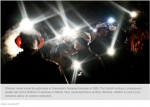 04.11.2013AS GREENLAND SEEKS ECONOMIC DEVELOPMENT, IS URANIUM THE WAY?
04.11.2013AS GREENLAND SEEKS ECONOMIC DEVELOPMENT, IS URANIUM THE WAY?
by Sidsel Overgaard
Karen Hanghoj, a scientist with Denmark's Geological Survey, points to the southern tip of Greenland on a colorful map hanging in her office.
 31.10.2013THE INVISIBLE CYBER WAR
31.10.2013THE INVISIBLE CYBER WAR
Yiannos Charalambides
The international system is still dominated by sovereign nation states which constitute the main structural actors of the global system. However, nation states are not the only players acting in the global landscape.
 28.10.2013SECURITY OF EURASIA: IDEOLOGY
28.10.2013SECURITY OF EURASIA: IDEOLOGY
Address of the Director of “Noravank” Foundation G.Harutyunyan at the international conference on “CSTO and Eurasia’s Security”
 21.10.2013THE CUSTOMS UNION IS NOT A IMPERIAL BUT AN ECONOMIC PROJECT – LEPEHIN
21.10.2013THE CUSTOMS UNION IS NOT A IMPERIAL BUT AN ECONOMIC PROJECT – LEPEHIN
The Customs Union is not an Imperial but economic project, believes Vladimir Lepehin, the director of EurAsEC, the member of Academic Board of the RAS on Eurasian economic integration.
 14.10.2013LEE KUAN YEW’S LESSONS FOR ARMENIA
14.10.2013LEE KUAN YEW’S LESSONS FOR ARMENIA
Simon Saradzhyan, Monica Harutyunyan
There is hardly a statesman left in the world who has not heard about Singapore’s economic miracle, which began almost 50 years ago and continues to date. If there is a single person without whom Singapore’s phenomenal transformation would not have been possible, that person is Lee Kuan Yew.
 08.10.2013ARMENOLOGICAL CENTERS IN THE DIASPORA AS INSTITUTIONAL INTELLECTUAL RESOURCE
08.10.2013ARMENOLOGICAL CENTERS IN THE DIASPORA AS INSTITUTIONAL INTELLECTUAL RESOURCE
Arestakes Simavoryan, Vahram Hovyan
The issue of revelation and consolidation of the national potential is peculiar for the countries with Diaspora. In such countries, the importance is also attached, besides domestic resources, to the external resources, represented by the Diaspora communities.
 04.10.2013PENETRATION OF INTERNET INTO THE SOUTH CAUCASUS
04.10.2013PENETRATION OF INTERNET INTO THE SOUTH CAUCASUS
Samvel Martirosyan
Statistics of the Internet experiences rather serious problems in the South Caucasus. Thus, for example, in Azerbaijan, according to official data 70% of population uses Internet and 50% of population use broadband Internet.
04.10.2013ARMENIA'S CHOICE OF THE EURASIAN UNION: A STUNNING END TO ITS EUROPEAN INTEGRATION?
George Vlad Niculescu
The announcement at the beginning of September 2013, in Moscow, by President Serzh Sargsyan of Armenia's decision to join the Russia-led Eurasian Customs Union (ECU) apparently took many by surprise. Firstly, because in July 2013 Armenia concluded a lengthy four years negotiation on essential agreements, meant to upgrade its ties with the European Union (EU), which would be incompatible with joining the ECU.
 23.09.2013CONTRADICTIVE LOGICS OF THE MILITARY-POLITICAL REALITY: WHAT DOES THE STIRRING UP OF THE RUSSIAN-AZERBAIJANI MILITARY AND TECHNICAL COOPERATION MEAN?
23.09.2013CONTRADICTIVE LOGICS OF THE MILITARY-POLITICAL REALITY: WHAT DOES THE STIRRING UP OF THE RUSSIAN-AZERBAIJANI MILITARY AND TECHNICAL COOPERATION MEAN?
Sergei Minasyan
In the recent weeks the interest of the Armenian mass media and public towards the situation around the Nagorno-Karabakh conflict has grown; it has been first of all conditioned by the information concerning realization of a number of large-scale military and technical treaties between Russia and Azerbaijan, which has been negotiated since 2011.
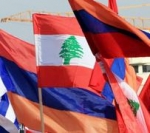 19.09.2013ON THE MODERN CHALLENGES THE ARMENIAN COMMUNITY IN LEBANON FACES
19.09.2013ON THE MODERN CHALLENGES THE ARMENIAN COMMUNITY IN LEBANON FACES
Vahram Hovyan
The Armenian community in Lebanon traditionally takes plays key role among the Armenian communities in the Middle East. Today it is even more obvious taking into consideration difficult situation in other Armenian communities in the Middle East region (Syria, Iraq, Egypt, etc.).
17.09.2013INSIGHTS INTO TURKISH DOMESTIC AND INTERNATIONAL POLITICS DURING 1-16 AUGUST 2013
By John VanPool
After more than five years of investigations, accusations, and controversial charges, the Ergenekon coup case reached its conclusion on August 5. A special court sentenced 19 of the 275 defendants to lengthy prison terms for their roles in a grand conspiracy prosecutors say was intended to overthrow the democratically elected AKP government.
 13.09.2013JOINING OF ARMENIA TO THE CUSTOMS UNION WILL ALLOW PROVIDING LOW GAS RATES – EXPERT
13.09.2013JOINING OF ARMENIA TO THE CUSTOMS UNION WILL ALLOW PROVIDING LOW GAS RATES – EXPERT
Joining of Armenia to the Customs Union will allow providing low rates for the natural gas imported to Armenia, said the Deputy Director of “Noravank” Foundation Sevak Sarukhanyan in his interview on Wednesday.
 12.09.2013JOINING THE CUSTOMS UNION IS ECONOMICALLY ADVANTAGEOUS TO ARMENIA - EXPERTS
12.09.2013JOINING THE CUSTOMS UNION IS ECONOMICALLY ADVANTAGEOUS TO ARMENIA - EXPERTS
It is economically advantageous to Armenia to join the Customs Union. According to “ARKA” news agency this is the conclusion, a group of experts, which carried out special economic survey on these issues, came to.
 12.09.2013INTEGRATION ASPIRATIONS OF ARMENIA AND SOME ISSUES OF THE MILITARY AND POLITICAL SECURITY OF THE REP. OF ARMENIA AND NKR
12.09.2013INTEGRATION ASPIRATIONS OF ARMENIA AND SOME ISSUES OF THE MILITARY AND POLITICAL SECURITY OF THE REP. OF ARMENIA AND NKR
Sergei Sargsyan
Both Moscow and Brussels, which diplomatically and ornately state that there are no contradictions between the integration of Armenia in European and Customs Unions, nevertheless, hint that the suit of documents necessary for signing the EU Association Agreement and entering Customs Union contain some insuperable contradictions, which in fact present RA and NKR with a crucial dilemma of choice.
09.09.2013THE MULTIPOLAR REALITIES, MIDDLE EAST AND NEWS TICKER GENOCIDE (Part 2)
Gagik Harutyunyan
Today it can be stated that the developments initiated in the Arab world have yet a long way to go: as some well-known ideologists dreamt in the beginning of the 20th century, the revolution in Egypt becomes permanent, and confrontation between Islamists and their opponents has spread even into Turkey that had been considered a stable country.
05.09.2013THE MULTIPOLAR REALITIES, MIDDLE EAST AND NEWS TICKER GENOCIDE (Part 1)
Gagik Harutyunyan
Today hardly anyone would contest the fact that scrambling for spheres of influence on the world-scale, which started at the end of 20th century with monopole domination, now transforms into a multi-vector persistent standoff. It takes place by some new rules (sometimes no rules) of multipolar world order that have not been fully established yet and hence, are still more than vague.
 04.09.2013THE PRESIDENTS OF ARMENIA AND RUSSIA SUMMARIZED THE RESULTS OF THE NEGOTIATIONS
04.09.2013THE PRESIDENTS OF ARMENIA AND RUSSIA SUMMARIZED THE RESULTS OF THE NEGOTIATIONS
Yesterday, after the meeting between President Serzh Sargsyan and Russian President Vladimir Putin held in Moscow, the leaders of the two states signed a Joint Statement. Later, the results of the negotiations were summarized at the joint press conference.
 04.09.2013PRESIDENT OF ARMENIA SERZH SARGSYAN AND PRESIDENT OF THE RUSSIAN FEDERATION VLADIMIR PUTIN SIGNED JOINT STATEMENTS
04.09.2013PRESIDENT OF ARMENIA SERZH SARGSYAN AND PRESIDENT OF THE RUSSIAN FEDERATION VLADIMIR PUTIN SIGNED JOINT STATEMENTS
At the invitation of the President of the Russian Federatoin V. Putin, the President of the Republic of Armenia Serzh Sargsyan on September 3, 2013 conducted a working visit to the Russian Federation.
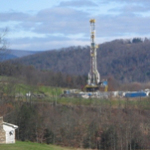 03.09.2013US SHALE MYTHS AND EUROPEAN MARKET REALITY
03.09.2013US SHALE MYTHS AND EUROPEAN MARKET REALITY
Many US shale companies that have been beating the drums of shale “revolution” are now facing oil and gas well depletion. In February 2013 the US Energy Information Administration (EIA) warned that “diminishing returns to scale and the depletion of high productivity sweet spots are expected to eventually slow the rate of growth in tight oil production”.
 02.09.2013TRUST OF THE AUDIENCE IN THE MASS MEDIA: TENDENCIES
02.09.2013TRUST OF THE AUDIENCE IN THE MASS MEDIA: TENDENCIES
Arpi Manusyan
Trust of the audience in the mass media is a topical issue for both mass media executives and media experts. Studies of the trust of the audience in different types of media, in both western and post-Soviet countries, follow the same tide: the stance of the audience, factors which influence the choice of media, tendencies of trust are revealed within the context of spreading of internet and growth of the Internet audience.
 01.08.2013CSTO AND COMMUNICATION SECURITY
01.08.2013CSTO AND COMMUNICATION SECURITY
Sevak Sarukhanyan
On June 26, 2013 a meeting of the CSTO Secretary General N.Bordyuzha and Coordinator of the CSTO Analytical Association I.Panarin with the Armenian experts was held at “Noravank” Foundation. Communication security issue was among those on the agenda.
 31.07.2013TURKEY: THROES OF SECULARISM
31.07.2013TURKEY: THROES OF SECULARISM
Sergei Sargsyan
Since late May protests have been persisting in Turkey. They were caused by the intentions of Istanbul authorities to cut down trees in Gezi garden near Taksim Square for building new shopping and recreation center and restoration of the Ottoman barracks which used to be there once.
 29.07.2013ARMENIA’S VALUE ORIENTATIONS IN THE CONTEXT OF INTER-CULTURAL RESEARCHES
29.07.2013ARMENIA’S VALUE ORIENTATIONS IN THE CONTEXT OF INTER-CULTURAL RESEARCHES
Anna Zhamakochyan, Lilit Hakobyan
Inter-cultural studies have become rather widespread in the world recently. The researchers try to study different countries, compare them and set civilizational areas of the world, their borders, closeness and remoteness by means of one common methodology.
 25.07.2013TURKEY'S PROBLEMS GROW WITH A SYRIAN KURDISH MOVE FOR AUTONOMY
25.07.2013TURKEY'S PROBLEMS GROW WITH A SYRIAN KURDISH MOVE FOR AUTONOMY
That a Kurdish group would declare autonomy from Syria's currently fragmented state was inevitable, but Turkey is now facing a spread of Kurdish separatism at the same time it is facing mounting obstacles in its current peace track with the Kurdistan Workers' Party within its borders.
 11.07.2013TURKEY ON THE THRESHOLD OF 2015
11.07.2013TURKEY ON THE THRESHOLD OF 2015
Arestakes Simavoryan
While Ankara is trying to handle domestic developments, preparatory works directed against the 100th anniversary of the Armenian Genocide still remain on the agenda. What does Turkey prepare; how is it going to implement it; what proposals are made and what issues, which will be an integral part of Turkey’s policy in the next two years (or even for a longer period), are put forward?
 11.07.2013GAS EXPORTING COUNTRIES TO GATHER IN MOSCOW FOR INFLUENTIAL FORUM
11.07.2013GAS EXPORTING COUNTRIES TO GATHER IN MOSCOW FOR INFLUENTIAL FORUM
Members of the influential Gas Exporting Countries Forum (GECF) will gather in Moscow 1-2 July 2013. Long-term contracts and infrastructure projects are reported to be high on the agenda. The GECF is an international club of major natural gas exporters including Russia, Iran, Qatar, Libya and Venezuela.
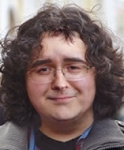 04.07.2013RUSSIA’S ARCTIC, NATO AND NORWAY: A POST- KIRKENES POLITICAL LANDSCAPE
04.07.2013RUSSIA’S ARCTIC, NATO AND NORWAY: A POST- KIRKENES POLITICAL LANDSCAPE
By Igor Alexeev
Recent NATO’s decision to denounce plans of direct Arctic presence sends a positive signal to all littoral states including Russia, a major regional stakeholder among non-members of the Alliance.
 01.07.2013IRAN AFTER THE PRESIDENTIAL ELECTIONS
01.07.2013IRAN AFTER THE PRESIDENTIAL ELECTIONS
Sevak Sarukhanyan
The presidential elections, held on June 14, will be of great importance for the future of Iran and region in general. Hassan Ruhani who has been elected as president has a serious opportunity to positively impact both domestic political life in Iran and its foreign policy.
 19.06.2013EVELYN WAUGH'S 'SCOOP': JOURNALISM IS A DUPLICITOUS BUSINESS
19.06.2013EVELYN WAUGH'S 'SCOOP': JOURNALISM IS A DUPLICITOUS BUSINESS
Alexander Nazaryan
In only a few years, a child will ask a parent about newspapers: What was their purpose? What did people do with them, and why? The parent, a little flummoxed, will explain that, long before biosensitive data aggregators simply uploaded information into the neurons of our frontal cortexes, people actually read the news by holding a piece of paper in front of their noses and scanning columns of text with their eyes.
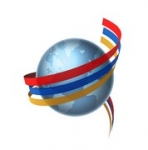 17.06.2013TRANSFORMATIONS OF THE ARMENIAN DIASPORA: CHALLENGES AND POSSIBILITIES
17.06.2013TRANSFORMATIONS OF THE ARMENIAN DIASPORA: CHALLENGES AND POSSIBILITIES
Vahram Hovyan
The Armenian Diaspora, which was formed in consequence of the Genocide, has undergone definite transformations over a period of all these decades; these transformations were connected with the “demographic” shifts taking place inside the Diaspora.
 14.06.2013PROGRESSIVE BRITISH FIGURES’ APPRECIATION OF ARMENIA’S CIVILIZATIONAL SIGNIFICANCE VERSUS THE FALSIFIED “ANCIENT TURKEY” EXHIBIT IN THE BRITISH MUSEUM
14.06.2013PROGRESSIVE BRITISH FIGURES’ APPRECIATION OF ARMENIA’S CIVILIZATIONAL SIGNIFICANCE VERSUS THE FALSIFIED “ANCIENT TURKEY” EXHIBIT IN THE BRITISH MUSEUM
Eduard L. Danielyan
The book presents famous British figures’ cultural and spiritual perception of Armenia (as a country of Paradise, sacred Mt. Ararat-Masis and the cradle of civilization) versus the "exhibit" (containing Turkish falsified interpretations of archaeological artifacts from the ancient monuments of the Armenian Highland and Asia Minor) with forged name "Ancient Turkey" in the "Room 54" of the British Museum.
 13.06.2013A NEW KIND OF GENOCIDE HAS BEEN PERPETRATED IN THE MIDDLE EAST Interview of Gagik Harutyunyan to ArmInfo Information Agency
13.06.2013A NEW KIND OF GENOCIDE HAS BEEN PERPETRATED IN THE MIDDLE EAST Interview of Gagik Harutyunyan to ArmInfo Information Agency
Judging by the recent wrangling in the UN Security Council and the reaction of Iran and Israel, it seems that the Syrian conflict is gradually passing into a new plane. In your opinion, what new impulses around the developments in Syria can be expected in this aspect in the nearest future?
 10.06.2013 “IRANIAN GAS CAN REPLACE RUSSIAN BUT IT IS MUCH MORE EXPENSIVE”
10.06.2013 “IRANIAN GAS CAN REPLACE RUSSIAN BUT IT IS MUCH MORE EXPENSIVE”
Iran as a natural gas supplier can become for Armenia full-fledged alternative to Russia. This was said in the interview to REGNUM IA correspondent by the Armenian expert, head of the Center for Political Studies of “Noravank” Foundation Sevak Sarukhanyan.
06.06.2013SCHOOLS OF THE ARMENIAN CATHOLIC COMMUNITY IN ISTANBUL
Arestakes Simavoryan
Besides the schools belonging to the Armenian Apostolic and Evangelical communities, great contribution to the education of the Armenians has been made by the Mkhitarian schools of the Armenian Catholic community, which still continue to carry out this mission.
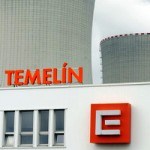 05.06.2013TEMELÍN: STRATEGIC GROWTH PROJECT FOR RUSSIAN-CZECH RELATIONS
05.06.2013TEMELÍN: STRATEGIC GROWTH PROJECT FOR RUSSIAN-CZECH RELATIONS
Czech Prime Minister Petr Nečas arrived in Russia on a four-day working visit late May, 2013. Trade and energy policy are among the topical issues for Prague and Moscow – 6% increase in turnover is good news for both parties.
 03.06.2013INTEGRATION PROSPECTS OF POST-SOVIET STATES ON THE EXAMPLE OF KIRGIZIA AND UKRAINE (EXPECTATIONS AND CONCERNS)
03.06.2013INTEGRATION PROSPECTS OF POST-SOVIET STATES ON THE EXAMPLE OF KIRGIZIA AND UKRAINE (EXPECTATIONS AND CONCERNS)
Sergei Sargsyan
Coming forward on the post-Soviet space of a new integration project – Eurasian Economic Union (EAEU), initiated polemics, discussions and blazing rows on the issue of viability of the project itself as well as on possible advantages and disadvantages of joining it.
 23.05.2013NAGORNO-KARABAKH: OBSTACLES TO A NEGOTIATED SETTLEMENT
23.05.2013NAGORNO-KARABAKH: OBSTACLES TO A NEGOTIATED SETTLEMENT
Anna Hess Sargsyan
The conflict over Nagorno-Karabakh (NK) between Armenia and Azerbaijan remains immune to a political solution despite the two decades of intensive international mediation.
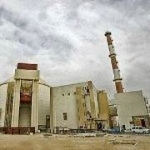 20.05.2013NUCLEAR INDUSTRY RE-ENERGIZING AFTER FUKUSHIMA
20.05.2013NUCLEAR INDUSTRY RE-ENERGIZING AFTER FUKUSHIMA
Reconstructing nuclear confidence in post-Fukushima world is a long and painful process. But real-life energy demands especially in the developing countries predetermine a significant share of nuclear energy in their national energy consumption structure.
 16.05.2013REGNUM: NEW KIND OF GENOCIDE IS BEING PERPETRATED IN SYRIA (from the press-conference of Gagik Harutyunyan)
16.05.2013REGNUM: NEW KIND OF GENOCIDE IS BEING PERPETRATED IN SYRIA (from the press-conference of Gagik Harutyunyan)
Genocide, quite unusual one, is being perpetrated in the Middle East now – Arabs kill Arabs and alongside a Christian population suffers. As the REGNUM Information Agency correspondent reports this was stated by the Director of the Armenian “Noravank” Foundation Gagik Harutyunyan at the press-conference held on May 13.
07.05.2013NEW ISSUE OF “MIDDLE EAST MEDITERRANEAN” WAS PUBLISHED
The ½ issue of “Middle East Mediterranean” for 2013 was published. The bulletin is published by the Hellenic Foundation for European & Foreign Policy (ELIAMEP) which is one of the leading Greek institutions dealing with the study of the international relations.
 06.05.2013ON POLITICAL VIEW OF THE ARMENIAN COMMUNITY IN SYRIA
06.05.2013ON POLITICAL VIEW OF THE ARMENIAN COMMUNITY IN SYRIA
Vahram Hovyan
Events in Syria are of some interest for the Armenian academic and analytical circles not only in the aspect of regional and geopolitical changes which will also influence Armenia, but also for the reasons of safety of the Armenian community in Syria.
 02.05.2013NAGORNO-KARABAKH: CONCEPTUAL APPROACHES TO THE PROSPECTS OF THE CONFLICT SETTLEMENT
02.05.2013NAGORNO-KARABAKH: CONCEPTUAL APPROACHES TO THE PROSPECTS OF THE CONFLICT SETTLEMENT
Sergei Minasyan
As it is known, today the Nagorno-Karabakh Republic is not fully involved in the negotiation process under the auspices of the OSCE Minsk Group. The stance of Stepanakert is presented in the international arena by Armenia which states that at this stage it abstains from the recognition of the NKR.
 29.04.2013ON SOME MAIN ISSUES OF INTEGRATION IN THE CONTEXT OF A VALUE SYSTEM
29.04.2013ON SOME MAIN ISSUES OF INTEGRATION IN THE CONTEXT OF A VALUE SYSTEM
Gagik Harutyumyan
Today the main issues of the Eurasian integration are up for debate. The geopolitical necessity of integration is underlined. Rather good analyses of its profitability and other economic issues are carried out. This all is wonderful and very useful – certainty is a must.
 25.04.2013KARS-AKHLKALAKI-TBILISI RAILWAY AND ITS REGIONAL PROSPECTS
25.04.2013KARS-AKHLKALAKI-TBILISI RAILWAY AND ITS REGIONAL PROSPECTS
Sevak Sarukhanyan
The authorities of Georgia, Azerbaijan and Turkey plan to complete building of Kars-Akhlkalaki-Tbilisi railway by the end of 2013 and this new transportion hub will be put into commission on January 1, 2014.
17.04.2013SOUTH STREAM SHAPES EUROPEAN ENERGY SECURITY, NABUCCO FALLS BEHIND
South Stream is an ambitious endeavor of Russia’s energy giant Gazprom to get direct access to the EU energy market. It is portrayed and criticized by some politicians in Europe as a «dangerous» gateway to a broader economic relationship with Moscow.
 16.04.2013THE 113th CONGRESS, A LOOK AT THE 2014 MID-TERM ELECTIONS AND THE COUNTDOWN TO THE 100th ANNIVERSARY OF THE ARMENIAN GENOCIDE
16.04.2013THE 113th CONGRESS, A LOOK AT THE 2014 MID-TERM ELECTIONS AND THE COUNTDOWN TO THE 100th ANNIVERSARY OF THE ARMENIAN GENOCIDE
By Taniel Koushakjian
With the House of Representatives remaining in Republican control and the Senate and White House again in Democratic hands, another session of a divided Congress began on January 3, 2013.
 10.04.2013HOW TO CREATE A NATION: A TASK OF FORMATION OF THE AZERBAIJANI IDENTITY IN THE 20TH CENTURY
10.04.2013HOW TO CREATE A NATION: A TASK OF FORMATION OF THE AZERBAIJANI IDENTITY IN THE 20TH CENTURY
Haykaram Nahapetyan
A well-known in the Soviet period definition of Azerbaijan’s capital Baku as an “international city” is still fresh in the memory of people from the post-Soviet territory. In Soviet Baku different big national and religious communities lived which was characteristic for pre-Soviet, tsarist period as well.
09.04.2013ALIGNMENT-MEETING AT THE SECRETARIAT OF THE COLLECTIVE SECURITY TREATY ORGANIZATION
On April 2, 2013 the alignment-meeting with the participation of the Secretary General of the CSTO N.Bordyuzha, Coordinator of the Association and Advisor of the Department of the Information Programmes of the CSTO Secretariat I.Panarin, heads and employees of the structural subdivisions of the CSTO Secretariat was held.
 04.04.2013GEORGIA AND TURKISH-AZERBAIJANI MILITARY AND POLITICAL ALLIANCE
04.04.2013GEORGIA AND TURKISH-AZERBAIJANI MILITARY AND POLITICAL ALLIANCE
Lia Evoyan
South Caucasus still remains one of the most important targets in the foreign policy of Turkey. This is stipulated in the electoral programme (Seçim Beyannamesi) of the Justice and Development Party issued on June 12, 2011 on the eve of the parliamentary elections...
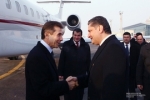 28.03.2013 “ARMENIZATION” OF THE DOMESTIC POLITICAL LIFE IN GEORGIA?
28.03.2013 “ARMENIZATION” OF THE DOMESTIC POLITICAL LIFE IN GEORGIA?
Sergei Minasyan
On January 17 official visit of the prime-minister of Georgia Bidzina Ivanishvili to Armenia took place. This was the second regional visit of a new head of the Georgian government after a resounding and unexpected for many victory of the opposition at the parliamentary elections in October...
 25.03.2013DATA PROTECTION ISSUES IN ARMENIA
25.03.2013DATA PROTECTION ISSUES IN ARMENIA
Samvel Martirosyan
The Republic of Armenia is becoming more and more digitalized country. Only digitization of state institutions, the electronic management systems has considerably developed in terms of quantity and quality in recent two years.
 21.03.2013BRUSSELS INDULGES IN TRANS-CASPIAN PIPE DREAM AGAIN
21.03.2013BRUSSELS INDULGES IN TRANS-CASPIAN PIPE DREAM AGAIN
After the European Commission has finally realized that major investors (RWE) and transit countries (Hungary) are leaving Nabucco, bureaucrats in Brussels are now trying to revitalize a distressed project – the so-called Trans-Caspian gas pipeline.
20.03.2013WILL POPE FRANCIS REPEAT CARDINAL BERGOGLIO’S WORDS ON THE GENOCIDE?
By Harut Sassounian
Shortly after Cardinal Jorge Mario Bergoglio became Pope Francis I, Armenian and Turkish media outlets rushed to inform their audiences that the Argentinean Archbishop had acknowledged the Armenian Genocide on a number of occasions.
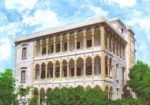 07.03.2013HAIGAZIAN UNIVERSITY IN BEIRUT
07.03.2013HAIGAZIAN UNIVERSITY IN BEIRUT
Tigran Ghanalanyan
Among the educational institutions of the Armenian Diaspora Beirut’s Haigazian University – the only higher educational institution in the Diaspora – holds a prominent place.
 06.03.2013TURKEY’S SECRET ARMENIANS
06.03.2013TURKEY’S SECRET ARMENIANS
The presence of “secret” Armenians in Anatolia (Western Armenia – “Akunq” edit.)has become the subject of a news report in the Argentine press. In an article titled “The Footprints of Secret Armenians in Turkey,"...
 04.03.2013ACADEMIC AND EXPERT POTENTIAL OF THE DIASPORA: ISSUES OF ASSESSMENT AND ORGANIZATION
04.03.2013ACADEMIC AND EXPERT POTENTIAL OF THE DIASPORA: ISSUES OF ASSESSMENT AND ORGANIZATION
Arestakes Simavoryan, Vahram Hovyan
It is very difficult to underestimate the influence of the intellectual potential on the practical politics. In the world’s leading countries the bodies, organizations and other political actors carrying out state policy...
 28.02.2013INTEGRATION PROCESSES AND INFORMATION POLICY
28.02.2013INTEGRATION PROCESSES AND INFORMATION POLICY
Gagik Harutyunyan
The intention of the presidents of Belarus, Kazakhstan and Russia to establish Eurasian Union (EAU) and Armenia’s possible joining the union caused eager discussion in the Armenian society. The main subject of these discussions is the political and economic problems and prospects of the integration process. Less attention is paid to the information component and directly connected with it system of values.
 25.02.2013INTENSIFICATION OF RUSSIA-TURKEY INDIRECT MILITARY AND POLITICAL CONFRONTATION
25.02.2013INTENSIFICATION OF RUSSIA-TURKEY INDIRECT MILITARY AND POLITICAL CONFRONTATION
Sergei Sargsyan
The relationship of Russia and Turkey in the periods when they were in the state of war resemble a game of mult-iboard military and political chess on the geographically separated boards, and each game has its logic, its intrigue, its pieces but they all are interconnected and constitute a part of the same big mosaic.
 21.02.2013QAZVIN-RASHT-ASTARA OR IRAN-ARMENIA?
21.02.2013QAZVIN-RASHT-ASTARA OR IRAN-ARMENIA?
Sevak Sarukhanyan
Recently the discussions on the development of the railway service have stirred up in the South Caucasus and Armenia. This is mostly conditioned by the change of the leadership in Georgia in 2012 after which a new government was formed.
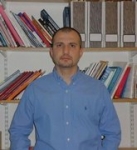 11.02.2013VIEW FROM THE GLOBAL TANK: RUSSIA CAN SHOULDER OBAMA’S CHALLENGES - AFTER A BMD DEAL
11.02.2013VIEW FROM THE GLOBAL TANK: RUSSIA CAN SHOULDER OBAMA’S CHALLENGES - AFTER A BMD DEAL
Simon Saradzhyan
President Barack Obama’s recent inauguration marked the 21st time that a US president has “renewed his lease” at the White House.
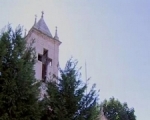 07.02.2013ISSUE OF RETURNING CHURCH PROPERTIES IN TURKEY
07.02.2013ISSUE OF RETURNING CHURCH PROPERTIES IN TURKEY
Vahram Hovyan
Confiscation of the properties belonging to the Christian communities in Turkey was one of the components of persecution and suppression policy carried out on the state level in regard to the national and religious minorities.
 04.02.2013TV SERIES: CONTENT AND SCOPE
04.02.2013TV SERIES: CONTENT AND SCOPE
Sona Manusyan, Diana Galstyan
The TV series has thus taken a root in the activity of the TV companies and in the life of the TV viewers that it is inevitable not to turn our attention specifically to them while scrutinizing the problems of the TV content.
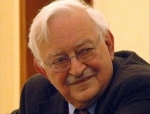 31.01.2013GLOBAL TURMOIL IN THE MIDDLE RUN
31.01.2013GLOBAL TURMOIL IN THE MIDDLE RUN
By Immanuel Wallerstein
Making predictions in the short run (the coming year or two) is a fool’s game. There are too many unpredictable twists and turns in the real political/economic/cultural world.
31.01.2013GEORGIAN BUSINESSMEN FIGHT FOR "STOLEN" PROPERTY
Georgian businessmen who accuse the last government of stealing their property have united to demand that the new administration return it.
30.01.2013“EURASIAN INTEGRATION AND ARMENIA: PROSPECTS, GOALS, TRENDS OF DISCUSSIONS”
On January 26 conference on “Eurasian Integration and Armenia: Prospects, Goals, Trends of Discussions”, organized by “Integration and Development” Research and Analytical NGO, was hold in Yerevan.
30.01.2013TURKEY SHOULD BE KEPT IN THE DARK ON ARMENIAN GENOCIDE CENTENNIAL PLANS
By Harut Sassounian
It is no secret that Armenian communities around the world are busy planning scores of projects for the 100th anniversary of the Armenian Genocide on April 24, 2015.
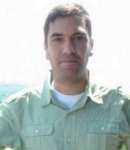 24.01.2013WHICH PARLIAMENT RECOGNIZED THE ARMENIAN GENOCIDE FIRST?
24.01.2013WHICH PARLIAMENT RECOGNIZED THE ARMENIAN GENOCIDE FIRST?
Haykaram Nahapetyan
International efforts directed to the recognition of the Armenian Genocide have a century-long history. About twenty countries recognized Armenian Genocide over the last 50 years.
 21.01.2013AZERBAIJANI SOCIAL MEDIA
21.01.2013AZERBAIJANI SOCIAL MEDIA
Samvel Martirosyan
Like the rest of the world Azerbaijan is also under the influence of explosive growth of the influence of the social media. More than a half of the population is Internet users there.
 17.01.2013ARMENIAN DIASPORA IN THE CZECH REPUBLIC
17.01.2013ARMENIAN DIASPORA IN THE CZECH REPUBLIC
Tigran Ghanalanyan
The Armenian community in the Czech Rep. is one the newly formed Armenian communities in Europe. The study of the community has some peculiarities which are conditioned by the fact that the latter considerably differs from the traditional Armenian communities in Europe.
 14.01.2013GEORGIA: AN ATTEMPT TO MANEUVER IN A NARROW GAUGE
14.01.2013GEORGIA: AN ATTEMPT TO MANEUVER IN A NARROW GAUGE
Sergei Sargsyan
The recent parliamentary elections in Georgia turned out to be remarkable in many aspects. They were remarkable for the results of the elections; for the fact that for the first time in the modern history of the country the change of the regime proceeded in a democratic path...
 10.01.2013A PRAGMATIC REVIEW OF NAGORNO-KARABAKH CONFLICT RESOLUTION: COULD ECONOMIC INCENTIVES HELP BREAK THE CURRENT STALEMATE?
10.01.2013A PRAGMATIC REVIEW OF NAGORNO-KARABAKH CONFLICT RESOLUTION: COULD ECONOMIC INCENTIVES HELP BREAK THE CURRENT STALEMATE?
Marat Terterov
It is becoming increasingly clear that there is little immediate “light at the end of the tunnel” in relation to peaceful settlement of the unresolved conflict between Armenia and Azerbaijan over Nagorno-Karabakh.
09.01.2013WITH U.S. SET TO LEAVE AFGHANISTAN, ECHOES OF 1989
By THOM SHANKER
The young president who ascended to office as a change agent decides to end the costly and unpopular war in Afghanistan. He seeks an exit with honor by pledging long-term financial support to allies in Kabul, while urging reconciliation with the insurgency.
 27.12.2012CHALLENGES TO ARMENIA IN THE GLOBALIZING WORLD
27.12.2012CHALLENGES TO ARMENIA IN THE GLOBALIZING WORLD
Gagik Harutyunyan
In Arnold Toynbee’s classical formulation, the viability of civilizations depends on their ability to adequately respond to challenges. In this sense it can be stated that for several millennia Armenia has been able to face (to various extent) its challenges.
 24.12.2012SOCIAL NETWORKS IN ARMENIA
24.12.2012SOCIAL NETWORKS IN ARMENIA
Samvel Martirosyan
In 2011-2012 the number of the Internet users in Armenia has shot up dramatically, and in consequence more than a half of the population uses the Internet.
 20.12.2012STATE BUDGET OF AZERBAIJAN
20.12.2012STATE BUDGET OF AZERBAIJAN
Ara Marjanyan
Just as in case with the population size, there is no ready and simple answer to “what is the Azerbaijani budget like?” simple question. Here we need to compare several data sources because the official estimations of the Azerbaijani Republic’s state budget differ markedly from the estimations given by other sources.
 17.12.2012ON THE ROLE OF THE ENERGY FACTOR IN THE KARABAKH CONFLICT: NEW RE-FRAMING?
17.12.2012ON THE ROLE OF THE ENERGY FACTOR IN THE KARABAKH CONFLICT: NEW RE-FRAMING?
Sergei Minasyan
Back In 1994, in the period of completion of active military actions in Nagorno-Karabakh conflict, Heidar Aliyev, while preparing for signing “Contract of the Century” with the western oil companies on the development of hydrocarbon resources in Azerbaijani offshore areas of the Caspian Sea, expressed a hope that...
12.12.2012ARMENIA AND AZERBAIJAN: LANGUAGE, ETHNICITY, RELIGION, AND NATIONAL VALUES
This blog looks at public attitudes on whether or not speaking the titular language, belonging to the predominant religion or sharing national values are perceived as necessary to be a member of Armenian or Azerbaijani society.
 10.12.2012IRAN AND SANCTIONS
10.12.2012IRAN AND SANCTIONS
Sevak Sarukhanyan
Sanctions imposed against Iran caused serious changes in the economic life of the Islamic Republic of Iran. At the same time they have had a great impact on political processes either.
 04.12.2012WAR IN SYRIA: PROBABLE SCENARIOS
04.12.2012WAR IN SYRIA: PROBABLE SCENARIOS
Gagik Harutyunyan
Military and political processes going on in the Middle East and especially in Syria in the context of “Arab spring” are mostly discussed in the Armenian media from the point of view of the security of the Armenian communities.
 30.11.2012“ACTIVE DIPLOMACY IS ESSENTIAL FOR ARMENIA”
30.11.2012“ACTIVE DIPLOMACY IS ESSENTIAL FOR ARMENIA”
Khatchik Der-Ghougassian
“Hayern Aysor”’s correspondent sat down for an interview with Argentinean-Armenian international relations expert Khatchik Der-Ghougassian.
29.11.2012“WE ARMENIANS HAVE TO KEEP OUR ISSUES OF CONCERN IN THE FOCUS OF THE INTERNATIONAL COMMUNITY”
Anna Ohanyan
“Hayern Aysor”’s correspondent sat down for an interview with U.S.-based political scientist, international relations expert Anna Ohanyan, who was one of the participants of the Pan-Armenian Conference of Political Scientists and International Relations Experts.
28.11.2012“THE 35-KILOMETER BORDER WITH ARMENIA IS AS IMPORTANT FOR IRAN AS IT IS FOR ARMENIA”
Robert Margarian
Political scientist, analyst Robert Margarian from Iran was one of the participants of the Pan-Armenian Conference of Political Scientists and International Relations Experts.
27.11.2012“THERE WON’T BE A THIRD WORLD WAR…”
Gevorg Mirzayan
“Hayern Aysor”’s correspondent sat down for an interview with analyst, journalist for Expert magazine of Moscow, Gevorg Mirzayan, who was one of the participants of the Pan-Armenian Conference of Political Scientists and International Relations Experts.
26.11.2012“ARMENIA HAS PLENTY OF SUPPORTERS”
Marat Terterov
Founding director of the European Geopolitical Forum (Belgium) Marat Terterov recently delivered an interesting speech at the Pan-Armenian Conference of Political Scientists and International Relations Experts in Yerevan. The political scientist chose the topic “Can economic stimulus help eliminate the labyrinth in the settlement of the Nagorno-Karabakh conflict?” because there hasn’t been much research on this.
 22.11.2012PAN-ARMENIAN CONFERENCE OF POLITICAL SCIENTISTS AND INTERNATIONAL RELATIONS EXPERTS ON “CHALLENGES OF THE 21ST CENTURY AND THE SECURITY ISSUES OF ARMENIA” DRAWS TO AN END
22.11.2012PAN-ARMENIAN CONFERENCE OF POLITICAL SCIENTISTS AND INTERNATIONAL RELATIONS EXPERTS ON “CHALLENGES OF THE 21ST CENTURY AND THE SECURITY ISSUES OF ARMENIA” DRAWS TO AN END
The Pan-Armenian Conference of Political Scientists and International Relations Experts on “Challenges of the 21st Century and the Security Issues of Armenia” drew to an end on November 20. The conference was organized by the RA Ministry of Diaspora.
21.11.2012PAN-ARMENIAN CONFERENCE OF POLITICAL SCIENTISTS AND INTERNATIONAL RELATIONS EXPERTS ON “CHALLENGES OF THE 21ST CENTURY AND THE SECURITY ISSUES OF ARMENIA” CONTINUES
The participants of the Pan-Armenian Conference of Political Scientists and International Relations Experts on “Challenges of the 21st Century and the Security Issues of Armenia” organized by the RA Ministry of Diaspora continued to discuss the challenges facing Armenia in the globalizing world.
20.11.2012FIRST SESSION OF THE PAN-ARMENIAN CONFERENCE OF POLITICAL SCIENTISTS AND INTERNATIONAL RELATIONS EXPERTS ON “CHALLENGES OF THE 21ST CENTURY AND THE SECURITY ISSUES OF ARMENIA” DRAWS TO AN END
The first session of the Pan-Armenian Conference of Political Scientists and International Relations Experts on “The Challenges of the 21st Century and the Security Issues of Armenia” organized by the RA Ministry of Diaspora has drawn to an end. The topic of the first session was “Challenges facing Armenia in the globalizing world”.
19.11.2012PAN-ARMENIAN CONFERENCE OF POLITICAL SCIENTISTS AND INTERNATIONAL RELATIONS EXPERTS ON “CHALLENGES OF THE 21ST CENTURY AND THE SECURITY ISSUES OF ARMENIA” KICKS OFF
On November 19, the RA Ministry of Diaspora launched the Pan-Armenian Conference of Political Scientists and International Relations Experts on “Challenges of the 21st Century and the Security Issues of Armenia” at the RA National Academy of Sciences.
 19.11.2012EUROPE: REINTEGRATION OR ANOTHER REVISION OF THE BORDERS
19.11.2012EUROPE: REINTEGRATION OR ANOTHER REVISION OF THE BORDERS
Artashes Ter-Harutyunyan
On September 27, 2012 the parliament of Catalonia, which is part of Spain, took a decision, according to which, alongside with the early parliamentary elections, referendum on independence will be held.
13.11.2012EU OFFICIALS: WE WERE HACKED DURING CONFERENCE ON INTERNET SECURITY IN AZERBAIJAN
A European official says her staff members were hacked when they joined her for a conference on Internet security in Azerbaijan. European Commission Vice President Neelie Kroes said in a blog post Saturday that her advisers’ computers were compromised as they attended a meeting of the Internet Governance Forum in Baku, the Azeri capital.
 13.11.2012THE OBAMA CAMPAIGN’S TECHNOLOGY IS A FORCE MULTIPLIER
13.11.2012THE OBAMA CAMPAIGN’S TECHNOLOGY IS A FORCE MULTIPLIER
By STEVE LOHR
Technology doesn't win political campaigns, but it certainly is a weapon -- a force multiplier, in military terms.Both sides in the presidential contest mined click-stream data as never before to target messages to potential voters.
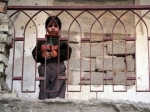 06.11.2012IRAQ'S ENDLESS HUMANITARIAN CRISIS
06.11.2012IRAQ'S ENDLESS HUMANITARIAN CRISIS
By Irena L. Sargsyan
Insurgencies and civil wars often gain attention in the United States only when waves of violence batter urban frontlines abroad. But once the combat ends and the cameras go home, interest here swiftly recedes. Yet, the lingering effects of the fighting—particularly on human capital—have profound strategic implications for the stability, democracy and prosperity of a state emerging from war.
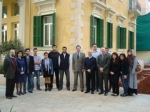 24.10.2012THE ARMENIAN EVANGELICAL COMMUNITIES IN THE MIDDLE EAST
24.10.2012THE ARMENIAN EVANGELICAL COMMUNITIES IN THE MIDDLE EAST
Vahram Hovyan
Currently there are Armenian Evangelical communities in 6 countries in the Middle East – in Lebanon, Syria, Iraq, Turkey, Iran and Egypt.
16.10.2012AZERBAIJAN: BRIBERY ALLEGATIONS HIT HEADLINES
A video ostensibly showing a member of Azerbaijan’s parliament asking for a bribe has caused a rare public scandal around the issue of corruption.
On September 20, Elshad Abdullayev, formerly rector of the Azerbaijan International University, told journalists that politician Gular Ahmadova had demanded two million manats (around 2.5 million US dollars) to secure him a seat in parliament.
 16.10.2012IRANIAN CRISIS AND “IMMEDIATE” DETERRENCE IN THE KARABAKH CONFLICT
16.10.2012IRANIAN CRISIS AND “IMMEDIATE” DETERRENCE IN THE KARABAKH CONFLICT
Sergey Minasyan
The Iranian nuclear programme and persisting crisis in the relations of Iran with many western countries, and first of all with the U.S. and Israel, seriously influence political processes in the region as well. In some cases it is also considered as a catalyst of many regional conflicts.
 04.10.2012PEACE SHOULD REFLECT THE OUTCOME OF THE WAR
04.10.2012PEACE SHOULD REFLECT THE OUTCOME OF THE WAR
Anushavan Barseghyan
American think tanks are one of the main factors influencing Washington’s foreign policy and they have predetermined the character of the activity of the US on the international arena. But analytical centers are given less consideration than confronting lobbyist groups, inter-partisan disagreements and competition between the wings of the authorities.
 01.10.2012HACKER ATTACKS AGAINST ARMENIAN SEGMENT OF THE WEB: RECENT DEVELOPMENTS
01.10.2012HACKER ATTACKS AGAINST ARMENIAN SEGMENT OF THE WEB: RECENT DEVELOPMENTS
Samvel Martirosyan
The Azerbaijani and Turkish hacker groups continue to constitute menace to the Armenian segment of the Internet. Hackers regularly arrange attacks on Armenian web sites. Emails and social network profiles of the individuals are also being hacked.
 27.09.2012SIGNIFICANCE OF NUCLEAR ENERGY FOR ARMENIA
27.09.2012SIGNIFICANCE OF NUCLEAR ENERGY FOR ARMENIA
Sevak Sarukhanyan
In the years to come building of a new power generating unit of Metsamor Nuclear Power Plant will be one of the main political and economic challenges for Armenia. The power generating unit, which will cost about $5 billion, will be most expensive and most important economic programme in the history of the Republic of Armenia, and its significance should be considered not only in economic but in political aspect either.
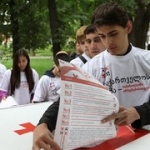 24.09.2012PARLIAMENTARY ELECTIONS: GEORGIA AHEAD OF THE CONTROVERSIAL EVENT
24.09.2012PARLIAMENTARY ELECTIONS: GEORGIA AHEAD OF THE CONTROVERSIAL EVENT
Sergei Minasyan
This autumn Georgia will face serious political challenge – regular and very important parliamentary elections will be held. On August 1, 2012 the president of Georgia Mikhail Saakashvili appointed the day of parliamentary elections. According to law they should be held in 60 days, i.e. on October 1.
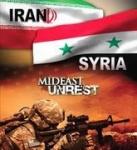 18.09.2012SYRIAN CRISIS AND IRAN
18.09.2012SYRIAN CRISIS AND IRAN
Artashes Ter-Harutyunyan
At the end of August Iran stated that its armed forces were participating in the civil war in Syria. “We are involved in all kinds of combat actions [in Syria]”, stated general Salar Abnush – the commander of “Sahib al-Amr” unit of the Army of the Guardians of the Islamic Revolution – at his meeting with the journalists.
13.09.2012FRENCH-ARMENIANS SHOULD WELCOME ALIYEV IN PARIS AS ‘CHIEF HATCHET MAN’
By Harut Sassounian
When Pres. Ilham Aliyev arrives in Paris on September 18, thousands of French-Armenians should greet Azerbaijan’s leader with posters depicting him as ‘Hatchet Man-in-Chief’ -- ‘Bash Baltaji’ -- holding a bloody axe. Interestingly, in all three languages -- Azeri, Hungarian, and Turkish -- ‘balta’ means hatchet or axe.
 06.09.2012ACTIVITY OF THE ARMENIAN EVANGELICALS IN ARTSAKH
06.09.2012ACTIVITY OF THE ARMENIAN EVANGELICALS IN ARTSAKH
Tigran Ghanalanyan
Artsakh has been a stage for the activity of the Armenian Evangelicals for about two hundred years. In both pre-Soviet and post-Soviet periods the Evangelicals played and still play considerable role there.
05.09.2012HUNGARIAN/AZERI SCANDAL VINDICATES ARTSAKH’S QUEST FOR INDEPENDENCE
By Harut Sassounian
Armenians worldwide are outraged by Pres. Aliyev’s pardon following the Hungarian government’s release of Ramil Safarov -- an axe-wielding Azeri Lieutenant who hacked to death Armenian officer Gurgen Margarian in his sleep, while attending a 2004 NATO course in Budapest.
 03.09.2012THE GROUNDS OF INTER-CONFESSIONAL COOPERATION IN THE DIASPORA
03.09.2012THE GROUNDS OF INTER-CONFESSIONAL COOPERATION IN THE DIASPORA
Arestakes Simavoryan, Vahram Hovyan
One of the main goals of the study of the different confessional segments of the Armeniancy is the revelation of the efficient mechanisms of consolidation of the national potential.
03.09.2012TIME FOR ACTION: SYRIAN-ARMENIANS NEED YOUR URGENT ASSISTANCE
By Harut Sassounian
There has been too much talk about the tragic crisis in Syria by self-described analysts and experts who have managed to spread misinformation, while inadvertently jeopardizing the safety of the Armenian community.
 02.08.2012SOME ASPECTS OF THE DEVELOPMENT OF MILITARY AND POLITICAL SITUATION ROUND THE NAGORNO-KARABAKH CONFLICT
02.08.2012SOME ASPECTS OF THE DEVELOPMENT OF MILITARY AND POLITICAL SITUATION ROUND THE NAGORNO-KARABAKH CONFLICT
Sergei Sargsyan
Currently military and political situation round Nagorno-Karabakh conflict is mainly characterized by a general influence of the following factors: Combat readiness and fighting capacity of the armed forces of the conflicting parties, sustaining of the acceptable balance of offensive/defensive arms between them...
 30.07.2012DEVELOPMENTS OF ARMENIA’S SEGMENTS OF THE INTERNET
30.07.2012DEVELOPMENTS OF ARMENIA’S SEGMENTS OF THE INTERNET
Samvel Martirosyan
Over the last years the Armenian segment of the world web shot up dramatically. An unprecedented increase in numbers of users brought to the situation when Armenia took leading positions among the CIS countries.
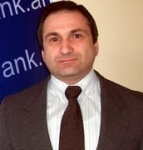 26.07.2012 “IT IS NECESSARY TO RAISE ENERGY EFFICIENCY”, - says the deputy head of the Center for Political Studies of “Noravank” Foundation Sergei SARGSYAN in his interview to “Golos Armenii”
26.07.2012 “IT IS NECESSARY TO RAISE ENERGY EFFICIENCY”, - says the deputy head of the Center for Political Studies of “Noravank” Foundation Sergei SARGSYAN in his interview to “Golos Armenii”
- Mr. Sargsyan, how do you assess the condition of the energy security of Armenia? What is the role of “Armrosgazprom” in its ensuring?
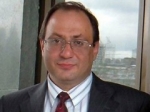 17.07.2012DEMOGRAPHICS IN INFORMATION AND PSYCHOLOGICAL WARFARE: SOUTH CAUCASUS
17.07.2012DEMOGRAPHICS IN INFORMATION AND PSYCHOLOGICAL WARFARE: SOUTH CAUCASUS
Ara Marjanyan
Currently South Caucasus region is in an ongoing information and psychological warfare. One of its characteristics is the systematic misrepresentation of demographic statistics and wide use of distorted data to carry out psychological warfare.
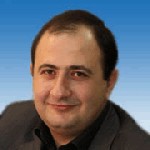 12.07.2012ABOUT THE EDUCATIONAL PROBLEMS OF TURKEY’S ARMENIANCY
12.07.2012ABOUT THE EDUCATIONAL PROBLEMS OF TURKEY’S ARMENIANCY
Ruben Melkonyan
Education has always had a great importance in the Armenian lives; around the world, Armenians have founded and developed their national schools. Armenian community of Istanbul (called Bolis by Western Armenians) also traditionally valued education and it was no mere chance that by the end of the 19th century there were 90 Armenian schools in Bolis, of which 40 community-based and 50 private ones.
 09.07.2012US SUPREME COURT MAY HEAR FIRST EVER ARMENIAN GENOCIDE-RELATED LAWSUIT
09.07.2012US SUPREME COURT MAY HEAR FIRST EVER ARMENIAN GENOCIDE-RELATED LAWSUIT
By Harut Sassounian
For the first time, a lawsuit indirectly involving the Armenian Genocide is being appealed to the U.S. Supreme Court. Since its initial filing in 2003, various federal courts have taken conflicting positions on this lawsuit.
 03.07.2012THE EUROPEAN UNION: NEW TENDENCIES
03.07.2012THE EUROPEAN UNION: NEW TENDENCIES
Gagik Harutyunyan
The European Union, which includes 27 countries and has population of over 500 million, is the biggest economy in the world (at current prices the GDP of the EU is $16.4 trillion, which constitutes 28% of the world GDP). At the same time this union has appeared in rather difficult political and economic situation.
 28.06.2012ON THE REGIONAL POLICY OF IRAN
28.06.2012ON THE REGIONAL POLICY OF IRAN
Sevak Sarukhanyan
The passed parliamentary elections in Iran which fortified political stability in the country after the 2009 elections, created fertile ground for Tehran to stir up regional policy.
 25.06.2012TRANS-CASPIAN GAS PIPELINE: GOALS, PROBLEMS AND RISKS
25.06.2012TRANS-CASPIAN GAS PIPELINE: GOALS, PROBLEMS AND RISKS
Sergei Sargsyan
At the end of his visit to Baku in November 2011 the Special Envoy of the United States Secretary of State for Eurasian Energy Richard Morningstar stated that the US would support any pipeline within the framework of the South gas corridor but it would be better to begin from a small pipeline which would be expanded later.
 18.06.2012LATIN RITE ROMAN CATHOLICS OF ARMENIAN DESCENT IN SYRIA
18.06.2012LATIN RITE ROMAN CATHOLICS OF ARMENIAN DESCENT IN SYRIA
Hagop Cholakian
The article discusses the Latin Catholic proselytism that took place starting the late 19th century in northwestern regions of Syria with dense Armenian population, the conditions and methods of spreading the Latin rite Roman Catholic faith...
 14.06.2012ISLAMIC FACTOR IN THE FOREIGN POLICY OF TURKEY
14.06.2012ISLAMIC FACTOR IN THE FOREIGN POLICY OF TURKEY
Artashes Ter-Harutyunyan
Recently the intelligence service of Israel – Mossad – presented to the cabinet of Benjamin Netanyahu a report on the situation and possible developments in Syria.
 11.06.2012REALITY OF TBILISI: ON ARMENIAN-GEORGIAN CONTRADICTIONS
11.06.2012REALITY OF TBILISI: ON ARMENIAN-GEORGIAN CONTRADICTIONS
Tamara Vardanyan
Last year “Internews Georgia” organization has carried out monitoring of tolerance and human rights issues in local media. They studied the number and content of publications on ethnic and religious (as well as sexual) minorities in printed media.
 07.06.2012THE ARMENIAN EVANGELICAL COMMUNITY OF FRANCE
07.06.2012THE ARMENIAN EVANGELICAL COMMUNITY OF FRANCE
Tigran Ghanalanyan
Besides the Armenian Apostolic and Catholic communities in France there is also Armenian Evangelical community. The establishment of the Armenian Evangelical community of France was conditioned by the same factors as the establishment of other Armenian communities.
 04.06.2012THE ARMENIAN COMMUNITY IN GREECE AT THIS STAGE
04.06.2012THE ARMENIAN COMMUNITY IN GREECE AT THIS STAGE
Vahram Hovyan
The number of the members of the Armenian community in Greece in the 20th century fluctuated. In 1923 it reached its peak (120 thousand people), which was conditioned by the mass migration of the Armenians to that country caused by the Armenian pogroms in 1890s, the Armenian Genocide in 1915 and Greek-Turkish war (1919-1922).
 29.05.2012ON MANIFESTATIONS OF SELF-ORGANIZATION OF THE ARMENIANS IN TURKEY
29.05.2012ON MANIFESTATIONS OF SELF-ORGANIZATION OF THE ARMENIANS IN TURKEY
Ruben Melkonyan
Over the recent years new processes, which has been developing in rather interesting way, can be observed among the Armenians in Turkey who has appeared in rather difficult situation.
 24.05.2012CHRISTIANS IN TODAY’S TURKEY (Protestants and Catholics)
24.05.2012CHRISTIANS IN TODAY’S TURKEY (Protestants and Catholics)
Arestakes Simavoryan
In February global mass media spread information that German Via Dolorosa Christian Union summoned Christians of the world to boycott Turkish “Fatih 1453” film, which, in fact, was anti-Christian.
22.05.2012HOW SHOULD THE DIASPORA REACT TO NEW TURKISH OVERTURES?
By Harut Sassounian
I have been informed by reliable sources that Turkey’s Foreign Minister Ahmet Davutogluis continuing his efforts to initiate a personal ‘dialog’ with the Diaspora on Armenian-Turkish issues. Earlier this month, Davutoglu met with Armenian-Americans, as follow up to the meetings he held in Washington last March.
 18.05.2012RHODE ISLAND LEGISLATURE CALLS FOR US TO RECOGNIZE KARABAKH
18.05.2012RHODE ISLAND LEGISLATURE CALLS FOR US TO RECOGNIZE KARABAKH
By Khatchig Mouradian
The Rhode Island House passed a resolution today calling on the U.S. President and Congress to recognize the independence of the Nagorno Karabakh Republic.
 17.05.2012THE IMAGE OF THE INTERNET USER IN ARMENIA
17.05.2012THE IMAGE OF THE INTERNET USER IN ARMENIA
Samvel Martirosyan
A number of the Internet users in Armenia have risen sharply for the recent three years. According to the latest data, for June 2011 Internet is available to 796550 people, i.e. 47.1% of 2 million 967 thousand population of Armenia.
 14.05.2012THE ISSUE OF THE ARMENIAN GENOCIDE AND MODERN TENDENCIES OF TURKEY’S POLICY
14.05.2012THE ISSUE OF THE ARMENIAN GENOCIDE AND MODERN TENDENCIES OF TURKEY’S POLICY
Ruben Melkonyan
As it is known struggle against the international recognition of the Armenian Genocide takes an important place on the foreign political agenda of Turkey. On the threshold of 2015 Turkey mobilizes all its old methods and adds new ones in both foreign and domestic policy.
 10.05.2012BIOLOGICAL WEAPONS IN AZERBAIJAN
10.05.2012BIOLOGICAL WEAPONS IN AZERBAIJAN
Artsrun Khanjyan
Availability of distinct information about enemy’s armed forces and particularly about weapons of mass destruction is very important in military and political conflicts.
 07.05.2012NUCLEAR TURKEY
07.05.2012NUCLEAR TURKEY
Ara Marjanyan
A number of processes on domestic (national), regional and global levels rise inclination of Turkey for the creation of the nuclear capabilities of its own.
 03.05.2012TURKISH FACTOR IN “LEVIATHAN” AND “APHRODITE” ENERGY “WARS”
03.05.2012TURKISH FACTOR IN “LEVIATHAN” AND “APHRODITE” ENERGY “WARS”
Sevak Sarukhnyan
Finding vast reserves of natural gas in the eastern Mediterranean has turned this region into a stage of new energy and political contradictions.
 26.04.2012TURKISH NUCLEAR THREAT
26.04.2012TURKISH NUCLEAR THREAT
Gagik Harutyunyan
Proliferation of nuclear and mass destruction weapons is the most topical issue of the global security today. The researches, carried out back in the middle of the 20th century, come to prove that usage of the mass destruction weapons brings to the global catastrophe.
 19.04.2012THE RELATIONS BETWEEN DIFFERENT RELIGIOUS AND CONFESSIONAL SEGMENTS OF THE ARMENIANCY AND THE ISSUES OF THEIR CONSOLIDATION
19.04.2012THE RELATIONS BETWEEN DIFFERENT RELIGIOUS AND CONFESSIONAL SEGMENTS OF THE ARMENIANCY AND THE ISSUES OF THEIR CONSOLIDATION
Vardan Astsatryan
In the current transitional period of the multi-polar world civilizational conflicts take place, with the globalized world being formed in parallel.
17.04.2012TWO FACES OF TURKEY: VENEER OF GENTILITY MASKING RUTHLESSNESS
By Harut Sassounian
When Turkey’s Foreign Minister met secretly with a group of Armenians in Washington last month, he wooed them with his sly smile and sugar-coated words. This was the fake facade of traditional Turkish diplomacy.
 16.04.2012THE CONTEMPORARY PROBLEMS OF ARMENIANCY IN THE RELIGIOUS DIMENSION
16.04.2012THE CONTEMPORARY PROBLEMS OF ARMENIANCY IN THE RELIGIOUS DIMENSION
Hovhannes Hovhannisyan
Over the history of the Armenian people, along with the political and state-related issues the religious, ecclesial and theological ones were among the most discussed and analyzed problems.
 12.04.2012THE STUDY OF THE ISSUE OF ISLAMIZED ARMENIANS IN TURKEY: PROBLEMS AND PROSPECTS
12.04.2012THE STUDY OF THE ISSUE OF ISLAMIZED ARMENIANS IN TURKEY: PROBLEMS AND PROSPECTS
Ruben Melkonyan
In the Armenian reality the issue of the forcibly Islamized Armenians has drawn the attention of the experts and general public in different periods.
 10.04.2012ON TURKEY’S NUCLEAR CLAIMS
10.04.2012ON TURKEY’S NUCLEAR CLAIMS
Artashes Ter-Harutyunyan
In April a visit of the Turkish prime-minister Recep Tayip Erdogan to Beijing where a Chinese-Turkish agreement on “Peaceful use of the Nuclear Energy” will be concluded is expected.
 06.04.2012INTERVALS OF UNCERTAINTY OF ECONOMY
06.04.2012INTERVALS OF UNCERTAINTY OF ECONOMY
Ashot A. Tavadyan
The interval methods of the relationship systematization of economy’s indicators are developed in the book of Dr., Sci., Professor A.A. Tavadyan. The principle of correspondence of the system of price and natural indicators is established.
 05.04.2012100th ISSUE OF “HANRAPETAKAN”
05.04.2012100th ISSUE OF “HANRAPETAKAN”
Since March 2003 100th issue of the official periodical of the Republican Party of Armenia – “Hanrapetakan” journal – has been published; it is, in fact an ideological successor of “Hanrapetakan” monthly which had been published in 1990s.
03.04.2012THE ARMENIAN LIBRARY AND ARCHIVE IN GERMANY: MEETING THE CHALLENGES OF THE 21st CENTURY
This year UNESCO declared Yerevan as the World Book Capital, based on 500- year anniversary of Armenian printing (1512-2012). Meanwhile, the German-Armenians´ Central Council announced 2012 as the Armenian library and archive establishment year in Germany.
 02.04.2012ARMENIA AND CHINA—CASE FOR A SPECIAL PARTNERSHIP
02.04.2012ARMENIA AND CHINA—CASE FOR A SPECIAL PARTNERSHIP
By Simon Saradzhyan
This article will take stock of the Armenian-Chinese relations to discern whether Yerevan has been effective in its response to the ongoing rise of the Middle Kingdom as the two countries prepare to celebrate the 20th anniversary of the establishment of diplomatic relations this April.
 29.03.2012BAKU SUMMONS POPULATION OF IRAN FOR CIVIL DISOBEDIENCE
29.03.2012BAKU SUMMONS POPULATION OF IRAN FOR CIVIL DISOBEDIENCE
Levon Melik-Shakhnazaryan
The Ministry of National Security of Azerbaijan has stated recently about arrest of a group of terrorists who were allegedly planning assassination of foreign diplomats in Baku.
 22.03.2012POLITICAL DEVELOPMENTS IN IRAN AND POSSIBLE IRAN-US COLLISION
22.03.2012POLITICAL DEVELOPMENTS IN IRAN AND POSSIBLE IRAN-US COLLISION
Sevak Sarukhanyan
Parliamentary elections held on March 2 and presidential elections in 2013 in Iran are of great importance not only for domestic political life of the Islamic Republic of Iran but they may also become an incitement for the military encounter between Iran and the US.
16.03.2012CLINTON SHOULD RESIGN FOR MAKING OFFENSIVE REMARKS ON ARMENIAN GENOCIDE
By Harut Sassounian
How many times can Secretary of State Hillary Clinton break her pledge and make insulting remarks on the Armenian Genocide before she is called a liar and forced to resign? Armenian-Americans are fed up with Mrs. Clinton and her boss Barack Obama who also has not kept his promises on the Armenian Genocide. And the problem transcends their views on the Armenian Genocide.
 15.03.2012NEW MIDDLE EAST: REALITY AND PROSPECTS
15.03.2012NEW MIDDLE EAST: REALITY AND PROSPECTS
Gagik Harutyunyan
The processes going round Syria and nuclear programme of Iran are the follow-up of the so-called “Arab spring”. At the same time, alongside the commonalities the “Syrian” processes have peculiarities, which were not characteristic of the victorious march of the Arab revolutions.
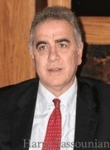 01.03.2012HOW TO COUNTER APPEALS COURT’S RULING AGAINST INSURANCE CLAIMS
01.03.2012HOW TO COUNTER APPEALS COURT’S RULING AGAINST INSURANCE CLAIMS
By Harut Sassounian
The federal Court of Appeals issued a shocking decision last week. In a unanimous ruling, it struck down a California law that had allowed heirs of Armenian Genocide victims to sue life insurance companies for unpaid claims.
 27.02.2012DEVELOPMENTS ROUND SYRIA
27.02.2012DEVELOPMENTS ROUND SYRIA
Artashes Ter-Harutyunyan
In the recent period a definite change of the stance of Russia on Syrian issue has been the most remarkable among the developments round that country.
 23.02.2012BETWEEN A ROCK AND A HARD PLACE: THE ARMENIANS IN SYRIA
23.02.2012BETWEEN A ROCK AND A HARD PLACE: THE ARMENIANS IN SYRIA
By Nanore Barsoumian
Two suicide car bombs targeting Syrian regional military and security headquarters shook Aleppo on Feb. 10, claiming 28 victims...
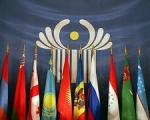 20.02.2012A FAILED PROJECT. DEVOTED TO THE 20TH ANNIVERSARY OF THE CIS
20.02.2012A FAILED PROJECT. DEVOTED TO THE 20TH ANNIVERSARY OF THE CIS
Sergei Grinyaev
This year the 20th anniversary of establishing the Commonwealth of Independent States is marked.
16.02.2012BRYZA CONFESSES HIS LOVE FOR TURKEY, CONFIRMING HIS ANTI-ARMENIAN BIAS
By Harut Sassounian
It appears that my prediction about Matt Bryza leaving the State Department and working as a lobbyist is coming true.
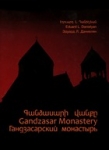 13.02.2012GANDZASAR MONASTERY
13.02.2012GANDZASAR MONASTERY
Eduard L. Danielyan
The book is devoted to the past and the present of the Gandzasar monastery and its significance in the history of the Armenian Apostolic Church.
 13.02.2012IN AFGHANISTAN, A SOVIET PAST LIES IN RUINS
13.02.2012IN AFGHANISTAN, A SOVIET PAST LIES IN RUINS
By Graham Bowley
As poignant in its imperial ambition as in its otherworldliness, the Soviet-era swimming pool atop Swimming Pool Hill here is as good a symbol as any of the doubtful legacy of empires.
 09.02.2012DEVELOPMENTS AROUND IRAN
09.02.2012DEVELOPMENTS AROUND IRAN
Artashes Ter-Harutyunyan
Though in prior years, tension around Iran – intensifying and weakening, was not considered to be unusual, over the recent period it can be observed that the developments concerning the Southern neigbour of Armenia has changed their character.
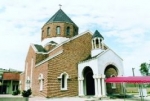 06.02.2012ARMENIAN EVANGELICAL COMMUNITY IN URUGUAY
06.02.2012ARMENIAN EVANGELICAL COMMUNITY IN URUGUAY
Vahram Hovyan
The Evangelical Armenians take special place in the Armenian community of 15 thousand in Uruguay.
02.02.2012FRANCE SHOULDN’T ALLOW TURKEY TO MEDDLE IN ITS DOMESTIC AFFAIRS
By Harut Sassounian
For nearly a century, Turkey’s leaders have tried to hide the monstrous crime of the Armenian Genocide by covering up what really took place in the killing fields of the Syrian desert, then part of the Ottoman Empire.
01.02.2012TURKEY DROPS HEAVILY IN PRESS FREEDOM RANKINGS
Turkey drops dramatically in press freedom rankings in 2011, losing 10 places to be 148th out of 178 countries.
 30.01.2012ARMENIA IS BECOMING VULNERABLE TO CYBER-ATTACKS
30.01.2012ARMENIA IS BECOMING VULNERABLE TO CYBER-ATTACKS
Samvel Martirosyan
An unprecedented upsurge of the number of Internet users has been observed in Armenia for recent one or two years and it is conditioned by both slashing of the prices for Internet connection and the fact that computers and mobile devices became more affordable.
 26.01.2012IRAN AND DEVELOPMENTS IN SYRIA
26.01.2012IRAN AND DEVELOPMENTS IN SYRIA
Sevak Sarukhanyan
Today Iran experiences one of the gravest consequences of the “Arab spring”: the anti-governmental movement, which started in Syria in spring, more and more resembles civil war and president B. Assad is losing his ground.
 23.01.2012NOT TIME TO ATTACK IRAN
23.01.2012NOT TIME TO ATTACK IRAN
By Colin H. Kahl
In Time to Attack Iran (January/February 2012), Matthew Kroenig takes a page out of the decade-old playbook used by advocates of the Iraq war.
 19.01.2012THE AGE OF SOCIAL NETWORKS: CHANGES IN THE INFORMATION FIELD
19.01.2012THE AGE OF SOCIAL NETWORKS: CHANGES IN THE INFORMATION FIELD
Samvel Martirosyan
The prevalence of social networks on the Internet and in the media space in general causes even more drastic changes of the information environment.
17.01.2012WHAT ARE THE MAJOR GLOBAL ISSUES THAT WILL DEFINE 2012?
Jessica T. Mathews
Jessica Tuchman Mathews is president of the Carnegie Endowment for International Peace, the global think tank with headquarters in Washington, D.C., and offices in Moscow, Beijing, Brussels, and Beirut.
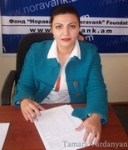 16.01.2012ARMENIAN SCHOOLS IN TBILISI: THE END OF THE STORY
16.01.2012ARMENIAN SCHOOLS IN TBILISI: THE END OF THE STORY
Tamara Vardanyan
The most important sphere regarding the issues connected with the Armenians from Tbilisi is the education.
13.01.2012MEMORIES DIM OF ARMENIA'S SOVIET PAST
By Gayane Mkrtchyan, Naira Melkumyan
While younger people have little conception of life under communist rule, some Armenians miss the positive things lost after the Soviet collapse. Two decades have passed since the Soviet flag was lowered over Armenia, but Sedrak Mkhitaryan’s hands still shake when he brings out the red flags and Lenin medals he treasures from the glory days of communism.
12.01.2012AZERBAIJAN AND OBAMA SUFFER SETBACKS AS AMB. BRYZA’S SERVICE IS CUT SHORT
By Harut Sassounian
As a result of successive political blunders by the Obama administration, Matthew Bryza was forced to abandon his ambassadorial post in Azerbaijan last week. Pres. Obama ignored repeated warnings that the candidate he was nominating as Ambassador to Azerbaijan in May 2010 had serious flaws. Members of the Senate Foreign Relations Committee accused Bryza of having a pro-Azerbaijani bias and questionable ties to Azeri officials.
 11.01.20128 GEOPOLITICALLY ENDANGERED SPECIES
11.01.20128 GEOPOLITICALLY ENDANGERED SPECIES
By Zbigniew Brzezinski
With the decline of America's global preeminence, weaker countries will be more susceptible to the assertive influence of major regional powers.India and China are rising, Russia is increasingly imperially minded, and the Middle East is growing ever more unstable.
 11.01.2012AFTER AMERICA
11.01.2012AFTER AMERICA
By Zbigniew Brzezinski
Not so long ago, a high-ranking Chinese official, who obviously had concluded that America's decline and China's rise were both inevitable, noted in a burst of candor to a senior U.S. official: "But, please, let America not decline too quickly."
 09.01.2012CURRENT CONDITION OF THE ARMENIAN EVANGELICAL COMMUNITY IN RUSSIA
09.01.2012CURRENT CONDITION OF THE ARMENIAN EVANGELICAL COMMUNITY IN RUSSIA
Vahram Hovyan
The Evangelical Armenians take special place among the Armenians living in Russia.
 23.12.2011ERDOĞAN WARNS SARKOZY OF ‘GRAVE CONSEQUENCES’
23.12.2011ERDOĞAN WARNS SARKOZY OF ‘GRAVE CONSEQUENCES’
Turkish Prime Minister Recep Tayyip Erdoğan sent a letter today to French President Nicolas Sarkozy, warning of the "grave consequences" a French bill recognizing Armenian genocide claims would have on bilateral relations.
22.12.2011THE CLERICAL AND CHURCH ISSUES OF THE ARMENIAN CATHOLIC COMMUNITY IN RUSSIA
Arestakes Simavoryan
One of the confessional communities retrieved in the Diaspora over the recent century is the Armenian Catholic community in Russia. Its organizations take special place in Russia and it is an integral part of the Armeniancy of Russia. The history of the Armenian Catholic Community in Russia is rich in tragic pages in history.
19.12.2011US COURT TO RULE ON TURKISH BANKS’ MOTION TO DISMISS ARMENIAN LAWSUITS
By Harut Sassounian
Two separate lawsuits were filed last year in US Federal Court in Los Angeles against the Republic of Turkey and two of its major banks demanding compensation for properties confiscated from Armenians after the 1915 Genocide.
 15.12.2011ON THE ISSUE OF FORMATION TWO EQUAL IN RIGHTS STATES ON THE TERRITORY OF THE FORMER AZERBAIJANI SSR
15.12.2011ON THE ISSUE OF FORMATION TWO EQUAL IN RIGHTS STATES ON THE TERRITORY OF THE FORMER AZERBAIJANI SSR
Mikhail Aghajanyan
One of the most substantive and at the same time vital issues for the adequate presentation of the essence of the Nagorno-Karabakh conflict and ways of its long-term setting is the issue of formation of two states – Nagorno-Karabakh Republic (NKR) and Azerbaijan Republic (AR) on the territory of the former Azerbaijani SSR.
13.12.2011THE BAVARIAN MINISTER OF CULTURE HONORS THE ARMENIAN SINGER
Ofelya Sargsyan
On November 20 in Munich, Bavaria, Germany, in the imperial hall of the royal residence the State Minister of Science, Scientific Research and Arts Dr. Wolfgang Heubisch handed the Bavarian award of encouraging arts to the gifted Armenian singer Harchuhi Bassenz for achieving significant success in her field.
 12.12.2011ARMENIANS OF OTHER RELIGIONS AND CONFESSIONS: CHALLENGES AND POSSIBILITIES
12.12.2011ARMENIANS OF OTHER RELIGIONS AND CONFESSIONS: CHALLENGES AND POSSIBILITIES
International research and practical conference
On December 9-10, 2011 in “Picasso” Hall at Congress Hotel in Yerevan research and practical conference on “Armenians of Other Religions and Confessions: Challenges and Possibilities” was held. The conference was organized by the Ministry of Diaspora of Armenia, “The Hyksos” Foundation and “Noravank” Foundation.
08.12.2011THE ISSUE OF THE ARMENIAN GENOCIDE IN THE TURKISH PARLIAMENT
Ruben Melkonyan
It is known that the issue of the Armenian Genocide has it certain place on the Turkish political and academic agendas, and the “academic” circles work by the order of the state.
05.12.2011ON REGIONAL ENERGY DEVELOPMENTS
Sevak Sarukhanyan
Over the recent period the developments around the implementation of the regional energy projects, in particular around building of the Trans-Caspian gas pipeline and profound disagreements, which emerged in the Russian-Turkish energy issues, stirred up.
 01.12.2011TENSION ROUND IRAN
01.12.2011TENSION ROUND IRAN
Artashes Ter-Harutyunyan
On November 4, 2011 the president of Israel Shimon Peres made a statement that in the solution of the Iranian issue the Jewish state was tending towards the military option.
28.11.2011TURKEY SEEKS TO MONOPOLIZE INVESTMENTS IN AMERICAN INDIAN TRIBAL LANDS
By Harut Sassounian
In a few weeks, when high-priced Turkish lobbying firms file their mandatory reports with the Justice Department, important revelations will emerge about their behind the scenes role in pushing through Congress a bill which would give Turkish companies a monopoly for investments in American Indian tribal lands.
17.11.2011ON SOME TENDENCIES OF CONTEMPORARY TURKISH HISTORIOGRAPHY
Ruben Melkonyan
For many decades Turkey has been struggling against the recognition of the Armenian Genocide not only on political but also on academic levels.
 10.11.2011GEOPOLITICAL MEANING OF THE US ANTI-BALLISTIC MISSILE DEFENCE
10.11.2011GEOPOLITICAL MEANING OF THE US ANTI-BALLISTIC MISSILE DEFENCE
Artashes Ter-Harutyunyan
On September 14, 2011 in Ankara the deputy-Minister of Foreign Affairs Feridun Sinirlioglu and the US Ambassador to Turkey Francis Richardson signed a memorandum on deployment of radar in Turkey.
07.11.2011ARMENIAN COMMUNITY IN BULGARIA
Vahram Hovyan
Number and geographic diversion – The Armenian community in Bulgaria includes representatives of both the traditional Armenian Diaspora – the Armenians who appeared in Bulgaria before and in consequence of the Genocide – and “modern” Diaspora – those who migrated from the Republic of Armenia in consequence of difficult social and economic situation.
 31.10.2011EDUCATIONAL ISSUES OF THE ARMENIAN COMMUNITY IN CZECH REPUBLIC
31.10.2011EDUCATIONAL ISSUES OF THE ARMENIAN COMMUNITY IN CZECH REPUBLIC
Tigran Ghanalanyan
The Armenian community in Czech Rep. was established in the late 1980s and early 1990s. Today the number of the Armenians in Czech Rep. is about 10 thousand.
27.10.2011DEVELOPMENT OF KNOWLEDGE, INNOVATIONS AND CREATIVITY IN THE NATIONAL DEVELOPMENT PROSPECT
Sona Manusyan
Knowledge has been a basic value in all cultures and at all times. In modern societies, which are called information, the connection between knowledge and social processes has become direct and tangible.
24.10.201196 YEARS LATER, TURKEY STILL PAYS A PRICE FOR GENOCIDE DENIAL
By Harut Sassounian
Almost a century after the fact, the Republic of Turkey continues to be disgraced for its persistent denial of the Armenian Genocide.
20.10.2011THREE PRINCIPLES, SIX GUIDELINES AND “STATUS-QUO” IN THE KARABAKH CONFLICT SETTELEMENT
Mikhail Aghajanyan
The process of the Nagorno-Karabakh conflict settlement is going through one of the most intensive stages. It is more correct to speak about the intensification than about stirring up...
19.10.2011THE ARBITRAL AWARD BY US PRESIDENT WOODROW WILSON ON TURKISH- ARMENIAN BOUNDARY (NOV. 22, 1920) - FULL REPORT
On October 6, 2011 at Rutgers University (the State University of New Jersey) the presentation of a book “The Arbitral Award by US President Woodrow Wilson on Turkish- Armenian Boundary (Nov. 22, 1920) - Full Report” by Ara Papyan took place.
 18.10.2011NICOLAS SARKOZY GIVES TURKEY TILL YEAREND TO RECOGNIZE GENOCIDE
18.10.2011NICOLAS SARKOZY GIVES TURKEY TILL YEAREND TO RECOGNIZE GENOCIDE
On the sidelines of his visit to Armenia, French President Nicolas Sarkozy visited Tsitsernakaberd Armenian Genocide Memorial, where he addressed the issue of 1915 massacres in Ottoman Empire.
17.10.2011CATHOLIC ARMENIANS IN POLAND
Arestakes Simavoryan
Today the generations of Armenians, who have been converted to other confessions for centuries, live in the countries of Eastern Europe – Romania, Hungary, Poland.
13.10.2011TURKEY IN THE US MISSILE DEFENCE SYSTEM: PRIMARY ASSESSMENT AND POSSIBLE PROSPECTS
Sergey Sargsyan
The US signed a memorandum with Romania and Turkey (on September 13 and 14 correspondingly) on SM-3 (Standard Missile-3) ABM systems deployment at the Deveselu air base in Romania and deployment of AN/TPY-2 radar (old name FBR-T - Forward Based Radar -Transportable), which acquires, identifies and tracks ballistic missiles in the active phase of their flight, on Turkish territory.
12.10.2011“THE BEST TREATISE OF THE YEAR” ANNUAL CONTEST
The vice-dean of the Faculty of the Oriental Studies at YSU, Associate Professor and senior expert at “Noravank” Foundation Ruben Melkonyan (Cand. Sc. (Philology) was pronounced a winner in the nomination “Oriental Studies” at “The Best Treatise of the Year” annual contest arranged by the World Armenian Congress and National Academy of Science of Armenia.
10.10.2011AMERICAN, TURKISH AND ARMENIAN UNIVERSITIES PARTICIPATE IN JOINT TOURISM PROJECT
By Taniel Koushakjian
A joint tourism project between the United States, Turkey and Armenia has been actively working to foster greater cooperation and integration between the three countries and between Armenia and Turkey in particular.
06.10.2011ON MODERN TENDENCIES IN TURKISH ETHNIC POLICY
Ruben Melkonyan
In both the Ottoman Empire and Turkish Republic ethnic orientation in domestic policy took an important place.
03.10.2011VISIT TO NAKHICHEVAN SHOWS WHY ARMENIANS CAN NEVER AGAIN LIVE UNDER AZERI RULE
By Harut Sassounian
Scottish researcher Steven Sim reported about his troubling experiences in Nakhichevan, a historic Armenian territory now occupied by Azerbaijan.
29.09.2011TURKISH-ISRAELI CONTRADICTIONS TRANSFORM INTO CONFRONTATION
Artashes Ter-Harutyunyan
On September 9 the Israeli mass media reported that a working group headed by Avigdor Libermann, the vice-prime-minister and Minister of Foreign Affairs, was established...
 26.09.2011IRAN: DOMESTIC POLITICAL AND REGIONAL DEVELOPMENTS
26.09.2011IRAN: DOMESTIC POLITICAL AND REGIONAL DEVELOPMENTS
Sevak Sarukhanyan
The atmosphere in which the domestic political developments proceeded in Iran during the summer months was not as tense as compared with the first half of the 2011 though some rearrangements can be observed in the domestic political life of the country.
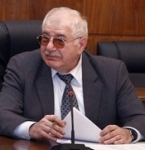 20.09.2011NEW STATEHOOD AND NEW CHALLENGES
20.09.2011NEW STATEHOOD AND NEW CHALLENGES
Gagik Harutyunyan
Geopolitical shifts at the beginning of the 20th century (World War I, revolution of 1917, collapse of the Russian and Ottoman Empires) turned out to be ordeal for Armenia – the Genocide and loss of the Western Armenia.
 19.09.2011MOBILE CIVIL JOURNALISM: OPPORTUNITIES AND PROBLEMS
19.09.2011MOBILE CIVIL JOURNALISM: OPPORTUNITIES AND PROBLEMS
Samvel Martirosyan
A parallel development of social media and mobile technologies caused serious changes in the information field.
15.09.2011FORECASTS ON TURKEY’S FUTURE
Arestakes Simavoryan
Great Russian writer and thinker Fyodor Dostoevsky going into the heart of the Eastern issue wrote in his diaries: “Once, not long ago, strange thing appeared in the foreign press; in ardent, almost fantastic way they were imagining what would happen with the whole world if Turkey is fully annihilated and put back to Asia”.
 14.09.2011JEAN BAUDRILLARD - THE SPIRIT OF TERRORISM
14.09.2011JEAN BAUDRILLARD - THE SPIRIT OF TERRORISM
We have had many global events from Diana's death to the World Cup, or even violent and real events from wars to genocides.
08.09.2011TURKEY CAN RUN, BUT CAN’T HIDE FROM THE LONG ARM OF US LAW
By Harut Sassounian
World heavyweight boxing champion Joe Louis once warned one of his opponents: "You can run, but you can’t hide." This same warning now applies to the Turkish government and two of its major banks.
05.09.2011ARMENIA AT THE INTERSECTION OF THE INTERESTS OF THE MILITARY AND POLITICAL BLOCKS
Sergey Sargsyan
The declaration of the intentions to intensify the works on NATO’s renovated Individual Partnership Action Plan (IPAP) sounded during the visit of a new NATO Secretary General’s Special Representative for the Caucasus and Central Asia James Appathurai made against the background of carrying over the announced CSTO Collective Rapid Reaction Forces’ maneuvers in Armenia on 2012...
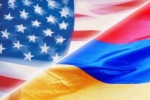 01.09.2011THE DYNAMICS AND TENDENCY OF THE RELATIONS BETWEEN THE REPUBLIC OF ARMENIA AND THE US: CONCEPTUAL ANALYSIS
01.09.2011THE DYNAMICS AND TENDENCY OF THE RELATIONS BETWEEN THE REPUBLIC OF ARMENIA AND THE US: CONCEPTUAL ANALYSIS
Sergey Minasyan
Foreign-policy relations with the key actors of the global politics constantly demand conceptual reconsideration and adjustment depending on the emerging regional conjuncture and global processes.
31.08.2011ERDOGAN INADVERTENTLY PUBLICIZES ARMENIAN TERRITORIAL CLAIMS FROM TURKEY
By Harut Sassounian
Turkish Prime Minister Recep Erdogan's hysterical outburst at Armenia’s President last week had the salutary effect of publicizing to a worldwide audience Armenian territorial demands from Turkey!
 28.07.2011DEVELOPMENTS AMONG THE ASSIMILATED ARMENIANS IN TURKEY: DYARBAKIR
28.07.2011DEVELOPMENTS AMONG THE ASSIMILATED ARMENIANS IN TURKEY: DYARBAKIR
Ruben Melkonyan
The city of Dyarbakir, where many Armenians used to live, today also plays rather remarkable role in Turkey in the context of the development of the ethnic identity.
27.07.2011CONGRESSIONAL PANEL URGES TURKEY TO RETURN CHURCH PROPERTIES TO CHRISTIANS
By Harut Sassounian
The House Foreign Affairs Committee adopted a strongly-worded measure on July 20, pressing Turkey to return all Christian church properties "to their rightful owners."
 25.07.2011“ARAB SPRING” AND RUSSIA
25.07.2011“ARAB SPRING” AND RUSSIA
Artashes Ter-Harutyunyan
The American and European expert circles has already began presenting their first general analyses of what the “Arab spring” gave to the West and to what extent the current dynamics is in tune with the strategic interests of the American and European powers.
 21.07.2011POLITICAL PROCESSES IN IRAN: IDEOLOGICAL STRUGGLE
21.07.2011POLITICAL PROCESSES IN IRAN: IDEOLOGICAL STRUGGLE
Sevak Sarukhanyan
Though the speculations about possible revolution in Iran stirred up after the 2009 presidential elections and Arab revolutions, over the recent 6 years really revolutionary changes has taken place in the domestic political and public life in the Islamic Republic of Iran.
14.07.2011WASHINGTON POST’S VIEW OF ARTSAKH
In a series of articles in the Washington Post, reporter Will Englund puts the Karabakh conflict into perspective.
 11.07.2011NAGORNO-KARABAKH BALANCES BETWEEN PEACE AND WAR
11.07.2011NAGORNO-KARABAKH BALANCES BETWEEN PEACE AND WAR
By Haykaram Nahapetyan
Despite an agreement among the U.S., Russian and French presidents at the G-8 summit in Deauville, France, that it is time for a peaceful settlement to the conflict over Nagorno-Karabakh, Armenian President Serzh Sargsyan and Azerbaijani President Ilham Aliyev failed to make much progress when they met in Kazan, Russia, last week.
 07.07.2011THE MODERN ISSUES OF THE CIRCASSIANS IN TURKEY
07.07.2011THE MODERN ISSUES OF THE CIRCASSIANS IN TURKEY
Ruben Melkonyan
The Ottoman Empire was multi-national and multi-ethnic state where, however, non-Turk nations were obliged to renounce their identity and to Turkishize.
30.06.2011NEW SITUATION IN THE MIDDLE EAST
Artashes Ter-Harutyunyan
At the end of May the Minister of Defence of Israel Ehud Barak made a statement which drew the attention of the experts dealing with the Middles East issues at once.
27.06.2011POLITICAL PROCESSES IN IRAN
Sevak Sarukhanyan
When on May 1 the president of Iran returned to work after a 10-days break and made a statement that the state bodies must follow the guidelines of the spiritual authorities, there was an impression that the president of Iran smoothed the contradictions with the spiritual class of Iran and that the political crisis in Iran was gradually being settled.
 23.06.2011THE POLITICAL IMPLICATION OF THE TURKISH-GEORGIAN “CULTURAL” DIALOGUE
23.06.2011THE POLITICAL IMPLICATION OF THE TURKISH-GEORGIAN “CULTURAL” DIALOGUE
Tamara Vardanyan
Recently the issue of poor condition of the cultural monuments on the territory of Turkey and Georgia and the necessity of their restoration has stirred up.
21.06.2011WHY PASS AN ARMENIAN GENOCIDE RESOLUTION FOR THE THIRD TIME?
By Harut Sassounian
A new Armenian Genocide resolution is being introduced in the House of Representatives this week. The first question is why Congress is being asked to pass a genocide resolution for the third time?
 20.06.2011ON THE MODERN TENDENCIES IN THE “ARMENIAN POLICY” OF TURKEY
20.06.2011ON THE MODERN TENDENCIES IN THE “ARMENIAN POLICY” OF TURKEY
Ruben Melkonyan
Turkish political machinery periodically adjusts its “Armenian policy” but its essence still remains the same. The ongoing developments come to prove that Turkey tries to use in regard to Armenia and Armeniacy new tactical methods.
16.06.2011DEVELOPMENTS IN THE MIDDLE EAST AND KURDS
Artashes Ter-Harutyunyan
The Arab revolutions and developments conditioned by them sidelined a number of factors which have played an important role in the Middle East politics.
 13.06.2011DEVELOPMENTS IN IRAN
13.06.2011DEVELOPMENTS IN IRAN
Sevak Sarukhanyan
The domestic developments in Iran have essentially stirred up. The contradictions between spiritual leader of the country Ali Khamenei and the president Mahmoud Ahmadinejad became apparent for the public.
 09.06.2011ON THE ISSUES OF THE CATHOLICS ARMENIAN
09.06.2011ON THE ISSUES OF THE CATHOLICS ARMENIAN
Arestakes Simavoryan
For decades the developments which has taken place in the life of the Armenians in Turkey has also impacted the Catholic Armenian community in Turkey.
 06.06.2011“FROZEN CONFLICT” BETWEEN AZERBAIJAN AND ARMENIA BEGINS TO BOIL
06.06.2011“FROZEN CONFLICT” BETWEEN AZERBAIJAN AND ARMENIA BEGINS TO BOIL
By Ellen Barry
BAKU, Azerbaijan — In a mostly empty Soviet-era building here on a recent morning, a 29-year-old woman pressed her eye against the scope of a sniper rifle, brown hair spilling over her shoulder, and took aim at virtual commandos darting between virtual trees.
 02.06.2011CALIFORNIA TO EXTEND UNTIL 2016 DEADLINE TO SUE INSURANCE COMPANIES
02.06.2011CALIFORNIA TO EXTEND UNTIL 2016 DEADLINE TO SUE INSURANCE COMPANIES
By Harut Sassounian
Eleven years ago, the California Legislature extended until the end of 2010, the deadline for filing lawsuits against insurance companies that had failed to pay benefits to heirs of Armenian Genocide victims.
 27.05.2011ANALYTICAL CENTERS IN AZERBAIJAN
27.05.2011ANALYTICAL CENTERS IN AZERBAIJAN
Diana Galstyan, Varujean Geghamyan
In developed countries the so-called Think Tanks (TT) play important role in making decisions on state and social levels.
26.05.2011COUNCIL OF EUROPE NOT DECEIVED BY ERDOGAN’S DOUBLE-TALK
By Harut Sassounian
Turkish Prime Minister Recep Tayyip Erdogan made an embarrassing appearance before the Parliamentary Assembly of the Council of Europe (PACE) last month. Erdogan was invited to the podium after lavish praise by Mevlut Cavusoglu...
 23.05.2011CONTENT ANALYSIS AS A METHODOLOGY OF THE STUDY OF MEDIA-TEXTS
23.05.2011CONTENT ANALYSIS AS A METHODOLOGY OF THE STUDY OF MEDIA-TEXTS
Anna Zhamakochyan
The way of expression of thoughts (ideas) usually has a kind of settled characteristic which on the one hand characterizes the author or source and on the other hand it becomes his style.
 18.05.2011REFLECTING THE EVENTS OF THE AFRICAN CONTINENT IN THE MIRROR OF THE GREAT GAME
18.05.2011REFLECTING THE EVENTS OF THE AFRICAN CONTINENT IN THE MIRROR OF THE GREAT GAME
Sergey Grinyaev, Gagik Harutyunyan
The beginning of 2010 was marked by an onset of a series of powerful transformational processes on the African continent. The majority of the “civilized world” re-discovered Africa after the 2010 FIFA World Cup in Johannesburg, which attracted not only tourists...
 16.05.2011RUSSIAN-ARMENIAN COOPERATION AND TURKISH FACTOR
16.05.2011RUSSIAN-ARMENIAN COOPERATION AND TURKISH FACTOR
Gagik Harutyunyan
Armenian-Russian cooperation (which has stirred up after the meeting of the presidents S. Sargsyan and D. Medvedev in August 2010) has several strategic planes.
 12.05.2011IRAN, SHIITE FACTOR AND DEVELOPMENTS IN THE ARAB WORLD
12.05.2011IRAN, SHIITE FACTOR AND DEVELOPMENTS IN THE ARAB WORLD
Sevak Sarukhanyan
The revolutionary movement which has been initiated in the Arab world has no tendency to subside; this, in its turn, has stirred up the struggle between regional and international powers, In particular, for Iran those processes has special significance...
 10.05.2011SOCIAL NETWORKS IN THE ARMENIAN SEGMENT OF THE INTERNET
10.05.2011SOCIAL NETWORKS IN THE ARMENIAN SEGMENT OF THE INTERNET
Samvel Martirosyan
The Armenian social networks has recently had greater impact on the formation of the information fields on the Internet and not only. Alongside with the growth of the number of the social network users in the republic the influence of the social networks also increases.
10.05.2011SARKOZY JOINS OBAMA IN DECEIT: NEITHER SHOULD BE REELECTED IN 2012
By Harut Sassounian
Armenians in France and the United States have a common challenge in 2012: To do everything in their power to block reelection of their deceptive presidents. Neither Nicolas Sarkozy nor Barack Obama kept their promises to their respective Armenian constituents.
 06.05.2011UNREST AROUND THE ARAB WORLD ENDANGERS TURKEY’S NEWFOUND INFLUENCE
06.05.2011UNREST AROUND THE ARAB WORLD ENDANGERS TURKEY’S NEWFOUND INFLUENCE
By Anthony Shadid
Turkey faces a growing challenge from the tumult sweeping the Arab world to its booming economic stake in the region, newfound political influence and longstanding policy of permitting no problems to fester along its borders.
05.05.2011FOX-TV AIRS TWO INTERVIEWS ON THE ARMENIAN GENOCIDE
FOX-TV (Los Angeles) invited this writer for a live in-studio interview on the Armenian Genocide for two consecutive days. The first, lasting 5 minutes, took place on April 24, during the TV station’s evening news program. The second, lasting over 6 minutes, took place on April 25, during the Good Day LA Show. Below are excerpts from both interviews:
 02.05.2011ON FORECASTS
02.05.2011ON FORECASTS
Gagik Terteryan
The efficient activity of our political elite assumes adequate expert service. In particular, political leadership must have an opportunity to receive from the expert community the elaborations concerning:
 28.04.2011CRISIS IN LIBYA AND REGIONAL DIPLOMACY OF TURKEY
28.04.2011CRISIS IN LIBYA AND REGIONAL DIPLOMACY OF TURKEY
Artashes Ter-Harutyunyan
On April 8 the prime-minister of Turkey Recep Tayip Erdogan stated that his country is elaborating the programme on cessation of the hostilities in Libya...
 28.04.2011TURKEY SPENDS FREELY AGAIN, AND SOME ANALYSTS WORRY
28.04.2011TURKEY SPENDS FREELY AGAIN, AND SOME ANALYSTS WORRY
By LANDON THOMAS Jr.
Is Turkey’s booming economy ripe for a fall? It certainly looks that way. Stock brokers endure four-month waiting lists to pay as much as $150,000 for top-of-the-line Audis and BMWs — twice the manufacturers’ prices after taxes.
 21.04.2011ARMENIAN PROTESTANT COMMUNITIES IN SOUTH AMERICA
21.04.2011ARMENIAN PROTESTANT COMMUNITIES IN SOUTH AMERICA
Tigran Ghanalanyan
Today alongside with the Armenian Apostolic and Catholic communities, the Armenian Protestant community exists in South America. In particular, there are the Armenian Protestant communities in Argentina, Brazil and Uruguay which are the integral part of the local Armeniancy.
20.04.2011SERJ TANKIAN TO JOIN L.A. ARMENIANS TO PROTEST AGAINST OBAMA ON APRIL 21
By Harut Sassounian
Armenian-Americans are offended that Pres. Obama is going to launch his reelection campaign in Los Angeles this week, on the eve of April 24, having failed to honor his solemn promise to acknowledge the Armenian Genocide.
 18.04.2011NATO'S LAST MISSION? The military crisis in Libya highlights an existential crisis for NATO
18.04.2011NATO'S LAST MISSION? The military crisis in Libya highlights an existential crisis for NATO
By Fred Kaplan
Cries of alarm ring out from Italy, Qatar, Great Britain, and France that the NATO allies aren't doing enough to help the Libyan rebels stave off Muammar Qaddafi's troops and mercenaries.
 18.04.2011ON TURKISH POLICY OF NEO-OTTOMANISM AND DEVELOPMENTS IN THE ARAB WORLD
18.04.2011ON TURKISH POLICY OF NEO-OTTOMANISM AND DEVELOPMENTS IN THE ARAB WORLD
Ruben Melkonyan
Back in 2001 the current Minister of Foreign Affairs of Turkey Ahmed Davutoglu while analyzing regional and geopolitical interests and priorities of Turkey in “Strategic depth: Turkey’s International Position” published back in 2001, put forward a number of theoretical assessments and proposals.
 14.04.2011ARMENIANS OF TBILISI: NEW REALITIES
14.04.2011ARMENIANS OF TBILISI: NEW REALITIES
Tamara Vardanyan
The efforts of the current Georgian authorities directed to the nation building, gradually form new realities at once on three levels; firstly on regional level, secondly, for Georgia itself in its aspirations and prospects of turning into an nation state ...
13.04.2011THE WORLD IN 2050
In March 2006 we produced a report setting out projections for potential growth in GDP in 17 leading economies over the period to 2050. These projections were updated in March 2008 and we are now revisiting them again in the aftermath of the global financial crisis, extended now to cover all G20 economies.
 07.04.2011BIGGEST MARKET RISK: MIDDLE EAST TURMOIL
07.04.2011BIGGEST MARKET RISK: MIDDLE EAST TURMOIL
By Hibah Yousuf
No one saw it coming. As champagne corks popped and confetti swirled to usher in 2011, most experts pointed to Europe's ongoing sovereign debt crisis as the market's biggest hurdle this year.
 07.04.2011REVOLUTIONARY MOVEMENTS IN ARAB WORLD AND ACCOMPANYING INFORMATION FLOWS
07.04.2011REVOLUTIONARY MOVEMENTS IN ARAB WORLD AND ACCOMPANYING INFORMATION FLOWS
Samvel Martirosyan
The processes in the Arab world are accompanied by large-scale, global information flows in which not only the larges world mass media are involved but also huge masses of social networks’ users which try to participate in the informational and propaganda confrontation.
 04.04.2011DOMESTIC POLITICAL DEVELOPMENTS IN IRAN
04.04.2011DOMESTIC POLITICAL DEVELOPMENTS IN IRAN
Sevak Sarukhanyan
The Iranian opposition keeps expanding anti-governmental activity conditioned by the upcoming parliamentary elections in 2012 against the background of the developments in the Arab world.
29.03.2011ARMENIAN PROTESTANT COMMUNITY IN GEORGIA
Tigran Ghanalanyan
The study of the Armenian Protestant community is distinguished in the context of study of both the issues of the Armenians in Georgia and Protestant (Evangelical) Armenians in general.
 29.03.2011NOTICE
29.03.2011NOTICE
The 1st issue of “Strategy of development” («Стратегии развития») magazine for 2011 was published. The special edition is fully devoted to the material of “The Role of Russia in the South Caucasus” conference, held in Moscow on October 21st, 2010, on the initiative of the Regional Public Movement for the Promotion of the Russian-Armenian relations (president – Mher Simonyan).
 25.03.2011ARMENIA-EGYPT: ARMENOLOGICAL BRIDGE
25.03.2011ARMENIA-EGYPT: ARMENOLOGICAL BRIDGE
Eduard L. Danielyan
Armenology (“studying of the materials about the Armenian reality... as a theory about academic knowledge revealed in various fields, and peculiarities characteristic to Armenian reality, researched by appropriate disciplines with their own distinctive methods”)...
 21.03.2011ON DILETTANTISM, PATRIOTISM AND GAS PRICES IN ARMENIA AND EUROPE
21.03.2011ON DILETTANTISM, PATRIOTISM AND GAS PRICES IN ARMENIA AND EUROPE
Sevak Sarukhanyan
On February 16 Armenian “Zhamanak” daily issued an article by a certain Hrayr Manukyan on, in his opinion, shameful situation with gas prices in Armenia. In the article it is particularly mentioned that in 17 European countries chosen on random gas is 11 times cheaper than in Armenia.
 17.03.2011INFORMATION POLICY OF THE AZERBAIJANI ARMENIAN-LANGUAGE TV CHANNELS
17.03.2011INFORMATION POLICY OF THE AZERBAIJANI ARMENIAN-LANGUAGE TV CHANNELS
Anna Zhamakochyan, Diana Galstyan
Since October 2009 Azerbaijani propaganda obtained new mechanism by opening ATV International (ATV-INT) satellite TV channel which is broadcasting in four languages (Russian, Armenian, Iranian and English).
 10.03.2011THE WEB TURNS INTO THE MAIN SOURCE OF INFORMATION
10.03.2011THE WEB TURNS INTO THE MAIN SOURCE OF INFORMATION
Samvel Martirosyan
The Internet wins position on the information field in the world with an incredible pace. Printed media lose their grounds as a source of information and now television follows their example of losing the role of the main informer.
 03.03.2011ON FORECASTS
03.03.2011ON FORECASTS
Gagik Harutyunyan
One of the prior purposes of the states and national formations is the comprehensive evaluation of the current situation and formation of definite ideas about future developments. Currently forecasts and scenarios, which has become an important component of the political culture, are in requisition in the leading countries
01.03.2011ISTANBUL ARMENIANS DOCUMENT VIOLATIONS OF MINORITY RIGHTS IN TURKEY
By Harut Sassounian
Two recent documents from Istanbul shed new light on violations of minority rights in Turkey. The authors of these reports make cautious, yet accurate assessments of the problems facing the Armenian, Greek and Jewish communities.
 28.02.2011ARMENIAN VARTO CLAN IN EUROPE
28.02.2011ARMENIAN VARTO CLAN IN EUROPE
During the Armenian Genocide a large Armenian clan, which was called Varto, after its leader Vardan and which inhabited Sirnak province, managed to escape the massacres and to shelter in mountains. After that this group of survived Armenians, isolating themselves from the rest of the world, began their struggle for survival which had lasted for several decades.
28.02.2011THREE QUESTIONS TURKEY’S AMBASSADOR WOULD NOT ANSWER...
By Harut Sassounian
Turkey’s Ambassador to the United States, Namik Tan, spoke at the University of Southern California’s Center on Public Diplomacy on February 16. His topic was: "Public Diplomacy: The Turkish Experience."
 24.02.2011CONGRATULATIONS
24.02.2011CONGRATULATIONS
On 16.02.2011 the meeting of the RA Minister of Defence Seiran Ohanyan with the cultural and academic workers involved in “The Pages of History and Culture” program took place.
 24.02.2011FUTURE OF THE MUSLIM POPULATION ON THE PLANET
24.02.2011FUTURE OF THE MUSLIM POPULATION ON THE PLANET
Artashes Ter-Harutyunyan
In January 2011 American Pew Research Center issued “The Future of the Global Muslim Population” research. The research covers period from 1990 to 2030 and it regards to all the states and territories in the world. The main conclusion is that over those 40 years the number of the Muslims will double, rising from 1.1 billion (1990) to 2.2 billion (2030).
 21.02.2011IRAN AND POLITICAL CRISIS IN EGYPT
21.02.2011IRAN AND POLITICAL CRISIS IN EGYPT
Sevak Sarukhanyan
The events which took place in Tunisia and especially in Egypt are significant for Iran. This may seriously change political situation and developments in Arab world, thus either endangering or strengthening regional and international positions of Iran.
 18.02.2011POSITIVE AND NEGATIVE ASPECTS OF THE NAGORNO-KARABAKH CONFLICT SETTLEMENT ROADMAP AT CURRENT STAGE
18.02.2011POSITIVE AND NEGATIVE ASPECTS OF THE NAGORNO-KARABAKH CONFLICT SETTLEMENT ROADMAP AT CURRENT STAGE
Mikhail Aghajanyan
The process of the Nagorno-Karabakh settlement has recently shown some kind of stalling and absence of any significant dynamics of positive development. Such a tendency has been boldly outlined after the well-known meeting of three presidents in Sochi on January 25, 2010.
 14.02.2011«АСИММЕТРИЧНЫЕ УГРОЗЫ И КОНФЛИКТЫ НИЗКОЙ ИНТЕНСИВНОСТИ» (“Asymmetric Threats and Conflicts of Low Intensity” (in Russian))
14.02.2011«АСИММЕТРИЧНЫЕ УГРОЗЫ И КОНФЛИКТЫ НИЗКОЙ ИНТЕНСИВНОСТИ» (“Asymmetric Threats and Conflicts of Low Intensity” (in Russian))
The 9th issue of the Russian information and analytical magazine “Asymmetric Threats and Conflicts of Low Intensity” (in Russian) for 2010 was published. The founder of the magazine is the Center for the Analysis of Terroristic Threats.
 14.02.2011POSSIBILITIES OF INTERNATIONAL PEACEKEEPING IN NAGORNO-KARABAKH CONFLICT: MYTHS AND REALITIES
14.02.2011POSSIBILITIES OF INTERNATIONAL PEACEKEEPING IN NAGORNO-KARABAKH CONFLICT: MYTHS AND REALITIES
Sergei Minasyan
The Nagorno-Karabakh conflict is the only ethno-political conflict on the post-Soviet space where the stability and relative armistice on the frontline after the cease-fire has been preserved without any external assistance and peace-keeping contingents of the third parties or international organizations.
 08.02.2011SHALE GAS GHOST
08.02.2011SHALE GAS GHOST
Sergei Sargsyan
Unexpectedly for many, in 2008 the United States sharply revved up production of natural gas – on 7.5% or 41.7 billion m3, and left behind Russia which produced “only” 582 billion m3. Such a success was acquired by the US at the expense of shale gas production - gas in the shale stratum:
 03.02.2011IRAN IN 2011: POSSIBLE DEVELOPMENTS
03.02.2011IRAN IN 2011: POSSIBLE DEVELOPMENTS
Sevak Sarukhanyan
2011 will be important from the point of view of the social-economic and political development of Iran, as well as in the aspect of nuclear programme and foreign and domestic political developments.
 31.01.2011TURKEY: ROUND THE ISSUE OF ETHNIC IDENTITY
31.01.2011TURKEY: ROUND THE ISSUE OF ETHNIC IDENTITY
Ruben Melkonyan
The issue of the ethnic identity in Turkey takes an significant place not only in the public discussions but it is also gradually acquires more important place on the political agenda. In July 2010 oppositional Kurdish Peace and Democracy party made a proposal in the Great National Assembly of Turkey which aroused violent reaction in the Turkish political field.
 27.01.2011GERMAN INSURANCE COMPANIES SHOULD STOP CHEATING THEIR ARMENIAN CLIENTS
27.01.2011GERMAN INSURANCE COMPANIES SHOULD STOP CHEATING THEIR ARMENIAN CLIENTS
By Harut Sassounian
German firms filed a petition for a rehearing by the full 9th Circuit Court of Appeals, after a panel of three judges of that court had ruled that heirs of Armenian Genocide victims could seek payment from life insurance companies operating in the Ottoman Empire.
 25.01.2011SOUTHERN SUDAN: NEW STATE IN THE WORLD
25.01.2011SOUTHERN SUDAN: NEW STATE IN THE WORLD
Artashes Ter-Harutyunyan
Though the results of the referendum hold on January 9-15 in Southern Sudan will be published on February 6-14, today one can already speak about those results. The fact that the referendum was hold is much more important, because there is no doubt that the majority of the participants of the referendum voted for the independence of Southern Sudan.
 20.01.2011ARMENIAN EVANGELICAL COMMUNITY IN EGYPT
20.01.2011ARMENIAN EVANGELICAL COMMUNITY IN EGYPT
Vahram Hovyan
The Armenian Evangelicals occupy special position in the Armenian community of Egypt – one of the key states in the Middle East. Despite smallness the Armenian Evangelical community in Egypt leads rather active life, which attracts attention of both expert community and academic circles.
19.01.2011TURKISH PRIME MINISTER SHOOTS HIMSELF IN THE FOOT AGAIN
By Harut Sassounian
Prime Minister Erdogan embarrasses himself and his government just about every time he opens his mouth! His angry statements, often bewildering and insulting, give Turkey a black eye internationally and provide fresh ammunition to his domestic opponents.
 17.01.2011ON THE CYBER-SECURITY
17.01.2011ON THE CYBER-SECURITY
Artashes Ter-Harutyunyan
In November 2010 new NATO Strategic Concept was adopted at the Lisbon summit. Paragraph 12 reads: “Cyber attacks are becoming more frequent, more organized and more costly in the damage that they inflict on government administrations, businesses, economies and potentially also transportation and supply networks and other critical infrastructure; they can reach a threshold that threatens national and Euro-Atlantic prosperity, security and stability.
 10.01.2011ARMENIAN COMMUNITY IS STILL WAITING TO HEAR FROM CONGRESS
10.01.2011ARMENIAN COMMUNITY IS STILL WAITING TO HEAR FROM CONGRESS
By Haykaram Nahapetyan
The “lame-ducking” Congress did not vote on H-Res 252 recognizing the period of systematic massacres of the Armenian people during the WW1 as genocide. On March 4th, it passed House Foreign Affairs Committee with 23 to 22 votes but speaker Nancy Pelosi did not bring the Armenian Genocide Resolution to the floor agenda, despite her initial pledge.
 27.12.2010“THE NUMBER OF THE RECLAIMED ARMENIANS GROWS”
27.12.2010“THE NUMBER OF THE RECLAIMED ARMENIANS GROWS”
Among the various processes taking place in today’s Turkey the processes round the ethnic issues occupy rather unique and important place. In this very context the reconversion (reconversion to Christianity) and such a phenomenon as reclaiming the roots should be considered.
 24.12.2010ARMENIAN CATHOLIC COMMUNITY IN RUSSIA
24.12.2010ARMENIAN CATHOLIC COMMUNITY IN RUSSIA
Arestakes Simavoryan
Records of the Catholic Armenians in Russia refer to the 18th century. Today on the territory of Russia Armenians are represented by three main confessions – Catholics, Protestants (Evangelicals) and adherents of the Armenian Apostolic Church. But in some regions there are Orthodox Armenians and in recent years there are also Lutheran Armenians.
23.12.2010ARMENIANS SUE TURKEY CLAIMING U.S. AIR BASE LAND
By Harut Sassounian
Over the years, Armenians have gradually shifted their attention from the recognition of the Genocide to the pursuit of legal remedies for their massive losses suffered between 1915 and 1923. Several lawsuits have been filed recently in U.S. Federal Courts against Western insurance companies and banks.
 22.12.2010ARMENIANS DENOUNCE KOBE BRYANT DEAL WITH TURKISH AIRLINES
22.12.2010ARMENIANS DENOUNCE KOBE BRYANT DEAL WITH TURKISH AIRLINES
By Ivan Watson
The business deal looked fairly straightforward. Last week, American basketball star Kobe Bryant agreed to become the new celebrity face of Turkish Airlines, a growing international carrier. Though he has admitted to never having visited Turkey, the Los Angeles Lakers guard said in a news release that "Turkey is a country rich in natural beauty and thousands of years of cultural history, and I'm proud to partner with Turkish Airlines to bring that majesty to people around the world."
21.12.2010RUSSIA-TUKREY RELATIONS IN THE SPOTLIGHT OF THE US AND UN
Mikhail Aghajanyan
Recent stirring up of Russian leadership in the European direction of the foreign policy course cannot be considered in the exclusively positive vein for the relations between Russia and European countries. Preserving, and according to some Russian experts, even intensification of vigilance of the Europeans in regard to Russia is conditioned greatly by rather important for us side component of relations of Moscow with the Euro-Atlantic countries – i.e. development of Russian-Turkish relations.
 21.12.2010J. M. HAGOPIAN, WHO TOLD OF GENOCIDE, DIES AT 97
21.12.2010J. M. HAGOPIAN, WHO TOLD OF GENOCIDE, DIES AT 97
By Dennis Hevesi
J. Michael Hagopian, a survivor of the Armenian genocide who came to the United States from Turkey after World War I, studied filmmaking and made a series of documentaries based on interviews with hundreds of other survivors, died on Dec. 10 at his home in Thousand Oaks, Calif. He was 97.
 15.12.2010GAS FROM IRAQI KURDISTAN FOR NABUCCO: TURKISH INTEREST
15.12.2010GAS FROM IRAQI KURDISTAN FOR NABUCCO: TURKISH INTEREST
Sergei Sargsyan
In September 2009 Turkey’s Minister of Energy Taner Yildiz stated that Turkey and Iraq discussed possibilities of concluding memorandum on mutual understanding in the issue of the Iraqi gas supply to Europe through the territory of Turkey by the planned Nabucco gas pipeline
15.12.2010US COURT OF APPEALS HANDS A MAJOR VICTORY TO ARMENIANS
By Harut Sassounian
In a stunning development, a federal appeals court handed Armenian-Americans a major legal and political victory last week. It reversed its earlier ruling and decided that a California law extending the deadline for lawsuits against life insurance companies WAS constitutional, after all!
 09.12.2010DEVELOPMENTS IN IRAN AND ROUND IT
09.12.2010DEVELOPMENTS IN IRAN AND ROUND IT
Sevak Sarukhanyan
Developments which can be observed in the Russian-Iranian relations in the recent period create new international situation round the Islamic Republic of Iran and the main feature of that situation can be the final isolation of Iran. At the same time new changes in the social and economic sector can be observed in Iran, and those changes can undermine political stability of the country.
 06.12.2010CALIFORNIA OFFICIALS HONOR REPUBLIC OF ARTSAKH AND ITS PRESIDENT
06.12.2010CALIFORNIA OFFICIALS HONOR REPUBLIC OF ARTSAKH AND ITS PRESIDENT
By Harut Sassounian
Bako Sahakyan, President of the Republic of Artsakh (Nagorno Karabagh), just completed his third visit to Los Angeles. Unlike his previous two visits, he was received last week by prominent political figures as a Head of State, even though his country is not officially recognized by the international community.
05.12.2010RAND CORPORATION AND WE: ARMENIA-TURKEY RELATIONS
Ara Marjanyan
The recent developments directed to establishing Armenia-Turkey relations are arguably one of the most important factors (if not the single most important factor) shaping the future of our region.
 02.12.2010ALTERNATIVE AND TRADITIONAL MEDIA IN ARMENIA
02.12.2010ALTERNATIVE AND TRADITIONAL MEDIA IN ARMENIA
Samvel Martirosyan
Current development of the Internet brought on the one hand to competition between the alternative and traditional media and on the other hand to supplementing each other. Global experience of the recent years came to prove that the so-called civil journalism (which includes bloggers, the users of the social networks and other similar civil resources) in some situations appears to be more efficient than the traditional media.
 29.11.2010TURKEY-CHINA INTERRELATIONS
29.11.2010TURKEY-CHINA INTERRELATIONS
Artashes Ter-Harutyunyan
On November 8-14 joint Chinese-Turkish maneuvers of land forces took place. Though that was not large-scale maneuvers (the maneuvers were arranged on the level of special mission units in the mountain terrain and were directed to the elaboration of anti-terror actions), such an unprecedented military cooperation between Beijing and Ankara attracted the attention of the observers.
 25.11.2010ARMENIA-TURKEY: SOME TENDENCIES OF TURKISH POLICY
25.11.2010ARMENIA-TURKEY: SOME TENDENCIES OF TURKISH POLICY
Ruben Melkonyan
Breakdown of the Zurich protocols by Turkish authorities struck serious blow on the international image of that country. After that Turkish party initiated measures of imitational character which had to create an impression that the Armenian-Turkish process continued and that Turkey adhere to the commitments it undertook.
 23.11.2010INTERNET STRUCTURES IN THE CONTEXT OF POST-DEMOCRACY AND ISSUES OF INFORMATION SECURITY
23.11.2010INTERNET STRUCTURES IN THE CONTEXT OF POST-DEMOCRACY AND ISSUES OF INFORMATION SECURITY
Gagik Harutyunyan
Internet, which was initially created for the communication of the professionals, has become available to billions in just several decades (and according to other criteria of counting in incomplete 20 years), and there have been social structures of different load created in it. All this is another phase of permanent information revolution with all the ensuing consequences of positive and negative character.
 18.11.2010IRAN: OLD AND NEW ISSUES
18.11.2010IRAN: OLD AND NEW ISSUES
Sevak Sarukhanyan
On October 17 the president of Iran M. Ahmadinejad stated that Tehran is ready to resume negotiations on the nuclear issues with the “six nations”. This is Iran’s first statement since June 2010 when Tehran stated that it terminated negotiations with the “six” because of the illegal conduct of the later (here the sanctions imposed on Iran are meant). There are also claims set up in the statements made by the president on October 17, after the implementation of which Tehran will get back to talks:
 15.11.2010THE NUCLEAR DOMINO MYTH Dismantling Worst-Case Proliferation Scenarios
15.11.2010THE NUCLEAR DOMINO MYTH Dismantling Worst-Case Proliferation Scenarios
Johan Bergenas
When considering the dangers of an Iranian nuclear weapons program, those who differ on political ideology find rare common ground. According to nearly everyone, if Iran develops nuclear weapons, its neighbors will inevitably do so, too. Former U.S. Senator Sam Nunn (D-Ga.), for example, said earlier this year, "The governments of the world must understand what a threat it is if the Iranians get nuclear weapons...
 11.11.2010TURKEY AFTER THE CONSTITUTIONAL CHANGES
11.11.2010TURKEY AFTER THE CONSTITUTIONAL CHANGES
Artashes Ter-Harutyunyan
On September 12, the referendum on constitutional changes offered by the Justice and Development Party (JDP, Turk.; AKP) was held. Though two oppositional powers – Kemalist Republican People’s Party (RPP, Turk.: CHP) and Nationalist Movement Party (NMP, Turk.: MHP) – with, sometimes evident support of the army leadership, were against those changes, the teammates of the prime-minister Erdogan managed to hold the referendum successfully and win the majority of the votes.
 09.11.2010SAINT CROSS CHURCH ON AKHTAMAR AND THE ISSUES OF THE ARMENIAN IDENTITY
09.11.2010SAINT CROSS CHURCH ON AKHTAMAR AND THE ISSUES OF THE ARMENIAN IDENTITY
Ruben Melkonyan
Existing facts allow us to consider that various circumstances may serve as a stimulus for reclaiming Armenians living on the territory of Turkey and being on different stages of assimilation. In this aspect the Armenian-Turkish contacts observed in recent years, visits of Armenian tourists to Western Armenia, books on Armenian topics published in Turkey and other factors contribute to strengthening of significance of a true identity of the Islamized Armenians.
 04.11.2010MECHANISM OF PEACEKEEPING IN NAGORNO-KARABAKH CONFLICT: THEORY OF DETERRENCE UNDER THE ARMAMENTS RACE
04.11.2010MECHANISM OF PEACEKEEPING IN NAGORNO-KARABAKH CONFLICT: THEORY OF DETERRENCE UNDER THE ARMAMENTS RACE
Sergei Minasyan
The aim of the given work is to study the possibility of keeping long-term peace in the zone of Nagorno-Karabakh conflict in case when one of the parties to the conflict (Azerbaijan) hopes for the rearmament of its army and military revanche in an appropriate moment taking into consideration its financial resources...
 29.10.2010ARMENIAN ENERGY SECURITY AND ARMENIAN-RUSSIAN RELATIONS
29.10.2010ARMENIAN ENERGY SECURITY AND ARMENIAN-RUSSIAN RELATIONS
Sevak Sarukhanyan
The agreement on prolonging the term of deployment of Russian military base in Armenia took central place in the discussions during the August visit of the president of the RF to Armenia. But the agreements concerning the energy sector are of no less importance.
 27.10.2010AZERBAIJAN: SEARCHING NEW FOREIGN POLICY BALANCE
27.10.2010AZERBAIJAN: SEARCHING NEW FOREIGN POLICY BALANCE
Sergei Sargsyan
Before the war in South Ossetia the unsolved status of the issues of military and political character, which were faced by Azerbaijan and which were, first of all, connected with the ongoing Nagorno-Karabakh conflict (NKC), within the system of the existing balance of the geopolitical powers in the South Caucasus, was considered as a cause for some shift of the foreign political priorities.
 22.10.2010ARMENIAN PROTESTANT COMMUNITY IN IRAN
22.10.2010ARMENIAN PROTESTANT COMMUNITY IN IRAN
Vahram Hovyan
Among the Armenian Protestant communities in the Middle East Armenian Protestant community in Iran, which was formed in the middle of the 19th century, takes a special place. Iran is one of the countries in the Near East which was not a part of the Ottoman Empire. So, formation of the Armenian Protestant communities processed here, unlike other Near Eastern countries (Turkey, Syria, Lebanon), independently from the process of the formation of the Armenian Protestant communities in the Ottoman Empire.
 20.10.2010PECULIARITIES OF BILINGUAL EDUCATION FROM THE POINT OF VIEW OF THE NATIONAL IDENTITY
20.10.2010PECULIARITIES OF BILINGUAL EDUCATION FROM THE POINT OF VIEW OF THE NATIONAL IDENTITY
Tamara Vardanyan
The phenomenon of the multi-culturalism in pedagogic became a subject of investigation in the 60s of the 20th century, and in 1980s the theories and methods of multi-cultural education began to develop. The significance of the issue is connected with the fact that the constantly growing flow of emigrants from Asia and Africa causes the problems with integration in the host countries.
 14.10.2010SPECIFIC SITUATION OF THE AZERBAIJANI ANTI-ARMENIAN PROPAGANDA
14.10.2010SPECIFIC SITUATION OF THE AZERBAIJANI ANTI-ARMENIAN PROPAGANDA
Sona Manusyan
In recent period, after some delay, the specialists of informational influences from Armenia studied in detail the characteristics of the information policy of Azerbaijan; some counteractions have been elaborated. Though in the initial stage of this process there was a concern that the reaction to the increasing Azerbaijani propaganda is a bit belated, today one may state that the later is recognizable and predictable for both the specialists and variety of people.
 06.10.2010“ARMENIAN RESOURCES” in the USA
06.10.2010“ARMENIAN RESOURCES” in the USA
The US Armenian Studies centers have many peculiarities which are conditioned by various historical, geographic, political, social, cultural, educational factors. Today the Armenian community in the US faces many challenges. The most characteristic problems are the issues of preserving national identity, consolidation of the Armenian community, making it more powerful as a political factor and etc.
 30.09.2010ON HISTORY AND ACTUAL PROBLEMS OF ARMENIANS OF DERSIM
30.09.2010ON HISTORY AND ACTUAL PROBLEMS OF ARMENIANS OF DERSIM
Ruben Melkonyan
Dersim, which is currently on the territory of Turkey, in different periods took a special place for the Armenians, Zazas and Kurds who were established there. Due to its geographic position Dersim had been an asylum for the rebels and those who were persecuted for many times. There is a legend that in that very mountainous province a group of Armenians who had not adopted Christianity in 4th century sheltered.
 28.09.2010ON RUSSIAN-ARMENIAN RELATIONSHIP
28.09.2010ON RUSSIAN-ARMENIAN RELATIONSHIP
Gagik Ter-Harutyunyan
The August visit of the RF president D.Medvedev to Yerevan, during which a treaty on Russian military base was prolonged and got new content (it will also provide the security of the RA), draw a wide response in political circles. Alongside with the positive response, negative opinions can also be found, according to which this treaty not only contradicts to our national interests but it restricts the sovereignty of the RA. In this regard let’s try to present some expert considerations which will promote more complex perception of the issue.
 24.09.2010ARMENIAN EVANGELICAL COMMUNITY IN SYRIA
24.09.2010ARMENIAN EVANGELICAL COMMUNITY IN SYRIA
Vahram Hovyan
The Armenian Evangelical community of Syria is one of three confessional layers of the local Armeniancy, alongside with the Armenian Apostolic and Catholic communities. Taking into consideration organization and energies of the Armenian Evangelicals, it is necessary to pay attention to their activity.
 15.09.2010ARMENIAN PROTESTANT COMMUNITIES IN THE US AND CANADA
15.09.2010ARMENIAN PROTESTANT COMMUNITIES IN THE US AND CANADA
Tigran Ghanalanyan
For decades various Armenian Protestant Communities has been forming in the Diaspora. Among them Armenian Protestant communities in the US and Canada stands out. Those communities play an important role in the life of the Armeniancy in the US and Canada in general and in spiritual, educational and public spheres in particular.
15.09.2010SENATE SHOULD NOT CONFIRM BRYZA AS U.S. AMBASSADOR TO AZERBAIJAN
By Harut Sassounian
At the request of Sen. Barbara Boxer, the Senate Foreign Relations Committee had postponed from early August to mid-September its vote on Matt Bryza, nominee for U.S. Ambassador to Azerbaijan. Senators Boxer, Harry Reid, and Robert Menendez were satisfied neither with Bryza’s answers during the confirmation hearing nor subsequently with his written responses.
 06.09.2010CYBER TROOPS: NECESSITY DICTATED BY TIME
06.09.2010CYBER TROOPS: NECESSITY DICTATED BY TIME
Samvel Martirosyan
Cyber-terrorism and other cyber-threats to the modern state where information systems and communications take more and more dominant infrastructure role and become a serious strength test.
 03.09.2010IDEOLOGICAL TRENDS IN THE CONTEXT OF FOREIGN POLICY OF TURKEY
03.09.2010IDEOLOGICAL TRENDS IN THE CONTEXT OF FOREIGN POLICY OF TURKEY
Arestakes Simavoryan
There are various visions of Turkey’s future in the “camps” of influential Turkish parties and due to this the discussions round the multi-polar, contrary ideologies (neo-Ottomanism, neo-pan-Turkism, neo-Kemalism, Turkish Eurasianism) continue...
 02.09.2010CONGRESS SHOULD INVESTIGATE STATE DEPT. FOR HOLDING BACK AID TO ARTSAKH
02.09.2010CONGRESS SHOULD INVESTIGATE STATE DEPT. FOR HOLDING BACK AID TO ARTSAKH
By Harut Sassounian
The State Department has acted negligently and possibly in contempt of Congress by withholding assistance that it had expressly allocated to Nagorno Karabagh (Artsakh) during the past 12 years.
 30.08.2010ON TURKISH-AZERBAIJANI ACTIVATION IN THE US ANALYTICAL STRUCTURES
30.08.2010ON TURKISH-AZERBAIJANI ACTIVATION IN THE US ANALYTICAL STRUCTURES
Haykaram Nahapetyan
A significant role in elaboration of the state policy of the United States, shaping of the analytical and information fields is allotted to the analytical organizations – think tanks. The following analytical structures work in Washington: Carnegie endowment foundation, Brookings institute, Heritage foundation, John Hopkins university-SAIS, CSIS-Center for Strategic and International studies, Woodrow Wilson Center, Council of Foreign Relations, Atlantic Council and etc.
 30.07.2010DOES THE SOUTH CAUCASUS NEED RECALIBRATION OF GERMANY’S AND EU`S POLICY UPON THE PATTERN OF MR. MEISTER?
30.07.2010DOES THE SOUTH CAUCASUS NEED RECALIBRATION OF GERMANY’S AND EU`S POLICY UPON THE PATTERN OF MR. MEISTER?
Armen Martirosyan
Recently, on July 7th the German Council on Foreign Relations (DGAP) organized a discussion on the report presented by Mr. Stefan Meister, during which the author introduced the outlines of his study (Recalibrating Germany`s and EU`s policy in the South Caucasus). Several participants, including me, approached critically some of his assumptions and conclusions. However, later on, having read the full document, I felt myself compelled to present some comments in written form, which I do hope will contribute to more objective comprehension of the issues concerned.
 29.07.2010ON NKR AND REGIONAL ISSUES
29.07.2010ON NKR AND REGIONAL ISSUES
Gagik Harutyunyan
As it is known, right after the meeting of the presidents of Armenia, Azerbaijan and Russia on June 17 in St. Petersburg, I.Aliyev left Petersburg and on June 18 in the NKR Armenian side suffered losses after the subversive act of Azerbaijani forces. It is less known that this incident was followed by the equal actions of our armed forces. Any way, those events were received rather sharply in our society and they activated the discussion of various military scenarios.
 29.07.2010BRYZA WRONGLY TELLS SENATORS: ARMENIAN PATRIARCH IS DEAD
29.07.2010BRYZA WRONGLY TELLS SENATORS: ARMENIAN PATRIARCH IS DEAD
By Harut Sassounian
Barack Obama ran for the Presidency on a platform of "change" and promised to bring a fresh approach to domestic and foreign policy issues. After the election, however, he disappointed his supporters by continuing many of his predecessor’s policies.
 26.07.2010ARMENIAN EVANGELICAL COMMUNITY IN BULGARIA
26.07.2010ARMENIAN EVANGELICAL COMMUNITY IN BULGARIA
Vahram Hovyan
Taking into consideration that according to some viewpoints the Protestantism is the successor of Pavlikian and Tondrakian movements which were wide spread in Armenia in the Middle Ages and the followers of those movements were forcibly deported to Bulgaria in 8-9th centuries, one may say that Protestant Armenians settled in Bulgaria back in the Middle Ages. The teaching of Pavlikians had a great influence on the Bogomilian sect in Bulgaria which later on influenced Protestantism.
 23.07.2010THE GEORGIAN AUTHORITIES ARE AGGRAVATING THEIR POLICY OF VIOLATION OF THE JAVAKHETI ARMENIANS’ RIGHTS (Statement of Javakheti political activist Vahagn Chakhalyan)
23.07.2010THE GEORGIAN AUTHORITIES ARE AGGRAVATING THEIR POLICY OF VIOLATION OF THE JAVAKHETI ARMENIANS’ RIGHTS (Statement of Javakheti political activist Vahagn Chakhalyan)
On July 5, 2010 the Supreme Court of Georgia made a decision to leave the appeal on the verdict against my father‐ Ruben Chakhalyan, my younger brother‐ Armen Chakhalyan and me without hearing. Our sentences were once again upheld. The Supreme Court’s ruling was predictable and consistent with the decisions of the First Instance Court and the Appeals Court, as it humbly executed the order of the Georgian authorities, trampling on the basic norms of a fair trial.
 22.07.2010IRAN AND SANCTIONS
22.07.2010IRAN AND SANCTIONS
Sevak Sarukhanyan
On June 10 the UN Security Council passed a resolution 1929 on imposing new sanctions on Iran. 12 of 15 Security Council member countries voted for the resolution, Turkey and Brazil were against and Lebanon abstained. Despite the information background around the discussion of Iran’s issue in the Security Council, the resolution passed cannot be called stern.
 19.07.2010PROSPECTS ABOUND AMONG THE KURDS
19.07.2010PROSPECTS ABOUND AMONG THE KURDS
By SAM DAGHER
Shortly after leaving his job last year as the United States ambassador to the United Nations, Zalmay Khalilzad started negotiations with Iraqi Kurdish leaders to become a paid adviser.
His stint as adviser to the semiautonomous Kurdistan region’s board of investment lasted about seven months. In May Mr. Khalilzad, who also served as ambassador to Iraq, became a board member of RAK Petroleum, an oil and gas investment company based in the Persian Gulf Arab emirate of Ras al-Khaimah.
 15.07.2010ON CURRENT CONDITION OF THE ARMENIAN PATRIARCHATE IN ISTANBUL
15.07.2010ON CURRENT CONDITION OF THE ARMENIAN PATRIARCHATE IN ISTANBUL
Rouben Melkonyan
Over the last several months the election in the Patriarchate of Istanbul has been the matter on the agenda in the Armenian community in Istanbul. The point is that the incurable disease connected with the memory was found on Patriarch Mesrop Mutafian which made him incapable. According to the church rules the elected patriarch, despite different circumstances, bears the title lifelong and in case of a disease a co-patriarch, who has equal authority, is elected.
 08.07.2010RUSSIA AND SOME ASPECTS OF CURRENT DEVELOPMENT OF THE SITUATION IN THE BLACK SEA REGION
08.07.2010RUSSIA AND SOME ASPECTS OF CURRENT DEVELOPMENT OF THE SITUATION IN THE BLACK SEA REGION
Mikhail Aghajanyan
The development of the foreign political processes in the Black Sea region demonstrates the preservation of the confrontational relations between the main powers in the region. The well-known attempts of the countries which are not from that region, and firstly the US, to consolidate their positions in the region...
 01.07.2010DEVELOPMENTS ROUND THE NUCLEAR PROGRAMME OF IRAN
01.07.2010DEVELOPMENTS ROUND THE NUCLEAR PROGRAMME OF IRAN
Sevak Sarukhanyan
Iran and its nuclear programme continue to be in the spotlight of the international relations and mass media. On May 17 the presidents of Iran and Brazil and the prime-minister of Turkey came to an agreement on re-enrichment of the uranium, which is enriched by Iran, outside its territory. Despite this Tehran still faces the danger of imposing new sanctions on it.
 24.06.2010ALONG ARTSAKH’S PATHS OF WAR TO THE CHURCH OF THE PRAYER FOR PEACE
24.06.2010ALONG ARTSAKH’S PATHS OF WAR TO THE CHURCH OF THE PRAYER FOR PEACE
“The Chronicles of Karabakh” by writer, screenwriter and film director Boris Baratov is an illustrated book of huge cognitive, cultural and political significance. The deep love of the author for his homeland permeates the book, which is full of historical and contemporary facts, presented in chronological order and illustrated with documentary evidence.
 21.06.2010TWO ‘STREAMS’ FROM RUSSIA: BREAKING DOWN THE OLD GEOPOLITICAL STRUCTURES
21.06.2010TWO ‘STREAMS’ FROM RUSSIA: BREAKING DOWN THE OLD GEOPOLITICAL STRUCTURES
Sergey Sargsyan
The global financial crisis has given Russia the opportunity not only to significantly boots its energy operations in European countries, which still remain the main markets for its oil and gas, but also to raise its relationships with nations that produce these strategic raw materials to a new, realistically and economically sound level. Besides, the crisis has also enabled Moscow to strengthen its geopolitical interests in Central Asia and South Caucasus countries.
17.06.2010PROTESTANT ARMENIAN COMMUNITY IN TURKEY
Vahram Hovyan
Turkey is special for the Protestant Armenians because Protestantism was firstly spread among the Armenians there. In 1846 the first Protestant Armenian community was formed in Istanbul. From there Protestantism gradually was spread over many other regions of the Ottoman Empire inhabited by the Armenians, including Western Armenia, and after the Armenian Genocide over the Armenian communities in Diaspora.
 14.06.2010AMERICAN JEWISH COMMUNITY ENDS SUPPORT OF TURKISH INTERESTS ON HILL
14.06.2010AMERICAN JEWISH COMMUNITY ENDS SUPPORT OF TURKISH INTERESTS ON HILL
By Eli Lake
In October 2000, the government of Turkey had a problem. House Speaker J. Dennis Hastert had promised to bring a resolution commemorating the Armenian genocide to the floor for a vote, a move that Ankara said would be a slap in the face to a NATO ally.
 11.06.2010MICHAEL COREN ON TURKISH HYPOCRISY
11.06.2010MICHAEL COREN ON TURKISH HYPOCRISY
Celebrated Canadian TV show host, columnist, writer Michael Coren on Turkish hypocrisy.
 08.06.2010ISSUES OF NATIONAL IDENTITY PRESERVATION IN THE ARMENIAN DIASPORA: SOCIAL-PSYCHOLOGICAL PERSPECTIVE
08.06.2010ISSUES OF NATIONAL IDENTITY PRESERVATION IN THE ARMENIAN DIASPORA: SOCIAL-PSYCHOLOGICAL PERSPECTIVE
Sona Manusyan
Among the central problems of Diaspora communities and nations which have Diasporas, issues of the preservation of the identity take traditional place. In the context of globalization and transnational processes, alongside with the geopolitical, economic and cultural re-divisions, changes in the collective self-consciousness are taking place as well.
 04.06.2010MILITARY AND POLITICAL RISKS OF TRANSCASPIAN PROJECTS
04.06.2010MILITARY AND POLITICAL RISKS OF TRANSCASPIAN PROJECTS
Sergey Sargsyan
The judicial and legal issues regarding the state border and navigation in the Caspian Sea before the collapse of the USSR were solved in terms of two documents – the 1921 treaty between the Soviet Russia and Persia and the 1940 Treaty of the Trade and Navigation between the USSR and Iran.
 04.06.2010«ВИЗАНТИЙСКОЕ НАСЛЕДСТВО»
04.06.2010«ВИЗАНТИЙСКОЕ НАСЛЕДСТВО»
The 1-2 (19-20) issue of “Византийское наследство” magazine for 2010 was published. Editor-in-chief Robert Hakobyan. The issue feature following articles:
 01.06.2010SUPERFLUIDITY OF INFORMATION IN SOCIAL NETWORKS
01.06.2010SUPERFLUIDITY OF INFORMATION IN SOCIAL NETWORKS
Samvel Martirosyan
The appearance of the new technologies of the information spreading makes the possibility of the filtration more complicated not only for the common reader but also for the editor of the periodical who uses the alternative sources. And today the availability of the alternative information sources – blogs, social networks, microblogs – is the factor that the traditional mass media must take into consideration in their everyday work.
 27.05.2010ARMENIAN COMMUNITY IN ISTANBUL IN THE CONTEXT OF ARMENIAN-TURKISH RELATIONS
27.05.2010ARMENIAN COMMUNITY IN ISTANBUL IN THE CONTEXT OF ARMENIAN-TURKISH RELATIONS
Ruben Melkonyan
The Armenian community in Istanbul, which faces various problems today, plays a definite role in the Armenian-Turkish relations. The interest of the community in the normalization of the relations between Armenia and Turkey is natural but it is also obvious that Turkish authorities try to use the Armenians living in Turkey for their political purposes and especially when some unfavourable for Turkey processes are taking plays within the frameworks of the Armenian-Turkish relations or in the course of the international recognition of the Armenian Genocide.
 24.05.2010SOME MAIN ISSUES OF THE RELATIONS BETWEEN ARMENIA AND IRAN
24.05.2010SOME MAIN ISSUES OF THE RELATIONS BETWEEN ARMENIA AND IRAN
Sevak Sarukhanyan
Today the Islamic Republic of Iran goes through an important stage of development, which is characterized by consolidating Tehran’s positions in regional and international policy. The developments round nuclear programme of Iran show that the international community cannot stop Iran’s nuclear researches and development of the technologies which may bring to turning Iran into the nuclear state.
 21.05.2010STRATEGY OF DEVELOPMENT
21.05.2010STRATEGY OF DEVELOPMENT
Gagik Harutyunyan
The stirring up of the issue connected with Armenian-Turkish relations and the approximation of the centenary of the Armenian Genocide occasioned to take new view of the current problems of the Armeniancy, to turn to our political history and possible prospects. This tendency should be perceived positively because both among us and in the world the changes, which demand the elaboration of strategy adequate to the new realities, are taking place.
 17.05.2010THE GENERATIONS OF THE CONVERTED ARMENIANS IN EUROPE
17.05.2010THE GENERATIONS OF THE CONVERTED ARMENIANS IN EUROPE
Ruben Melkonyan
While studying the issue of the forcedly Islamized Armenians and their generations new and interesting details about their geographic spread are emerging. Particularly, the issue of generations of the Islamized Armenians living in Europe at present is interesting and peculiar at the same time. It is known that there is scanty information about the current condition of the converted Armenians and if over the recent period some data about the Islamized Armenians in Turkey emerged, there is too little material about those living in Europe.
 13.05.2010TURKISH SCHOLAR TANER AKCAM ADVOCATES CHANGE IN POLICY OF GENOCIDE DENIAL
13.05.2010TURKISH SCHOLAR TANER AKCAM ADVOCATES CHANGE IN POLICY OF GENOCIDE DENIAL
By Harut Sassounian
Dr. Taner Akcam, one of the first Turkish scholars to acknowledge the Armenian Genocide, delivered two important lectures in Southern California last week. Based on historical research, he analyzed the underpinnings of Turkey’s denial of the Armenian Genocide and proposed solutions for its official acknowledgment.
 06.05.2010THIRD PARTY IN UNOFFICIAL DIPLOMACY
06.05.2010THIRD PARTY IN UNOFFICIAL DIPLOMACY
Arshaluys Mushkambaryan
Conflicts became one of the key points in the field of international bilateral, regional and inter-regional relations, global power structures, and the major ideological battles of the 20-21 century. The approaches to the conflict analysis have been changed a lot during the recent years.
 06.05.2010THE WASHINGTON CENTRE FOR AZERBAIJAN STUDIES HAS BEEN SET UP AS AN INDEPENDENT, BIPARTISAN ORGANIZATION
06.05.2010THE WASHINGTON CENTRE FOR AZERBAIJAN STUDIES HAS BEEN SET UP AS AN INDEPENDENT, BIPARTISAN ORGANIZATION
The centre has been founded by young Azerbaijani and international scholars to serve as a platform for policy evaluation and independent thinking and to contribute to the strategic debate on Azerbaijan, the Caucasus and Caspian.
05.05.2010IS TURKEY’S CONSUL UNHAPPY THAT NOT ALL ARMENIANS WERE SLAUGHTERED LIKE SHEEP?
By Harut Sassounian
Hakan Tekin, the young and inexperienced Turkish Consul General in Los Angeles, is trying hard to earn brownie points with his bosses in Ankara by countering any reference to Armenians in the U.S. media. He went overboard last week by sending an offensive letter to the Los Angeles Times.
 05.05.2010WILSON HOUSE FEATURED ON ARMENIAN TELEVISION
05.05.2010WILSON HOUSE FEATURED ON ARMENIAN TELEVISION
Wilson House was recently the feature of a report by the Public Television Company of Armenia. Political analyst and special correspondent to the U.S. Haykaram Nahapetyan visited the museum where he interviewed Executive Director Frank J. Aucella and Curator John Powell about the collection and Wilson’s relations with Armenia.
05.05.2010THE CONFERENCE IN ARTSAKH ON FORCIBLE ISLAMIZATION OF THE ARMENAINS
On 20 April in Stepanakert, the capital of the Nagorno-Karabakh Republic, the NKR government and the Armenian Revolutionary Federation Dashnaktsutyun arranged conference on “The Forcible Islamization as a Component of the Genocide”. The event featured participants from Nagorno-Karabakh, Armenia, France and USA.
 04.05.2010MOOD IS DARK AS ISRAEL MARKS 62ND YEAR AS A NATION (It’s goodbye now, blondie)
04.05.2010MOOD IS DARK AS ISRAEL MARKS 62ND YEAR AS A NATION (It’s goodbye now, blondie)
By ETHAN BRONNER
Every year, Israelis approach the joy of their Independence Day right after immersing themselves in a 24-hour period of grief for fallen soldiers. Before the fireworks burst across the skies Monday night to celebrate the country’s 62nd birthday, the airwaves filled with anguished stories of servicemen and -women killed, the Kaddish prayer of mourning and speeches placing the deeply personal losses of a small country into the sweep of Jewish history.
 03.05.2010ARMENIAN PROTESTANT COMMUNITY IN LEBANON
03.05.2010ARMENIAN PROTESTANT COMMUNITY IN LEBANON
Vahram Hovyan
The Protestant Armenians of Lebanon are, alongside with the Apostolic and Catholic Armenians, one of the three confessional stratums of the Armenian community in that country. The Armenian Protestant community, established back in the 19th century, expanded after the Armenian Genocide when the Protestant Armenians, together with other Armenians, immigrated to that country from other places of the Ottoman Empire.
 30.04.2010RUSSIA-GERMANY THE PROBABLE SCENARIOS IN THE CONTEXT OF THE REGIONAL SECURITY
30.04.2010RUSSIA-GERMANY THE PROBABLE SCENARIOS IN THE CONTEXT OF THE REGIONAL SECURITY
Gagik Ter-Harutyunyan
The developments round Armenian-Turkish relations went beyond the scope of the regional format and moved to global politics. There are grounds to believe that regardless of the results at the current stage of the diplomatic processes the relations between Yerevan and Ankara will stay at the agenda of our foreign policy for quite a long time, because it is of strategic importance and in its significance it does not cede to the problems with Azerbaijan on the NKR.
28.04.2010“THE PRESERVATION OF THE ARMENIAN IDENTITY IN MIXED MARRIAGES” THEORETICAL AND PRACTICAL CONFERENCE
On April 25-26 “The Preservation of the Armenian Identity in Mixed Marriages” theoretical and practical conference took place. It was arranged by the Ministry of Diaspora of the RA with the assistance of National Academy of Sciences, Yerevan State University and “Noravank” Foundation.
 26.04.2010TURKEY: DAVUTOGLU'S TO-DO LIST
26.04.2010TURKEY: DAVUTOGLU'S TO-DO LIST
Following his trip to the United States, Turkish Foreign Minister Ahmet Davutoglu traveled to Azerbaijan April 19, after which he will travel to Iran. Though Ankara and Washington are pursuing a fresh diplomatic attempt to simultaneously restore Turkish-Armenian ties and resolve territorial differences between Azerbaijan and Armenia, they will continue to face heavy resistance from both Baku and Moscow in their efforts. Meanwhile, Turkey will use the Armenian-Azerbaijan dispute to involve Iran in another regional affair, thereby showing Ankara’s capacity as a potential mediator between the United States and Iran.
 23.04.2010ISRAELI SCHOLAR ASSAILS ISRAEL’S DENIAL OF THE ARMENIAN GENOCIDE
23.04.2010ISRAELI SCHOLAR ASSAILS ISRAEL’S DENIAL OF THE ARMENIAN GENOCIDE
By Harut Sassounian
An important international symposium on “Armenia-Turkey: How to Normalize Relations,” was held in Paris on April 14. It was organized by the French Bureau of the Armenian Cause and the Armenian National Committee of France.
 22.04.2010ARMENOCIDE: HISTORICAL PRECEDENT OF THE CLASH OF THE CIVILIZATIONS (genesis, evolution, outcome)
22.04.2010ARMENOCIDE: HISTORICAL PRECEDENT OF THE CLASH OF THE CIVILIZATIONS (genesis, evolution, outcome)
Levon Shirinyan
In this article the Armenocide is presented against the background of the clash of the civilizations. The reference to the assessments of the Armenian Genocide as a grave crime against “the humanity and civilization” (24 May, 1915), as Holocost (1918), are made. The essence of the Turkish (Ottoman, Kemalist) strategy of carrying out and denial of the Genocide is defined.
 19.04.2010INCREASING OF THE ROLE OF THE SOCIAL NETWORKS ON THE MEDIA FIELD
19.04.2010INCREASING OF THE ROLE OF THE SOCIAL NETWORKS ON THE MEDIA FIELD
Samvel Martirosyan
Today the conceptual change of the network media connections is taking place. In recent years the search engines, which, in fact, became dominant in the sphere of the information dissemination, have been the key factor for spreading information. For the owners of the web-sites the main factor of entering the information field was and is the dominance in the search engines on the relevant request. At the same time the tendency is exhibited towards the re-formatting of the information field and shift of the dominance in favour of the social networks.
 15.04.2010ROADMAP TO NOWHERE OR NEW DELAY TACTIC: GENOCIDE RECOGNITION IN 2015?
15.04.2010ROADMAP TO NOWHERE OR NEW DELAY TACTIC: GENOCIDE RECOGNITION IN 2015?
By Harut Sassounian
Faced with deadlock in ratifying the Armenia-Turkey Protocols, the major powers are desperately looking for a face-saving way out of the current dilemma. France, Russia and the United States have invested far too much time and effort to walk away from the negotiated and signed, but not ratified, "deal of the century."
 12.04.2010ARMENIAN PROTESTANTS
12.04.2010ARMENIAN PROTESTANTS
Tigran Ghanalanyan
The origin of the Protestantism in Armenia is connected with a number of historical circumstances. In new times they engineered vigorous activity in Armenia. Of course, the dissemination of the Protestant movement in Armenia took place gradually but in the 19th century it took a mass character and as a result the Protestants really succeeded. From Protestant groups the most widespread among the Armenians was the Evangelical.
 06.04.2010ON PERCEPTION OF THE ISSUE OF THE ISLAMIZED ARMENIANS
06.04.2010ON PERCEPTION OF THE ISSUE OF THE ISLAMIZED ARMENIANS
Ruben Melkonyan
Alongside with the stirring up the study of the issue of the Islamized Armenians the following question has also appeared before the scholastic discourse in Armenia: Do we have to preference to ethnicity or religious stripe while identifying the Armenian?
 01.04.2010BOOK REVIEW
01.04.2010BOOK REVIEW
Eduard L. Danielyan
Power and Justice in International Relations. Interdisciplinary Approaches to Global Challenges, Edited by Marie-Luisa Frick and Andreas Oberprantacher, University of Innsbruck, Austria, Ashgate, December 2009, 284 pages. The book provides detailed analysis of current developments in international politics, focuses on conditions for social and ecological justice in international economics against the background of financial crisis from points of view of the concepts of justice and power in international relations.
 31.03.2010ARMENIAN-TURKISH RELATIONS IN THE LIGHT OF THE REGIONAL SECURITY SYSTEM OF THE CAUCASUS
31.03.2010ARMENIAN-TURKISH RELATIONS IN THE LIGHT OF THE REGIONAL SECURITY SYSTEM OF THE CAUCASUS
The dynamics of the processes in the region of the South Caucasus and in the world in general come to prove that the post-Soviet period of history which was formed in a consequence of the collapse of the USSR begins to change. The new reality is being formed and status-quo in the South Caucasus is changing thus reflecting the new forming balance of the powers.
 27.03.2010DID TURKEY’S AMBASSADOR REALLY LOBBY FOR PASSAGE OF GENOCIDE RESOLUTION?
27.03.2010DID TURKEY’S AMBASSADOR REALLY LOBBY FOR PASSAGE OF GENOCIDE RESOLUTION?
Harut Sassounian
Thousands of articles are posted on the internet every day. But, very few make us fall off our chairs! Last week I came across a shocking news item posted by the Turkish Forum -- the largest website for Turkish news. It was titled: "Forgotten Ambassador in Sierra Leone Uses Armenian Genocide Resolution to solve his Problem." Here is the summary in translation of that incredible article: "In recent years, parliaments of several countries have adopted resolutions on the Armenian Genocide. In retaliation, Turkey has recalled its ambassadors from these countries.
 25.03.2010YEREVAN-ANKARA: NEW STAGE OF POLITICAL MANOEUVRES
25.03.2010YEREVAN-ANKARA: NEW STAGE OF POLITICAL MANOEUVRES
Gagik Ter-Harutyunyan
The actualization of the RA-Turkey relations stirred up Armenian analytical community and today you can rather often meet the studies and comments connected both with those relations and with issues regarding Turkey. This tendency enriches our political thinking and thus promotes conducting current diplomatic processes. At the same time there are approaches which are inadequate to the realities and here we do not speak about the political approaches or non-professional analyses.
 23.03.2010ON IRAN’S REGIONAL POLICY
23.03.2010ON IRAN’S REGIONAL POLICY
Sevak Sarukhanyan
The developments around Iran are directly connected with the processes going on in the neigbouring countries and among those processes the developments in Iraq and Afghanistan are important. The article refers to some main issues of the regional policy of Iran. In the recent years Iran has managed to use its positions in the region rather usefully in order to strengthen its interests in the global plane. After the Islamic revolution Tehran established a number of subordinate religious and political organizations in the Middle East which aim is to protect the interests of Iran.
 19.03.2010FORCIBLE ISLAMIZATION OF THE ARMENIANS DURING THE GENOCIDE: PROCESS AND EFFECTS
19.03.2010FORCIBLE ISLAMIZATION OF THE ARMENIANS DURING THE GENOCIDE: PROCESS AND EFFECTS
Rouben Melkonyan
One of the important components of the state Turkish policy – the forcible Islamization of the non-Muslim nations, which in different periods was implemented in regard to the Armenians as well, is presented in the book. This consecutive policy became especially active in the years of the Armenian Genocide and as a result thousands of Armenians were forcibly Islamized.
 18.03.2010AFGHANISTAN: PEACE STRATEGY DEVELOPMENT
18.03.2010AFGHANISTAN: PEACE STRATEGY DEVELOPMENT
Gagik Harutyunyan
The programme address of President Barak Obama on December 1, 2009 at West Point on the situation in Afghanistan essentially activated the processes around South Asia. Let us remember that main postulates of the new American strategy were: 1. to obtain the overwhelming military dominance in the region and to negotiate with the “more moderate” part of the extremists, 2. to form “coalition administration” and to begin the withdrawal of the allied troops from June 2011.
 16.03.2010THE PROTESTANT ARMENIANS
16.03.2010THE PROTESTANT ARMENIANS
Vahram Hovyan
The Protestant Armenians form one of the layers of the Armenians who belong to different confessions. The Protestantism was spread among Armeniancy in the 19th century. The first Protestant Armenian community was formed in 1846 in Istanbul by order of sultan Abdulmecid. It was called “Protestant nation” (millet). At first the number of the Armenian Protestants grew and they spread over the other regions of the Ottoman Empire including Western Armenia.
 12.03.2010ARMENIAN STUDIES IN JERUSALEM
12.03.2010ARMENIAN STUDIES IN JERUSALEM
Mickael Araqelyan
Armenian Studies Centre of Israel is in Jerusalem. It was founded in 1967 by Professor Michael Stone and it works till today at the Hebrew University. The Armenian Studies Centre is the independent branch of the Department of the Indian and Iranian Studies and it is subject to the Institute of African and Asian Studies at humanities faculty. The Georgian studies are taught within the framework of the Armenian programme.
 11.03.2010ARMENIAN CULTURAL HERITAGE DEMOLITION, BY TURKEY (during 1915 to 2009)
11.03.2010ARMENIAN CULTURAL HERITAGE DEMOLITION, BY TURKEY (during 1915 to 2009)
“Armenian cultural heritage demolition, by Turkey (during 1915 to 2009)”, see in pdf.
 09.03.2010ATTITUDE OF THE ARMENIAN PATRIARCHATE IN INSTANBUL TOWARDS THE ISSUE OF THE FORCIBLY ISLAMIZED ARMENIANS
09.03.2010ATTITUDE OF THE ARMENIAN PATRIARCHATE IN INSTANBUL TOWARDS THE ISSUE OF THE FORCIBLY ISLAMIZED ARMENIANS
Ruben Melkonyan
As a result of the historical developments in the 15th century the Armenian Patriarchate in Istanbul was established, which, besides spiritual and religious had also had secular and political functions connected with the Armenians living in Turkey. Alongside with the stance and the attitude of the Patriarchate to various issues of Armenians living in the Ottoman Empire and then in the Republic of Turkey it would be also interesting to consider the approaches and the policy of Patriarchate as regarded to the issue of the Armenians forcibly Islamized during the Armenian Genocide.
 04.03.2010TURKS FROM BULGARIA: RECENT DEVELOPMENTS
04.03.2010TURKS FROM BULGARIA: RECENT DEVELOPMENTS
Haykaram Nahapetyan
On November 11 in front of the entrance of Bulgarian National Television the leader of “The Party of Bulgarian Men” Rozen Markov set himself on fire to protest against broadcasting news in Turkish on that channel. Markov’s act attracted the attention of international press, different media agencies, newspapers, TV channels (including Armenian). This act once more put on the agenda the issue of the Bulgarian Turks. The community which made a good progress and, being isolated at some extend in the Soviet period, activated fast during “perestroika” and since 1990 has taken a strong and stable place in the political system of Bulgaria.
 03.03.2010TURKISH-ISRAELI STADOFF OPEN UP NEW OPPORTUNITIES FOR ARMENIA The interview of the director of “Noravank” Scientific-Educational Foundation Gagik Harutyunyan to ArmInfo news agency
03.03.2010TURKISH-ISRAELI STADOFF OPEN UP NEW OPPORTUNITIES FOR ARMENIA The interview of the director of “Noravank” Scientific-Educational Foundation Gagik Harutyunyan to ArmInfo news agency
Mr. Harutyunyan, standoff between Israel and Turkey is gradually going forward. How advantageous is it for Armenia in the light of the observed progress in the direction of the recognition by Israel the Armenian Genocide in the Ottoman Empire?
 03.03.2010JEWS IN ARMENIA: THE MIDDLE AGES
03.03.2010JEWS IN ARMENIA: THE MIDDLE AGES
This book is a result of a symposium held on May 11-12, 2009 at the "Gitelik" University of Yeghegnadzor in commemoration of a Jewish medieval settlement and cemetery preserved in the Vayots Dzor region of Armenia.
 01.03.2010ARMENIAN CATHOLICS IN TURKEY
01.03.2010ARMENIAN CATHOLICS IN TURKEY
Arestakes Simavoryan
There is an incomplete idea of the current situation of Armenians in Turkey in the discourse of Armenia and the comprehensive examination of this issue is of great importance. It should be mentioned that the study must include both the issues of Apostolic Armenians and the issues of Catholic, Protestant and Islamized Armenians.
 25.02.2010HIGH SCHOOLS TO OFFER PLAN TO GRADUATE 2 YEARS EARLY
25.02.2010HIGH SCHOOLS TO OFFER PLAN TO GRADUATE 2 YEARS EARLY
Dozens of public high schools in eight states will introduce a program next year allowing 10th graders who pass a battery of tests to get a diploma two years early and immediately enroll in community college. Students who pass but aspire to attend a selective college may continue with college preparatory courses in their junior and senior years, organizers of the new effort said. Students who fail the 10th-grade tests, known as board exams, can try again at the end of their 11th and 12th grades.
24.02.2010“IF THERE IS NO JAVAKHQ, THERE WILL BE NO ARMENIA…”
The Coordinating Committee on Protection of the Rights of Armenians from Javakhq, which unites five non-governmental organizations (including two from Javakhq), on 18 February hold a workshop in “Tekeyan Centre” devoted to the issues of preserving Armeniancy and protection of the rights of the Armenians from Samtskhe-Javakhq-Tsalka region. Four reports and many short addresses had been made for two and a half hours.
 22.02.2010ON THE TOPICAL ISSUES OF ARMENIAN COMMUNITY IN ISTANBUL
22.02.2010ON THE TOPICAL ISSUES OF ARMENIAN COMMUNITY IN ISTANBUL
Ruben Melkonyan
Among the Armenian communities outside Armenia the community in Istanbul, which now faced very serious problems, has always played an important role. It should be mentioned that among the Armenian communities spread all over the Ottoman Empire only community in Istanbul had survived after the Genocide and expanded on the account of the Armenians who came from the provinces. While in Turkish provinces the Armenian community live had not re-established (the only exception is, at some extent, Armenia village of Vakifli).
 18.02.2010TEN REASONS WHY TURKS WON’T ALLOW THEIR LEADERS TO RATIFY THE PROTOCOLS
18.02.2010TEN REASONS WHY TURKS WON’T ALLOW THEIR LEADERS TO RATIFY THE PROTOCOLS
In earlier columns, I pointed out Turkey’s deceptive designs in negotiating and signing the Protocols with Armenia on October 10, 2009. In addition to planning to deceive Armenia and international public opinion, Turkish leaders tried to mislead their closest ally, Azerbaijan, and the Turkish public, about the potential benefits of the Protocols. Even though the Protocols were clearly in Turkey’s interest, its leaders tried to oversell the benefits of the negotiated agreement in order to overcome possible objections from critics at home and abroad, particularly Azerbaijan.
 16.02.2010NEW PUBLICATION
16.02.2010NEW PUBLICATION
There are not too many documentaries and especially auteur documentaries about the Armenian Genocide. But there are far less works connected with the filming of those who had survived the Genocide.
The new work by Suzanne Khardalian is devoted to the issues and problems of this kind of filming.
 15.02.2010“SYSTEM” COLLAPSE: SOME CAUSES AND EFFECTS
15.02.2010“SYSTEM” COLLAPSE: SOME CAUSES AND EFFECTS
Gagik Harutyunyan
More than 20 years have passed since the day (November 9, 1989) when the GDR patrols guarding the symbol of the Cold war – “Berlin Wall”, left their posts and Germany unified de-facto. The splinters of the collapsed “wall” turned into the hot selling souvenirs and thus they remained symbols but this time the symbols of the new age. Two years later the power which name was the USSR and “socialist bloc” stopped existing. All that was qualified as the “end of the Cold War”, “victory of democracy” but such formulations as “geopolitical tragedy” or “civilizational collapse” can also be met.
11.02.2010"OH, WHAT A TANGLED WEB WE WEAVE, WHEN FIRST WE PRACTICE TO DECEIVE!"
The title of this article, taken from Walter Scott’s epic poem, the Marmion, aptly describes the web of deceit weaved by Turkey’s leaders in seeking to create the false impression of wanting to normalize relations with Armenia. Under the guise of opening the border and establishing diplomatic relations with Armenia, Turkish officials actually intended to: extract concessions from Armenia – returning Karabagh (Artsakh) to Azerbaijan, forming a historical commission to review the facts of the Genocide, and blocking territorial demands from Turkey; prevent the acknowledgment of the Armenian Genocide by third countries, particularly the United States; and generate a positive image in order to facilitate Turkey’s entry into the European Union.
 08.02.2010PROPAGANDA MACHINERY OF AZERBAIJAN: NEW TENDENCIES
08.02.2010PROPAGANDA MACHINERY OF AZERBAIJAN: NEW TENDENCIES
Samvel Martirosyan
Azerbaijani propaganda actively continues to use the elaborated theses which have been used against Armenia and Armeniancy in general over the whole conflict period. At the same time in the recent period several main trends, which became definitely prior, are elaborated actively. And today a definite tradition has been established: the main theses, the instructive directions for media, analytics, “information front fighters” working on the Internet are programmed through the addresses of Ilham Aliyev.
 04.02.2010DEVELOPMENTS ROUND IRAN
04.02.2010DEVELOPMENTS ROUND IRAN
Sevak Sarukhanyan
At the end of 2009 the instability in Iran caused new demonstrations and encounters. On December 16, taking advantage of the mass arrangements connected with the Ashura, the supporters of the Iranian opposition went out to the manifestations. And the death of ayatollah Montazeri on December 20 who took opposition stance to the current spiritual authorities and his funeral ceremony even more urged the actions of the oppositionists.
 01.02.2010AFGHANISTAN: PARTIAL CLARIFYING OF THE STRATEGY
01.02.2010AFGHANISTAN: PARTIAL CLARIFYING OF THE STRATEGY
Gagik Harutyunyan
The logic of the global policy is mostly conditioned by the developments in South Asia. So it is not surprising that on December 1, 2009, the address of the US president Barak Obama at the military academy at West Point devoted to the Afghanistan issues was at the centre of attention of the analysts and the journalists. President's decisions. The key items of Barak Obama’s address are as follows: The terms of the US troops withdrawal from Afghanistan were set: it is supposed that this process will start in July 2011.
 25.01.2010“BLACK SEA SYNERGY” INITIATIVE AND THE SOUTHERN CAUCASUS
25.01.2010“BLACK SEA SYNERGY” INITIATIVE AND THE SOUTHERN CAUCASUS
Mikhail Aghajanyan
The Black Sea and Caucasus region has been attracting more attention of the great international actors recently. By its geographical location the region is at the merge point of Europe and Asia and it is one of the main parts of the territory which is called in geopolitical vocabulary “Eurasia”. The most part of the region – its Black Sea part, is under the direct influence of two big region actors – Russia and Turkey, as well as the countries of the neigbouring EU. The US also has strategic interests in the region.
 21.01.2010ARMENIAN COMMUNITY TO HOLD “CO-PATRIARCHY” ELECTION
21.01.2010ARMENIAN COMMUNITY TO HOLD “CO-PATRIARCHY” ELECTION
Turkey’s Armenian community has officially applied to the Istanbul governorship to begin the election process for a co-patriarch because of the illness of the current patriarch, Mesrop II. Under the Armenian Church’s canon law, Mesrop II will retain the title until his death even after the co-patriarch is elected. The electorate is composed of 50,000 members of Istanbul’s Armenian community. The Armenian community is preparing for the second “co-patriarchy” election in the history of the Turkish Republic. Current Patriarch Mesrop II, the 84th to hold the office, is ill and, in case of his death, the co-patriarch will assume the job after 40 days. According to the Armenian Church’s canon law, Mesrop II will keep his title until his death. But because he is suffering from dementia, it is necessary to elect a co-patriarch.
 18.01.2010PAX AMERICANA-2, OR GOOD BYE, AMERICA?
18.01.2010PAX AMERICANA-2, OR GOOD BYE, AMERICA?
Gagik Terteryan
The current economic recession, according to some signs and optimistic statements by some state officials, seems to have reached the “bottom” and the global economy is showing signs of recovery. At the same time, according to the various analytical centers the current system of economic security still remains more than unstable and vulnerable. Particularly, the professor of the Columbian University, the Nobel Prize winner in economy Josef Stiglitz is sure that the expectations connected with the US economy are not be founded and the current crisis first of all means the collapse of the American capitalist system. In his opinion, other countries should be focused not on the US but on their own possibilities.
 14.01.2010A FAMILY TREE UPROOTED BY A 60-YEAR-OLD SECRET
14.01.2010A FAMILY TREE UPROOTED BY A 60-YEAR-OLD SECRET
Dan Bilefsky
Fethiye Cetin, a prominent member of the estimated 50,000-strong Armenian-Turkish community and one of Turkey’s leading human rights lawyers, believes a seminal moment has arrived in which Turkey and Armenia can finally confront the ghosts of history and possibly even overcome one of the world’s most enduring and bitter rivalries.
 11.01.2010YEREVAN-ANKARA NEGOTIATIONS: DERIVATIVE PROCESSES
11.01.2010YEREVAN-ANKARA NEGOTIATIONS: DERIVATIVE PROCESSES
Haykaram Nahapetyan
Besides the proper Armenian-Turkish relations and the processes going on in Armenia and Diaspora the last stage of the dialogue between Armenia and Turkey put forward some “sideline” or “derivative” processes which are also of certain interest for the Armenian party. Let us introduce several preliminary observations: recently the interest towards Armenia has grown in the West and mainly in the US both on political level and in the media. There have been statements made by the White House and the US Department of State rather often in the recent period.
 28.12.2009IRAN: YEAR IN REVIEW
28.12.2009IRAN: YEAR IN REVIEW
Sevak Sarukhanyan
2009 can be regarded as one of the most important years in the post-revolution history of Iran. The crisis in domestic policy, the procrastination of the possible settlement of the Iranian-American relations in the sphere of foreign policy, the maintenance and consolidation of their stance in regard to nuclear issue which can latter influence seriously the situation in Iran and its status. In this article we speak about the developments in 2009 which, in our opinion, were important for Iran.
 24.12.2009GEOPOLITICS OF THE GAS PIPELINES IN THE BLACK SEA-CASPIAN REGION
24.12.2009GEOPOLITICS OF THE GAS PIPELINES IN THE BLACK SEA-CASPIAN REGION
Sergey Sargsyan
The prospects of the gas pipelines policy, the configuration of the pipelines networks are, to certain extend, dependent on the availability of the raw materials, their division between the countries of the region, the stability of functioning of the gas producing and processing industries of those countries, the contents of the contracts concluded. What capacities do the Caspian countries possess and how do they manage them?
 21.12.2009INFORMATIONAL CONTEXT OF THE POSSIBLE OPENING OF THE TURKSIH BORDER
21.12.2009INFORMATIONAL CONTEXT OF THE POSSIBLE OPENING OF THE TURKSIH BORDER
Samvel Martirosyan
The current dynamics of the Armenian-Turkish relations may change the format and the content of the information field in the RA and NKR as well as in the Diaspora. Today Azerbaijan and Turkey are the main rivals of Armenia on the information field. Meanwhile the developments round the conclusion of the Armenian-Turkish protocols have deformed the information field to a certain extent.
 14.12.2009WAR IN AFGHANISTAN: REALITIES AND PROSPECTS
14.12.2009WAR IN AFGHANISTAN: REALITIES AND PROSPECTS
Gagik Harutyunyan
The establishment of the multi-polar world order is a long process and, despite system changes, realities inherited from the unipolar world will dominate in the military and political and economic developments for quite a long time. This circumstance becomes more vivid in the context of wars in Iraq and Afghanistan. But if Iraq issue, due to the irreversible changes which took place as a result of war...
 10.12.2009OBAMA SHOULD FORFEIT HIS NOBEL PRIZE UNTIL HE TELLS THE TRUTH ON GENOCIDE
10.12.2009OBAMA SHOULD FORFEIT HIS NOBEL PRIZE UNTIL HE TELLS THE TRUTH ON GENOCIDE
Harut Sassounian
In his letter of November 20 to Armenian American organizations, Pres. Obama once again played shameful word games with the term genocide. At this point, one has to be incredibly naïve to believe that he is going to acknowledge the Armenian Genocide during the rest of his term in office. During the presidential campaign, when Sen. Obama was making repeated promises to acknowledge the Armenian Genocide, Armenian activists were nervously following the Turkish government’s attempts to use the false pretext of dialogue with Armenia to prevent him from fulfilling his pledge after the election.
 07.12.2009ACTIVITY OF SOME OF THE AZERBAIJANI RESEARCH CENTRES
07.12.2009ACTIVITY OF SOME OF THE AZERBAIJANI RESEARCH CENTRES
Diana Galstyan, Araks Pashaian
Azerbaijani research centers or the so-called “think tanks” work in the format of foundations, NGOs, as well as academic entities. The centers mainly work in two directions: social-economic and social and political. They attach special importance to the studies directed to the development of Azerbaijan as well as researches devoted to the study of the regional developments. A lot of attention is paid to the problems connected with the RA and NKR.
 03.12.2009JEWISH EDITOR AND TURKISH COMMENTATOR PROTEST AGAINST GENOCIDE DENIAL
03.12.2009JEWISH EDITOR AND TURKISH COMMENTATOR PROTEST AGAINST GENOCIDE DENIAL
Harut Sassounian
Armenians are understandably distressed when they encounter statements that distort or deny the facts of the Armenian Genocide, and feel comforted when it is properly acknowledged. While they are quick to castigate the deniers, they rarely take the time to recognize those who speak the truth. These thoughts came to mind as I was reading two truthful and bold articles on the Armenian Genocide -- the first by a Righteous Jew, editor of the Intermountain Jewish News of Denver, Colorado, and the second by a Righteous Turk, commentator Burak Bekdil of Hurriyet Daily News. The editor of the Intermountain Jewish News did not mince words, starting with the headline: “All that lying about the Armenian Genocide did not help.”
 30.11.2009ON THE MANIFESTATION OF TURKISH STATE POLICY IN REGARD TO THE ARMENIANS
30.11.2009ON THE MANIFESTATION OF TURKISH STATE POLICY IN REGARD TO THE ARMENIANS
Ruben Melkonyan
The theme of the splinters of the Armeniancy (both Islamized and Christian) which still exist in Turkey is one of the insufficiently explored and studied issues. The researches devoted to their current conditions are rather rare. The problem of assimilated or crypto-Armenians living in various regions of Turkey remained unknown not only in the scholastic circles but also among the Armenians of Istanbul and in consequence of various processes going on in present the Armenians of Istanbul discover a lot of interesting.
 26.11.2009WAS THERE AN ARMENIAN GENOCIDE? Geoffrey Robertson QC’s opinion
26.11.2009WAS THERE AN ARMENIAN GENOCIDE? Geoffrey Robertson QC’s opinion
In recent years, governments of the United Kingdom have refused to accept that the deportations and massacres of Armenians in Turkey in 1915-16 amounted to genocide. The Armenian Centre decided in 2008 to refer this matter for the expert opinion of Mr Geoffrey Robertson QC, who had served as the President of a UN War Crimes Court and is recognised as an authority on this aspect of international law and its history. Mr Robertson was instructed by solicitor Bernard Andonian to reach his own independent conclusions on all legal and factual issues, without being influenced by the concerns of the Centre. Mr Robertson advised at the outset that an application should be made under the Freedom of Information Act to obtain all the policy documents which have informed the UK government’s position and...
Emil Sanamyan: Mr. Prime Minister, earlier this week you made a number of statements rejecting the territorial concessions envisioned under what is known as the Madrid proposal for a Karabakh settlement, unveiled by France, Russia, and the United States in July. At the time the NKR Foreign Ministry broadly criticized the proposal, but your comments were more specific. Could you elaborate on NKR's position with regard to that proposal? Ara Harutiunian: The Nagorno-Karabakh Republic has not been formally presented with the Madrid proposal. We have seen the statement and media commentary, but as long as we are not formally presented with a proposal, we cannot officially accept or reject it.
 19.11.2009CALL FOR TURKISH-ARMENIAN PEACE FROM THEATER STAGE
19.11.2009CALL FOR TURKISH-ARMENIAN PEACE FROM THEATER STAGE
Vercihan Ziflioğlu
The Gülbenkyan Foundation, an Armenian organization in Lisbon, has given full support to the play «Armenian Concert or Turkish Proverb» to be staged in Turkey. «We cannot live by getting stuck in tragedy,» says the writer and composer of the play, Gerard Torikian. Also, director Serge Avedkiyan, who adapted the play to the stage, talks about the new initiative among the diaspora.
 12.11.200920 YEARS OF COLLAPSE
12.11.200920 YEARS OF COLLAPSE
Today is the 20th anniversary of the fall of the Berlin Wall. During this time of reflection, it is common to emphasize the miraculous nature of the events that began that day: a dream seemed to come true, the Communist regimes collapsed like a house of cards, and the world suddenly changed in ways that had been inconceivable only a few months earlier. Who in Poland could ever have imagined free elections with Lech Walesa as president? However, when the sublime mist of the velvet revolutions was dispelled by the new democratic-capitalist reality, people reacted with an unavoidable disappointment that manifested itself, in turn, as nostalgia for the “good old” Communist times; as rightist, nationalist populism; and as renewed, belated anti-Communist paranoia.
 09.11.2009ANTI-ARMENIAN INFORMATION POLICY OF AZERBAIJAN
09.11.2009ANTI-ARMENIAN INFORMATION POLICY OF AZERBAIJAN
Anna Zhamakochyan
It is necessary to study the types of the anti-Armenian information attacks, to elaborate the research methodology and to inform the society about the results in order to provide the informational security of the Armenian society. The formation of the ideas of Azerbaijani information attacks, which have gained abruptly growing tendency recently, is especially important and we shall try to present it in our article. Without touching upon the dynamics of the development of the anti-Armenian mood let us observe what main approaches have been used by the architects of the anti-Armenian mood in the neigbouring country.
 04.11.2009INTERNAL DOCUMENTS REVEAL UK OFFICIALS MISLED PARLIAMENT ON ARMENIAN GENOCIDE
04.11.2009INTERNAL DOCUMENTS REVEAL UK OFFICIALS MISLED PARLIAMENT ON ARMENIAN GENOCIDE
Harut Sassounian
A prominent legal expert, Mr. Geoffrey Robertson, exposed this week the false and inaccurate statements on the Armenian Genocide made by the British Foreign and Commonwealth Office (FCO). The international jurist revealed that for many years the FCO (Foreign Ministry) had misled the British Parliament on the facts of the Armenian Genocide in order to curry favor with the Turkish government. The 40-page meticulously-researched report, commissioned by the Armenian Centre of London, is based on hitherto secret documents obtained from the Foreign Office through the Freedom of Information Act. Mr. Robertson, the author of a report titled, "Was there an Armenian Genocide?" served as first President of the UN War Crimes Court in Sierra Leone.
 02.11.2009NEW STATUS OF THE IRANIAN NUCLEAR PROGRAMME
02.11.2009NEW STATUS OF THE IRANIAN NUCLEAR PROGRAMME
Sevak Sarukhanyan
At the second half of September new international political situation was created round the nuclear programme of Iran. During the summit in Pittsburg the IAEA stated that Iran is building new uranium enrichment plant near the city of Ghom. This statement brought the “Iranian issue” up to date and created basis for the restarting of the negotiations between Iran and “the six”. The fact that the IAEA statement was made on the day of the “G20” summit is, probably, the result of the information and propaganda struggle by the US against the head of the IAEA and the main content basis of that struggle was the allegations brought against the IAEA that this structure concealed from the international community very important facts regarding Iranian nuclear programme.
 29.10.2009TURKISHIZING OF THE PLACE NAMES IN THE REPUBLICAN TURKEY
29.10.2009TURKISHIZING OF THE PLACE NAMES IN THE REPUBLICAN TURKEY
Ruben Melkonyan
While analyzing some manifestations of domestic policy of the Republic of Turkey, we can mention that they are mostly of Turkishizing character. There were various processes going on in the newly formed Turkey, which were directed to form the homogeneous Turkish state. This process should inevitably touch on the place names, because in the Ottoman Turkey there were many places named in the languages of the native nations, which directly prove their presence. The place names, at the same time, show the historical past, the history of the people who lived there, some details of their mentality.
 26.10.2009RUSSIA-USA-IRAN AND ENERGY SECURITY OF ARMENIA
26.10.2009RUSSIA-USA-IRAN AND ENERGY SECURITY OF ARMENIA
Vahe Davtyan
The intersection of the geopolitical interests of great powers in South Caucasus region is one of the main factors influencing the formation and provision of the energy security of Armenia. Since the collapse of the USSR and till our days the constant competition of such states as Russia, the US, Iran and etc, directed to the strengthening of the political and economic positions in the region, anyhow, had influenced and continue to influence the formation of the stable energy system in the Republic of Armenia.
 22.10.2009PUBLICATIONS IN AMERICAN PERIODICALS CONCERNING NAGORNO-KARABAKH IN 1918-20
22.10.2009PUBLICATIONS IN AMERICAN PERIODICALS CONCERNING NAGORNO-KARABAKH IN 1918-20
Haykaram Nahapetyan
On March 29 of this year on Azerbaijani day.az portal the publication appeared, according to which in the archive of “New York Times” the article was found where Karabakh and Zangezur were mentioned as parts of Mousavatist Azerbaijan. As Artsakh neither in the mentioned years nor ever has been a part of Azerbaijan it remains to find out the backgrounds of another disinformation.
 15.10.2009ARMENIAN – GEORGIAN RELATIONS AFTER “FIVE DAYS” WAR
15.10.2009ARMENIAN – GEORGIAN RELATIONS AFTER “FIVE DAYS” WAR
Sergey Minasyan
The interstate relations between Armenia and Georgia have passed rather eventful and at the same time difficult way since the independence of these two states in 1991. Every stage in bilateral relations has been mostly dependent on the domestic political developments both in Armenia and in Georgia, as well as on the general situation in the region. The development of the Armenian-Georgian relations in the period after August 8, 2008 is no exception either.
 12.10.2009DEVELOPMENTS ROUND THE NUCLEAR PROGRAMME OF IRAN
12.10.2009DEVELOPMENTS ROUND THE NUCLEAR PROGRAMME OF IRAN
Sevak Sarukhanyan
The domestic political crisis in Iran which active stage was finished in July caused new political developments round the Islamic Republic. Because of the arrests of the EU citizens the relations between European countries and Iran sharpened. At the same time the processes connected with the Iranian nuclear programme activated. This August the US president B. Obama laid down an indirect demand to Tehran to boost the collaboration with the International Atomic Energy Agency (IAEA) and to meet the demands of IAEA and the international community connected with the Iranian nuclear programme and to take off all the concerns about it.
 09.10.2009CONTEXT OF THE RA-TURKEY RELATIONS
09.10.2009CONTEXT OF THE RA-TURKEY RELATIONS
Gagik Ter-Harutyunyan
The discussions round the relations between the RA and Turkey, though there are also political speculations among them, has become of an all-Armenian character. As a result, it is difficult to find arguments and grounds “for” or “against” in this issue, especially from the point of view of the analysis of the “protocols”. At the same time there is an impression that the process of establishment of the diplomatic relations (or one of its first stages) is very often, or even exclusively, taken in “lurid” terms or “rosily”.
 01.10.2009BRAND OF THE STATE AND THE NECESSITY OF ITS FORMATION IN THE REPUBLIC OF ARMENIA
01.10.2009BRAND OF THE STATE AND THE NECESSITY OF ITS FORMATION IN THE REPUBLIC OF ARMENIA
Vardan Atoian, Karen Babajanyan
In the article the essence of the brand is presented, the main problems which come forward during the formation of the brand are discussed, as well as the complex of the measures, which implementation allows raising the rate of the country, are presented. Those measures and proposals are based on the best international practice and they can be very useful in the elaboration of the strategy of the position of the Republic of Armenia. The article also touches upon such vital for the RA issues as the state authority, the investment attractiveness, the development of tourism industry, the quality of the exported goods and measures directed to the demand increase.
29.09.2009'LAST OTTOMAN' DIES IN ISTANBUL
Osman would have been sultan of the Ottoman Empire had Turkey's modern republic not been created in the 1920s. As the last surviving grandson of Sultan Abdul-Hamid II, he would have been known as his Imperial Highness Prince Shehzade Ertugrul Osman Effendi. Born in Istanbul in 1912, Osman spent most of his years living modestly in New York.
28.09.2009AZERBAIJAN AND TURKEY PROTECT ARMENIA’S NATIONAL INTEREST INADVERTENTLY
After reviewing hundreds of articles in regional and international media outlets and scores of statements by various officials regarding the Protocols between Armenia and Turkey, it is clear that these agreements will not be ratified by the Turkish Parliament, unless the Armenian government first makes concessions on Karabagh (Artsakh). As expected, there was great agitation against the Protocols last week among opposition political parties in both Armenia and Turkey. Furthermore, some Azeri officials and analysts criticized Turkish leaders for appearing to go back on their repeated promises of not opening Turkey’s border with Armenia until the Karabagh conflict was resolved.
 22.09.2009PRIORITY DIRECTIONS IN THE FOREIGN POLICY OF ISRAEL: SOUTH CAUCASUS AND CENTRAL ASIA
22.09.2009PRIORITY DIRECTIONS IN THE FOREIGN POLICY OF ISRAEL: SOUTH CAUCASUS AND CENTRAL ASIA
Artak Grigoryan
Till recently the countries of CIS and mainly the countries of South Caucasus and Central Asia have not been regarded as the priority directions in the foreign policy of Israel. After the collapse of the USSR and the establishment of the diplomatic relations with the former Soviet republics, only in about 17-18 years the Ministry of Foreign Affairs of Israel created core departments in its structure, which from January of 2009 will purposefully deal with the issues regarding South Caucasus and Central Asia.
 18.09.2009WHO WILL BLINK FIRST…ARMENIA OR TURKEY?
18.09.2009WHO WILL BLINK FIRST…ARMENIA OR TURKEY?
After months of rampant rumors and news leaks, the Foreign Ministries of Armenia and Turkey, with Switzerland as mediator, issued a joint statement on August 31, making public the text of two protocols intended to regulate their problematic relationship. In a previous joint statement released on April 22, Armenian and Turkish officials stated that they had agreed to a “roadmap” which was to normalize their relations “within a reasonable timeframe.” At the time, the two sides had indicated their agreement in principle by “initialing” the two protocols, the text of which was not published until August 31.
16.09.2009WE MUST END TURKISH OCCUPATION OF WASHINGTON
The internationalization of the Armenian Cause during the last several years has apparently caused great discomfort to Ankara. In order to undermine the Cause, Turkey has been intensifying its efforts in the United States by pouring millions of dollars to silence any American public figure or entity that talks truthfully about the Armenian Genocide. Because Turkey has adopted “the end justifies the means” immoral code of operation, its bloody hands have been caught when the bribery of elected public officials in the United States began making scandalous headlines.
11.09.2009THE EU-TURKEY-CYPRUS TRIANGLE: "TURKEY AND ARMENIA VOW TO HEAL PAST WOUNDS", HUGH POPE
It's been a long time coming, but Turkey and Armenia's vow on 31 August to establish diplomatic relations, open their long-closed border and begin to talk seriously about the past is excellent news. As laid out in our 14 April report Turkey and Armenia: Opening Minds, Opening Borders, normalisation between Turkey and Armenia will benefit not just the bilateral relationship. If successful, it could win back for Turkey and its AKP government much of their recently faded prestige as domestic reformers, as regional peace-makers and as a country seriously intending to push forward with its accession process to the European Union. The brief joint announcement from Ankara, Yerevan and the Swiss mediators in Bern said that two protocols had been initialled on the establishment of diplomatic relations and the development of bilateral relations.
Armenian Reporter: Kosovo, Abkhazia, and South Ossetia have recently set precedents of international recognition without the consent of countries that claimed sovereignty over them. Should friends of Armenians in the United States initiate Nagorno-Karabakh's recognition instead of deferring to talks with Azerbaijan? What work can be done in Congress to achieve this goal? Rep. Frank Pallone: I believe personally that the United States should recognize Nagorno-Karabakh. I certainly would be willing to do whatever I can to have that happen.
 03.08.2009FORMATION OF THE FUTURE
03.08.2009FORMATION OF THE FUTURE
Gagik Harutyunyan
Divination has always been one of those issues, which exited humanity. Almost in all the societies we know, oracles had special status and were held in high estimation. Back to the second millennium B.C. the prophetic priestess of Apollo in Delphi were known in the Ancient world for their gift of divination and before taking any initiative the kings and the warlords necessarily visited the temple. A part of “Delphic divinations” preserved and the analysis, carried out in present days evidence that the most part of the prophecies (41%) proved known realities, 32% were the orders-instructions, (i.e. do this or that step), 22% were the direction-taboos, 3% - wrong divinations, while only 2% of the divinations came true.
 24.07.2009 “THINK TANKS” AND NATIONAL SECURITY
24.07.2009 “THINK TANKS” AND NATIONAL SECURITY
Gagik Harutyunyan
In modern age the security of civilazational-national and state structures, mainly their efficiency and compatibility, is more than ever determined by the quantity and the quality of intellectual resources of those systems, their capabilities on organization and reasonable usage in accordance with their interests. It is also known that besides traditional scientific-educational structures, institutes of academic character and higher education institutions the special research centres are also considered to be important factor of intellectual resources’ organization. It is remarkable that in the West those “think-tanks” are often called “thought fabrics”, organizations “generating national interests” or “creating ideologies” and thus they acquire more dynamic sense.
 21.07.2009 “NABUCCO” GAS PIPELINE AND ARMENIA
21.07.2009 “NABUCCO” GAS PIPELINE AND ARMENIA
Sevak Sarukhanyan
“Nabucco” gas pipeline is one of the most ambitious energy projects. It supposes the construction of large gas pipeline network from Central Asia to Iran and Azerbaijan, which can supply the EU countries up to 80 billion cubic meters of gas annually. April and May 2009 were rather eventful and this was connected with large energy projects. “Natural Gas for Europe: Security and Partnership” summit, which took place on April 24-25 in Sofia, laid the first real foundation for the implementation of “Nabucco” gas pipeline project, which is of strategic importance for Europe.
14.07.2009EXECUTIVE GUILTY OF CONSPIRACY IN FOREIGN BRIBERY CASE By BLOOMBERG NEWS
Frederic Bourke, a founder of the handbag maker Dooney & Bourke, was convicted Friday of conspiring to pay bribes to government leaders in Azerbaijan in a 1998 oil deal. The federal jury in Manhattan returned its verdict after a monthlong trial. Jurors found that Mr. Bourke conspired with a Czech expatriate, Viktor Kozeny, to pay bribes to the former president of Azerbaijan, Heydar Aliyev, and other leaders. The verdict is a victory for federal prosecutors as they step up enforcement of the Foreign Corrupt Practices Act, which bars payments to foreign officials. Few criminal cases under the law ever go to trial. “By bringing and winning the case, the government has expanded the F.C.P.A.’s coverage,” said Richard L. Cassin, the founder of the firm Cassin Law in Singapore, who also writes the FCPA blog.
13.07.2009U.S. MOVES TO SHED LIGHT ON "DARK MARKETS" CBS News Investigates: Government May Set Limits on Oil Speculators and Improve Transparency
(CBS) It was a year ago this week that crude oil prices rocketed to a record $147 a barrel, sparking widespread outrage that speculators - like banks, hedge funds and investment giants - were behind the rise. Ever since, the price of crude has been on a wild ride plunging as low as $34 a barrel in December before bouncing back to about $60 today. This has fueled new concerns that - in the midst of economic turmoil - oil speculators are at it again, pumping an estimated $200 billion into the oil futures market in just the last year, reports CBS News chief investigative correspondent Armen Keteyian.
 09.07.2009PRESIDENTIAL ELECTIONS IN IRAN
09.07.2009PRESIDENTIAL ELECTIONS IN IRAN
Sevak Sarukhanyan
On June 12 regular presidential elections took place in Iran and as a result M. Ahmadinejad was elected to a second presidential term. This article touches over the pre-electoral and post-electoral processes and tries to point out the main developments, which can take place in Iran. The electoral campaign, which preceded the June 12, distinguished itself with a number of peculiarities.
 25.06.2009NAKHIJEVAN: TURKISH-AZERBAIJANI DISCREPANCIES
25.06.2009NAKHIJEVAN: TURKISH-AZERBAIJANI DISCREPANCIES
Karen Veranyan
The recent developments in the South Caucasus round the number of key issues sidelined not less important problems of the region, among which the developments round the Nakhijevan Autonomous Republic (NA) and the involvement of the external powers, and firstly Turkey, can be mentioned. The facts evidence that especially during the last decade Turkey managed to ensure the considerable political and economic presence in the NA and this should really worry Baku. The low profile of the central Azerbaijani authorities in the issue of the activation of the Turkish factor in the region is, perhaps, determined by the logic of non-infringement of the brotherhood relations with Turkey and to exclude the speculations on the Turkish-Azerbaijani discrepancies.
 18.06.2009ON REGIONAL ENERGY DEVELOPMENTS
18.06.2009ON REGIONAL ENERGY DEVELOPMENTS
Sevak Sarukhanyan
There are at once two important events, which evidence that the recent developments in the sphere of energy are closely connected with our region. The main two topics of the summit “Natural Gas for Europe: Security and Partnership”, which took place on April 24-25 in the capital of Bulgaria Sofia, were the projects of the “Nabucco” and “South Stream” gas pipelines. “Nabucco” was also one of the main themes of “Southern Corridor: New Silk Route” summit, arranged by the EU on May 8 in Prague.
 11.06.2009NATIONAL SECURITY AND IDEOLOGY
11.06.2009NATIONAL SECURITY AND IDEOLOGY
Gagik Ter-Harutyunyan
Due to ongoing system changes alongside with the reconsideration of some notions (globalization, controlled chaos and etc) there is a necessity to rethink at some extent the perceptions and connections between national security (NS) and ideology. In this context one of the most dynamic and fast changing components of the NS – informational component, which at the current stage acts as a bearer and the “spreader” of the main provisions of the national ideology, worth special mentioning.
 05.06.2009KNESSET ELECTIONS AND NEW POLITICAL DEVELOPMENTS IN ISRAEL
05.06.2009KNESSET ELECTIONS AND NEW POLITICAL DEVELOPMENTS IN ISRAEL
Artak Grigoryan
The main peculiarity of Israeli election system is that there are many parties taking part in the elections. Generally Israeli political space stands out by the great number of small parties. They need to clear 2% barrier to enter the Knesset. Till 2003 that barrier was 1.5%. This allows including many small parties in Knesset, which consists of 120 persons. Such a low barrier was set to provide with more political pluralism. In spite of that circumstance, today this model has many opponents and a number of parties come forward with political programmes of its reform. They emphasize that as a result of the current model, as a rule, weak coalition governments are formed, which very often depend on the mood of small parties forming that coalition.
 21.05.2009FROM APPLIED TO CONCEPTUAL: POSSIBLE APPROACH TO THE FORMATION OF THE DOCTRINE OF INFORMATIONAL SECURITY OF ARMENIA
21.05.2009FROM APPLIED TO CONCEPTUAL: POSSIBLE APPROACH TO THE FORMATION OF THE DOCTRINE OF INFORMATIONAL SECURITY OF ARMENIA
One of the directions in the elaboration of contemporary concepts of asymmetrical warfare is the impact on the backbone infrastructures of the rival-state. Those structures are otherwise called system forming infrastructures, which underline their determinant meaning for the minimal necessary level of national security protection of the country-bearer of such infrastructures.
 19.05.2009ARMENIA AND ARMENIANS
19.05.2009ARMENIA AND ARMENIANS
 18.05.2009CONTEMPORARY INFOGENIOUS CHALLENGES
18.05.2009CONTEMPORARY INFOGENIOUS CHALLENGES
Samvel Martirosyan
The development of informational technologies and their implementation both in everyday life and in the system of management of strategic state and interstate structures brings to the growth of infogeneous risks and the critical parts, which are submitted to the extreme influence. Corresponding to the global development, the infogeneous threats for the RA and the NKR also grow. The problems connected with the non-linear growth and implementation of the means of telecommunication imposes many countries to resort to an unprecedented informational security measures.
 14.05.2009ARMENIA-TURKEY: NEW POLITICAL PHASE?
14.05.2009ARMENIA-TURKEY: NEW POLITICAL PHASE?
Sergey Minasyan
Since 1993 Turkey, because of the activation of military actions in Nagorno-Karabakh, has closed its border with Armenia. And since that time there has been no full-fledged diplomatic relations between those states, the economic and trade cooperation is implemented through the third parties.
 11.05.2009REGIONAL ENERGY DEVELOPMENTS
11.05.2009REGIONAL ENERGY DEVELOPMENTS
Sevak Sarukhanyan
The article touches upon the recent developments in the sphere of energy in South Caucuses and neighbouring countries. The main attention is paid to the political problems in interstate collaboration in the sphere of energy. The recent month will probably be most important for Armenia this year in the context of the implementation and pointing out the prospects of energy projects. It is conditioned by the official visit of the president of Armenia to Iran in April, and the prospects of energy projects, which are very important for Armenia, are connected with that visit.
 07.05.2009PROSPECTS OF ARMENIA IN THE LIGHT OF “ZONAL” ASPECT OF WORLD FINANCIAL CRISIS
07.05.2009PROSPECTS OF ARMENIA IN THE LIGHT OF “ZONAL” ASPECT OF WORLD FINANCIAL CRISIS
Mikhail Aghajanyan
World financial crisis brings its colouring to the ongoing developments in the international relations. The recent debates round the supply and the transition of energy resources incrust with the financial-borrowed elements and fluently takes the form of credit and energetic interdependences.
 30.04.2009TURKISH-ISLAMIC FACTOR IN GEORGIA
30.04.2009TURKISH-ISLAMIC FACTOR IN GEORGIA
Araks Pashayan
Georgia is a country with complex ethnic and religious mosaic. This country is inhabited both by Christian and Muslim minorities. The number of Muslims is about half a million. Among them Sunni Georgians, who reside in Adzharia, which is contiguous with Turkey, and Shiah Azerbaijanis, which have community in Qvemo-Qartli (Azerbaijani variant Borchalu) province, which includes Marneul, Gardaban, Bolnis and Dmanis regions contiguous with Azerbaijan and Armenia. There are Muslims in other Georgian provinces too (including Tbilisi). The Krists (12.000), who belong to Vaynakh ethnic group and reside in Pankisi Gorge also practice Islam.
 28.04.2009ARMENIANS IN AMERICAN POPULAR FICTION
28.04.2009ARMENIANS IN AMERICAN POPULAR FICTION
Written at the height of the Cold War, “The Pigeon Project” (1979), tells the fictional story of the British-American scientist Davis MacDonald who has discovered the key biological factor determining human longevity. The novel opens with MacDonald celebrating his discovery in his laboratory in Suchumi, Soviet Abkhazia, where he has been studying the underlying reasons for the unusual longevity of the locals. (Interestingly, and perhaps prophetically, never once in his book does the author mention Georgia). In the best traditions of Cold War era political thrillers, the local KGB agent gets a whiff of the discovery and reports to his superiors who immediately appear on the scene trying to keep it for the Soviet Union.
 27.04.2009PRESS RELEASE U.S.-Armenia Public Affairs Committee (USAPAC)
27.04.2009PRESS RELEASE U.S.-Armenia Public Affairs Committee (USAPAC)
President Obama’s April 24 statement is his second lost opportunity to affirm the Armenian Genocide. On the first occasion, his visit to the Republic of Turkey, the President stated that his view on the Armenian Genocide was well known and remained unchanged, yet he chose not to utter the word “genocide”. The President then urged the Turkish government and people to face this history, just as America had done with African-Americans and Native Americans.
 23.04.2009THE RELENTLESS MEMORY OF AMERICA & THE ARMENIAN GENOCIDE
23.04.2009THE RELENTLESS MEMORY OF AMERICA & THE ARMENIAN GENOCIDE
Hayk Demoyan
The current turmoil within Turkey’s politics renders this an excellent opportunity to ask whether the recognition of the Armenian genocide at the hands of Ottoman government is important simply for the sake of establishing historical justice or proving a series of events that establish historical facts. Neither US House of Representatives nor Senate should believe any harm could befall the US-Turkish strategic partnership or even escalate Armenian-Turkish relations to a much-anticipated detente in the future. The very problem lies within the representation and interpretation of the issue.
 23.04.2009AT THE ORIGINS OF COMMEMORATION: THE 90TH ANNIVERSARY DECLARING APRIL 24 AS A DAY OF MOURNING AND COMMEMORATION OF THE ARMENIAN GENOCIDE
23.04.2009AT THE ORIGINS OF COMMEMORATION: THE 90TH ANNIVERSARY DECLARING APRIL 24 AS A DAY OF MOURNING AND COMMEMORATION OF THE ARMENIAN GENOCIDE
A special committee was formed in Constantinople, in March 1919, by a group of Ottoman Armenian intellectuals who survived the Armenian Genocide. The main goal of this committee was the organization of commemoration ceremonies dedicated to the 4th anniversary of the Armenian Genocide.
21.04.2009 DAVID SIMONYAN : SURRENDER OF TERRITORIES TO AZERBAIJAN: STRATEGIC CONSEQUENCES FOR ARMENIA AND NAGORNO-KARABAKH
REGNUM publishes the article of security expert David Simonyan (Yerevan), which reflects his vision of the future of the Karabakh conflict. The article is published in the author’s wording. In the light of the continuing discourse on how to preserve the “favorable window of opportunities” in the Karabakh peace process, people in Armenia keep actively talking about the settlement principles that have reportedly been presented to the Armenian and Azeri presidents for discussion and possible signing. These principles stipulate that Armenian troops be withdrawn from the liberated territories and the territories, except for the Lachin corridor, be given back to Azerbaijan.
 20.04.2009DEVELOPMENTS IN AND ROUND IRAN
20.04.2009DEVELOPMENTS IN AND ROUND IRAN
Sevak Sarukhanyan
The recent political and international developments in and round Iran are mainly connected with two important factors. Those factors are the forthcoming elections and the new US Administration’s policy towards Iran, which is still at the stage of the formation. At the same time some developments can be observed in the line of “nuclear problem”, especially, taking into the account the resumption of the talks between Iran and “the six”.
 16.04.2009ISSUES OF ORGANIZATION OF ARMENIANCY
16.04.2009ISSUES OF ORGANIZATION OF ARMENIANCY
Gagik Ter-Harutyunyan
We can meet both pessimistic and optimistic and sometimes even “realistic” forecasts, which are formed by a simple combination of “bad” and “good” scenarios, on the informational field regarding the current “crisis”. Anyway it is difficult to evaluate those scenarios. The crisis processes change our notion of the system of values, and this, in its turn, makes the notion of what is “good” and “bad” rather relative.
 14.04.2009THE OBAMA VISIT TO TURKEY: THE BROADER CONTEXT
14.04.2009THE OBAMA VISIT TO TURKEY: THE BROADER CONTEXT
While Armenia views today’s Barack Obama-Abdullah Gul meetings through the prism of border relations and genocide recognition, from the broader perspective of US national interests, Turkey is seen to now hold particular strategic significance, for three main reasons. First, the Obama Administration recognizes Turkey’s more recent role as a resurgent regional actor, with influence and access in the broader Middle East, the Black Sea and the Caucasus. Within this context, the Obama Administration is now seeking to leverage Turkey as a mediator or facilitator to deal with Syria and Israel and possibly even Afghanistan and Pakistan.
 06.04.2009MUJAHIDEEN IN WAR IN KARABAKH
06.04.2009MUJAHIDEEN IN WAR IN KARABAKH
Araks Pashayan
The institution of mujahideen in its current format was arranged in 1980-1990th during the war in Afghanistan and was connected with the realities of the “cold war”. During the whole war in Afghanistan (1979-1988) the US, particularly through the Saudi and Pakistani special services, furnished large-scale financial and military assistance to the groups fighting against Soviet army.
 03.04.2009MULTIPLE-VECTOR GLOBALIZATION AND PERMANENT CHAOS
03.04.2009MULTIPLE-VECTOR GLOBALIZATION AND PERMANENT CHAOS
Gagik Harutyunyan
The ongoing system changes should inevitably bring to the revaluation of definite ingrained perceptions. This regards, for example, to such a foundational notion as globalization, which started to be used extensively in the end of the last century and is supposed to be one of the main terms, which characterize the realities of world order. In the context of political comments the term “chaos” is used incomparably rarely in the mass media (more often one can meet “controlled chaos” expression). However, in expert literature it is considered to be the axial, because just notion “chaos”, allows us, as far as possible, to understand and explain complex phenomena and processes.
 31.03.2009ON ARMENIAN ORIENTATION OF ERGENEKON
31.03.2009ON ARMENIAN ORIENTATION OF ERGENEKON
Ruben Melkonyan
You can steadily assert that in the recent period the developments around the terrorist organization called Ergenokon are among the most important and significant in many aspects happenings in the domestic political life on Turkey. This case is very often associated with the notion of “deep state”. It is mentioned that the disclosure of Ergenekon and trial in reality are a kind of struggle between pro-Islamic government and secular militaries. The fact that there are militaries in Ergenekon, and even high-ranked militaries, is irrefutable. It is enough to mention that at present the high-ranked Turkish militaries, e.g. famous retired general Veli Kucuk, majors Mehmet Zekeria Ozturk, Mehmet Fikri Karadag, captain Muzaffer Tekin are all targeted in the investigation either as defendants or suspects.
 30.03.2009MUNICIPAL ELECTIONS IN TURKEY Minorities Emerge from Political Isolation
30.03.2009MUNICIPAL ELECTIONS IN TURKEY Minorities Emerge from Political Isolation
The EU charges that minorities in Turkey are still persecuted. But they are growing more politically active with numerous minority candidates on the ballot for this weekend's municipal elections. The country may even get its first Jewish mayor. It may be the quietest voting district in Istanbul -- no smog, no traffic jams, no police sirens. On the Princes' Islands, in the Sea of Marmara, only horse-drawn carriages are allowed, and those only for tourists.
 27.03.2009SYSTEM CHANGES
27.03.2009SYSTEM CHANGES
Gagik Harutyunyan
Everything that happens in the world today is characterized by the expert community as a system crisis. This wording is reasonable, because considerable changes, accompanied by economical recession, expansion of terrorism, creation of new seats of instability, take place almost in all areas of life activity. The main process going on in the political space is the creation of multi-polar world order. The geopolitical outlines of this new system are very dim and the rules of the game are not laid down yet. This dictates terms to the international actors, who have to clarify their current policy and to elaborate new tactics. The foregoing tendencies are reasonable.
 23.03.2009ARMENIAN-IRANIAN RELATIONS AND ENERGETIC AND TRANSPORT PROGRAMMES OF IRAN
23.03.2009ARMENIAN-IRANIAN RELATIONS AND ENERGETIC AND TRANSPORT PROGRAMMES OF IRAN
Sevak Sarukhanyan
Armenian-Iranian relations entered into an active development stage in recent years and this is conditioned by the fact that the implementation of economic programmes began to play an important role in the interstate cooperation. Armenia-Iran gas pipeline, which construction has already been over, is only a pert of the economic cooperation. The oil refinery, built on the territory of Armenia, the construction of Armenia-Iran railway can give a fresh impulse to interstate relations. At the same time, the implementation of these programmes cannot only be a part of exclusively Armenian-Iranian relations.
 19.03.2009TURKEY: THE PROSPECT OF BECOMING INTERNATIONAL ENERGETIC CENTRE
19.03.2009TURKEY: THE PROSPECT OF BECOMING INTERNATIONAL ENERGETIC CENTRE
Sargis Harutyunyan
According to the special report “Turkey’s Energy Strategy”1 presented by the Ministry of Foreign Affairs of Turkey in 2008, this country is in close vicinity of 72,7% of proven oil reserves and 71,8% of proven natural gas. Taking into account the well-known geographic advantages of Turkey it becomes clear which are the strategic objectives of that country. Though in previous years there a lot of work was done to make Turkey the international energetic centre and the oil pipeline “Baku-Tbilisi-Ceyran” which was opened in 2006-2007 and “Baku-Tbilisi-Erzurum” gas pipeline...
12.03.2009NEARLY A MILLION GENOCIDE VICTIMS, COVERED IN A CLOAK OF AMNESIA
According to a long-hidden document that belonged to the interior minister of the Ottoman Empire, 972,000 Ottoman Armenians disappeared from official population records from 1915 through 1916. In Turkey, any discussion of what happened to the Ottoman Armenians can bring a storm of public outrage. But since its publication in a book in January, the number — and its Ottoman source — has gone virtually unmentioned. Newspapers hardly wrote about it. Television shows have not discussed it. “Nothing,” said Murat Bardakci, the Turkish author and columnist who compiled the book.
09.03.2009OBAMA TRIP TO TURKEY WITHIN WEEKS
President Barack Obama will visit Turkey "in a month or so", US Secretary of State Hillary Clinton has said on a visit to Ankara. She met Prime Minister Recep Tayyip Erdogan in the first visit by a member of the new US administration to Turkey. Turkey's foreign minister said Ankara was ready to re-launch indirect talks between Syria and Israel. Mrs Clinton said the importance of building relations between Israel and Syria could not be overstated. Turkey was mediating those talks until recently, but Foreign Minister Ali Babacan said any request to resume that role must come from both sides. "President Obama will be visiting Turkey within the next month or so," said Mrs Clinton, at a joint news conference with Mr Babacan.
 08.03.2009“OUR VICTORIES”
08.03.2009“OUR VICTORIES”
The viability of any civilization, alongside with other factors, is determined by the high level of the military thought and, of course, by the will and the ability to fight and to win. In this context the history of Armenian civilization is not an exception; it is also the continuous integrity of military art and victories. Meanwhile, it should be accepted that in spite of the valuable historical evidences and separate contemporary researches, the systematized analytical history of our victories had not been covered and presented to the Armenian and international community. In our opinion, this is the omission not only from the point of view of Armenian historiography.
 05.03.2009“AUCTION OF SOULS” OR “MEMORIAL OF TRUTH”
05.03.2009“AUCTION OF SOULS” OR “MEMORIAL OF TRUTH”
“Ravished Armenia”, one of the first documentary memoirs of an eyewitness of Armenian Genocide was published in 1918, in New York. In this book Arshaluys (Aurora) Mardiganian, a girl from Chmshkatsag, Armenian populated town in the Ottoman Empire, gave a detailed account of the terrible experiences she endured during the deportations. At the age of fourteen Arshaluys was beaten and tortured in harems of Turkish officials and Kurdish tribesmen.
 05.03.2009PROBLEM OF ETHNIC ORIGIN ON THE POLITICAL AGENDA IN TURKEY
05.03.2009PROBLEM OF ETHNIC ORIGIN ON THE POLITICAL AGENDA IN TURKEY
Ruben Melkonyan
Many developments and processes in Turkey directly state that the issue of identity is one of the central problems in the country. Even at present from time to time the issue of ethnic origin appears at the epicenter of various important processes and is actively discussed being the object of interest for politicians, analysts, press. It is necessary to mention that the issue of ethnic origin is also topical in the context of both external and internal political problems of Turkey. It is not a secret that Turkey uses the issue of ethnic origin in its foreign policy and this is one of the most important bases for the propagation of pan-Turkish ideas.
 02.03.2009TURKEY: THE POLITICAL CONTEXT OF ENERGETIC DEVELOPMENTS
02.03.2009TURKEY: THE POLITICAL CONTEXT OF ENERGETIC DEVELOPMENTS
Sargis Harutyunyan
Recently it has been much spoken about the prospects of Turkey to become an international energetic centre. For example, according to some calculations presented by the Ministry of the Foreign Affairs of that country in 2008 if Turkey’s oil transportation capacities (first of all oil pipelines) go on working with the same extent and if the planned projects are implemented then in 2012 6-7% of oil will flow through the territory of Turkey.
 26.02.2009NEW DEVELOPMENTS IN CENTRAL ASIA AND NEAR EAST
26.02.2009NEW DEVELOPMENTS IN CENTRAL ASIA AND NEAR EAST
Sevak Sarukhanyan
The beginning of 2009 was marked by the developments of political, military and economic character, which may cause some changes in the situation in Central Asia and Near East. The activation of implementation of “Nabucco” project, the new quality of collaboration between Turkey and Iran in the sphere of energetic, the decision of authorities of Kirgizstan to withdraw American military base from the country must be regarded as the most important ones.
 23.02.2009ON THE PROSPECTS OF THE RELATIONS BETWEEN THE USA AND CHINA
23.02.2009ON THE PROSPECTS OF THE RELATIONS BETWEEN THE USA AND CHINA
Gagik Ter-Harutyunyan
The relations between the US and China are one of the main problems in multi-polar world. Their orientation and content, obviously, will essentially influence global policy, military and political and economic developments. Meanwhile, there are quite contrary analytical approaches connected with the character of those relations. Some analysts (mainly economists) tend to the opinion that the US and the PRC coalesced to such an extent in the sphere of economy and finances (today 10% of the import in the US belongs to China) that in the future they will integrate economically and make a whole.
 19.02.2009AFGHANISTAN 20 YEARS AFTER THE SOVIET WITHDRAWAL
19.02.2009AFGHANISTAN 20 YEARS AFTER THE SOVIET WITHDRAWAL
February 15 will mark the twentieth anniversary of the withdrawal of the Soviet troops from Afghanistan. On that day, the last Soviet soldier, Lieut. Gen. Boris V. Gromov, the commander of the Soviet forces in Afghanistan, walked across the “Friendship Bridge” linking the Afghan border town of Hayratan with Termez, in the Soviet Union, bringing to an end the costly and disastrous nine-year Soviet military involvement in Afghanistan, which began in December 1979. The withdrawal of the 100,000 Soviet troops from Afghanistan was completed on February 15, 1989, pursuant to the Geneva Accords, signed on April 14, 1988 between Afghanistan and Pakistan, with the United States and the Soviet Union serving as guarantors.
 16.02.2009ARMENIAN AND REGIONAL ENERGETIC PROCESSES IN THE CONTEXT OF INFORMATION SUPPORT
16.02.2009ARMENIAN AND REGIONAL ENERGETIC PROCESSES IN THE CONTEXT OF INFORMATION SUPPORT
Karen Karapetyan
What should be the basis for regional informational security? What should be a guide-line for Armenia on the global competitive resource market where the companies from the countries, which do not have enough hydrocarbon resources to support their economic development, are extensively included? What is the place of Armenia on the energetic map of the region? And finally, what is the role of information support in the elaboration and promotion of particular projects in energetic? The answers to these questions play a key role in the process of elaboration of the efficient policy directed to the real integration of the countries of the region in the sphere of energetic.
 12.02.2009DEEP CONCERN IN BAKU AFTER CSTO NEWS
12.02.2009DEEP CONCERN IN BAKU AFTER CSTO NEWS
Fariz Ismailzade
The summit of the heads of states of the Collective Security Treaty Organization (CSTO) on February 4 in Moscow brought unexpected, yet alarming news for Baku. The members of the organization have decided to create collective rapid reaction forces: the first ever joint military forces between these republics of the former Soviet Union. Regional analysts have immediately labeled it as another attempt by the Kremlin to come closer to the restoration of the Soviet Union.
 05.02.2009PALESTINIAN DRAMA
05.02.2009PALESTINIAN DRAMA
Araks Pashayan
In 1947 in accordance with the United Nations General Assembly Resolution 187/II, two states had to be created on the territory of Palestine: one Arab and one Jewish. 14.1 thousand square km or 56% of the Palestine territory were given to Israel and 11.1 thousand square km or 43%1 of the territory were given to Arabs. In fact the partition of Palestine was made in favour of Jews, because at that moment or even after Jewish immigration, Arabs in Palestine were three times as much as Jews. The immigration of Jews, their settlement in Palestine and finally the creation of Jewish state caused the opposition of Palestinians which has transformed into a permanent confrontation.
 04.02.2009COLLABORATION BETWEEN IRAN AND TURKEY WILL REHABILITATE NABUCCO AND WEAKEN THE ROLE OF AZERBAIJAN Sevak Sarukhanyan’s interview with IA REGNUM
04.02.2009COLLABORATION BETWEEN IRAN AND TURKEY WILL REHABILITATE NABUCCO AND WEAKEN THE ROLE OF AZERBAIJAN Sevak Sarukhanyan’s interview with IA REGNUM
Lately Turkish government has actively lobbied the participation of Iran in NABUCCO gas pipeline project; because they realize that this project cannot be implemented without Tehran. This statement was made by the vice director of “Noravank” foundation Sevak Sarukhanyan in the interview with IA REGNUM.
 02.02.2009ON THE PROSPECTS OF THE RELATIONS BETWEEN THE US AND IRAN
02.02.2009ON THE PROSPECTS OF THE RELATIONS BETWEEN THE US AND IRAN
Sargis Harutyunyan
Though the biggest expectations from the work of the new US administration concern the financial and economical spheres, but there are also many questions in the sphere of foreign policy which require tough decisions from the 44th president of the United States.
 29.01.2009NATIONALIZATION GETS A NEW, SERIOUS LOOK
29.01.2009NATIONALIZATION GETS A NEW, SERIOUS LOOK
Only five days into the Obama presidency, members of the new administration and Democratic leaders in Congress are already dancing around one of the most politically delicate questions about the financial bailout: Is the president prepared to nationalize a huge swath of the nation’s banking system? Privately, most members of the Obama economic team concede that the rapid deterioration of the country’s biggest banks, notably Bank of America and Citigroup, is bound to require far larger investments of taxpayer money, atop the more than $300 billion of taxpayer money already poured into those two financial institutions and hundreds of others. But if hundreds of billions of dollars of new investment is needed to shore up those banks, and perhaps their competitors, what do taxpayers get in return? And how do the risks escalate as government’s role expands from a few bailouts to control over a vast portion of the financial sector of the world’s largest economy?
 29.01.2009THE FORMAT OF OSCE MINSK GROUP WILL NOT CHANGE Gagik Harutyunyan’s interview with IA REGNUM
29.01.2009THE FORMAT OF OSCE MINSK GROUP WILL NOT CHANGE Gagik Harutyunyan’s interview with IA REGNUM
The meeting of the president of Armenia Serj Sargsyan and the president of Azerbaijan Ilham Aliev, which will take place on January 28 in Zurich, does not bode any changes for the negotiation process on the arrangement of the Nagorno-Karabakh conflict and this is only the next scheduled meeting in a row of such meetings. This was said by the director of “Noravank” foundation Gagik Harutyunyan in the interview with IA REGNUM. In the expert’s opinion the regular meeting of the presidents of Armenia and Azerbaijan, which was arranged by co-Chairman states of OSCE Minsk group, can not be also regarded as the last one or summarizing or the “swan song” for this format as many analysts think.
 29.01.2009DEVELOPMENTS IN DOMESTIC POLICY OF IRAN
29.01.2009DEVELOPMENTS IN DOMESTIC POLICY OF IRAN
Sevak Sarukhanyan
The presidential elections, which are to be held in June 2009 in Iran, and their probable developments are the main processes to influence domestic and foreign policy of the country. On January 13th the ex-president of Iran M. Khatami made an unexpected statement that he was definitely going to take part in the forthcoming presidential elections and if he did not in some way, he and the “Union of struggling clergymen” which represents the reformers camp would put forward another candidate, the ex-prime minister Hussein Mussavi.
 27.01.2009ON THE POLICY OF RUSSIA ON POST-SOVIET TERRITORY
27.01.2009ON THE POLICY OF RUSSIA ON POST-SOVIET TERRITORY
Sargis Harutyunyan
Though the new treaty, which was signed between Russia and Ukraine, generally settled the matter of Russian gas supply to Ukraine and its transmission to the EU, but the issue still remains open. The point is that Moscow and Kiev have not come to an agreement about long-term price on natural gas1. And this means that parties have not also come to an agreement about long-term price for gas transmission to Europe through the territory of Ukraine2. Hence, one thing is clear that the causes of the crisis are not excluded yet. Though the parties have clarified the rules of the game for this year, the crisis may be repeated in the long term.
26.01.2009THE FIRST MEETING OF THE GROUP WORKING ON INFORMATIONAL SECURITY STRATEGY DOCTRINE OF ARMENIA
On December 22nd the first meeting of interagency working group, which is to work out informational security strategy doctrine of Armenia, took place under the chairmanship of the secretary of National Security Council Arthur Baghdasaryan. In accordance with the press-service of National Security Council, Baghadasaryan mentioned the importance of country’s informational security and offered basic principles to that issue. The working out of the informational security doctrine is covered by national security doctrine and also by the program of the Council of Collective Security Treaty Organization (CSTO) for 2009.
 26.01.2009CHALLENGES OF MULTI-POLAR WORLD
26.01.2009CHALLENGES OF MULTI-POLAR WORLD
Gagik Ter-Harutyunyan
Amid the world system crisis the main ideological provisions are revaluated. As a result essential changes take place in political sphere and the most essential of those changes is the creation of multi-polar world order. The geopolitical outlines of this new system are very dim and the rules of the game are not laid down yet. This dictates terms to the international actors. They have to specify their political tactics and to produce basically new strategy. The foregoing tendencies are reasonable. The political philosophy of the United States turned out to be plain and many countries reacted adequately on it. Today there are several centers of global power; their relations comply with the logic of new cold war and turn into military (local wars), diplomatic and informational conflicts.
 19.01.2009THERE IS NO MORE STRATEGIC ALLIANCE BETWEEN ANKARA AND TEL-AVIV G.Harutyunayan’s interview with IA REGNUM
19.01.2009THERE IS NO MORE STRATEGIC ALLIANCE BETWEEN ANKARA AND TEL-AVIV G.Harutyunayan’s interview with IA REGNUM
Turkey and Israel are not strategic partners any more. This kind of partnership supposes the coincidence of strategic interests and there is no such thing at present. This was said by the Director of “Noravank” Foundation Gagik Harutyunyan in an interview with IA REGNUM, when he commented on the recent developments in relations between Ankara and Tel-Aviv, i.e. the demand of Turkish prime-minister Recep Erdogan to bar Israel from the UN.
 19.01.2009FORMATION OF THE “POLYIDEOLOGICAL” SOCIETIES
19.01.2009FORMATION OF THE “POLYIDEOLOGICAL” SOCIETIES
Gagik Harutyunyan
Everything that happens in the world today is characterized by the expert community as a system crisis. This wording is reasonable, because considerable changes, accompanied by economical recession, expansion of terrorism, creation of new seats of instability, take place almost in all areas of life activity. It should be mentioned that the forecasts of these developments are contradictive. The current situation contains risks for all the actors of international community, whether they are superstates or “common” countries. Threat and chance. The emergency situations suppose coordinated strategy and centralization of all resources of state and society.
 12.01.2009REGIONAL DEVELOPMENTS AND ARMENIAN NATIONAL SECURITY
12.01.2009REGIONAL DEVELOPMENTS AND ARMENIAN NATIONAL SECURITY
Richard Giragosyan
The region of the South Caucasus has long served as an arena for competing regional powers and, for much of the past two centuries, has been hostage to the competing interests of much larger regional powers, as neighboring Russia, Turkey and Iran which have jockeyed for power and influence. And those very historic powers -- Russia, Turkey and Iran – continue to exert influence today as the dominant actors in the region. This competition has not only continued in the wake of the collapse of the Soviet Union, but has only intensified with the onset of new opportunities for engagement and energy-based interests.
 25.12.2008SYSTEM SECURITY AND INFORMATION SECURITY OF ARMENIANCY
25.12.2008SYSTEM SECURITY AND INFORMATION SECURITY OF ARMENIANCY
Gagik Terteryan
The information factor within the current period has acquired a crucial role in nearly all fields of personal, communal, governmental, and national activities. It is the management of information that makes it possible to monitor and duly register the rapidly changing world events. Diverse information activities and wars today moved into a political plane, having become one of the most important instruments of world politics, economics and ideology. With regard to the system security of Armeniancy, this new political information situation carries a hazardous challenge as well as new opportunities. However, those urgent questions of the information domain of Armeniancy remained unheeded by the scientific analytical community.
 25.12.2008ANNOUNCING THE PUBLIC COUNCIL ON FOREIGN POLICY AND SECURITY ISSUES
25.12.2008ANNOUNCING THE PUBLIC COUNCIL ON FOREIGN POLICY AND SECURITY ISSUES
A group of public figures of the Nagorno-Karabakh Republic have come together to establish the Council on Foreign Policy and Scurity Issues. The Council seeks to mobilize the intellectual potential to help address issues facing Artsakh in the realms of foreign policy and security.
 11.12.2008MUMBAI ATTACKS RAISE QUESTIONS ON INDIA'S ABILITY TO COMBAT TERROR
11.12.2008MUMBAI ATTACKS RAISE QUESTIONS ON INDIA'S ABILITY TO COMBAT TERROR
As more details emerge about the Mumbai attacks, questions are stirring on India's ability to prevent and respond to terrorism. Analysts examine the government's response and what it means for larger security issues. JUDY WOODRUFF: Terror in Mumbai, India. We start with a report on how the militants carried out their attacks. The correspondent is Nick Paton Walsh of Independent Television News.
 08.12.2008NAGORNO-KARABAKH – UNTIED TIES An attempt of geopolitical analysis
08.12.2008NAGORNO-KARABAKH – UNTIED TIES An attempt of geopolitical analysis
Armen Ashotyan
While speaking about “frizen conflicts” the international analytical community, basing on various political and global interests, often takes under a common umbrella the processes relating to the international status of not recognized states of Post-Soviet territory. However, the new factual classification of those conflicts has been clearly outlined recently, according to which now they are observed due to supremacy of the Russian component – Abkhazia, Predniester, South Ossetia, and without supremacy of the Russian component – Nagorno-Karabakh, problems. Such a distinction is resulted by a number of factors, including maximal independent position of the Armenian parties and characteristic geopolitical peculiarities of the NKR conflict.
 04.12.2008TURKISH “NATION STATE” PRECONDITIONS
04.12.2008TURKISH “NATION STATE” PRECONDITIONS
Ruben Melkonyan
In the beginning of November of the current year the Turkish Defense Minister Vecdi Gonul paid an official visit to Brussels to take part in the meeting of the European Union Defense Ministers. The latter one made a speech in the ceremony in commemoration of Ataturk held on November 10 in the Turkish embassy in Brussels and expressed a very noteworthy and, at the same time, scandalous idea connected with Turkish “nation state.” According to him, for the homogeneous form of up-to-date Turkey they are obliged to a number of circumstances – the exchange of population between Turkey and Greece in 1923, according to which the Greeks inhabited in Turkey were exiled to Greece...
 01.12.2008ALIYEV’S STATEMENTS MEANT TO EXERT PRESSURE ON ARMENIA
01.12.2008ALIYEV’S STATEMENTS MEANT TO EXERT PRESSURE ON ARMENIA
Azerbaijani President Ilham Aliyev’s statements can be explained by the world crisis, which certainly affected Azerbaijan’s economy and also by a new trend of the Karabakh conflict, which emerged after adoption of the Moscow declaration, according to a Russian expert. In an interview with RAI International Italian language channel, Ilham Aliyev stated that the declaration “doesn’t contain a provision reading that Azerbaijan obliges to refrain from a military resolution of the conflict and therefore, any kind of measures, including use of force and admissible.” “The world crisis did affect Azerbaijan and under the circumstances, unsettlement of the Karabakh conflict can be used as a tool distracting the population from urgent issues,” Andrey Areshev, expert at the Strategic Culture Foundation...
 27.11.2008TURKEY AND AZERBAIJAN UNDERTOOK RECONSIDERATION OF THEIR RELATIONS WITH ARMENIA BECAUSE OF LIFE DIFFICULTIES, Thinks G.Harutyunyan (“Noravank” Foundation)
27.11.2008TURKEY AND AZERBAIJAN UNDERTOOK RECONSIDERATION OF THEIR RELATIONS WITH ARMENIA BECAUSE OF LIFE DIFFICULTIES, Thinks G.Harutyunyan (“Noravank” Foundation)
“Turkey and Azerbaijan undertook reconsideration of their relations with Armenia because of life difficulties.” Such an opinion was expressed by the Director of “Noravank” Foundation in course of round-table discussions on the subject “Tendency of Armenia’s foreign policy development from the standpoint of national security” organized by the Institute for Civil, Social and Regional Progress with support of the Friedtich Ebert Foundation.
 24.11.2008ON IRAN-US PERSPECTIVE OF RELATIONS
24.11.2008ON IRAN-US PERSPECTIVE OF RELATIONS
Sevak Sarukhanyan
B.Obama’s victory in the presidential elections in the US may result changes in Washington’s Near-Eastern policy. Obama’s announcement about his readiness to carry on negotiations with Iran’s authorities may report certain progress in Iran-US relations.
 20.11.2008ACTIVATION OF THE ISLAMIC FACTOR IN THE NORTH OF AZERBAIJAN
20.11.2008ACTIVATION OF THE ISLAMIC FACTOR IN THE NORTH OF AZERBAIJAN
Araks Pashayan
According to quite contradicting information spread by Azerbaijani mass media in November 10 and the days to follow in the North of Azerbaijan, Dagestan bordering Kusar and Ghubai districts1, were held military operations between armed forces and a Salafi (or Wahhabi) religious-political military grouping called “Forest brothers.”
 18.11.2008NO FINAL SETTLEMENT WILL BE REACHED ON KARABAKH CONFLICT AS NKR DOESN’T PARTICIPATE IN NEGOTIATIONS The interview of the NKR president Bako Sahakyan given to “Freedom” radio station
18.11.2008NO FINAL SETTLEMENT WILL BE REACHED ON KARABAKH CONFLICT AS NKR DOESN’T PARTICIPATE IN NEGOTIATIONS The interview of the NKR president Bako Sahakyan given to “Freedom” radio station
All the attempts to settle the Karabakh conflict without participation of its main party – Nagorno-Karabakh, are not sufficient. This was announced by the NKR President Bako Sahakyan in his interview given to “Freedom” radio station while commenting on Armenian-Azerbaijani-Russian declaration on the Karabakh conflict settlement. “The fact that the international community, the countries of the region, mediators try to have influence and bring the issue to its logical end is of course welcomed. It is the matter of dialogue and the necessity of this dialogue has been accentuated in our announcements through all these years.
 13.11.2008ON THE ISSUES OF SCIENCE
13.11.2008ON THE ISSUES OF SCIENCE
On November 5, 2008 in the Committee for Science and Educational of the National Assembly were held hearings devoted to science problems in the context of national security. A talk was given by “Noravank” Foundation Director, political scientist Gagik Harutyunyan. In the context of today’s global systematic crisis occur changes of not only geographical and geopolitical character; first of all is changed global system of values. Virtual, speculative perceptions prevailing in the past have a tendency to turn into real values. In this sense knowledge is more than a real resource: it is noteworthy that some experts suggest accepting currencies named INFO or INTEL instead of dollar or euro. Another characteristic trait of up-to-date processes is the raise of state factor in all the fields which grounds application of not only liberal but first of all state-institutional approaches.
 13.11.2008KARABAKH MAY DISAGREE WITH RESULTS OF ANY NEGOTIATIONS BASING ON ITS NOT PARTICIPATING IN THEM Gagik Harutyunyan’s interview to REGNUM
13.11.2008KARABAKH MAY DISAGREE WITH RESULTS OF ANY NEGOTIATIONS BASING ON ITS NOT PARTICIPATING IN THEM Gagik Harutyunyan’s interview to REGNUM
Signing of Armenian-Azerbaijani-Russian declaration has come to prove about a new important milestone in Karabakh conflict regulation. It was announced by the director of “Noravank” Foundation Gagik Harutyunyan in his interview with an ИА REGNUM correspondent. The expert mentioned the fact that for the first time after 1994 the document was signed not only by the Armenian and Azerbaijani parties but also, in the very case, by the Russian one. “After South Ossetian conflict the situation in the region has changed and Russia’s stocks are rising rapidly.
 10.11.2008ARTSAKH WELCOMES 44th AMERICAN PRESIDENT Looks Forward to Expanded Cooperation with New U.S. Administration
10.11.2008ARTSAKH WELCOMES 44th AMERICAN PRESIDENT Looks Forward to Expanded Cooperation with New U.S. Administration
NKR President Bako Sahakian congratulated the U.S. President-elect Barack Obama on his election victory, calling it an “epoch-making event both in American history and for the world democracy." In his November 6 letter, President Sahakian highly appreciated the ongoing American economic assistance to Nagorno Karabakh and the U.S. mediation efforts as co-chair of the OSCE Minsk Group. Bako Sahakian expressed confidence that under the new Administration “the ties between the two countries will become much stronger and more diversified”. Elected the 44th president of the United States, Barack Obama has advocated for further deepening of the U.S.-Armenia ties and for formal recognition of the 1915 Armenian Genocide.
 10.11.2008NEW ENERGETIC SITUATION IN SOUTH CAUCASUS
10.11.2008NEW ENERGETIC SITUATION IN SOUTH CAUCASUS
Armen Manvelyan
The political situation after South Ossetian war in South Caucasus changed which influenced the security of the energy supply. West changed its former opinion about the region. The countries of the region, for which the status of energy supplier is of strategic importance, begin looking for new ways of strengthening their former position.
 06.11.2008ISLAMIC FACTOR IN AZERBAIJAN (In the period of presidential elections)
06.11.2008ISLAMIC FACTOR IN AZERBAIJAN (In the period of presidential elections)
Araks Pashayan
The victory at the presidential elections held on October 15 was won by the candidate of the ruling party “Yeni Azerbaijan,” the ruling president Ilham Aliev, who was ahead of the polling list gathering 89% of votes. It is noteworthy that almost all the opposition parties, none of which was at all an influential oppositionist in Azerbaijan, boycotted the elections. The pre-election process in Azerbaijan was comparatively quiet. Perhaps the only exclusion was the explosion set off on August 17 during the evening prayer in the Sunni mosque Abu Bakir (Baku) as a result of which were killed and wounded many people.
 30.10.2008NEW IRAN-WEST DEVELOPMENTS
30.10.2008NEW IRAN-WEST DEVELOPMENTS
Sevak Sarukhanyan
On June 2009 in Iran will be held presidential elections which will have important role for the country’s home and foreign policy. Iran’s relations with the West – US and EU, which have recently displayed a tendency of positive developments, will not be an exception. The announcement made by Vice President of Iran I. Mashai on June 2008 at the conference devoted to tourism has acquired an important role in home policy processes and informational plane of the country. He announced: “none of the nations of the world is our enemy. Iran is the friend of the US and Israel and respects these states. We think that Americans are one of the greatest nations of the world.”
 27.10.2008STATE – CHURCH – SOCIETY: ISSUES OF SPIRITUAL SECURITY
27.10.2008STATE – CHURCH – SOCIETY: ISSUES OF SPIRITUAL SECURITY
Gagik Terteryan
As it is known the first and foremost task of national security is preservation of national system of values, and, first of all, its spiritual component. At the same time, real spiritual values are universal, and, accordingly, much significant than the national ones, that’s why their preservation is the matter of national security. While considering the issue from this standpoint, it is worth taking into consideration that spiritual security of Armenia is not only conditioned by mere “Armenian” motives. The considerable part of our spiritual values has a character common to all mankind and, in that way, makes a part of the world civilization system.
 27.10.2008NEW KARABAKH DOCUMENTARY PREMIERE ON YOUTUBE
27.10.2008NEW KARABAKH DOCUMENTARY PREMIERE ON YOUTUBE
You are invited to be among the firsts to see a new documentary on Nagorno Karabakh Republic, Artsakh “The Struggle for Freedom”, which is now posted on our Artsakh Online YouTube Channel.
 06.10.2008INSTITUTE FOR ARMENIAN STUDIES IN ANKARA
06.10.2008INSTITUTE FOR ARMENIAN STUDIES IN ANKARA
Haykaram Nahapetyan
In summer 2001 in Ankara was founded the Institute for Armenian Studies Organization. It works in cooperation with Turkey’s “Eurasian” Center for Strategic Studies. The latter one is one of the biggest centers in Turkey carrying out strategic researches.
 29.09.2008ON TURKEY’S NEW UNDERTAKING IN SOUTH CAUCASUS
29.09.2008ON TURKEY’S NEW UNDERTAKING IN SOUTH CAUCASUS
Ruben Safrastyan
The five day long war in August between Russia and Georgia have resulted important changes in South Caucasus. It is still early to speak about the final results; however, it is already known the main tendency – strengthening of Russia’s geopolitical position in the region.
 25.09.2008ENERGY FACTOR IN SOUTH CAUCASUS IN THE CONTEXT OF THE LATEST DEVELOPMENTS
25.09.2008ENERGY FACTOR IN SOUTH CAUCASUS IN THE CONTEXT OF THE LATEST DEVELOPMENTS
Sevak Sarukhanyan
Georgia’s military operations against South Ossetia and Russia’s tough counter attack may have serious influence on energy projects carried out in South Caucasus. Below are represented our observations about possible influence of the crisis on regional energy programs. The issue of the utmost importance from the standpoint of energy policy, which began on August 8 after Georgia-Russia military clash, is connected with viability of Baku-Ceyhan oil pipe-line. In quite a strange way three days before the war (on the 5th of August) an explosion was set off in the Turkish segment of Baku-Ceyhan pipe-line.
 18.09.2008AVOIDING MORE SUFFERING IN THE CAUCASUS
18.09.2008AVOIDING MORE SUFFERING IN THE CAUCASUS
Yesterday, the Wall Street Journal published NKR Representative Vardan Barseghian’s letter to the editor in response to an article on recent events in the South Caucasus and prospects for peace. NKR Representative said in part: As civilians came under indiscriminate shelling last month in South Ossetia, uneasy memories were rekindled for many of us in the Caucasus who lived through the wars of the early 1990s. As Thomas De Waal correctly mentions ("Caucasus Burning," editorial features, Aug. 19) if a new war breaks out in Nagorno-Karabakh -- read: if Azerbaijan attacks Karabakh - it could result in even greater suffering and regional destabilization than what we have observed in Georgia.
 13.09.2008INFORMATION SUPPORT TO THE SOUTH OSSETIAN WAR
13.09.2008INFORMATION SUPPORT TO THE SOUTH OSSETIAN WAR
Samvel Martirosyan
The war in Ossetia became significant from the standpoint of taking information measures by the side of all the parities involved in the conflict. Taking into consideration the fact that the military operations became quite unexpected and lasted for only several days, the strength of information war turned up to prove itself which resulted involving huge resources. As a whole, the Georgian party worked more efficiently for the foreign recipient whereas, Russian propaganda by its form was more targeting the internal recipient.
 11.09.2008OSSETIA WAR: LESSONS FOR ARMENIA
11.09.2008OSSETIA WAR: LESSONS FOR ARMENIA
Emil Sanamyan
Within hours the long-running stand-off between Georgia and Russia-backed South Ossetia became a full-blown war causing hundreds of deaths and thousands of injuries, primarily among Ossetians but also among the now-decimated Georgian army. The fighting took place less than 100 miles from Armenia and had an immediate impact on it. Above all, it exposed the security vacuum in the region, of which Armenia is also a part.
 09.09.2008GEORGIA EAGER TO REBUILD ITS DEFEATED ARMED FORCES
09.09.2008GEORGIA EAGER TO REBUILD ITS DEFEATED ARMED FORCES
Just weeks after Georgia’s military collapsed in panic in the face of the Russian Army, its leaders hope to rebuild and train its armed forces as if another war with Russia is almost inevitable. Georgia is already drawing up lists of options, including restoring the military to its prewar strength or making it a much larger force with more modern equipment, like air-defense systems, modern antiarmor rockets and night-vision devices.
 04.09.2008ACCORDING TO GAGIK HARUTYUNYAN THE PRECEDENT OF SOUTH OSSETIA IS GRIEVOUS, BUT IT MAY FURTHER SETTELING THE KARABAKH CONFLICT
04.09.2008ACCORDING TO GAGIK HARUTYUNYAN THE PRECEDENT OF SOUTH OSSETIA IS GRIEVOUS, BUT IT MAY FURTHER SETTELING THE KARABAKH CONFLICT
Before Georgian-Russian conflict has begun Russia had already made a decision to raise the economic relations with South Ossetia and Abkhazia to the state level. In other words, these economic relations had already acquired legal character making a ground for the sovereignty of the two countries to be recognized. The director of “Noravank” Foundation, political scientist Gagik Harutyunyan mentioned in his conversation with us that after the early August events the probability of recognition of the non-recognized republics is quite high.
 04.09.2008ARMENIA AND THE NEW TURKISH PROPOSAL
04.09.2008ARMENIA AND THE NEW TURKISH PROPOSAL
Richard Giragosyan
As the conflict in Georgia over the past two weeks has so demonstrably confirmed, there is a glaring need for stability in the South Caucasus region. As part of a broader Turkish initiative to assert geopolitical influence, Turkish Prime Minister Recep Tayyip Erdoğan has recently launched a new bid for bolstering stability and security in the region.
 03.09.2008BESIDES RUSSIA THERE WILL BE OTHER COUNTRIES WHICH WILL RECOGNIZE THE INDEPENDENCE OF ABKHAZIA AND SOUTH OSSETIA
03.09.2008BESIDES RUSSIA THERE WILL BE OTHER COUNTRIES WHICH WILL RECOGNIZE THE INDEPENDENCE OF ABKHAZIA AND SOUTH OSSETIA
Legal recognitions of the independence of Karabakh by Armenia is possible any appropriate time and if it doesn’t happen it means there are probably certain reasons. This opinion was expressed by the Director of “Noravank” Foundation Gagik Harutyunyan in his interview given to ИА REGNUM. “If I’m not mistaken, the RA president said that in case Karabakh was under the threat of military conflict they would the very day conclude a corresponding treaty of alliance.
 01.09.2008THE RUSSO-GEORGIAN WAR AND THE BALANCE OF POWER
01.09.2008THE RUSSO-GEORGIAN WAR AND THE BALANCE OF POWER
George Friedman
The Russian invasion of Georgia has not changed the balance of power in Eurasia. It simply announced that the balance of power had already shifted. The United States has been absorbed in its wars in Iraq and Afghanistan, as well as potential conflict with Iran and a destabilizing situation in Pakistan. It has no strategic ground forces in reserve and is in no position to intervene on the Russian periphery.
 21.07.2008SOME ISSUES OF “INFORMATION SOCIETY”
21.07.2008SOME ISSUES OF “INFORMATION SOCIETY”
Gagik Ter-Harutyunyan
The terms “information society” or “society of knowledge” are more and more often used in the Armenian mass media or by social-political figures. This tendency has come to prove the fact that at the present stage of development in our society are again forming positive attitude to information and its main component - knowledge.
 17.07.2008AZERBAIJANI MASS MEDIA: TECHNOLOGIES OF INFORMATION ACTIVITY
17.07.2008AZERBAIJANI MASS MEDIA: TECHNOLOGIES OF INFORMATION ACTIVITY
Suren Movsisyan
In the article is spoken about information activity carried out in the Azerbaijani mass media classified by their main directions and the names given to them conventionally. It is especially accentuated the fact that a seriously prepared, far reaching information warfare is being waged against Armenia not yielding to open military operations and even posing serious dangers. «Factor of priority.» The forefather of this principle may be considered one of the outstanding leaders of Nazi Germany – Doctor Gebels.
 10.07.2008ISSUES OF ARMENIA’S CYBER SECURITY
10.07.2008ISSUES OF ARMENIA’S CYBER SECURITY
Samvel Martirosyan
Year by year Azerbaijan strengthens its positions in the information front. It is connected with the fact that official Baku has begun devoting more attention and finances to this issue. In its turn Turkey traditionally demonstrates the state approach to the very question.It is already the fourth year that the Azerbaijani country has been waging a war against the Azerbaijani segment of internet. Azerbaijani hackers are periodically joined by the Turkish ones. Thus, in February 2007 were hacked the sites of the ombudsman, “De Facto” agency and the one of the National Statistic service under test.
 07.07.2008PROPAGANDISTIC ACTIVITIES OF AZERBAIJANI “DIASPORA”
07.07.2008PROPAGANDISTIC ACTIVITIES OF AZERBAIJANI “DIASPORA”
Haykaram Nahapetyan
The Azerbaijani community organizations taking roots abroad don’t hide that one of their main problems is to carry out active propagandistic work against Armenia, and, according to the Azerbaijani party, “let the world know all the truth about Azerbaijan.” On March 16, 2006, at the second Conference of World Azerbaijanis held in Baku, Ilham Aliyev mentioned...
 03.07.2008IRAN: POLITICAL DEVELOPMENTS
03.07.2008IRAN: POLITICAL DEVELOPMENTS
Sevak Sarukhanyan
On May 28 the newly elected parliament of Iran elected a new speaker. As a result of voting the new head of Majlis became the ex-president of Public Television and Radio, the former secretary of the Supreme National Security Council Ali Larijani. Larijani’s victory may have an important influence both on the activity of Majlis and the course of events in preparation to presidential elections to be held next year.
 26.06.2008RUSSIAN ENERGY SECTOR OPAQUENESS
26.06.2008RUSSIAN ENERGY SECTOR OPAQUENESS
Mr. Chairman, honorable members of the committee, I ask that my full written statement be included in the record. Today I want to address the question of criminality and the lack of transparency in the Russian energy sector. The reason for this is that in the near future the United States will become more dependent on LNG (Liquefied Natural Gas) imports from Russia. Last year Gazprom executives stated that they intend to supply up to 20 percent of the US LNG market by 2015. And while this will help America meet its energy needs, the LNG business needs to be fully transparent and in compliance with American law.
 26.06.2008ISLAMIC PROCESSES IN AZERBAIJAN
26.06.2008ISLAMIC PROCESSES IN AZERBAIJAN
Araks Pashayan
Religious processes in post-Soviet Islamic secular republics, including Azerbaijan, have their specificity. They considerably differ from analogical processes occurring in other regions where Islam is traditionally spread and where Islamic institutionalism has deep historical roots. In the Soviet period, being deprived of social-political role, Islam in Azerbaijan was reduced to traditional and everyday functions. After independence was gained the role of Islam was overestimated: it became one of the component parts of Azerbaijani identity. Great number of old and new mosques and religious schools (madrasah) were opened, was formed a strata of people who got education in well known foreign Islamic centers.
 23.06.2008OIL, OLIGARCHS, AND OPPORTUNITY:ENERGY FROM CENTRAL ASIA TO EUROPE
23.06.2008OIL, OLIGARCHS, AND OPPORTUNITY:ENERGY FROM CENTRAL ASIA TO EUROPE
The Committee has asked me to provide background on how the Clinton-Gore administration recognized the significance of Caspian energy, and how it then organized itself to deal with this subject. As I understand it, however, the Committee’s interest is prospective rather than historical. It wants to know what elements of this experience may be valid, as the United State turns to face the accelerating and multiple strategic challenges arising from energy. This testimony will therefore be structured as an historical account, interspersed with markers to indicate what may be lessons of continuing importance, and ending with a brief set of recommendations.
 23.06.2008INFORMATION WARFARE AND NAGORNO-KARABAKH REPUBLIC
23.06.2008INFORMATION WARFARE AND NAGORNO-KARABAKH REPUBLIC
Gagik Ter-Harutyunyan
It is obvious that the NKR information security (IS) issues have their specificity: according to many objective indices, this second Armenian Republic is in the fore part of the information warfare front. At the same time it is to be stressed up that the IS issues of the NKR should always be considered in the context of Armenia’s IS (RA, NKR and from the informational standpoint - Javakhk) and the Armenian people. Separate, discrete perception of IS of the mentioned subjects is methodically wrong and counterproductive.
 22.06.2008KERKORIAN BUYS MORE SHARES OF FORD
22.06.2008KERKORIAN BUYS MORE SHARES OF FORD
Just two days after a meeting with top executives at Ford Motor, the financier Kirk Kerkorian disclosed Thursday that he had increased his stake in the automaker by another 20 million shares. Kerkorian's Tracinda Corp. said in a regulatory filing that it had increased its stake in Ford to 6.49 percent from about 5.6 percent. Tracinda now owns 140.8 million shares of Ford, putting Kerkorian's investment in the company at an estimated $1 billion. The move by Kerkorian, 91, comes after a meeting Tuesday in Las Vegas with Ford's executive chairman, William Ford Jr., and its chief executive, Alan Mulally. Ford Motor described the 90-minute meeting as positive, and said it welcomed the confidence that Kerkorian had shown in its turnaround efforts.
 19.06.2008OIL, OLIGARCHS, AND OPPORTUNITY: ENERGY FROM CENTRAL ASIA TO EUROPE
19.06.2008OIL, OLIGARCHS, AND OPPORTUNITY: ENERGY FROM CENTRAL ASIA TO EUROPE
Mr. Chairman, Senator Lugar and distinguished members of the Committee, thank you for the opportunity to appear before you today. As diversification away from Russian and Russian-controlled energy transportation across Europe and Eurasia is critically important for America’s national security interests, I am honored to be able to share my views with you on this critical topic. Top-level US engagement is essential for the establishment of the Central Asia-Europe Energy Corridor. At risk is the future of the vast space Russia considers as its backyard: the Eurasian, Black Sea and Baltic Sea regions. European Union solidarity and transatlantic unity are also in danger.
 19.06.2008DISCUSSIONS ON THE ARMENIAN GENOCIDE COMMEMORATION DAY IN TURKISH MASS MEDIA
19.06.2008DISCUSSIONS ON THE ARMENIAN GENOCIDE COMMEMORATION DAY IN TURKISH MASS MEDIA
Haykaram Nahapetyan
Like every year, this year as well, the commemoration of the Armenian Genocide was in the center of attention of mass media, various analytical centers, politicians and governmental system. Special attention is to be devoted to the analysis of events held in the RA and Diaspora on the occasion of the anniversary, placed in the web page of the Institute for Armenian research of Ankara (IAR) (www.eraren.org) on April 21.
 16.06.2008INTERNATIONAL CONFERENCE IN THE UNIVERSITY OF MICHIGAN (FROM THE SERIES OF “ARMENIA AND ITS NEIGHBORS”)
16.06.2008INTERNATIONAL CONFERENCE IN THE UNIVERSITY OF MICHIGAN (FROM THE SERIES OF “ARMENIA AND ITS NEIGHBORS”)
On may 15-18 the head of “Noravank” Foundation’s “Diasporeal studies” program, PhD in History Tamara Vardanyan took part in the international conference organized by the Michigan University “Armenian studies” program. the conference titled “Georgia: The Making of a National Culture” was participated by prominent specialists from Georgia (10 participants), the US different universities (8), Russia (2), Armenia (1), Australia (2), Japan (1), Canada (1), France (2), Turkey (1), Switzerland (1).
12.06.2008THE AZERBAIJAN-TURKEY-US RELATIONSHIP AND ITS IMPORTANCE FOR EURASIA
On December 10, 2007, the Washington D.C. hosted a conference on “The Azerbaijan – Turkey – US Relationship and its importance to Eurasia” organized by the Azerbaijan-Turkey Business Association (ATIB), Hudson Institute’s Center for Eurasian Policy (CEP), and the Central Asia-Caucasus Institute (CACI) at Johns Hopkins University-SAIS. Being a continuation of ATIB’s mission to foster good relations first between Turkey and Azerbaijan, and then among Turkey, Azerbaijan, and other countries participants, mostly policymakers and analysts, were discussing the challenges and opportunities for their three countries in Eurasia. It is noteworthy that similar conference was organized by ATIB in Moscow in October to examine the Azerbaijan-Turkey- Russia trilateral relationship in Eurasia.
 12.06.2008ARE ARMENIAN-TURKISH RELATIONS HEADED FOR BREAKTHROUGH -- OR BREAKDOWN?
12.06.2008ARE ARMENIAN-TURKISH RELATIONS HEADED FOR BREAKTHROUGH -- OR BREAKDOWN?
Richard Giragosyan
Since his inauguration less than two months ago, Armenian President Serzh Sarkisian has been hobbled by a daunting set of challenges, ranging from internal political tension that shows little sign of dissipating to a looming economic crisis driven by sharp price rises for food and energy that is only expected to worsen in coming months. Yet even against this backdrop of internal challenges, there have been recent signs suggesting a possible new opportunity for a breakthrough in Armenia's strained relationship with its western neighbor, Turkey.
09.06.2008ANTI-IRANIAN MOODS IN ARABIC CIRCLES
Araks Pashayan
The Summit of the League of Arabic States (LAS) held on March 29-30, 2008 once again revealed contradictions between Iran and the Arabic World. The leading Arabic countries (in particular Saudi Arabia, the countries of Persian Gulf, Egypt, Jordan), which were to some extent taking American interests into consideration, are concerned with the fact of Iran’s active intervention in Arabic politics. Anti-Iranian tendency is not new in the Arabic World and is conditioned by political and religious factors. Iran is one of the exclusive Islamic states which has majority if Shiite population, whereas the main part of population of Arabic countries and the Islamic World on the whole profess Sunnism.
 06.06.2008THE WORLD-SPREAD ARMENIANS’ ORGANIZATION ISSUES Information-network-centric system
06.06.2008THE WORLD-SPREAD ARMENIANS’ ORGANIZATION ISSUES Information-network-centric system
Gagik Ter-Harutyunyan
While discussing relations among different segments of Armenians, are usually studied mutually exclusive approaches. As a rule, the politicians and experts representing Armenia say that these approaches must be “Armeniacentric,” and the Armenians must be consolidated in their native land. Our compatriots from other countries express themselves more reservedly: they point out the specificity of Diaspora and hint at today’s not that favorable situation in Armenia. Such a difference in opinions is more conditioned by mental peculiarities of the representatives of different segments of Armenians than by realistic, expert approaches.
 03.06.2008“20-th ANNIVERSARY OF KARABAKH MOVEMENT: RELITIES AND PERSPECTIVES:” International scientific conference
03.06.2008“20-th ANNIVERSARY OF KARABAKH MOVEMENT: RELITIES AND PERSPECTIVES:” International scientific conference
On May 22-25 of the current year in the NKR capital, Stepanakert, was held an international scientific conference on the subject “20th anniversary of Karabakh movement: realities and perspectives.” The coference was participated by “Noravank” Foundation director Gagik Harutyunyan as well as such political scientists, diplomats, politicians from different countries as V. Kazmirov, V. Oskanyan, V. Igrunov, D. Roghtus, N. Ligeros. In the conference agenda were included the following mainstreams: historical-legal basic self-determinations of the NKR and international law, peculiarities of international perception of the Karabakh issue and current geopolitical developments, information challenges in the course of the Karabakh conflict settlement.
 02.06.2008THE KOSOVO PRECEDENT IS VERY DANGEROUS Interview with the “Noravank” Foundation expert Suren Movsisyan
02.06.2008THE KOSOVO PRECEDENT IS VERY DANGEROUS Interview with the “Noravank” Foundation expert Suren Movsisyan
-How is “the balance of geopolitical interests” on Karabakh conflict expressed today and what is its significance in the conflict settlement process?
- Nowadays there is no conflict to be completely settled, if there is no geopolitical balance. Accordingly, geopolitical balance is very important for the Karabakh conflict settlement as well. In spite of the fact that today along with the US China and Russia are also becoming more and more powerful (to a certain extent) the world still remains unipolar. The quicker these countries develop, more they may influence on geopolitical balance.
 23.05.2008 ARMENIAN-ISRAELI RELATIONS: UP-TO-DATEDNESS AND PERSPECTIVES
23.05.2008 ARMENIAN-ISRAELI RELATIONS: UP-TO-DATEDNESS AND PERSPECTIVES
Hayk Qocharyan
According to the principle approved in social, scientific and political discourse of Armenia, the region situated to the south and south-west to us is to be called by a common geopolitical term “Near East.” Basing on this tradition we will make and attempt to reveal and study up-to-date relations and perspective development of the Republic of Armenia with one of the Near Eastern countries – Israel.
 19.05.2008THE INTERNATIONAL CRISIS GROUP REPORT ON ISLAM IN AZERBAIJAN
19.05.2008THE INTERNATIONAL CRISIS GROUP REPORT ON ISLAM IN AZERBAIJAN
Araks Pashayan
International Crisis Group has published a report titled “Azerbaijan: Independent Islam and the State,” Europe Report No. 191-25, 25 March, 2008. The report consists of four parts, Conclusion and Appendices. In the first part (Introduction) consisting of two subparts – “The secular tradition” and “Terrorism convictions” – is in outline taken up the issue of advent and further spread of Islam in Azerbaijan.
 15.05.2008THE ARMENIAN GENOCIDE ISSUE AS ISRAEL INSTRUMENT OF PRESSURE
15.05.2008THE ARMENIAN GENOCIDE ISSUE AS ISRAEL INSTRUMENT OF PRESSURE
Samvel Martirosyan
The discussions held in Knesset at the end of March and in the beginning of April over the possible recognition of the Armenian Genocide in Turkey created a big scandal not only in the country but also beyond its boarders. The issue was mainly struggled between two deputies: Zeev Elkin and Josef Shagal. On March 26 for the first time in Knesset was made a principal decision that the subject of the Armenian Genocide will be discussed by one of the commissions of the Israeli Parliament. On March 1 began discussions over which of the commissions will undertake further consideration of the issue. The first motion was introduced by Deputy Khaim Oron (MeReC).
 08.05.2008RUSSIA-CHINA: STRUGGLE FOR THE KAZAKH OIL (War of oil-pipelines)
08.05.2008RUSSIA-CHINA: STRUGGLE FOR THE KAZAKH OIL (War of oil-pipelines)
Armen Manvelyan
Kazakhstan is the country number one by its oil reserves in the Pre-Caspian region. According to some information, 2/3 of the Caspian Sea oil is concentrated in the very coastal regions of Kazakhstan. That’s why the collapse of the Soviet Union was soon followed by the struggle for the control over the oil sector of Kazakhstan. If the participants of the first stage of the struggle were Russia and the US, than China joined them in the second stage. The Kazakh factor: After continuous negotiations and under the conditions of the US political inactivity, the Russian people managed to persuade the Kazaks to construct a new oil pipeline from the oil-rich Tengiz to Novorossisk.
08.05.2008“REDEFINING TURKEY’S STRATEGIC ORIENTATION”
Richard Giragosyan
“The Republic of Turkey continues to undergo a profound reexamination of the very tenets of its national identity, driven by a combination of internal reforms and external challenges. An equally significant strategic reorientation involving Turkey's role within the region and its future position in a broader international context is Turkey's robust reassertion of its strategic importance, as a global actor with an emboldened agenda of activity within a number of international organizations, ranging from its traditional partners like NATO and the UN, to the more unconventional, such as GUAM and even the Shanghai Cooperation Organization (SCO).
 05.05.2008LOOKING TO 2020: AZERBAIJAN'S MILITARY ASPIRATIONS
05.05.2008LOOKING TO 2020: AZERBAIJAN'S MILITARY ASPIRATIONS
Richard Giragosyan
The former Soviet Republic of Azerbaijan is pursuing a military agenda for its future that does not rely on NATO or Russian sponsorship. Record high oil revenues have enabled Baku to invest in modernising its military capabilities. Still, recent incidents involving its armed forces show that Azerbaijan has some way to go before it can claim to be the premier military force in the South Caucasus. Despite Azerbaijan having pumped an extra USD1 billion per year into its defence budget in the last three years, the country has accomplished little in terms of increasing its military power.
 28.04.2008ON THE ARMENIANS’ ORGANIZATION PROBLEM
28.04.2008ON THE ARMENIANS’ ORGANIZATION PROBLEM
Gagik Ter-Harutyunyan
During the past decades the information factor has acquired a decisive role in almost all the fields of activity of an individual, society, state and nation. In the changing world only the one having information has a chance to follow, coincide with and respond the new realities. The information actions today have been transferred to the political plane and are considered to be one of the most important geopolitical tools. The competitiveness of nations in up-to-date world is considerably conditioned by conceptual approaches they have to information security (IS).
 17.04.2008ENTRANCE OF THE IRANIAN GAS INTO EUROPE
17.04.2008ENTRANCE OF THE IRANIAN GAS INTO EUROPE
Sevak Sarukhanyan
On March 17, 2008, in the capital of Iran, Teheran, was signed the first international contract empowering Iran to export natural gas to Europe. The contract was signed by the Iranian gas exporting national company and the Swiss Elektrizitaetsgesellschaft Laufenburg Company. According to the contract, within 25 years the Iranian party will provide the Swiss company with 5.5 billion cubic meters of gas per year beginning from 2009.
 11.04.2008KOSOVO AS THE INSTRUMENT OF GLOBAL INFLUENCE
11.04.2008KOSOVO AS THE INSTRUMENT OF GLOBAL INFLUENCE
Samvel Martirosyan
Self-declaration of Kosovo and the recognition of the republic by the leading powers will not only bring to far reaching consequences but is also the metamorphized reanimation of the American policy of the beginning of the previous century. Kosovo declared its independence on February 17. The new country was immediately and unilaterally recognized by Afghanistan, Japan, Belgium, France, Italy, Great Britain, Croatia, Germany and the US. This group was followed by a number of such European countries as Norway, Finland, Sweden and Denmark. It is clear that the recognition of the self-declared country by the leading western countries inspired a number of other nations which consider the case of Kosovo a precedent.
 31.03.2008NEW DEVELOPMENTS OVER THE IRAN NUCLEAR PROGRAM
31.03.2008NEW DEVELOPMENTS OVER THE IRAN NUCLEAR PROGRAM
Sevak Sarukhanyan
On March 3 the UN SC adopted the third resolution on the nuclear program of Iran which was the natural result of discussions held among the UN SC five members over settling Iran nuclear problems. Although the SC adopted document was more than even-tempered, it was foretelling a qualitatively new beginning in the developments of the Iran nuclear program and made a basis to impose tough sanctions.
 27.03.2008THE ISSUE OF THE CASPIAN SEA STATUS AND THE TRANS-CASPIAN GAS PIPELINE
27.03.2008THE ISSUE OF THE CASPIAN SEA STATUS AND THE TRANS-CASPIAN GAS PIPELINE
Armen Manvelyan
Together with the collapse of the USSR was given birth to negotiations on the new international status of the Caspian Sea. Kazakhstan, Turkmenistan and Azerbaijan together with Russia and Iran “undertook” the process of negotiations and in spite of the past 17 years, one can state as a fact that up till now there has been no international document concerning to the Caspian Sea.
 24.03.2008ON THE ELECTIONS AND POST-ELECTION PROCESSES IN ARMENIA
24.03.2008ON THE ELECTIONS AND POST-ELECTION PROCESSES IN ARMENIA
Gagik Harutyunyan
The well known events following the presidential elections in Armenia are being discussed on quite different levels. In this context the following observations are probably quite relevant. According to us, electoral and post-electoral processes in the RA first of all need distinct definitions which are still lacking both in the Armenian information field (considered to be one of the numerous omissions in this sphere) and in official appearances (the reason of which can be understood).
 20.03.2008US-TURKEY-AZERBAIJAN: A FORMAT OF NEW ENERGY COOPERATION
20.03.2008US-TURKEY-AZERBAIJAN: A FORMAT OF NEW ENERGY COOPERATION
Sevak Sarukhanyan
During the last years one could observe the US positions strengthening process in the Central Asia. The matter first of all concerns strengthening of the US and Turkmenistan relations in the energy and political fields. Azerbaijan is not devoid of this process as well and spares no efforts to involve Turkmenistan in the energy projects realized by its participation.
 03.03.2008ON THE REGIONAL ENERGY DEVELOPMENTS
03.03.2008ON THE REGIONAL ENERGY DEVELOPMENTS
Sevak Sarukhanyan
In the beginning of 2008 in the region progressed energy developments of not little importance the most significant of which is sure to be the crisis among Iran and Turkmenistan, which, in its turn, will have a serious influence on Iran-Turkey, Iran-Azerbaijan relations. On October 2007 the institute of strategic planning and economic development, founded by the president of Turkmenistan K. Berdimuhamedov in 2007, appeared with its first report which, as a matter of fact, was the beginning of possible changes in Turkmenistan’s energy policy.
 28.02.2008ON THE ISSUES OF THE RA INFORMATION POLICY
28.02.2008ON THE ISSUES OF THE RA INFORMATION POLICY
Gagik Ter-Harutyunyan
One of the primary characteristic traits of up-to-date global processes is the formation of a world information-communication overall field. As a result, so called “technical protection” of the boarders of national-state information field faces serious difficulties, in spite of the attempts made in some countries. Thus, complete information security (IS) of a state and public may be solely conditioned by the potential of its own information resources (mental, spiritual and technical) and the systemized declination the information filed formed through those resources.
 14.02.2008IRAN ON THE EVE OF PARLIAMENTARY ELECTIONS
14.02.2008IRAN ON THE EVE OF PARLIAMENTARY ELECTIONS
Sevak Sarukhanyan
During the last few months the Iranian internal political developments have been mainly progressing in the context of preparation of the main political powers for the elections to be held on March 14. The coming elections may exert big influence on Iran’s political and economic fields, although the parliament doesn’t have so much direct influence on the country’s life. Being limited in its power, the Iranian Parliament is formed by the political powers either enjoying the support of various strata of society or representing the interests of the ruling spiritual, political...
 12.02.2008SOME INFORMATION ASPECTS OF THE ELECTIONS IN GEORGIA
12.02.2008SOME INFORMATION ASPECTS OF THE ELECTIONS IN GEORGIA
Samvel Martirosyan
The past presidential elections of Georgia turned up to be quite interesting from the standpoint of information component. From the one hand the elections themselves were quite nonordinary, as they were special and were held after clashes with the opposition and the introduction of state of emergency. Besides, one should take into consideration that they were held at the period of New Year holidays, when the overall data flow in the world falls down, in connection of which the Georgian elections also appeared in the center of attention of mass media.
 31.01.2008ON THE PROBLEM OF THE INCREASING NUMBER OF AZERBAIJANI WEB-SITES IN THE INTERNET
31.01.2008ON THE PROBLEM OF THE INCREASING NUMBER OF AZERBAIJANI WEB-SITES IN THE INTERNET
Haykaram Nahapetyan
The number of anti-Armenian sites on Karabakh issue, which are mainly created in Azerbaijan and Azerbaijani communities settled in other countries, are increasing year by year. The sites of anti-Armenian character are focused on denying the Armenian Genocide, falsifying the Armenian history, the activity of ASALA organization are also being created by the initiative of Turkey, however, today Baku is more active than its “elder brother.”
 29.01.2008AZERBAIJAN DEVELOPING INFORMATION WAR
29.01.2008AZERBAIJAN DEVELOPING INFORMATION WAR
Samvel Martirosyan
In Azerbaijan is continuing active work directed to the internet information war against Armenia and Nagorno-Karabakh. Not long ago the Azerbaijanis put into operation an Armenian language information site. As a matter of fact, network broadcasting in the language of the enemy has its influence, however, the amount of financial and human resources involved in it in the very case were not justified. Yet, today are also used methods of more secret character, in particular, creation of pseudo-resources under the Armenian flag, in reality being controlled by Azerbaijanis. As an example one may bring the so called information portal Xronika (www.xronika.com).
 24.01.2008ON RA SECURITY ISSUES
24.01.2008ON RA SECURITY ISSUES
Gagik Ter-Harutyunyan
Discussing the Republic’s attainments of the previous year, the analytical community attaches special importance to drawing up of the “RA National security strategy” fundamental document. At the very end of 2007 was also ratified the “RA military doctrine.” Thus, one may state as a fact that at present there are two conceptions with the force of the law in the republic, which are called to become a milestone in the processes of ensuring security of Armenia and Armenians.
 21.01.2008ON A NUMBER OF INTERNATIONAL DEVELOPMENTS LEFT OUT OF COVERAGE IN 2007
21.01.2008ON A NUMBER OF INTERNATIONAL DEVELOPMENTS LEFT OUT OF COVERAGE IN 2007
Sevak Sarukhanyan
The American authoritative analytical newspaper “Foreign policy” devoted the main article of its last issue of 2007 to the ten important developments and events left out of the coverage of international information and analytical circles. And this, in case, when a number of not elucidated developments can have an important role in the future international political developments.
26.12.2007NEW GEOPOLITICAL REALITIES
Gagik Ter-Harutyunyan
From the standpoint of geopolitical developments the year of 2007 has been quite a steady one. The discussions on formation of multipolar system prevailing in the analytical community in the past were transformed from the theoretical surface to the real policy. One may state as a fact that the transitional stage of being transform from the unipolar into the multipolar lasted much less than it had been predicted. At the same time one could witness some new tendencies, which have come to prove (although indirectly) that the political formats of the newly drown multipolar world may differ from the ideas about it.
 25.12.2007ON THE GENOCIDE OF ARMENIANS: A NEW PUBLICATION IN ARABIC
25.12.2007ON THE GENOCIDE OF ARMENIANS: A NEW PUBLICATION IN ARABIC
Not long ago in Beirut was published the Arabic language monograph of the Argentinean researcher Pascal Carlos Sahakyan “Human rights protection and Genocide perpetrated by the Turkish state to the Armenian nation” (63 pages). The publication of the book was realized by the Museum-Institute of the Armenian Genocide under the RA National Academy of Science. The book has been translated by Nanor Mikaelyan-Kaklikyan (Aleppo), using the Yerevan published English translation from the Spanish original. The patrons of the publication are Armen and Mimi Harutyunyans from Beirut. The introduction to the book (“A voice of truth from Argentinia”) has been written by the prose writer Toros Toranyan (Aleppo), and the epilogue (“On defining the conceptions “human rights” and “Genocide” more precisely)...
20.11.2007ON SOME ISSUES RELATING TO ARMENIANS
Gagik Ter-Harutyunyan
It is a well known fact that at present for about the two-third of Armenians live abroad. Besides, it is not the subject of dispute that the Armenians spread all over the word are our most serious resource. At the same time, such a status of a nation supposes different inward and outward challenges, the lack of equivalent responses to which is sure to cause undesirable developments. The revelation of the essence of these challenges and elaboration of counter-action mechanisms is one of the most urgent problems of the Armenians. At that, a common impression is created that at present our national elite has no such social scientific knowledge and political technologies to solve such kind of national problems.
04.10.2007ON THE COMPLEX OF INFERIORITY AND “TECHNOLOGICAL SYSTEM”
Gagik Terteryan
In our days we can’t avoid facing the self reproaching moods, even reaching to national self-humiliation prevailing in our society. Such tendencies of complex of inferiority are sometimes grounded by “historical” references. It is especially stressed up lack of “state” thinking, betrayal in decisive situations and continuous defeats. Even the victories are sometimes presented as mere “moral”, with shade of uselessness attributed to them. We are far from only glorifying and extra coloring the Armenian history. We are also sure that self-reproach is one of the preconditions of development.
 03.09.2007ON PURPOSEFUL DISINFORMATION ACTIVITY IN AZERBAIJAN
03.09.2007ON PURPOSEFUL DISINFORMATION ACTIVITY IN AZERBAIJAN
Haykaram Nahapetyan
Disinformation activity carried out by Baku to RA has acquired well-grounded and more systemized character. There is obvious governmental approach, in the country is little by little forming “state information policy,” the component part of which is mass disinformation on Krabakh issue and on the subjects connected with RA. It is quite possible that the work carried out in this direction is systemized in Azerbaijan’s press-cutting service of Foreign Ministry as it is called Management of press and information policy (stressed up by us).
 26.07.2007SOVEREIGNTY AND GLOBALIZATION
26.07.2007SOVEREIGNTY AND GLOBALIZATION
Gagik Ter-Harutyunyan
One of the most actual political-social scientific problems today is the issue of the future of national, sovereign states. Taking as a basis the formation of the common global political-legal and economic-information field as well as the raising role of transnational companies and various organizations, some of them think that the sovereign states have no perspective to develop as a result of globalization. According to this approach, already in the near future the whole humanity will be ruled by some supranational structure or structures.
 16.07.2007NAGORNO-KARABAKH: WHO WILL BE THE NEXT PRESIDENT?
16.07.2007NAGORNO-KARABAKH: WHO WILL BE THE NEXT PRESIDENT?
Liz Fuller and Richard Giragosian
On July 19, voters in the unrecognized republic of Nagorno-Karabakh will elect a successor to Arkady Ghukasian, the former foreign minister who has served two successive presidential terms since 1997, when his predecessor Robert Kocharian was named Armenian prime minister.
 12.07.2007On developments around Nagorni Karabakh Republic
12.07.2007On developments around Nagorni Karabakh Republic
Gagik Ter-Harutyunyan
It’s a long time since the Co-chairmen of the OSCE Minsk Group have been successively visiting the region and various and sometimes contradicting announcements have been made on the developments around Nagorni Karabakh. It has become a tradition to make such announcements as in the autumn or spring of the coming year certain changed will be made in settling NKR conflict. Mass media couldn’t but response those announcements in their turn sometimes even misrepresenting or interpreting the information in their own way. That information chain is continued by the perceptions shaped in the society.
11.07.2007Presidential elections in Nagorno-Karabakh Republic: a view from Yerevan
On June 3, 2007 in the analytical center “Caucasus” took place the round table discussion on the subject of “Presidential elections in Nagorno-Karabakh Republic: a view from Yerevan”. At the discussion took part Alexsander Manasyan (the Chairman of the Department of Philosophy and Logics, Yerevan State University), Levon Melik-Shahnazaryan (“De-Facto” Informational Agency), Shushan Khatlamajyan (ISCRD), Sergey Minasyan (Caucasus Media Institute), Sargis Harutyunyan (“Noravank” Foundation), the chairman of the Armenian Democratic Party Aram G. Sargsyan, the authorized representative of the candidate for NKR president Masis Mayilyan, Editor-in-chief of the “Demo” newspaper Gegham Baghdasaryan.
 21.06.2007The visit of the RF President V.Putin to Kazakhstan and Turkmenistan New restructuring on the regional energy map
21.06.2007The visit of the RF President V.Putin to Kazakhstan and Turkmenistan New restructuring on the regional energy map
Sevak Sarukhanyan
As a result of his this visit paid to Kazakhstan and Turkmenistan on May 10-12 Vladimir Putin reached a number of important agreements mainly relating to developing cooperation among the countries in the energy field. The agreements reaches are also of political importance. During the last year our eye was stricken by a number noteworthy coincidences in the field of realizing programs of energy importance in the former USSR territory. Today, for example, the opening of Iran-Armenian gas pipeline is coinciding with the factual opening of Baku-Erzurum gas pipeline.
 04.06.2007Caucasus – 2006
04.06.2007Caucasus – 2006
One of these days in the Caucasian Institute of CMI was held an international scientific conference on the following subjects: what was the year 2006 like for the North and South Caucasus, what kind of political, social and economic developments were there to be traced in the North Caucasus and South Caucasian countries, how the developments of the previous year influenced on the region’s security problems? The conference was held by the participation of scientist, journalists and public figures from Armenia, Georgia, Azerbaijan, Russia and the US.
 31.05.2007World Public Thinks China Will Catch Up With the US—and That’s Okay
31.05.2007World Public Thinks China Will Catch Up With the US—and That’s Okay
On May 29, 2007, the Armenian Center for National and International Studies (ACNIS) convened a roundtable discussion to present the results of the eighth in a series of reports based on a poll of worldwide opinion on key global issues. The report was devoted to China and its role in world affairs. The meeting brought together citizens, members of leading think tanks, analysts, and media representatives. ACNIS director of research Stepan Safarian delivered opening remarks.
 21.05.2007Key players seek to maximize election gains in Armenia
21.05.2007Key players seek to maximize election gains in Armenia
Liz Fuller and Richard Giragosian
The May 12 Armenian parliamentary elections resulted in a victory for Prime Minister Serzh Sarkisian's Republican Party of Armenia (HHK) and the eclipse of two opposition parties represented in the outgoing parliament. But the division of mandates raises questions about the composition of a new coalition government, which may hinge on the Armenian Revolutionary Federation-Dashnaktsutiun, a junior coalition partner since 2003. The May 12 vote was hailed by international election observers from the Organization for Security and Cooperation in Europe (OSCE) as a "clear improvement" demonstrating "progress" compared with earlier ballots, and as largely meeting international standards for democratic elections.
 17.05.2007The opening of the Armenian branch of the Institute of CIS Countries
17.05.2007The opening of the Armenian branch of the Institute of CIS Countries
The formation of the new independent states has made it desirable to give scientific explanation to their making, development, working out a general theory furthering the CIS integration, as well as studying bilateral and multilateral relations among them. In 1996 all these made a ground to found the Institute of CIS states in Moscow – the first Moscow based scientific foundation aiming at studying solely the Post-Soviet area. During its existence the Institute has conducted a number of researches devoted to up-to-date political and economic life in the new states of Caucasia, including Armenia.
 16.05.2007The dynamic of carrying on the Azerbaijani lobbing
16.05.2007The dynamic of carrying on the Azerbaijani lobbing
Haykaram Nahapetyan
The budget of the Committee for the work with Azerbaijanis living abroad systemizing the work of Azerbaijani “Diaspora” made up 80$ thousand for the year 2005; in 2006, however, it was amounted to $500 thousand. This year as well, according to mass media, it has been added. In 2006 took place the following noteworthy events to “mobilize” the Azerbaijani Diaspora: On March 16 was held the second congress of World Azerbaijanis...
 16.05.2007Russian-Armenian relations and Armenia’s foreign policy before and after the elections
16.05.2007Russian-Armenian relations and Armenia’s foreign policy before and after the elections
On the may of the current year in the conference hall “House of Moscow” located in Yerevan took place a scientific-practical conference on the subject “Russian-Armenian relations and Armenia’s foreign policy before and after the elections.” The conference was held by the Institute of CIS countries (the director of the institute is the RF Duma deputy K. F. Zatulin) with the assistance of the Government of Armenia and was devoted to the RA parliamentary elections.
 26.04.2007The process of the making of Azerbaijani lobbing: general data
26.04.2007The process of the making of Azerbaijani lobbing: general data
Haykaram Nahapetyan
Year by year one can become the witness of more purposeful and systemized work of the Azerbaijani authorities directed to organize Azerbaijani communities and its “own” Diaspora abroad. It goes without saying that these steps are first of all aiming at struggling against the Armenin Diaspora, hindering the lobbing favorable for Armenians organized by the Armenian Diaspora in the US, Russia and European countries as well as their propagandistic...
 23.04.2007Is the United States Losing Turkey?
23.04.2007Is the United States Losing Turkey?
Rajan Menon and S. Enders Wimbush
Even before the 2003 Iraqi campaign the US-Turkish relations entered a new phase, which has unprecedented logic until now against the background of American-Turkish traditional relationship during the whole second half of XX century. Here is the research paper published by the New American Foundation on US-Turkey relations and provided to Noravank Foundation by Richard Giragosian.
19.04.2007Collective and historical memory in the context of Armenian identity
On April 10, 2007 the expert of “Noravank” Foundation H. Marutyan defended his doctoral thesis (Collective and historical memory in the context of Armenian identity/basing on XX century historical-ethnographic materials) in the specialized council working in the Institute of Archaeology and Ethnography of the National Academy of Sciences of Armenia. H. Marutyan’s official opponents were RA NAS correspondent member N. Hovhanisyan, Doctor of Historical Science, professor, RA NAS correspondent member B. Harutyunyan, Doctor of Philological science V. Svazlyan. The leading organization was the department of historical-ethnographic faculty of the Yerevan State University.
 10.04.2007Publication of a collection of works on the subject of “the Republic of Nagorno-Karabakh: past, present and future”
10.04.2007Publication of a collection of works on the subject of “the Republic of Nagorno-Karabakh: past, present and future”
Not long ago was published a collection of works on the subject of “the Republic of Nagorno-Karabakh: past, present and future”, which includes materials of international scientific meeting held in Stepanakert on June 21-24, 2006. The book was published by the Government of NKR, RA Ministry of Education and Science, NKR Ministry of Education, Culture and Sports, Yerevan State University and NKR State University.
 06.04.2007Armenia: Prime Minister
06.04.2007Armenia: Prime Minister
Richard Giragosyan
While such political change is neither especially new nor particularly surprising for Armenia, it has injected a new sense of tension and upheaval. These changes culminated on April 4, with Armenian President Robert Kocharian's appointment of long-time Defense Minister Serzh Sarkisian to serve as the country's acting premier, following the sudden death from heart failure on March 25 of Andranik Markarian, who had served in that position since May 2000. Although a temporary appointment, which expires with the election of a new parliament and the subsequent formation of a new cabinet, the move may end, or at least defer, the recent political upheaval sparked by Markarian's death.
 21.03.2007On the problems of information security
21.03.2007On the problems of information security
Gagik Harutyunyan
According to the “principle of interconnection”, making the basis of national security (NS), the reliability of national security is conditioned by how harmonious are represented the security issues of all the fields of state and nation existence in conceptual provisions and NS systems based on them. In this sense one should except that “RA NS strategy”, adopted not long ago and being of utmost importance...
 13.03.2007A new logic of Iranian relations: situational analysis
13.03.2007A new logic of Iranian relations: situational analysis
Sargis Harutyunyan
The refusal of the Iranian party to suspend the uranium enrichment work on February 21 (as it is demanded by the resolution adopted by UN Security Council on December 23, 2006) makes the situation more difficult; however the intensification of the situation in this case will be of more fundamental character. In comparison with the last 4-5 years, the developments on Iranian nuclear program have undergone logical changes and in this connection we would like to single out two circumstances: Iran’s strides in the nuclear works reduce the chances of the US and its allies to influence on the situation. If that tendency is not suspended, time will work to the detriment of the latter’s.
 01.03.2007US-Iran: possible developments
01.03.2007US-Iran: possible developments
Gagik Harutyunyan
The long lasting US-Iran confrontation is entering a new stage, and the expected development, according to expert community, may even cause changes of word order. As it is known, the American party consistently blames Iran for rendering direct help to the terrorists operating in Iraq. Such an information policy outlines the image of the US main enemy, Iran, and the responsibility of America’s failures in Iraq seems to transfer to that country.
 15.02.2007Armenology in the context of national security
15.02.2007Armenology in the context of national security
Gagik Ter-Harutyunyan
It is known that development and competitiveness of civilizations and separate states are mostly conditioned by the ideological tenets they are leaded by. Comparative analyses reveal that only those ideological conceptions, which harmonically combine liberal, friendly and national approaches, are efficient in up-to-date world. And if the first two are traditionally called universal conceptions, then the national element is a unique category: It expresses military-political and social-economic potentiality of a nation with collective intellectual and spiritual-cultural potential in its basis. It is also important and urgent that in the era of up-to-date “multipolar cold war”, the conflicts of political character, universalization and globalization have elements of spiritual-cultural confrontation and expansion.
 08.02.2007The Good Old “National Issue” in the European Space: Enlarged Europe, New Realities
08.02.2007The Good Old “National Issue” in the European Space: Enlarged Europe, New Realities
Sargis Harutyunyan
Since the beginning of the 1990s Europe seemed to have all the chances to move onward focusing on the concepts of transnational policy. This thesis gained a more practical significance especially within the last two decades, which was conditioned with the institutional development of the European community and the appearance of some sort of (but undoubtedly unprecedented) geopolitical continental consensus.
 29.01.2007Developments in Lebanon
29.01.2007Developments in Lebanon
Lilit Harutyunyan
On the eve of Lebanon’s Independence Day on November 21, 2006, was murdered one more politician of anti-Syrian orientation - Lebanese Industry Minister Pierre Gemayel. It is not by chance that by the murder of the minister were aggravated the contradictions between the parties in opposition and their regional and international sponsors. Let’s try to underline the developments in Lebanon and in its neighborhood at the end of 2006, as well as their reasons and possible consequences.
 21.12.2006China’s oil and gas investments in Middle East
21.12.2006China’s oil and gas investments in Middle East
Sevak Sarukhanyan
During the last ten years there is a sharp rise in the extent of gas used in China, conditioned by the latter’s rapid development of economy. Thus there is a necessity to carry out the prospective program of importing gas and oil from abroad. China is quite realistic in its appreciations concerning to dependence on oil and gas exporters. It makes Beijing carry out active investment programs in energy markets of oil and gas supplying countries, which is intended to solve two main problems. To ensure China’s participation in the global energy market, To restrict free activity of the states and their allies exporting oil and gas and in this way to stabilize oil and gas import into China.
 07.12.2006The new defense minister of the US and the Iranian problem
07.12.2006The new defense minister of the US and the Iranian problem
Sevak Sarukhanyan
Resignation of Donald Rumsfeld’s from the post of the US defense minister may make changes in the US-Iran relations. As a matter of fact, from the present US administration was excluded a figure who had quite a tough approach to Iran and its administration and though he always avoided of making tough announcements, he was fairly considered to be the adherent of the war against Iran. Appointment of the former CIA director Robert Gates in the post of the US defense minister indicates that at least in its relations with Iran the US will adopt a new political line.
 04.12.2006New “Cold War” and transformation of “deterring strategy”
04.12.2006New “Cold War” and transformation of “deterring strategy”
Gagik Harutyunyan
The character of the United States-Russian relations today is sometimes compared with the First “Cold War” (CW) (for the terminology of this word combination see the appendix) in the second half of the 20th century.
 24.11.2006The factor of NATO
24.11.2006The factor of NATO
Gagik Harutyunyan
Establishing relations with military-political alliances, taking into consideration changeable dynamic of present political processes, is one of the most important issues of Republic of Armenia’s national security. As it is known, the main stress in this field is put on establishing strategic cooperation with Russia. However, RA-RF cooperation, as well as participation in Collective Security Treaty Organization (SCTO) probably may not become unequivocal guaranties for RA security, taking into account multilayer policy of the first and the lack of self-affirmation of the second.
 10.11.2006New developments on Iran
10.11.2006New developments on Iran
Sevak Sarukhanyan
In spite of the fact that on August 31 Iran gave its “final” negative answer to the international community’s demand to sustain the uranium enrichment program, the developments on this country and its nuclear program didn’t take the anticipated course. However, the new processes on Iran, though lacking active elucidation in information field, has adopted quite an unfavorable course for it. The main role in the processes on Iran is due to a new political line adopted by the US, the main component part of which is spread of information on the prospective of Iranian-American possible intimacy in informational field.
 08.11.2006Rise of the UN role (In the context of Russian-Georgian relations)
08.11.2006Rise of the UN role (In the context of Russian-Georgian relations)
Gagik Harutyunyan
Russia’s decision to shift the discussions on relations with Georgia to the UN Security Council was not accepted unanimously in expert community. It is considered that that organization has lost its significance and doesn’t have any essential role in important international problems any more. The fact that 33 resolutions out of 63 adopted by the UN refer to humanitarian kind of problems of the African continent and the rest of it to suchlike problems referring to certain Asian countries and mere organizational decisions on the UN “internal business” has come to prove this standpoint. Such a situation is conditioned not only by imperfection of the UN activity system1, which has in course of time devaluated that organization’s role in the world, but also by the US persuaded strategy towards that organization.
 27.10.2006Baku-Erzurum oil pipeline and the problems of Georgia’s energy policy
27.10.2006Baku-Erzurum oil pipeline and the problems of Georgia’s energy policy
Sevak Sarukhanyan
It is supposed that the construction of Baku-Erzurum oil pipeline will be over by the end of 2006, giving an opportunity to transfer Azerbaijani gas from Shah Deniz gas field to Turkey. The regional significance of the gas pipeline is mainly conditioned by its ability to satisfy Georgia’s energy needs. The importance of the issue of providing Georgia with Azerbaijani gas is conditioned by the following circumstances.
 20.10.2006Russian-US: a new stage of relations
20.10.2006Russian-US: a new stage of relations
Gagik Harutyunyan
The US-Russia relations have entered a qualitatively new stage. One of its peculiarities is the fact that if in the past Russia tried to represent the uprising conflict to be tactical, nonsense of temporary character, then, at present, diplomatic conditionality is ignored: the US is accepted as a global strategic competitor hence with ideological-propagandistic confrontation.
 18.10.2006Internet as a field of information war against Armenia
18.10.2006Internet as a field of information war against Armenia
Samvel Martirosyan
The Azerbaijani party makes an active use of internet in an information war against Armenia and Republic of Nagorni Karabakh. In connection with the fact that internet-mass media influence becomes more and more dominant in the world, significance of information net on Karabakh conflict also increases. Besides, various internet-communities become more and more influential on public opinion shaping. Karabakh conflict has been followed by a stream of disinformation from the very day it began.
 13.10.2006Washington and Moscow desiring to change the world’s missile balance
13.10.2006Washington and Moscow desiring to change the world’s missile balance
Samvel Martirosyan
Russia and the US are on the brink of initiating the possible change of missile balance both between the two countries and on a global scale. On August 27, 2006 in the city of Fairbanks in Alaska a meeting was held between the defense ministers of Russia and the US Donald Rumsfeld and Sergei Lavrov timed at the ceremony for the dedication of a memorial to the Alaska-Siberia Lend Lease program.
 11.10.2006Burgas - Aleksandropolis oil-pipeline
11.10.2006Burgas - Aleksandropolis oil-pipeline
Sevak Sarukhanyan
On September 4, in Athens the leaders of Russia, Greece and Bulgaria signed a declaration on completing an agreement to construct Burgas (Black Sea coast of Bulgaria) – Aleksandropolis (a port of the Adriatic Sea in Greece) oil pipeline in 2006. This oil pipeline is to be filled with Russian oil, which will be transported by ships from Novorossiysk to Burgas. In spite of optimistic information spread by Russian mass media, the main agreement on constructing the oil pipeline is not signed yet.
 09.10.2006Information implication of the war
09.10.2006Information implication of the war
Gagik Terteryan
It is difficult to give estimation to the role of information operations in Middle East developments. According to the director of Middle East program of Washington’s Center for Strategic and International Studies (CSIS), information, propaganda and political technologies are the main weapons of the war escalated in July-August 2007. In this field the west has lost its privileged position.
 28.09.2006War in the Middle East
28.09.2006War in the Middle East
Gagik Ter-Harutyunyan
The present situation in the Middle East (ME) is conditioned by “antiterrorist war” initiating from September 11, 2001 and as a result of which actions undertaken against Afghanistan and Iran. According to the neoconservatives, carrying out the US up-to-date policy, the American expansion was to alter ideological, geopolitical and economic trend of ME and Central Asia, resulting formation of new ethnical-state elements. Such programs, especially in ME, were perusing the following goals. To take up favorable position for the US in Eurasia and thus geopolitically advantage over China and Russia...
 21.07.2006Developments on Caspian energy-carriers
21.07.2006Developments on Caspian energy-carriers
Sevak Sarukhanyan
On June 2006 Kazakhstan agreed to join oil exportation project through Baku-Ceyhan pipeline. It was fallowed by the new Turkmenistan approaches to gas prices sold to Russia. From the very beginning international experts were announcing that with the objective to turn Baku-Ceyhan into an economic factor, it is necessary to export Kazakh oil to the port of Ceyhan through the pipeline. In comparison with Azerbaijan, oil production in Kazakhstan is growing rapidly. Only last year it constituted more then 60 million tones. According to information released by “KazMunaiGaz” company, in ten years this showing may reach up to 150 million.
 17.07.2006Geopolitical shifts in Eurasia: clarification of orientations
17.07.2006Geopolitical shifts in Eurasia: clarification of orientations
Gagik Ter-Harutyunyan
In the present state of affairs the world’s greatest geopolitical actors began claiming from Post-Soviet countries to make their orientation of foreign policy more precise, as a result of which they faced a difficulty to make a choice: they have already come to multilateral agreements before that, the violation of which would lead to serious problems. In this situation the Armenian Republic, with growing influence of Russia, was not an exception.
06.07.2006Karabakh conflict: situational analysis
Sargis Harutyunyan
As the main result of negotiations in Rambue the American diplomacy, as a matter of fact, singled out from OSCE Minsk Group. It seems that the results in Rambue became an argument for Washington to ground its unilateral steps on Karabakh issue. From March to May in 2006 all the senior officials engaged in Karabakh issue of the US State Departament made official visits to the South Caucasus-the Assistant Secretary of State for European and Eurasian Affairs Daniel Fried, Deputy Assistant Secretary of State for European and Eurasian Affairs Matthew J. Bryza and US former Co-chairman of OSCE Minsk Group Steven Mann.
 27.06.2006Julfa The annihilation of the Armenian Cemetery by Nakhijevan’s Azerbaijani authorities
27.06.2006Julfa The annihilation of the Armenian Cemetery by Nakhijevan’s Azerbaijani authorities
In the brochure you can get acquainted with problems of destruction of Armenian cemetery in Julfa by azerbaijani authorities (Nakhijevan).
 20.06.2006Signs of American-Iranian agreement
20.06.2006Signs of American-Iranian agreement
Sargis Harutyunyan
As it is known on June 7, at about 7pm by Yerevan time the American F-16 pursuit plane launched two rockets of 225 kilograms in the direction of the shelter of al-Zarqawi near to Baakuba city in the North-East of Baghdad. Though soon the detachments of American and Iraqi special forces were already there, and according to the latest information they were in time to see Abu Musab al-Zarqawi alive, however the leader of Al-Qaida in Iraq died.
 19.06.2006Russian foreign policy revised: some conceptual aspects
19.06.2006Russian foreign policy revised: some conceptual aspects
Vahagn Aglyan
On January 31, 2006 the World Bank published the report titled From Disintegration to Reintegration: Eastern Europe and the former Soviet Union in International Trade. The major idea of the WB’s expertise happened to be that the European continent is at the risk of being divided into the two intra-regional super blocks, with serious political and economic implications in long-term perspective.
 09.06.2006On American-Turkish relations
09.06.2006On American-Turkish relations
Sargis Harutyunyan
During the last years realities and ongoing development occurred in Turkish-American relations (by the way the same can be said about American-Saudi relations) are the most obvious indicators of geostrategic changes in Eurasian sub-regions. Turkey lost its importance in US’s Russian policy (in this connection even contrary tendencies came to light: “Blue stream” gas-pipeline, military-technical cooperation, etc.). The rise of American military-political presence in the Middle East, Balkans and South Caucasus essentially reduced Ankara’s tactical-operative importance for Washington. After a short while this circumstance turned into Turkish-American discrepancies: restriction of Turkey’s presence or its absence in the new regional formats is nothing but disregard of Turkish interests.
 02.06.2006Iran-USA: prospective for development
02.06.2006Iran-USA: prospective for development
Sevak Sarukhanyan
The production of enriched uranium by Iran, its refusal to sustain its nuclear researches and the new announcements of the US to suspend Iran’s nuclear activities puts the Islamic Republic in the first place of the international political agenda. The Enrichment of Iranian uranium was not carried out on an industrial scale, but on laboratory scale. That’s to say it was not a step of great importance for nuclear military program, it was just a reality which has come to prove about certain progress in Iranian scientific and technical field.
30.05.2006Trouble in the neighborhood: Economic concerns about conflict in Iran
Experts in Armenia say military conflict between the United States and Iran would have an adverse effect on Armenia’s economy and trade. Even though overland trade between Iran and Armenia has been steadily decreasing since 2000, Iran remains Armenia’s second largest trade partner – primarily because it is one of only two neighbors whose borders are open to Armenia. Now trade between the two countries reaches some $250 million, with Iranian imports representing four-fifths of that amount and only $50 million is Armenia export, according to the Chamber of Industry and Commerce.
 15.05.2006The future of Turkey’s democratization
15.05.2006The future of Turkey’s democratization
Artak Shakaryan
After its defeat at World War I, which was followed by great efforts to establish Republic of Turkey, the Turkish elite, headed by M. Qemal, turned to the West, considering it to be the best way furthering the country’s development. But saying westernization Ankara meant secularity against Islamism and didn’t intend to completely adopt western democracy. However, lasting cooperation with the west made Ankara take certain steps imitating democracy. In particular in 1950 was introduced multi-party system, but all the processes in the country were under the control of the protector of Ataturk’s precepts, the militants.
 06.05.2006Russia: Problems in The West and the prospective in The East
06.05.2006Russia: Problems in The West and the prospective in The East
Gagik Terteryan
Russia’s foreign policy orientation has undergone qualitative changes for the past few years. In particular the relations of this power state with the US remind us the years of the Cold War. In the informational field have already appeared comparisons of these two powers’ nuclear potential, and are being considered the issue of excluding Russia from the format of “G8”, it is also blockaded the process of this country’s entry into The World Trade Organization (WTO), etc. Though present day Russia is still preserving the status of the power state...
 20.04.2006Iran; challenge to the power state
20.04.2006Iran; challenge to the power state
Gagik Ter-Harutyunyan
For the last few weeks there was an abrupt rise of a number of publications on Iran in informational field. It is conditioned not only by multilevel debates concerning to this country’s nuclear program and well known announcements of Ahmadinejad, but also by the following developments...
 13.04.2006Iranian atom, situational analyzes
13.04.2006Iranian atom, situational analyzes
Sevak Sarukhanyan
On March 30 the UN Security Council (SC) appeared with a special announcement on nuclear problem calling for the Iranian authorities to stop uranium enrichment work within a month. The decision made by the UN Security Council is a result of corresponding compromise reached among the permanent members of the Security Council. Russia and China were against imposing sanctions on Iran.
 07.04.2006On Turkey’s nuclear program
07.04.2006On Turkey’s nuclear program
Artak Shakaryan
Turkey talks about the development of nuclear energy began in 1953, after the well known speech of Eisenhower “Atoms for peace” in UN General Assembly. However, Turkey’s de facto inclusion into the field of nuclear energy dates back in May, 1955, when Ankara signed a unilateral agreement with Washington on “peaceful use of nuclear energy”.
 01.03.2006The Karabakh issue; situational analysis
01.03.2006The Karabakh issue; situational analysis
Sargis Harutyunyan
Today the Karabakh issue has appeared in the focus of Black Sea-Caucasus-Iran-Caspian Basin-Central Asia international processes and the problem related developments should be observed in this context. The most expansive project carried out in the given region by the US is the creation of Europe-Black Sea (or Turkey)-South Caucasus-Caspian Basin-Central Asia geostrategic line (the Trsanseurasian project), which has clear-cut geopolitical and geo-economic goals.
 21.02.2006Gagik Harutyunyan’s interview given to mass media
21.02.2006Gagik Harutyunyan’s interview given to mass media
In the interview given to mass media by Noravank Foundation’s director Gagik Harutyunyan were discussed the possible motives and political-economic after-effects of Russia-South Caucasus pipeline and high voltage power lines bursts. In the framework of the event’s analytical version the author spoke about the resent “espionage scandal” in the context of relations between British intelligence and especially the “Eurasia” Foundation. It was casually reminded that the given foundation has a branch in Armenia as well.
 16.02.2006The transformation of European identity
16.02.2006The transformation of European identity
Suren Saryan
The problem of European identity is as old the European civilization. And it has always had different answers. Today this request and answer have become the primary issue of European agenda. European nations have never considered the European united identity to be an integrate spiritual community. The characterization of this identity is limited within “European” hypotheses, beginning from Homer’s “Iliad” and ending with EU worded bare principles.
 09.02.2006Azerbaijan in Pentagon’s strategic transformations
09.02.2006Azerbaijan in Pentagon’s strategic transformations
Sargis Harutyunyan
Today the United States is the only power which tries to realize worldwide modeling of security system and is in the process of transforming some security system elements which used to have special significance in the past. The other power centers’ security system is limited. The general ideas concerning to the issue were already developed at the end of 1980s and in the beginning of 1990s in George Bush’s administration. As the US mass media has it in 1992 a talk was prepared on the instruction of the then US Defense Minister Dick Cheney...
 02.02.2006On the North Caucasus gas-pipeline explosions
02.02.2006On the North Caucasus gas-pipeline explosions
Gagik Ter-Harutyunyan
As it is known in the early hours on January 22 explosions in Russia’s North Ossetia damaged the North Caucasus-South Caucasus main gas-pipeline and Mozdok-Tbilisi auxiliary gas-pipeline and Karachay-Cherkessia electricity transmission line. The operations were well planned, was chosen the most appropriate time for it to be realized, which means that it had been well concocted by the insurgents.
 26.01.2006Iran: new developments on nuclear program
26.01.2006Iran: new developments on nuclear program
Sevak Sarukhanyan
As the Iranian authorities have repeatedly threatened, on the 9th of January 2006 was resumed work at Esfahan nuclear research center and on the 10th of January at Natanz uranium enrichment center. This step made by Tehran intensified the relations on Iran’s nuclear program, which will not slack until the first special session of International Atomic Energy Agency (IAEA) Board of Governors.
 19.01.2006Russian gas: economy and policy
19.01.2006Russian gas: economy and policy
Gagik Ter-Harutyunyan
One of the most remarkable events at the end of 2005 was the dispute over gas tariffs between Russia and Ukraine. It is above question that in spite of the seeming upshot the conflict between these two Slavonic republics will face new developments. The decision to dissolve the Ukrainian Supreme Rada’s government, which caused legal confusion on the threshold of parliamentary elections, has come to prove it. There is no doubt that the processes over energy carriers are multilevel and have political and economic interrelated elements. Today natural gas is one of the most important raw materials of strategic importance.
 16.01.2006Azerbaijani Diaspora; realities and perspectives
16.01.2006Azerbaijani Diaspora; realities and perspectives
Sargis Harutyunyan
In Azerbaijani national security draftings and, in general, in regulations concerning to the country’s development we come across the formulating that besides energy resources for Azerbaijan special importance acquires its own demographical resources, which by virtue of conditions peculiar to Muslims have a tendency of rapid growth. However, because of the complicated social-economic conditions in the country Azerbaijan has lost almost half of its population in the period of the past fifteen years.
 22.12.2005Russia gets ready for the elections in 2008
22.12.2005Russia gets ready for the elections in 2008
Gagik Ter-Harutyunyan
The logic of today’s world-order more then ever urges for the policy of a self-governing state to be adequate to the challenges issued to it. In this sense the Russian strategy in 2005, which seems to be the reaction of the failures of the past yeas, deserves special observation. Among them must be singled out the coup d'etat in Georgia and Ukraine: It is known that as a result these countries carry out accentuated anti-Russian policy. Moreover, in the context of presidential elections in 2008, “revolutionary” developments are not excluded in Russia as well.
22.12.2005On the issue of co-existence of the Western democracy and Islam
Araks Pashayan
The US policy to shape a homogenous society and to implement the present democratic system into all over the world brought to confrontation with the Islamic world. The issue is whether the Islamic world will go to meet the Western democratic values or there is a political incompatibility between them. From this standpoint it is interesting how the Islamic social-political intellectual circles with their main directions will react to the implementation of Western values in the Islamic world. According to the conservatives the Islamic society doesn’t need Western or other kinds of reforms as all the social-political problems are regulated by the Shariat and the new approaches are senseless.
 01.12.2005XXI century: world order outlines
01.12.2005XXI century: world order outlines
Sergey Karaganov
The center of international policy is steadily transferring to Asia. People’s Republic of China (PRC), with four times growth in GDP since the beginning of economic reforms in 1978, continues to intensify its potential. China’s annual rate of economic growth shakes within the limits of 8, 5-10%, and according to some suppositions Beijing wittingly keeps the real scales of its economic growth in secret. It is possible that in this way it tries to dissemble the real growth of expenses on defense.
 24.11.2005On parliamentary elections in Azerbaijan
24.11.2005On parliamentary elections in Azerbaijan
Sargis Harutyunyan
With the parliamentary elections held in Azerbaijan on the 6th of November 2005 the governmental upheaval, begun in summer 2003, came to its logical end. The Situation shaped in the context of the South Caucasus developments after Georgian “Rose revolution” in November 2003, the Ukrainian “Orange revolution” a year late and Washington’s failure in Uzbekistan may perhaps witness to a version of an interim a geopolitical consensus. The Parliamentary elections held in Azerbaijan on the 6th of November 2005 may be conditionally divided in two parts...
 21.11.2005On Muslim riots in France
21.11.2005On Muslim riots in France
Gagik Ter-Harutyunyan
Mass disturbances organized by Muslims have been continuing in France and its neighbor countries for over a long period of time. In spite of the fact that the French government has declared state of emergency, the disturbances (which have already included Belgium and Germany) don’t seem to calm down. The incident will still remind about itself for a long time: only in economy the French incurred billions in losses, the exchange-value of euro continues to fall; the political forecasts are not favorable too.
 21.11.2005The struggle to rule over the world and the American society
21.11.2005The struggle to rule over the world and the American society
Davit Hovhannisyan
The problem to carry out UN reforms has become the most important and at the same time problematic reality in today’s international relations. The latter became more urgent when the United States began realizing unilateral actions directed “to develop freedom and democracy and to ensure and fortify global security”, the most obvious and challenging manifestation of which was the US army invasion to Iraq. Thus there is a clash of two mutually exclusive ideas concerning to the new global system: “unipolar”, that’s to say American, or “multipolar” government?
 10.11.2005XXI century Gavroshes
10.11.2005XXI century Gavroshes
Georgi Derluguian
Social dynamite is blowing up in Paris. Both the left-wing intellectuals and far-right populists like Le Pen have already warned that there will not be lack of dynamites. It turned up that the dynamites are more them supposed: as a rule street pogroms and riots come to the end for the third day, but here, after a whole week of scuffle and mess, the police don’t know where they are needed more. In America gloat over misfortunes of French and say that they shouldn’t have reproached them for their Negroes.
 03.11.2005Russia: the main problems and prospective
03.11.2005Russia: the main problems and prospective
Gagik Ter-Harutyunyan
Today the considerable part of RA political elite is very skeptical about Russia. Russia’s hesitating position in removing its military bases from Georgia, its equivocal policy implemented to Azerbaijan as well as the attempt to establish strategic relations with Turkey reduced that country’s authority in our community. Whereas, according to some important indices Russia is on the rise, which means that in our estimations concerning to that country should be considered the role it will undertake in the near future. Today the US is waging the same Cold war against Russia as in the Soviet period.
 27.10.2005The European Union, Turkey and Armenia: Historical facts and real interests
27.10.2005The European Union, Turkey and Armenia: Historical facts and real interests
Ruben Safrastyan
After prolonged confidential discussions and numerous mutually exclusive public announcements on the 3rd of October 2005 in Luxemburg the EU member states made a decision to begin negotiations with Turkey on the latter’s full membership to the EU. The outlined principles of negotiating process and the final text of the document have already been published and approved both by the EU and Turkey. The fact that the negotiations have began and the existence of such a document as well as the complicated diplomatic developments following October the 3rd have an important political...
21.10.2005A round table on the world’s future
On the 13th of October 2005 in the Institute of Philosophy of Russia’s Academy of Science was organized a round table on “Global prognostication 2020” by the Moscow office of Kenan’s Institute, where the main speech was delivered by Mitchell Reiss-the policy planning stuff ex-director of the US State department under C. Powell. In the round table took part “Noravank” Foundation’s vice-president Sevak Sarukhanyan. Mitchell Reiss reveled the main problems the US has confronted recently. Among them were: Iran’s nuclear ambitions; Northern Korea’s nuclear problem; International terrorism.
 21.10.2005Turkish-Syrian relationships
21.10.2005Turkish-Syrian relationships
Artak Shakaryan
The new stage of Turkish-Syrian relationships began in 1998, when the relations between these two states became extremely tense making a ground for military clashes. The reason was the activation of PKK’s rebels. Ankara had facts that most of the PKK members used the Syrian banks in Turkey to finance their activity besides taking shelter and having military trainings in the territory of Syria.
27.09.2005Armenia this week
Experts see status quo, potential risks for Karabakh, Caucasus The majority of U.S. and Western European experts expect the status quo in the Karabakh conflict and regionally to persist in the foreseeable future, according to the Armenian Assembly of America (AAA)’s research and recent congressional testimony by regional specialists. In spite of such expectations, a study by the International Crisis Group (ICG), “Nagorno Karabakh: Viewing the Conflict from the Ground,” published earlier this month, urged a renewed push for a peaceful settlement, including popular diplomacy, while warning that “resumed war appears a real possibility.” A cease-fire agreement signed by Armenia, Azerbaijan and Nagorno Karabakh has held for over 11 years, even in the absence of international peacekeepers and serious progress in negotiations.
19.09.2005Armenia this week
Congressional panel gives strong endorsement to Genocide affirmation The International Relations Committee of the U.S. House of Representatives overwhelmingly approved last week two bills affirming the U.S. record on the Armenian Genocide and urging Turkey to address the tragedy. Armenia hailed the development and urged a full congressional affirmation of the Genocide. As in the past, the vote came amid opposition by Turkish government lobbyists. Co-Chairs of the Armenian Congressional Caucus Joe Knollenberg (R-MI) and Frank Pallone Jr. (D-NJ), as well as Caucus members George Radanovich (R-MI) and Adam Schiff (D-CA) championed the House Resolution 316, which received the endorsement of 140 House members and 40 to 7 approval in the committee.
 09.09.2005On some informational security problems
09.09.2005On some informational security problems
Gagik Harutyunyan
In accordance with up-to-date ideas the conception of national security (NS) is a single whole of three constituent parts - military-political security, social-economic security and informational security. Disregard or underestimation of any of these parts makes any NS conception incomplete. Parallel with it, today military-political, social-economic and informational fields are integrated, that’s to say the boarders between NS constituent parts are often strictly relative.
 28.07.2005A vision of a new world order
28.07.2005A vision of a new world order
Gagik Ter-Harutyunyan
On the 1st of July in 2005 the presidents of Russia and China V. Putin and Hu Jintao at their meeting in Moscow signed “the 21st century joint declaration of Russian Federation (RF) and People’s Republic of China (PRC), concerning to international world order” which consisted of 12 items. After the Cold war this is the first document by which these two great powers together and directly declare their disagreement with the US political ideology.
25.07.2005Armenia this week
International monetary fund impressed with Armenia’s economic progress A senior official of the International Monetary Fund (IMF) last week termed “impressive” the Armenian government’s economic reform successes. “Very few countries have achieved such an important progress in such a short period of time,” IMF’s Deputy Managing Director Augustin Carstens said while on a visit to Yerevan. Carstens noted that Armenia is on a “promising path [of] sustained growth and alleviation of poverty.” According to National Statistics Service data released last week, Armenia’s Gross Domestic Product (GDP) increased by over 10 percent in the first half of 2005.
18.07.2005Armenia this week
Envoys: U.S., Armenia to in charge partnership In separate interviews published this Monday Ambassadors of Armenia and the United States reviewed progress in bilateral relations and outlined areas of future cooperation. While upbeat about trends in the ongoing partnership, they also identified key challenges and expectations. U.S. Ambassador to Armenia John Evans stressed that the U.S.-Armenia partnership encompassed cooperation in “many different ways,” but the ongoing war against terrorism demands a particular focus on security issues. Over the past two years, Armenia has sent its soldiers to serve in the U.S.-led peacekeeping and stabilization operations in Kosovo and Iraq.
13.07.2005Applied Armenology as a component part of national security
In the present-day world the precondition to secure competitiveness for Armenia and Armenians and self-reproduction is the problem of self-knowledge, that’s to say deep knowledge of our own country’s history, geography, language, culture and other components of spiritual and material identity. Armenology is a complex of sciences investigating that field: It forms a complete ideology concerning to cognition, preservation and enrichment of Armenian political values. In the present processes of mutual exclusion and interosculation is formed a competition of “nation-values” and a new informational reality reflecting the struggle among the civilizations.
 07.07.2005The prospective of Talishian national movement
07.07.2005The prospective of Talishian national movement
Arsen Hakobyan
Some allegedly “forgotten” problems concerning to Talishian, Lezgian and other ethnic factors are recently being discussed in the context of regional processes. In this sense the first Talishian scientific conference held in Armenia with the representatives of Talishian national movement is very expressive. As a matter of fact the Talishian national movement, with its ideological trends and with more or less direct aims, has formed in 1993...
 29.06.2005About the results of the presidential elections in Iran
29.06.2005About the results of the presidential elections in Iran
On the 26th of June were announced the preliminary results of the presidential elections in Islamic Republic of Iran (IRI). The winner was Mahmoud Ahmaudi Nejad. The results of the elections were a surprise not only for the main candidate for the post of president, 71 years old Ali Akbar Hashemi Rafsanjani, but also for many of the experts on Iran and Great Middle East. On the eve of the elections it seemed that the “outsider” of the pre-election race Nejad has no chances to carry an election in the battle with the “heavyweight” Hashemi Rafsanjani, who was surrounded by most of the Iranian progressive intellectuals and the youth.
27.06.2005Armenia this week
Armenia Sees continued boost to tourism Armenia expects to host 300,000 visitors this year, an official overseeing the tourism sector said earlier this month, continuing a strong trend that began 2001, when the number of tourists first reached 100,000. According to the country’s Deputy Minister of Trade and Economic Development Ara Petrosian, Armenia was visited by 30 percent more tourists in the first quarter of this year. Foreign tourism in Armenia, which was virtually non-existent just seven years ago, added an estimated $150 million to Armenia’s Gross Domestic Product (GDP) last year, capping a fourth consecutive year of double-digit growth in the sector.
20.06.2005Armenia this week
Karabakh election seen as victory for pro-establishment parties Preliminary results published on-line by the Nagorno Karabakh’s Central Election Committee give the ruling Democratic Party (AZhK) twelve seats in the newly-elected 33-member Parliament, with ten seats going to the recently established Free Motherland Party (AHK), three to the Bloc of the Armenian Revolutionary Federation (Dashnaktsutiun) and the Movement 88 political parties, and the remaining eight seats to candidates unaffiliated with political parties. The new parliament was elected through a mixed majoritarian and proportional system, with 22 seats filled through direct voting for individual candidates in electoral districts and 11 proportionally shared by parties and blocs that received over ten and fifteen percent of the total vote, respectively.
13.06.2005Armenia this week
Armenian foreign minister calls for greater U.S. role in Turkey dispute Armenia urged the U.S. to be “more assertive” in its calls on Turkey to lift the 12-year blockade of Armenia, Foreign Minister Vartan Oskanyan said at a press-conference following his meetings with Secretary of State Condoleezza Rice and the President’s National Security Advisor Stephen Hadley. Oskanyan said the talks with the U.S. officials focused on growing bilateral cooperation in security matters, including Armenia’s deployments in Iraq and Kosovo, as well as plans for the Millennium Challenge assistance to Armenia.
06.06.2005Armenia this week
The U.S. Senators, senior military officers praise the progress in Armenia Two American Senators visited Yerevan last week, underscoring the U.S. strong interest in Armenia and the region. Senator Chuck Hagel (R-NE) led a senior U.S. delegation that included deputy commander of the U.S. European Command General Chuck Wald and several other Department of Defense and Senate staff. Hagel praised the President Robert Kocharyan’s administration, saying he was “impressed with the democratic reforms that have taken place in Armenia, the economic development, the rate of economic growth, the prosperity that’s developing”, which was “very good news for Armenia and the region”.
 07.05.2005The Armenian Genocide Revisited:New Perspectives in International Law
07.05.2005The Armenian Genocide Revisited:New Perspectives in International Law
Richard Giragosyan
The study of the Armenian genocide has produced a broad body of work on a wide array of diverse aspects of the events of 1915, with each serving to forge a richer historical narrative of increasing depth and detail. There has also been significant attention devoted to the role of the Armenian genocide as precedent and precursor for subsequent cases of mass atrocity, genocide, and holocaust. This task of articulating and interpreting the “internationalization” of the Armenian genocide is, in many ways, the most effective avenue toward demonstrating the relevance of the Armenian genocide. This is particularly important given the passage of ninety years, and its resulting transition from personal memory to collective history.
Analytics 1 - 1040 of 1040
First page | Prev | 1 | Next | End | По стр.

 23.11.2009
23.11.2009 07.09.2009
07.09.2009